




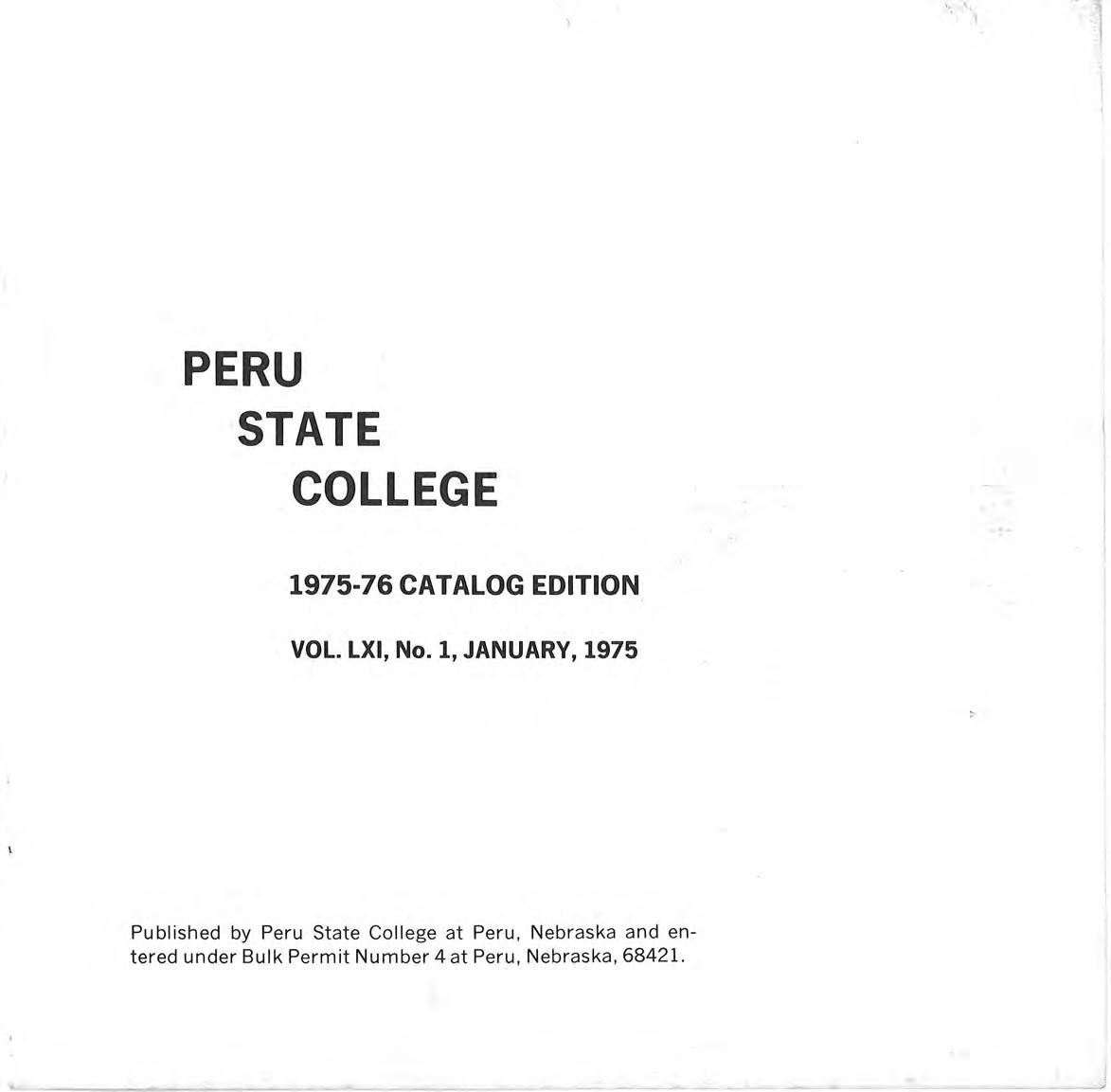
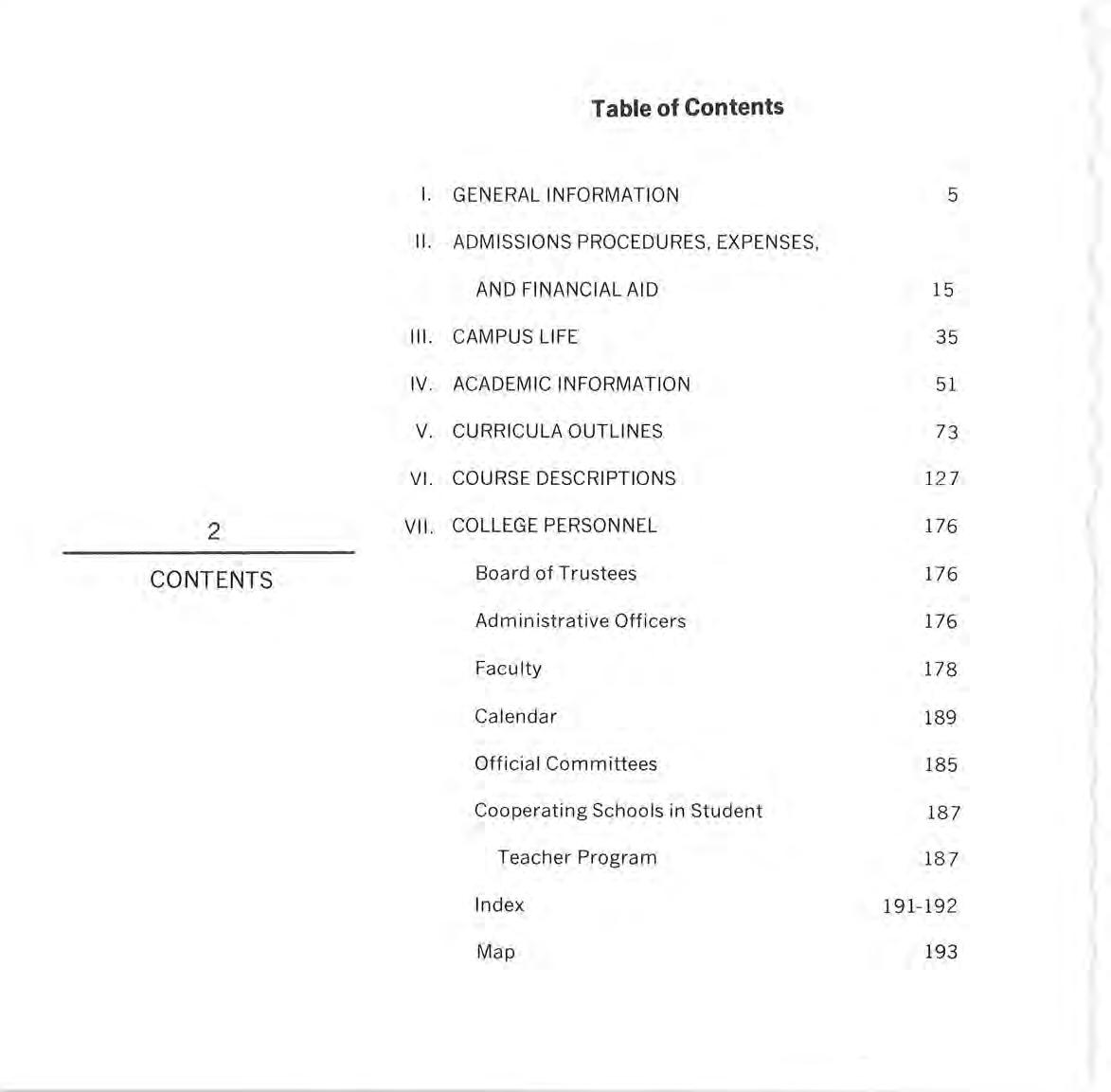

Peru State is the oldest co ll ege in Nebraska and the third oldest teacher-training institution established west of the Missour i River. Peru was founded the same year Nebraska became a state . For more than a century thousands of young people have crossed the Campus of a Thousand Oaks and have gone forth to become teachers and leaders in business and industry in Nebraska and throughout the nation.
The people of Nebraska have made the facilities of this Co llege ava il ab l e to students at a minimum of personal cost The taxpayers of the state bear a major portion of the cost of co llege education of the students, exclusive of personal expenses.
Public in stitutions such as Peru State genera lly have an "open door"admission policy, i.e., admit graduates of accredited high schoo l s without specia l entrance examinations . Peru State believes every young person is entitled to a chance to succeed at the col l egiate level : We believe a young person with abi lity and a willingness to work has an excellent opportunity for success at Peru State.
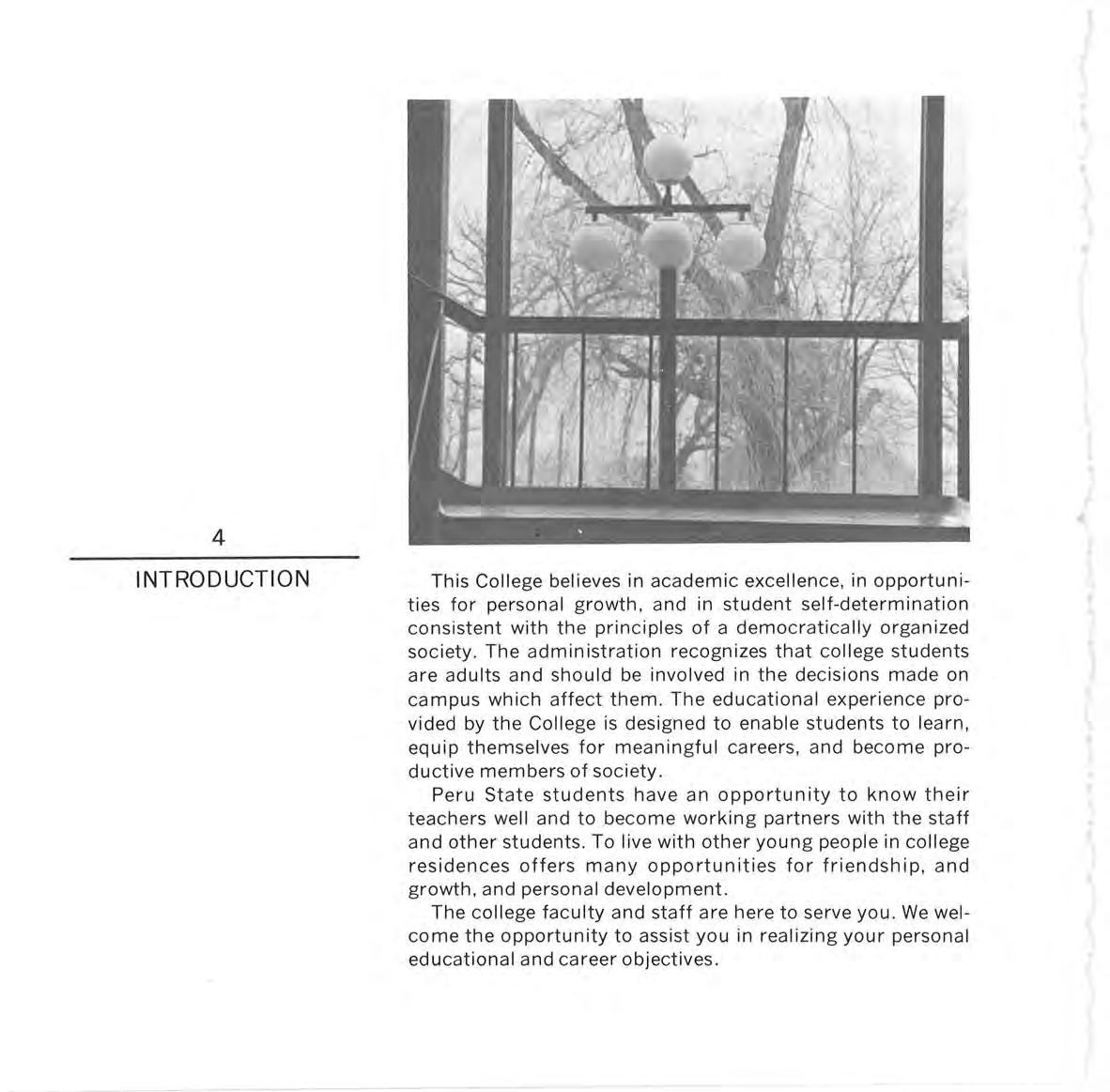
This College believes in academic excellence, in opportunities for personal growth, and in student self-determination consistent with the principles of a democratically organized society The administration recognizes that college students are adults and should be involved in the decisions made on campus which affect them. The educational experience provided by the College is designed to enable students to learn, equip themselves for meaningful careers, and become productive members of society.
Peru State students have an opportunity to know their teachers well and to become working partners with the staff and other students. To live with other young people in college residences offers many opportunities for friendship, and growth, and personal development.
The college faculty and staff are here to serve you. We welcome the opportunity to assist you in realizing your personal educational and career objectives.
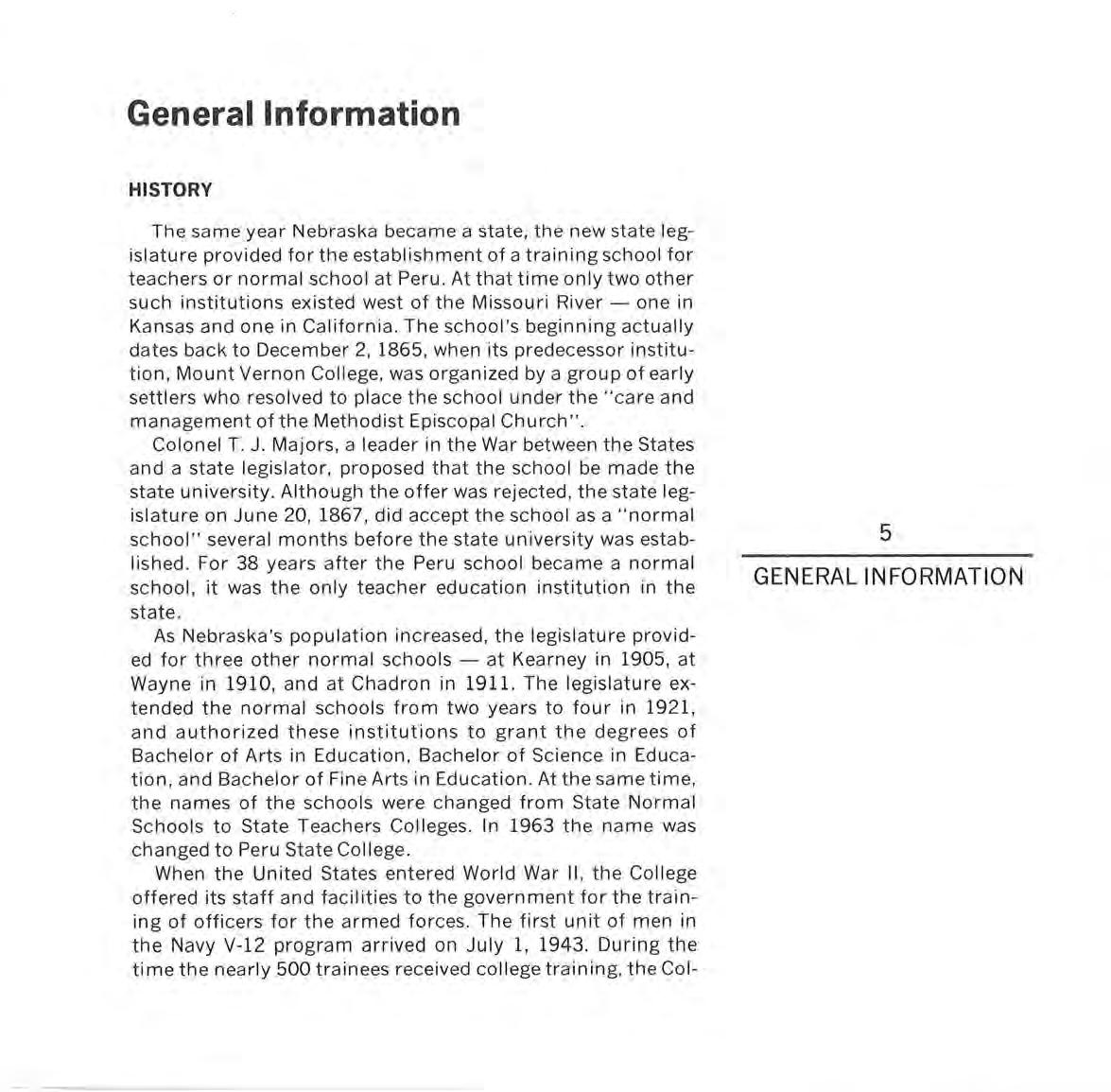
The same year Nebraska became a state, the new state l egislature provided for the estab lishment of a training schoo l for teachers or normal school at Peru. At that time only two other such institutions existed west of the Missouri River - one in Kansas and one in California. The schoo l 's beginning actually dates back to December 2, 1865, when its predecessor institution, Mount Vernon College, was organized by a group of ear ly settlers who resolved to place the school under the "care and management of the Methodist Episcopal Church".
Colonel T. J. Majors, a leader in the War between the States and a state le gis l ator , proposed that the schoo l be made the state university. Although the offer was rejected, the state legislature on June 20, 1867 , did accept the schoo l as a "normal school" several months before the state university was establ ished. For 38 years after the Peru school became a normal school, it was the only teacher education institution in the state .
As Nebraska's population in creased, the legislature provided for three other normal schoo ls - at Kearney in 1905 , at Wayne in 1910, and at Chadron in 1911. The le gislature extended the normal schools from two years to four in 1921, and authorized these in st ituti ons to grant the degrees of Bachelor of Arts in Education , Bachelor of Science in Education , and Bachelor of Fine Arts in Educat ion . At the same time , the names of the schoo ls were changed from State Normal Schools to State Teachers Col l eges. In 1963 the name was changed to Peru State College.
When the United States entered World War 11, the College offered its staff and facilities to the government for the training of officers for the armed forces. The first unit of men in the Navy V-12 program arrived on July 1, 1943. During the time the nearly 500 trainees received co lle ge training, the Co l-
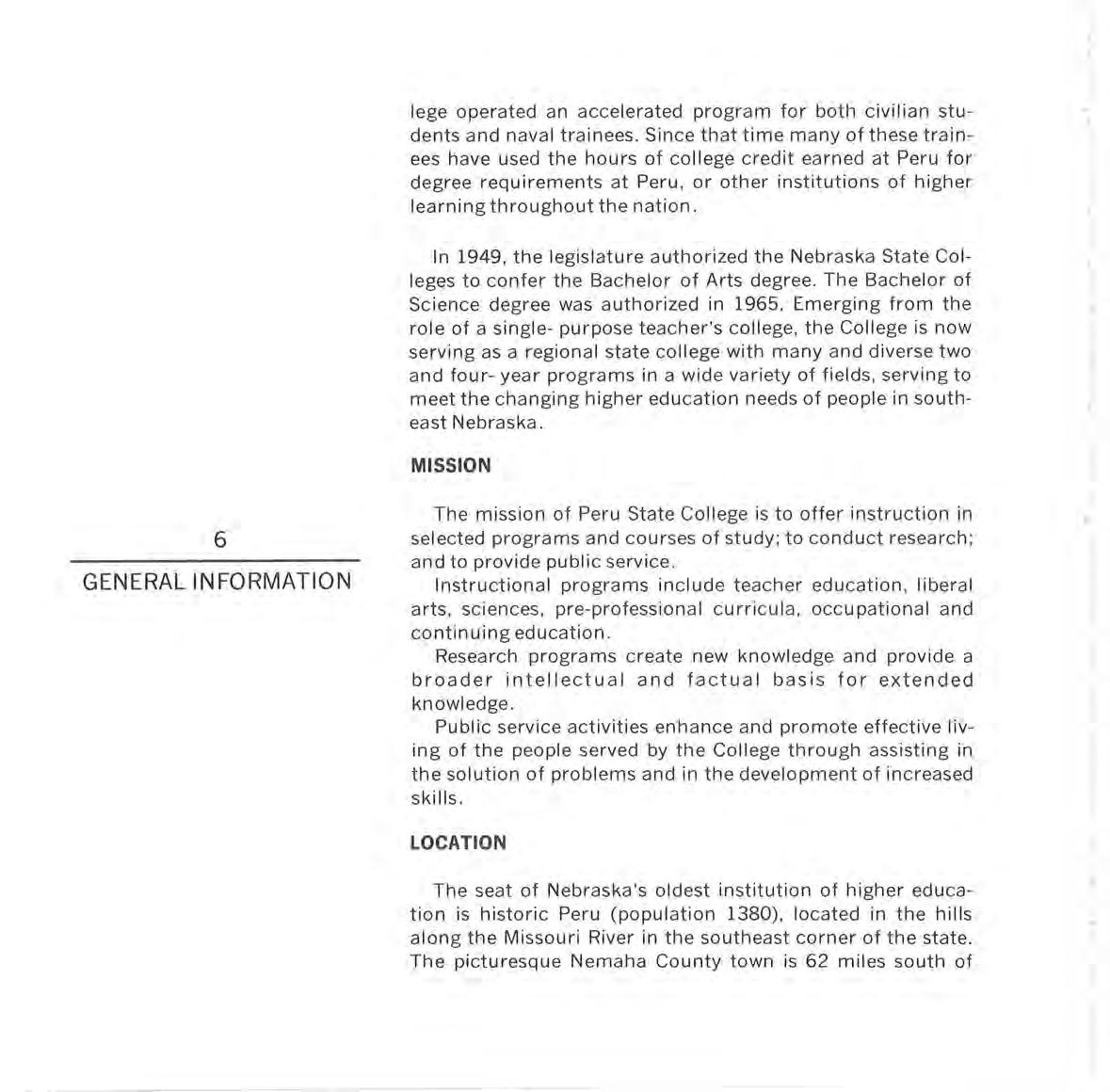
lege operated an accelerated program for both c ivi lian students and naval trainees. Since that time many of these trainees have used the h ours of co ll ege credit earned at Peru for degree requ ir ements at Peru , or other institutions of h igher learning throughout the nation .
In 1949 , the l eg islature a uth orized the Nebraska State Co ll eges to confer the Bache l or of Arts degree. The Bache l or of Sc i ence degree was authorized in 1965. Emerg in g from the ro l e of a sing l e- purpose teacher ' s co ll ege, the Col l ege is now serving as a regional state college with many and diverse two and four- year programs in a wide variety of fields, serving to m eet the c h ang in g hi g h er ed u cat ion needs of peop l e in southeast Nebraska.
The mission of Peru State College is to offer in struction in se l ected programs and courses of study; to conduct research; and to prov i de public service.
Instructional programs in c lu de teacher education , lib era l arts , sciences, pre-profession a l curricul a , occupationa l and cont inuin g educat i on .
Research programs create new know l edge and prov i de a broader in te ll ectual and factua l basis for extended knowledge .
Public ser vi ce act iviti es enha n ce and promote effect iv e living of the people served by the Co ll ege through assisting in the so lu tion of problems a nd in t h e development of in creased sk ill s
The seat of Nebraska's oldest in st ituti on of higher ed u cat i on is hi stor i c Peru (popu l at ion 1380) , located in the hills a lon g t h e Missouri River in the southeast corner of the state . The picturesque Nemaha Cou nty town is 62 mil es sout h of
Omaha and 75 miles southeast of Lincoln. Peru is served by Nebraska Highway 67, which intersects U.S. Highway 73 and 75 six miles west of the campus. Auburn, county seat of Nemaha County, is five miles south, and Nebraska City, Otoe County seat , is 15 miles north of the junction of these highways. The Campus of a Thousand Oaks is on approximately the same latitude as New York City and is about 150 miles east of the center of continental United States. About 80 per cent of Peru's students come from Nebraska , with adjacent states well represented Students from more distant states -are also enrolled at Peru.
Daily bus service to Omaha , Lincoln , Kansas City, and Topeka, with connections in those cities to more distant points, is available at Auburn , 12 miles from Peru . Persons wanting transportation from Peru to Auburn can usu a lly find rides with students and faculty members. Students arriving in Auburn at the opening of a semester or summer session may secure transportation by informing the Office of Student Life in advance of arrival. College transportation will be provided to and from Auburn at the beginning and end of semesters, summer sessions, and spring recess.
Peru State College is accredited by the North Central Association of Colleges and Secondary Schools and the National Council for accreditation of Teacher Education as a bachelor 's degree granting institution. Full membership is maintained in the American Association of Colleges for Teacher Education and the American Council of Education . The College also is a charter member of the Nebraska Council on Teacher Education.
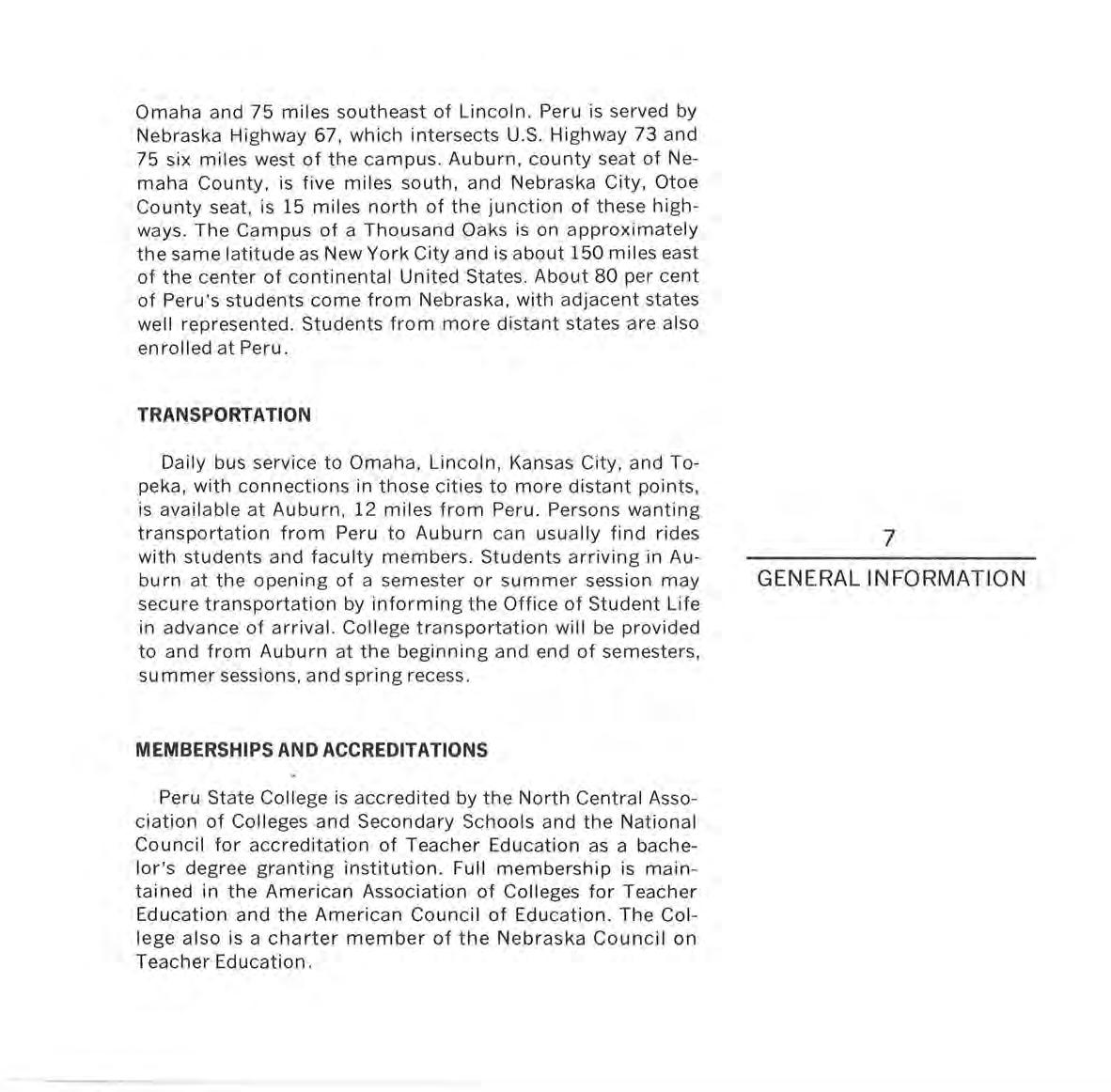
Peru State College is committed to the belief that all citizens are endowed with potential abilities which, if discovered and developed, will reflect to the benefit of that individual and to the populace at large. Those who are exposed to the influence of the college should be encouraged to develop those potentials and concurrently encouraged to develop understanding of and appreciation tor the contributions made by others .
Such individual development can be accomplished through formal studies and exposure to a variety of experiences both on and off campus. Appropriate and acceptable behavioral patterns are the result of reasonable mastery of knowledge; acquisition of certain skills and techniques , appreciation and understanding of areas beyond narrow personal interests, and from meaningful religious and social experiences.
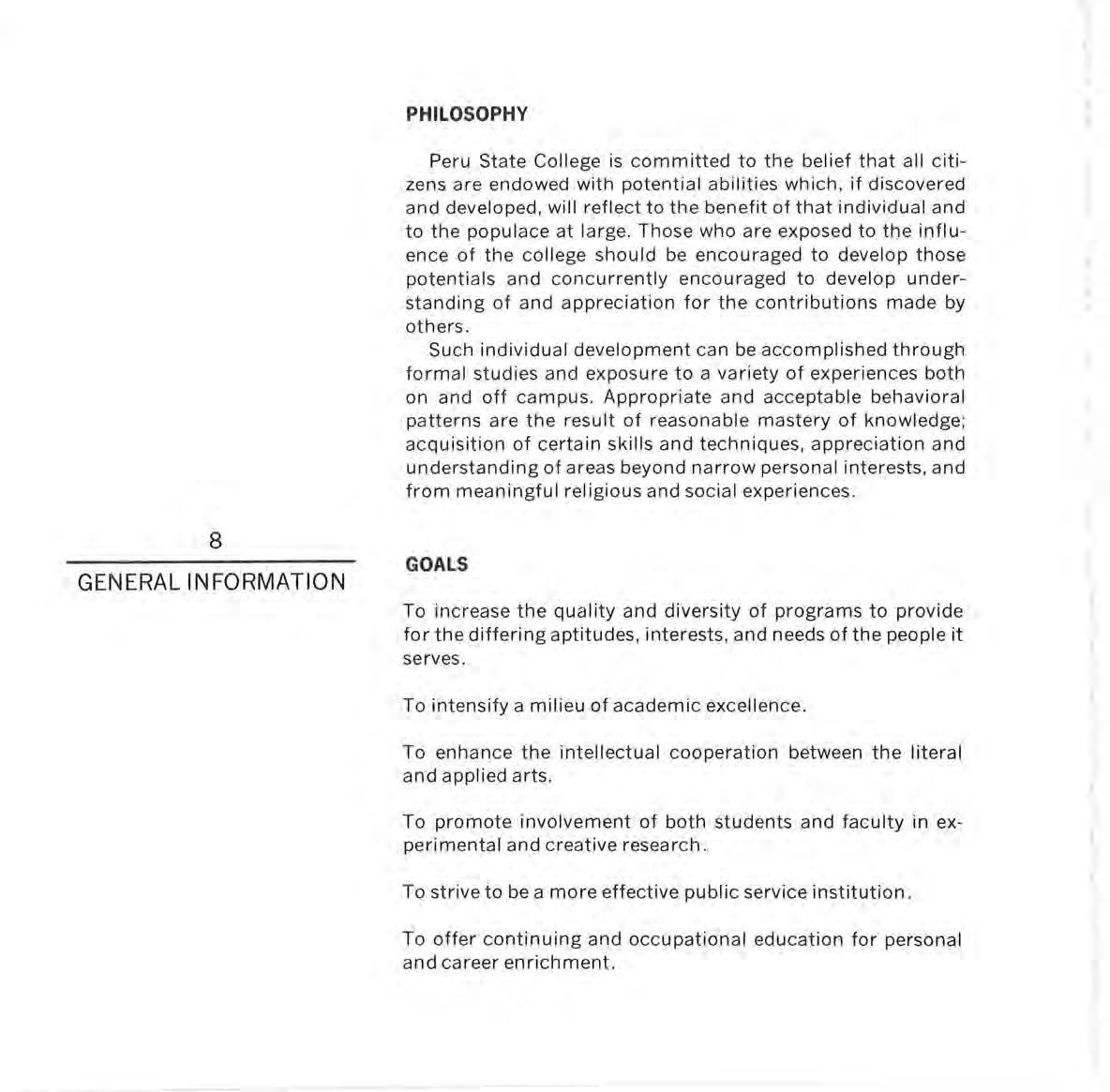
To increase the quality and diversity of programs to provide tor the differing aptitudes, interests, and needs of the people it serves.
To intensify a milieu of academic excellence.
To enhance the intellectual cooperation between the literal and applied arts.
To promote involvement of both students and faculty in experimental and creative research.
To strive to be a more effective public service institution
To offer continuing and occupational education for personal and career enrichment.
To explore new and creative educational opportunities for students.
To serve as a transitional educational institution for students pursuing various occupational, vocational, and professional objectives.
To prepare students to become contributing members of a democratic society.
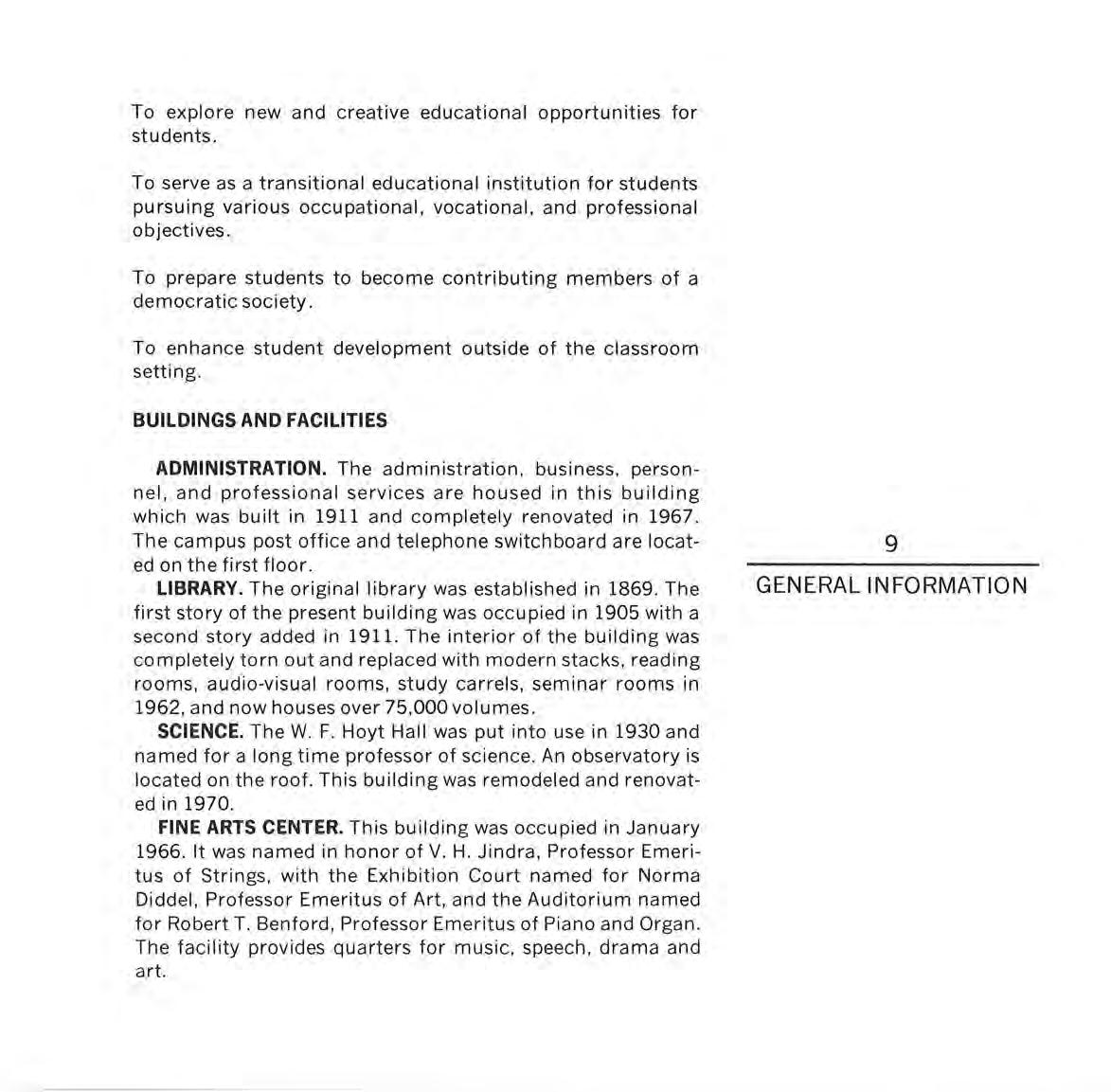
To enhance student development outside of the classroom setting.
ADMINISTRATION. The administration, business, personnel, and professional services are housed in this building which was built in 1911 and completely renovated in 1967 The campus post office and telephone switchboard are located on the first floor.
LIBRARY. The original library was established in 1869. The first story of the present building was occupied in 1905 with a second story added in 1911. The interior of the building was completely torn out and replaced with modern stacks, reading rooms, audio -visual rooms, study carrels, seminar rooms in 1962, and now houses over 75,000 volumes.
SCIENCE. The W. F. Hoyt Hall was put into use in 1930 and named for a long time professor of science. An observatory is located on the roof. This building was remodeled and renovated in 1970.
FINE ARTS CENTER. This building was occupied in January 1966. It was named in honor of V. H. Jindra, Professor Emeritus of Strings, with the Exhibition Court named for Norma Diddel, Professor Emeritus of Art, and the Auditorium named for Robert T. Benford, Professor Emeritus of Piano and Organ. The facility provides quarters for music, speech, drama and art.
INDUSTRIAL ARTS. The Industrial Arts Building was opened in 1960 and named for A. V. Larson, who had served as Chairman of the Industrial Arts Department for many years. This facility is used to provide training and equipment in power mechanics, electricity-electronics, industrial crafts, woodworking, metal working, drafting, graphic arts, photography, and related areas.
EDUCATION. Built in 1916 and named in honor of a founder of the College, the T. J. Majors Campus School became the Education Building when the legislature phased out laboratory schools in 1967. Besides housin he $,chopl of Educa( (. e'e1'4c.« 1tC"'ll tion, it also contains the business i!S!l!~ · geography , and home economics departments.
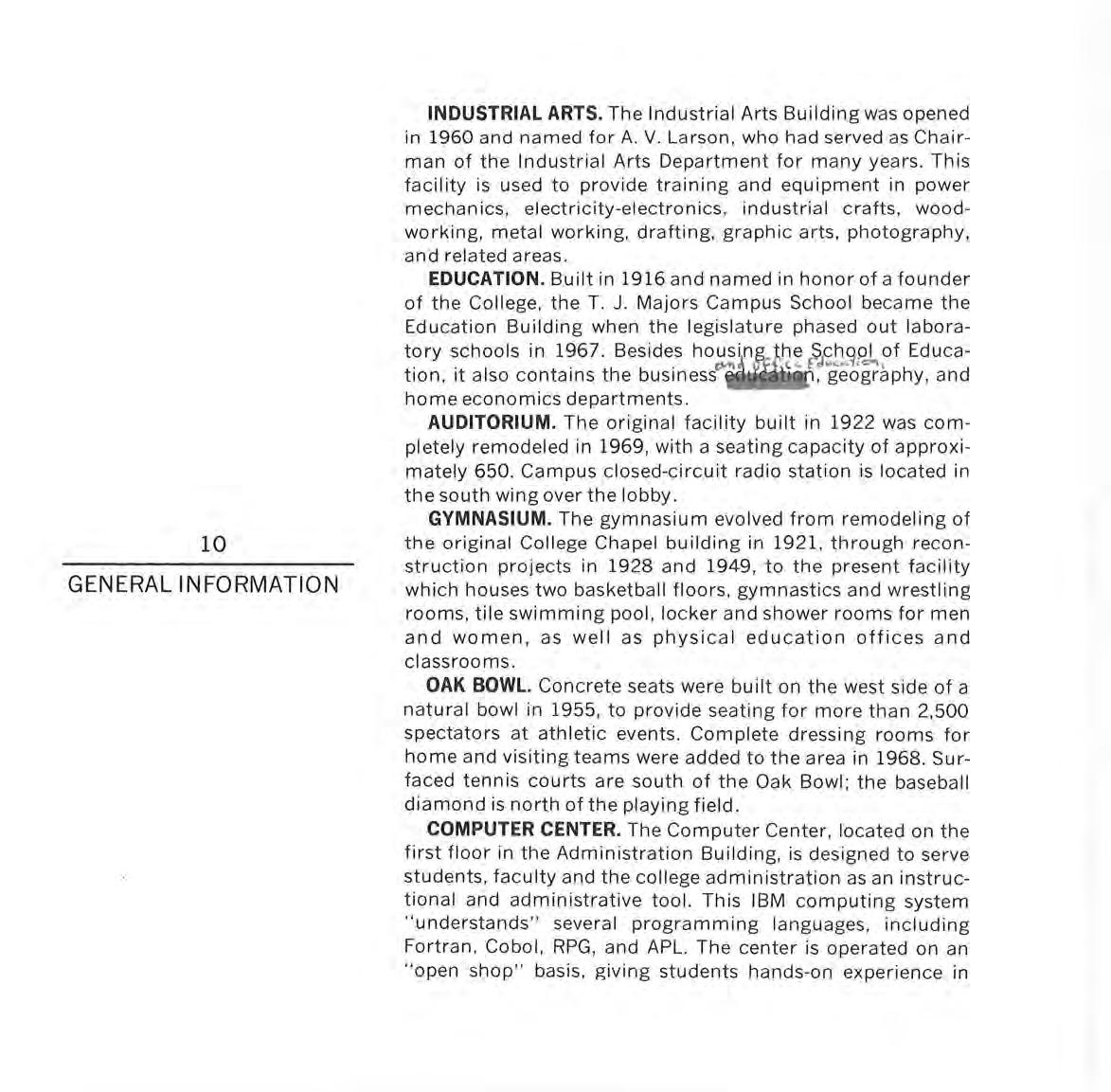
AUDITORIUM. The original facility built in 1922 was completely remodeled in 1969, with a seating capacity of approximately 650. Campus closed-circuit radio station is located in the south wing over the lobby.
GYMNASIUM. The gymnasium evolved from remodeling of the original College Chapel building in 1921, through reconstruction projects in 1928 and 1949, to the present facility which houses two basketball floors, gymnastics and wrestling rooms, tile swimming pool, locker and shower rooms for men and women, as well as physical education offices and classrooms.
OAK BOWL. Concrete seats were built on the west side of a natural bowl in 1955, to provide seating for more than 2,500 spectators at athletic events. Complete dressing rooms for home and visiting teams were added to the area in 1968 . Surfaced tennis courts are south of the Oak Bowl; the baseball diamond is north of the playing field .
COMPUTER CENTER. The Computer Center, located on the first floor in the Administration Building, is designed to serve students, faculty and the college administration as an instructional and administrative tool. This IBM computing system "u nderstands" several programming languag es, including Fortran, Cobol, RPG, and APL. The center is operated on an "open shop" basis, giving students hands-on experience in
programming a n d operating modern computing eq uipm ent.
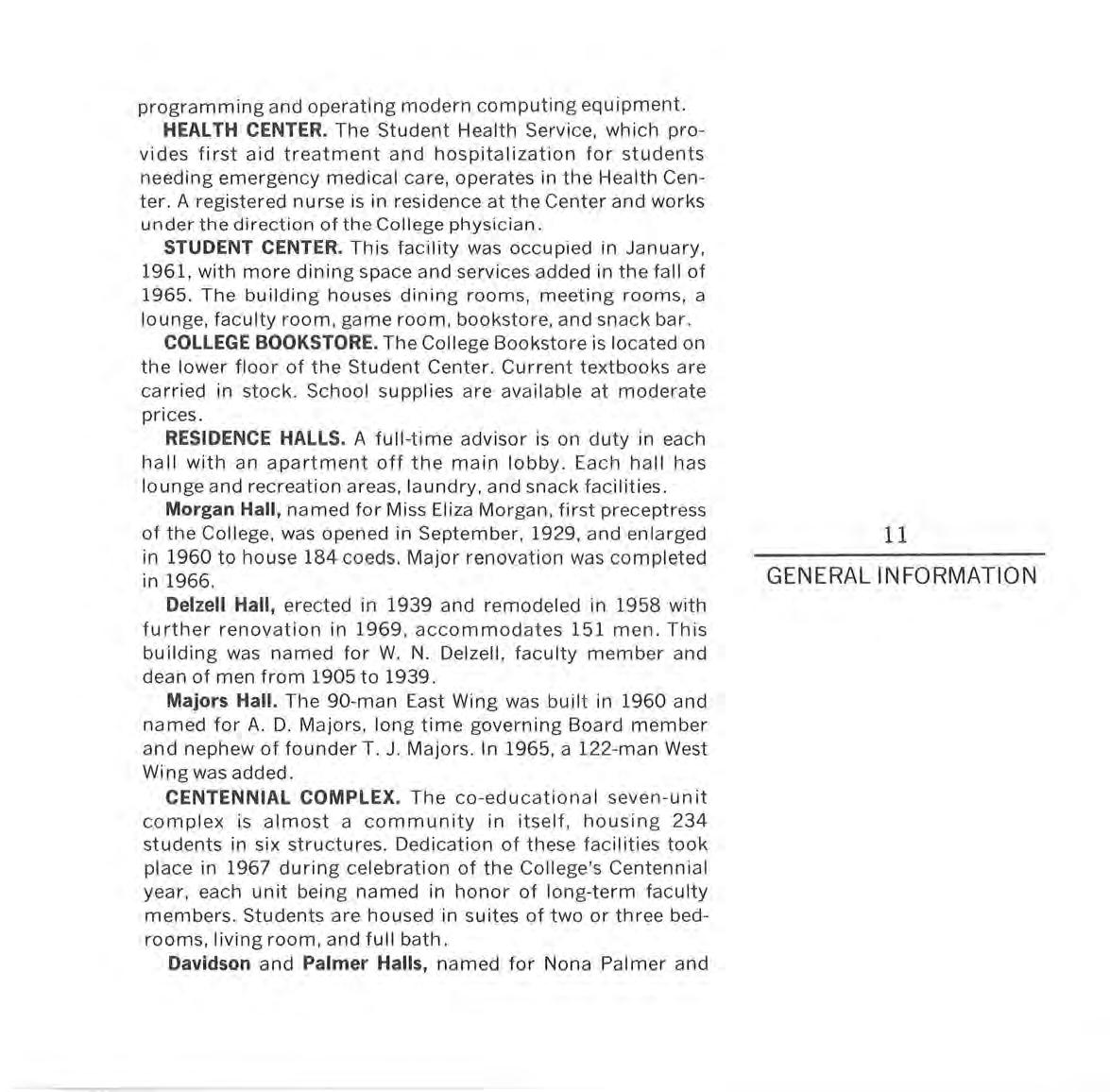
HEALTH CENTER. The Student He a lth Serv ice, which provides first a id treatment and hospitalization for students needing emergency medical care, operates in the Health Ce nter. A registered nurse is in residence at the Center and works under the direction of the College physician.
STUDENT CENTER. Thi s facility was occupied in J a nu ary, 1961, with mor e dining space and serv ices added in the fa ll of 1965. The building houses dining rooms, meeting rooms, a loun ge, faculty room, game room, bookstore, and snack bar.
COLLEGE BOOKSTORE. The Co ll ege Bookstore i s lo cated on the low er floor of the Student Center. Current textbooks are carr i ed in stock. Schoo l supp li es are ava il ab l e at moderate prices
RESIDENCE HALLS. A full-time ad vi sor is on duty in eac h hall with an apartment off the m a in lobby . Eac h h a ll h as loun ge and recreation areas, l a undry, and sn ack facilities.
Morgan Hall, named for Miss Eli za Morgan, first preceptress of the College, was opened in September , 1929 , and en larged in 1960 to house 184 coeds . Major renovation was comp l eted in 1966
Delzell Hall, erected in 1939 and remodeled in 1958 with further renovation in 1969, accommodates 151 men . This bu il ding was named for W. N. Delzell, faculty member and dean of men from 1905 to 1939.
Majors Hall. The 90-man East Win g was built in 1960 a nd named for A D M a jor s, lon g tim e go v ern in g Board member a nd n ep h ew of founder T. J. M a jor s. In 1965, a 122-man West Wing was added.
CENTENNIAL COMPLEX. The co-educat i ona l seven-un it comp l ex i s a lmo st a commun ity in it se lf , hou sing 234 students in six structures. Dedication of these fac iliti es took place in 1967 during ce l ebration of the Co ll ege's Centenn ial year, eac h unit being named in honor of long-term faculty members. Students a r e hou sed in s uit es of two or three bedrooms, livin g room, a nd full bath.
Davidson and Palmer Halls, n a m ed for Non a Palmer and
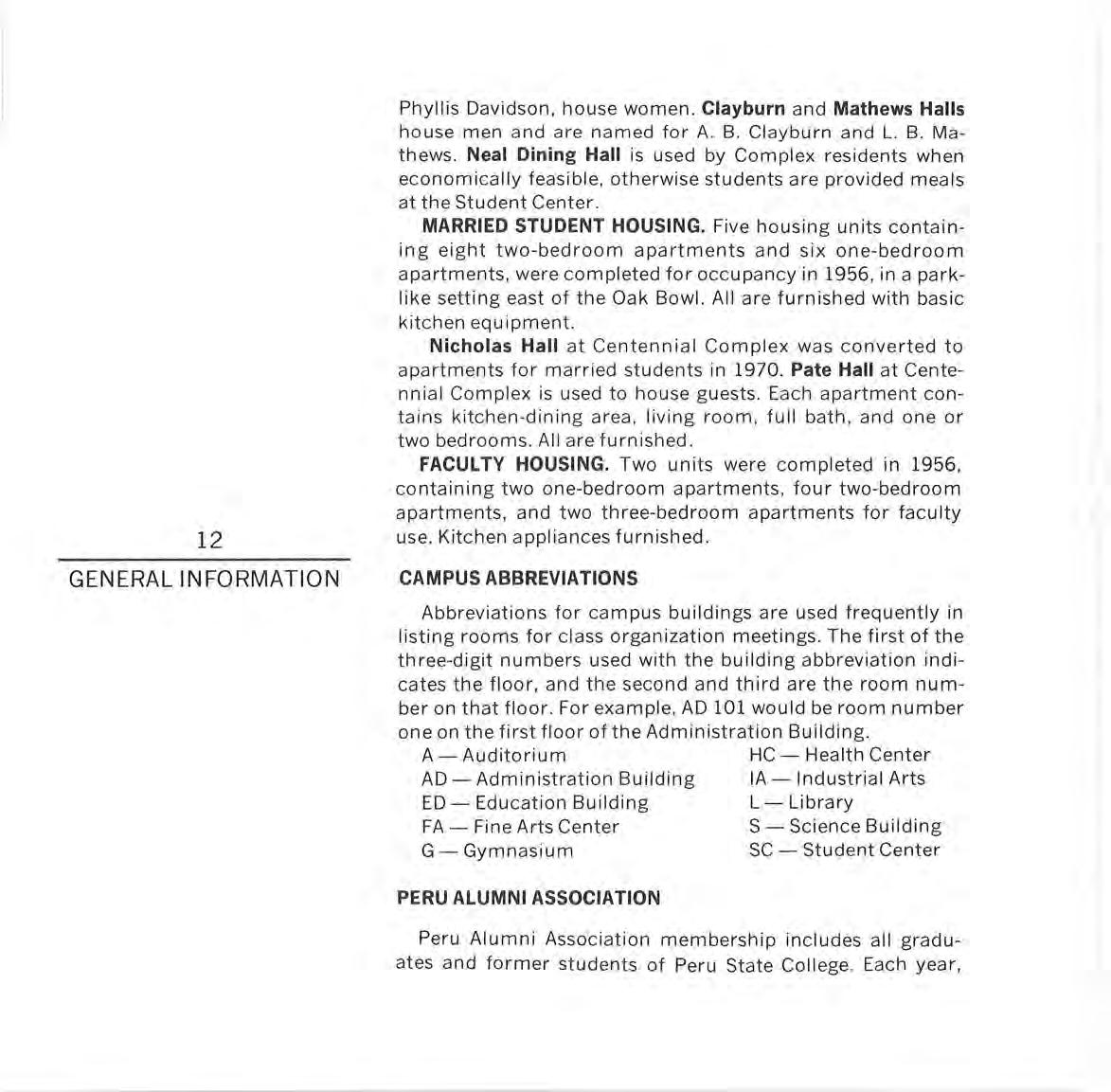
Phyllis Davidson, house women. Clayburn and Mathews Halls house men and are named for A. B. Clayburn and L. B. Mathews. Neal Dining Hall is used by Complex residents when economically feasible, otherwise students are provided meals at the Student Center
MARRIED STUDENT HOUSING. Five housing units containing eight two-bedroom apartments and six one-bedroom apartments, were completed for occupancy in 1956 , in a parklike setting east of the Oak Bowl. All are furnished with basic kitchen equipment.
Nicholas Hall at Centennial Complex was converted to apartments for married students in 1970. Pate Hall at Centennial Complex is used to house guests. Each apartment contains kitchen-dining area, living room, full bath, and one or two bedrooms . All are furnished.
FACULTY HOUSING. Two units were completed in 1956, containing two one-bedroom apartments, four two-bedroom apartments, and two three-bedroom apartments for faculty use. Kitchen appliances furnished.
Abbreviations for campus buildings are used frequently in listing rooms for class organization meetings. The first of the three-digit numbers used with the building abbreviation indicates the floor, and the second and third are the room number on that floor. For example, AD 101 would be room number one on the first floor of the Administration Building.
A-Auditorium
AD -Administration Building
ED- Education Building
FA- Fine Arts Center
G - Gymnasium
HC - Health Center
IA- Industrial Arts
L- Library
S - Science Building
SC - Student Center
Peru Alumni Association membership includes all graduates and former students of Peru State College. Each year,
luncheons, receptions , and reunions are sponsored . Local alumni chapters, organized in Omaha and Lincoln in 1955, in Denver in 1957, in Berkeley , California in 1958, in Los Angeles in 1961, and the 1000 Oaks Chapter in Peru, Nebraska in 1973, sponsor activities in their areas with the assistance of the alumni office .
The 50-year class reunion , a tradition at commencement, and the 25 and 40-year class reunions at Homecoming are arranged by the alumni office. Since 1969 , reunions have been planned for the 60- and 70-year classes at commencement . At Homecoming special invitations are extended to classes of five-year intervals for the alumni luncheon.
The Alumni Office . Located in the Administration Building, the office maintains a file of all graduates and many former students. Degree and diploma recipients are filed by classes as well as alphabetically and geographically. A collection of yearbooks, commencement programs , alumni publications and other memorabilia is housed in the Services Building . The office cooperates with the Library in maintenance of archival materials in the special collection room of the Library.
The Peru Stater. The 1,000 Oaks Chapter publishes The Peru Stater, which is distributed in November and May to alumni, former students, and friends of the College.
As a result of the work of a group of alumni , the Peru Achievement Foundation was organized in June , 1955 , and incorporated as a non-profit corporation for educational and charitable purposes on May 21, 1962.
Organized for the promotion and support of Peru State College, the Foundation has as its primary purpose : "to aid, assist, and promote the educational program, faculty, employees, students, and to encourage the attendance .. . of worthy and deserving students, and to grant scholarships and student loans to deserving students."
This purpose is accomplished through the solicitation and acceptance of "gifts , grants, devises and bequests of real or
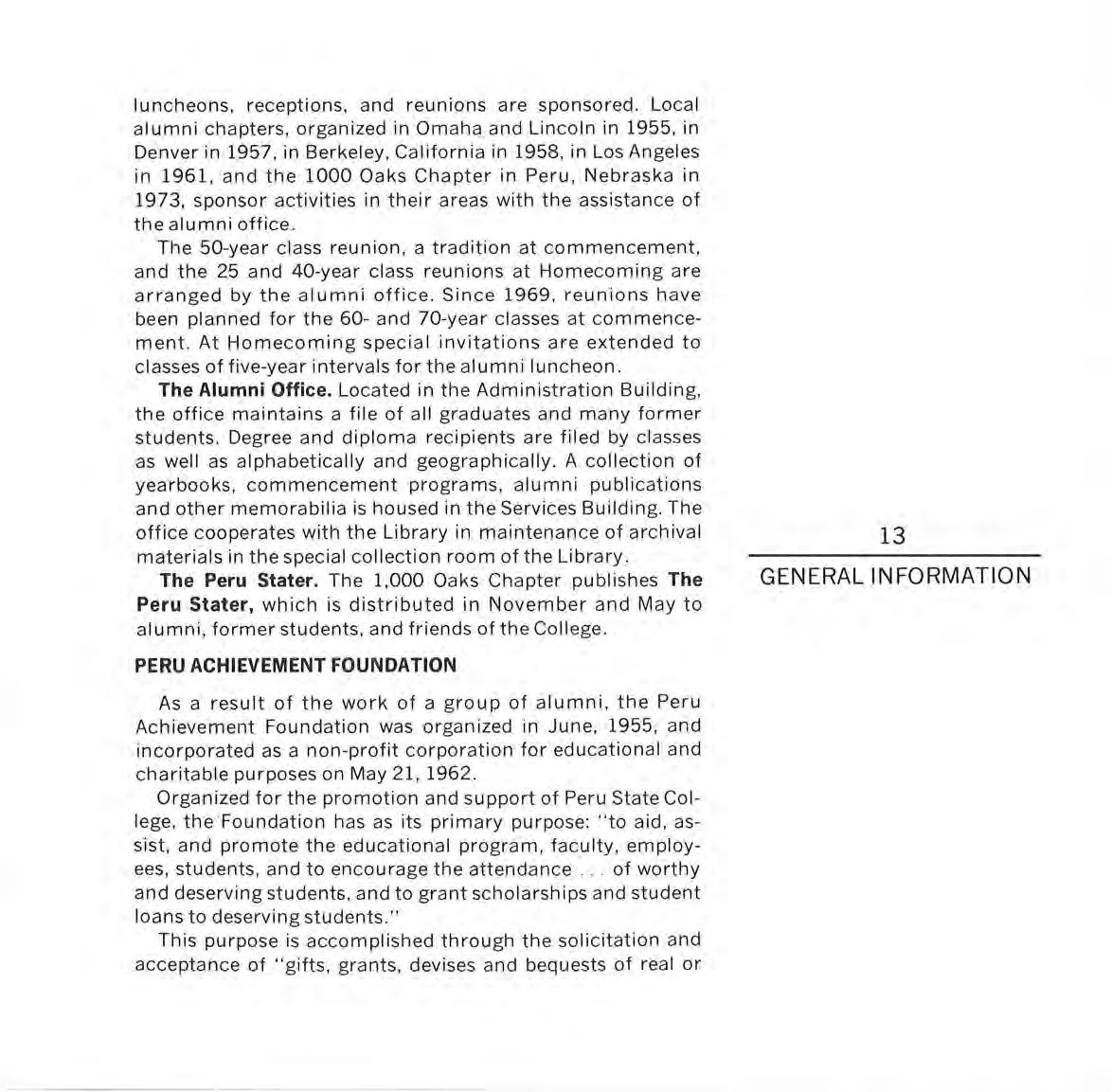
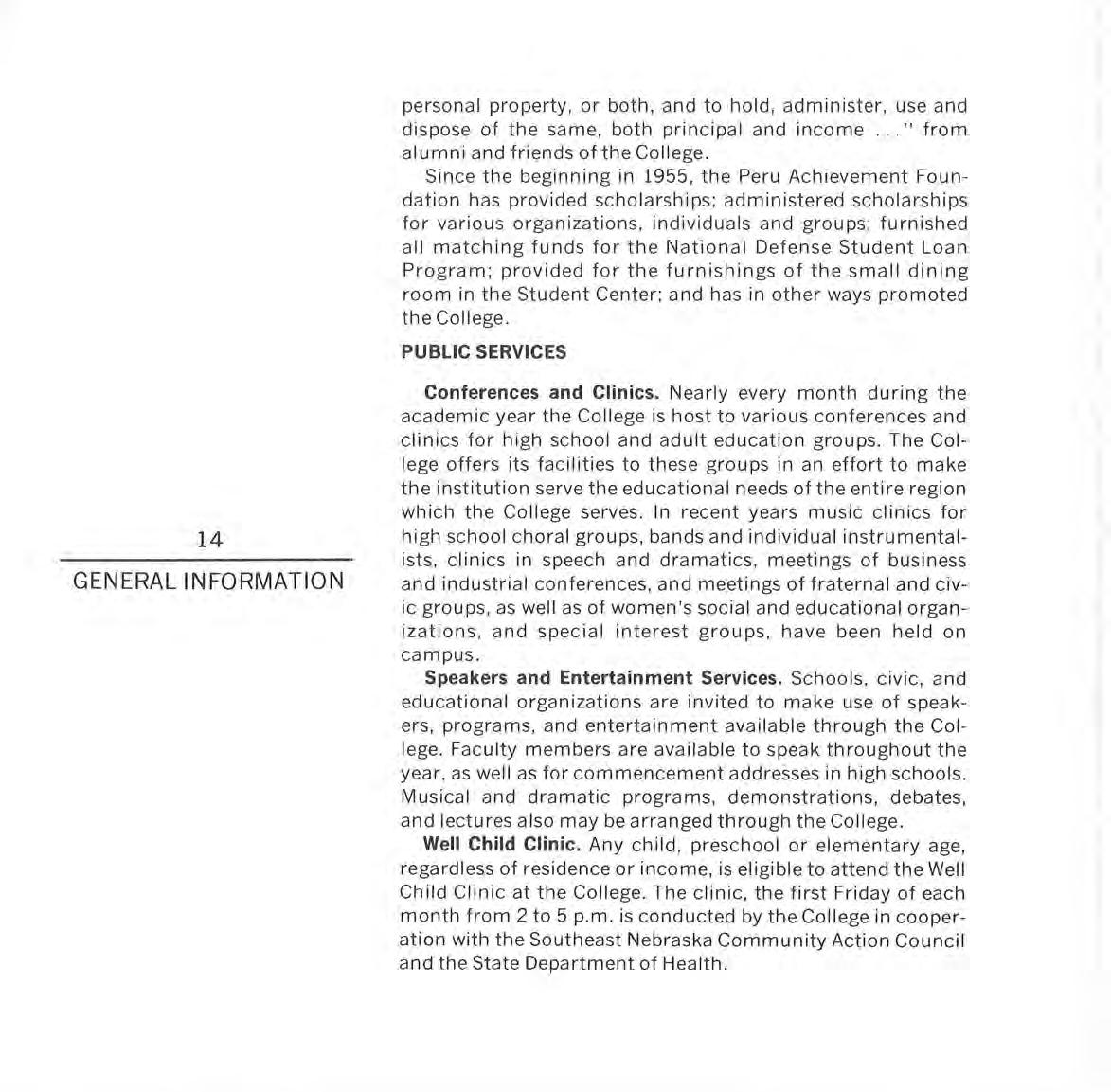
persona l property, or both , and to hold, adm ini ster, use and d i spose of the same, both pr in cipa l and income ... " from a lumni and friends of the Co ll ege.
Since the beg innin g in 1955, the Peru Achievement Foundat ion has provided scho l arsh i ps; adm ini stered scho l arsh ip s for var i ous organ izations, indivi dua l s and groups ; furnished a ll match in g funds for the National Defense Student Loan Program; provided for t h e furnishings of the sma ll dining room in the Student Center; and has in other ways promoted the Co ll ege
Conferences and Clinics. Nearly ev ery month dur in g the academ i c year the Co ll ege is h ost to var i ous conferences and c lini cs for high sc h oo l and adu lt educat ion groups. The Co ll ege offers its faci liti es to these groups in an effort to make the in st ituti on serve t h e educational needs of t h e entir e region wh i ch the Co ll ege serves. In recent years music c lini cs for high school chora l groups, bands and individual in strumenta lists, c lini cs in speech and dramat ics, meetings of bus in ess and in d u stria l conferences, and meetings of fraternal and c ivic groups, as well as of women's soc i a l and educat ion al organi zat i ons, and spec i al int erest groups, have been held on campus.
Speakers and Entertainment Services. Sc h oo ls, civic, and educat i onal organ i zat ions are in v it ed to make use of speakers, programs , and entertainment ava il ab l e t h roug h the Co ll ege. Faculty members are avai l ab l e to speak throughout the year, as we ll as for commencement addresses in hi g h sc h oo ls. Musical and dramatic programs, demonstrations, debates, and l ectures a lso may be arranged through the Col l ege.
Well Child Clinic. Any chi ld , preschool or e l ementary age, regardless of res id ence or in come, i s eli g ibl e to attend the Well Ch il d C li n ic at the Co ll ege. The c l in ic, the first Friday of each month from 2 to 5 p . m. is conducted by the Co ll ege in cooperation with the Sout h east Nebraska Commun ity Action Cou n ci l a nd the State Department of Health.
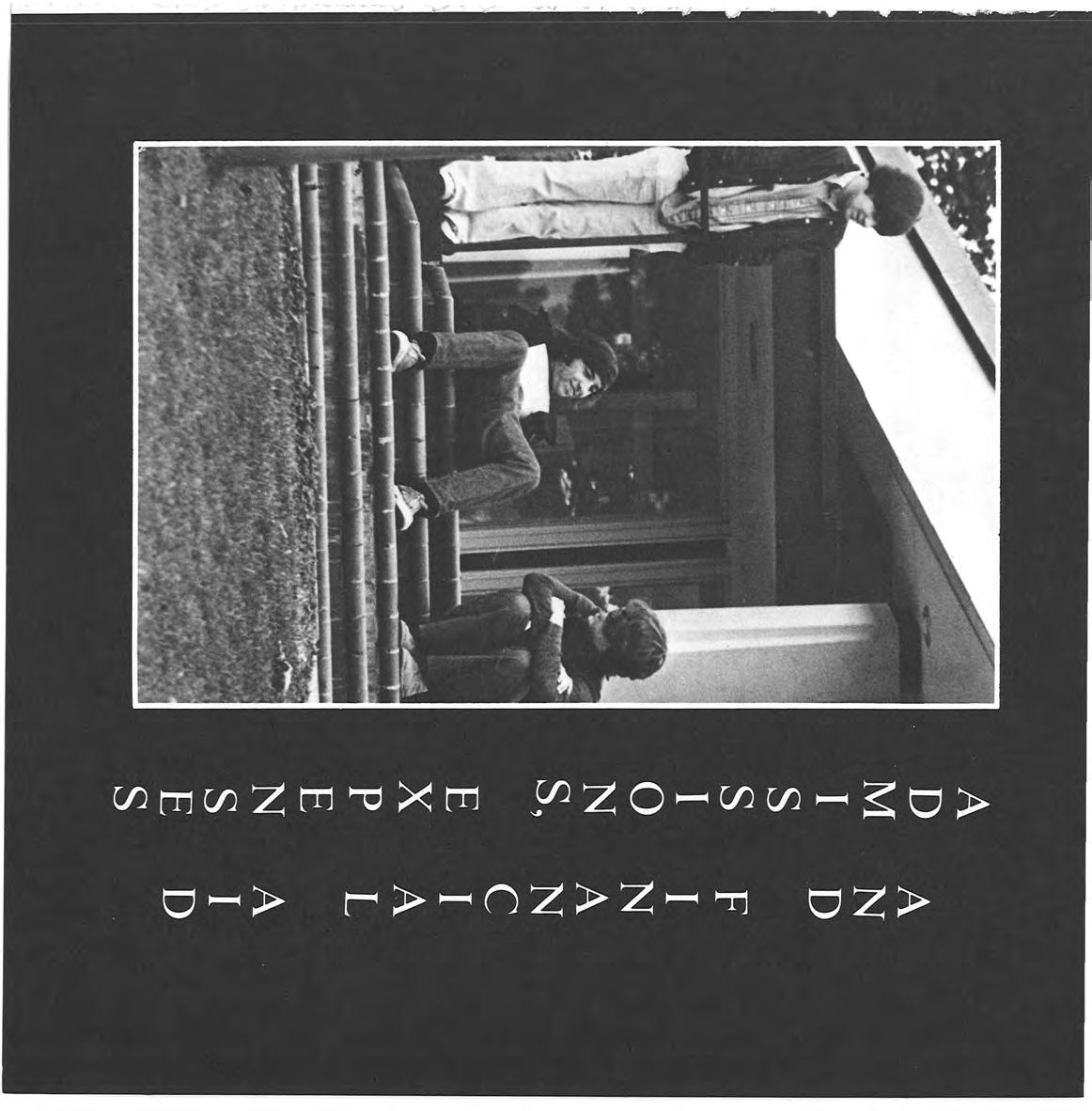

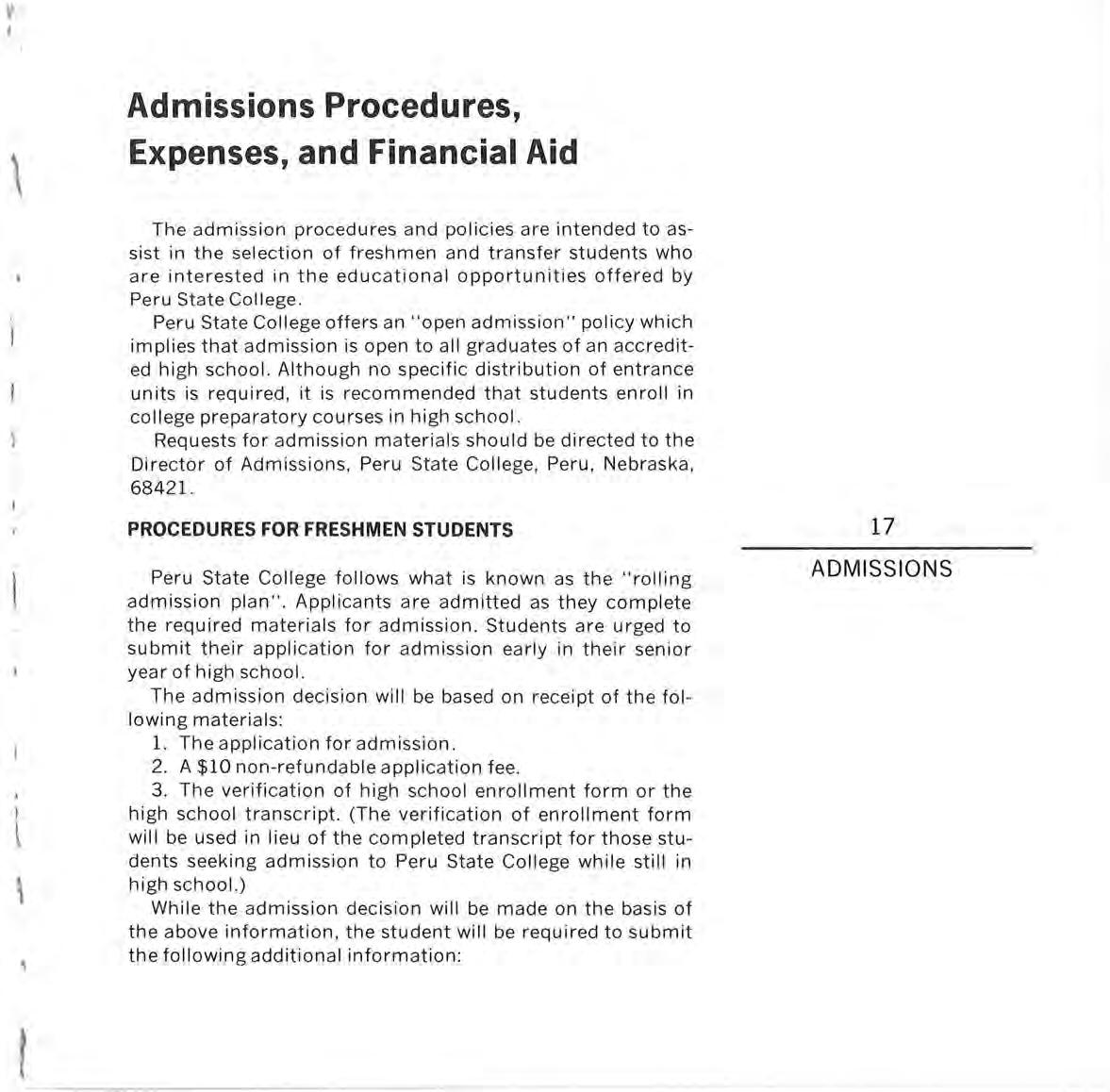
The admission procedures and policies are intended to assist in the selection of freshmen and transfer students who are interested in the educational opportunities offered by Peru State College .
Peru State College offers an "open admission" policy which implies that admission is open to all graduates of an accredited high school. Although no specific distribution of entrance units is required, it is recommended that students enroll in college preparatory courses in high school.
Requests for admission materials should be directed to the Director of Admissions, Peru State College, Peru, Nebraska, 68421.
Peru State College follows what is known as the " rolling admission plan" Applicants are admitted as they complete the required materials for admission . Students are urged to submit their application for admission early in their senior year of high school.
The admission decision will be based on receipt of the following materials:
1. The application for admission.
2. A $10 non-refundable application fee.
3 . The verification of high school enrollment form or the high school transcript . (The verification of enrollment form will be used in lieu of the completed transcript for those students seeking admission to Peru State College while still in high school.)
While the admission decision will be made on the basis of the above information, the student will be required to submit the following additional information:
17
4. The medical report.
5. Scores from the American College Testing Program (ACT) . The test should be taken either late in the junior year or early in the senior year The results are used by the student and his advisor and by the institution for research purposes. Inform ation about the ACT may be obtained from your high school guidance counselor , or by writing directly to the American College Testing Program, P. 0 . Box 451 , Iow a City , Iowa 52240.
6. An application for campus housing (if applicable), and a $25 room damage deposit.
7. The completed transcript . A complete (eight semesters) high school transcript must be requested from the high school principal ' s office by the student. The request shou ld be made just prior to or at the end of the student ' s l ast semester in high school .
Students who desire to transfer from a two year or from another four year collegiate institution must submit the following admission materials :
1. The application for admission.
2. A $10 non-refundable app li cation fee
3. A student reference form to be completed by the Dean of Students at the last institution attended.
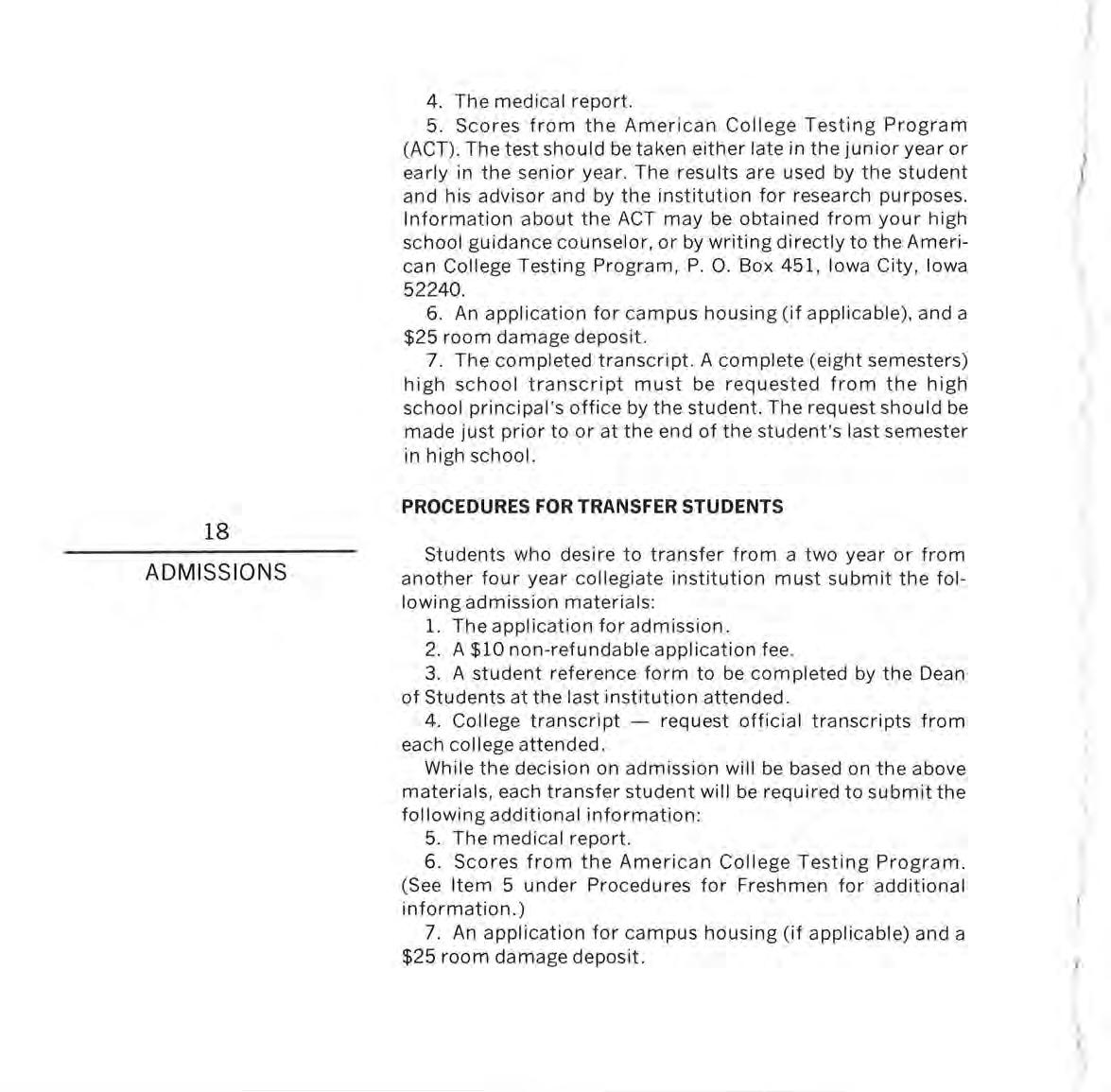
4 . College transcript - request official transcripts from each col leg e attended.
While the decision on admission will be based on the above materials, each transfer student will be required to submit the following additional information:
5. The medical report.
6. Scores from the American College Testing Program. (See Item 5 under Procedures for Freshmen for additional information .)
7. An application for campus housing (if appl icable) and a $25 room damage deposit.
Applicants who have received an Associate of Arts degree or Associate of Science degree from an accredited community college will submit the same materials required of transfer applicants , as listed above An applicant who has received an Associate of Arts degree may be determined as having met the General Studies requirements of Peru State's degree programs. Associate of Arts programs are reviewed and approved by the Academic Affairs Commission of Peru State College .
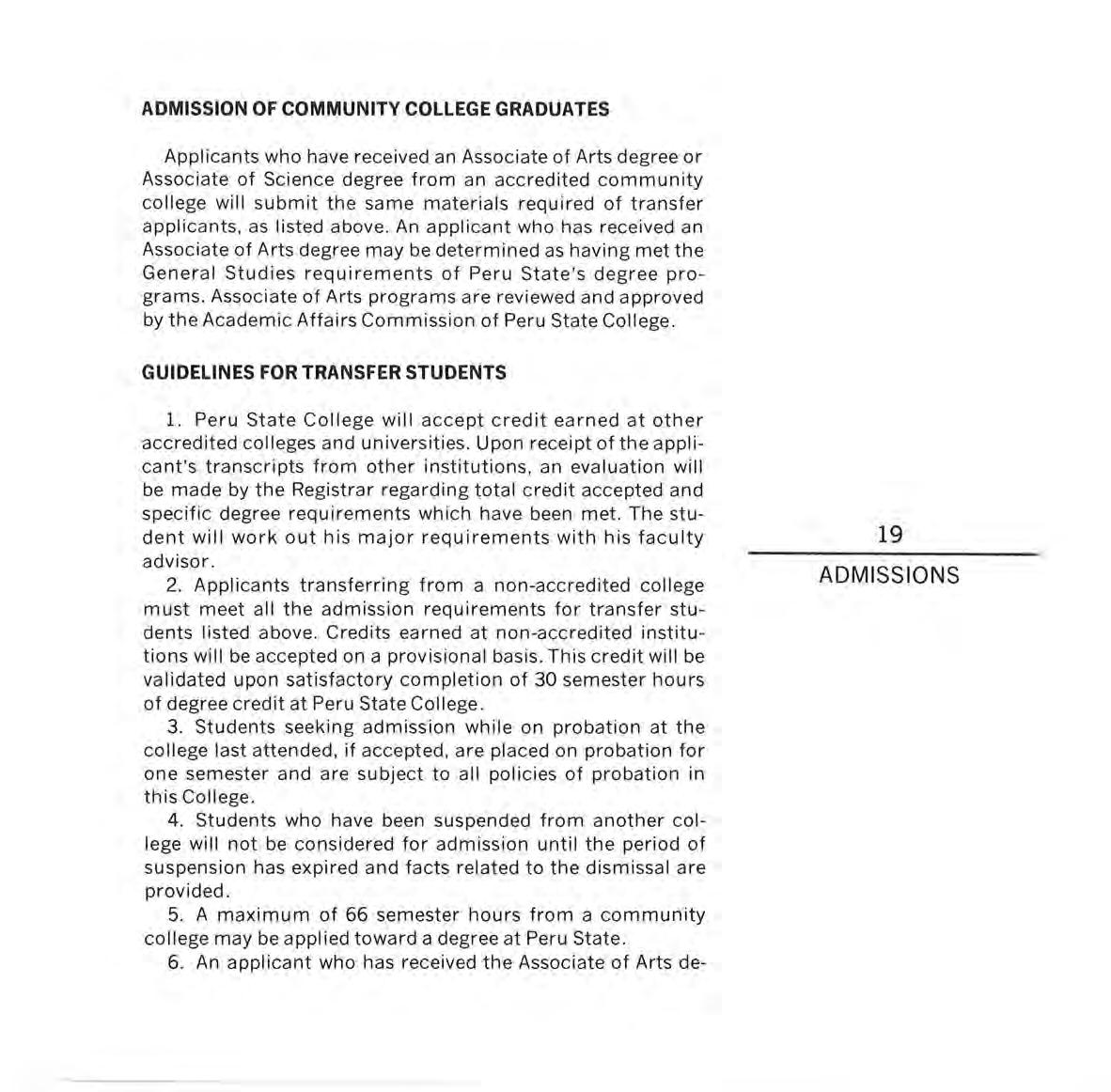
1. Peru State College will accept credit earned at other accredited colleges and universities . Upon receipt of the applicant ' s transcripts from other institutions, an evaluation will be made by the Registrar regarding total credit accepted and specific degree requirements which have been met . The student will work out his major requirements with his faculty advisor
2. Applicants transferring from a non-accredited college must meet all the admission requirements for transfer students listed above . Credits earned at non-accredited institutions will be accepted on a provisional basis. This credit will be validated upon satisfactory completion of 30 semester hours of degree credit at Peru State College.
3. Students seeking admission while on probation at the college last attended, if accepted , a r e placed on probation for one semester and are subject to all policies of probation in this College.
4. Students who have been suspended from another college will not be considered for admission until the period of suspension has expired and facts related to the dismissal are provided.
5. A maximum of 66 semester hours from a community college may be applied toward a degree at Peru State.
6. An applicant who has received the Associate of Arts de-
gree may be determined as having met the General Studies requirements of Peru State Co llege. Such programs are reviewed and approved by the Academic Affairs Commission of Peru State College
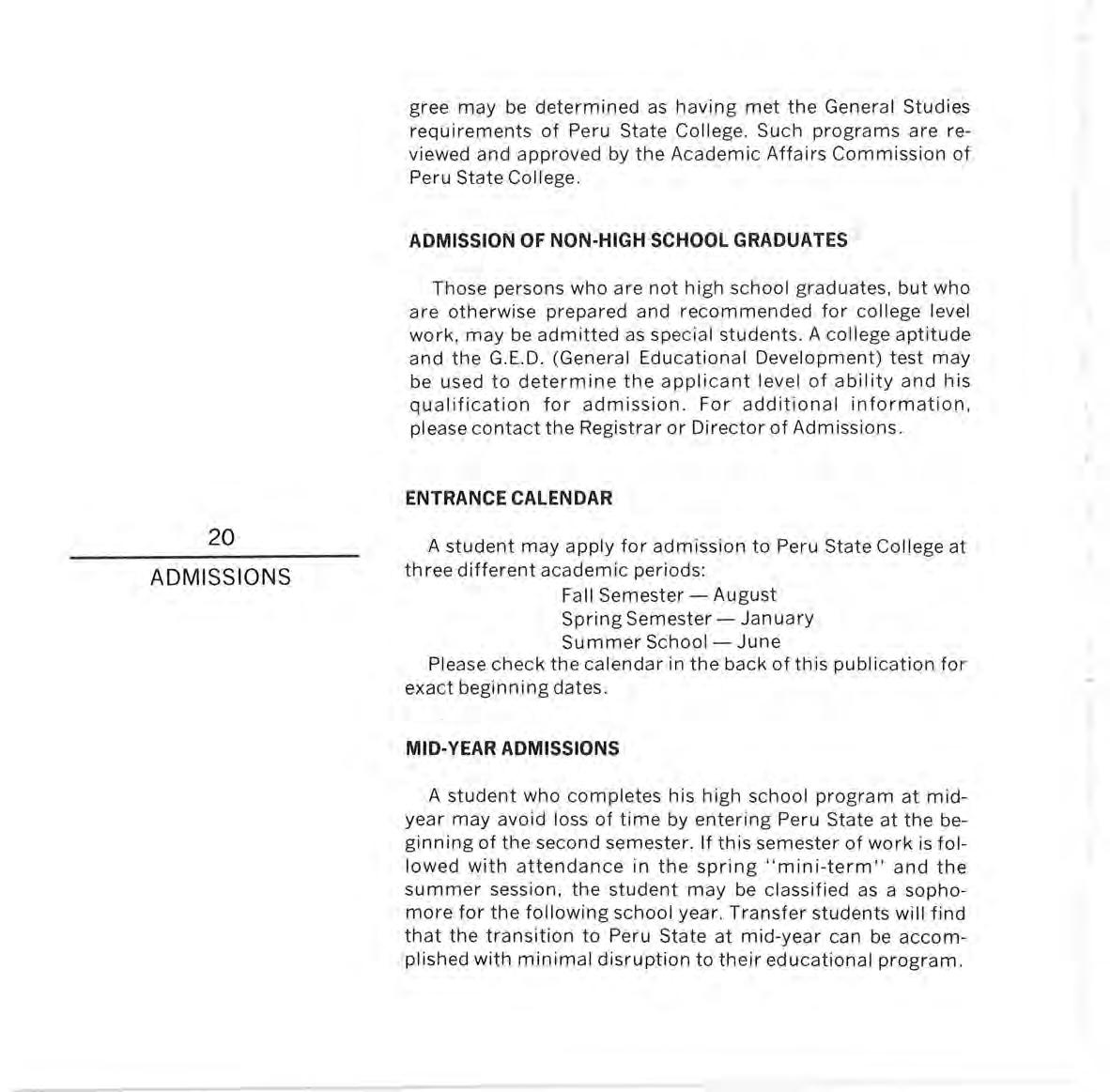
Those persons who are not high school graduates, but who are otherwise prepared and recommended for co lleg e level work , may be admitted as special students. A college aptitude and the G. E.D. (General Educational Development) test may be used to determine the applicant level of ability and his qualification for admission. For add itional information, please contact the Registrar or Director of Admissions.
A student may app ly for admission to Peru State College at three different academic periods:
Fall Semester -August
Spring Semester - January
Summer School - June
Please check the calendar in the back of this publication for exact beginning dates.
A student who comp letes his high school program at midyear may avoid loss of time by entering Peru State at the beginning of the second semester. If this semester of work is followed with attendance in the spring "mini-term" and the summer session, the student may be classified as a sophomore for the following school year. Transfer students will find that the transition to Peru State at mid-year can be accomplished with minimal disruption to their educational program.
Residents of the State of Nebraska pay a tuition charge of $15 .50 per credit hour.
Non-Residents of the State of Nebraska pay a tuition charge of $27.50 per credit hour.
Fees must be paid each semester at the time of registration . No person may attend classes or take any examination until these fees are paid or special arrangements are made with the Business Office.
Regular Semester (each semester)
Full time student (12 hours or more)
Part time student (Fewer than 12 hours)
Summer Session
All students
The Student Center Fee is not refundable.
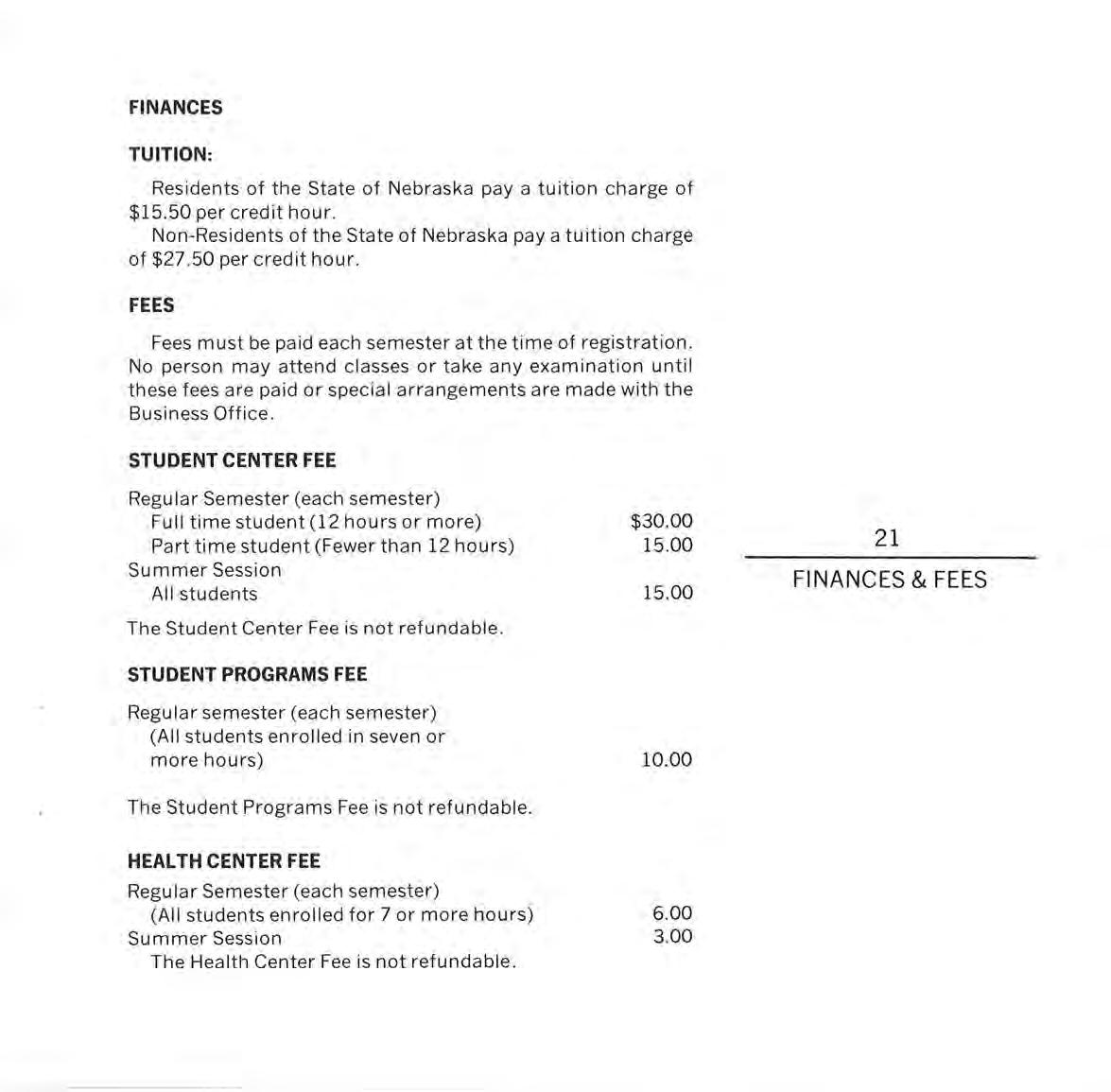
Regular semester (each semester)
(All students enrolled in seven or more hours)
The Student Programs Fee is not refundable.
Regular Semester (each semester)
(All students enrolled for 7 or more hours)
Summer Session
The Health Center Fee is not refundable .
Identification Card
Regular Semester students enrol led in seven or more hour s will be required to purchase a student I.D. Card for each academic year.
Motor Vehicl e Registration
Every Regular Semester day student operating a motor vehicle in the city of Peru is required to register the vehicle with the College .
Admission-Matriculation Fee
An Admission-Matriculation fee of $10 must accompany all applications for admission. This fee is not refundable and it does not app ly toward tu it ion.
Late Registration Fee
Effective the first day of classes
Late or Make-up Exam
Validation of Course for Credit
Private Music Lessons (per lesson) (Charged to Non-Music Majors)
Graduation Fee
Includes cap and gown rental
Replacement of I.D. Card
Dual Degree Transcript (after first copy) Placement Bureau Subscription

(For each placement year Sept.-Aug.)
Student Spouse Activity Ticket (per semester) Course Fees
Some courses require additional materials or laboratory fees
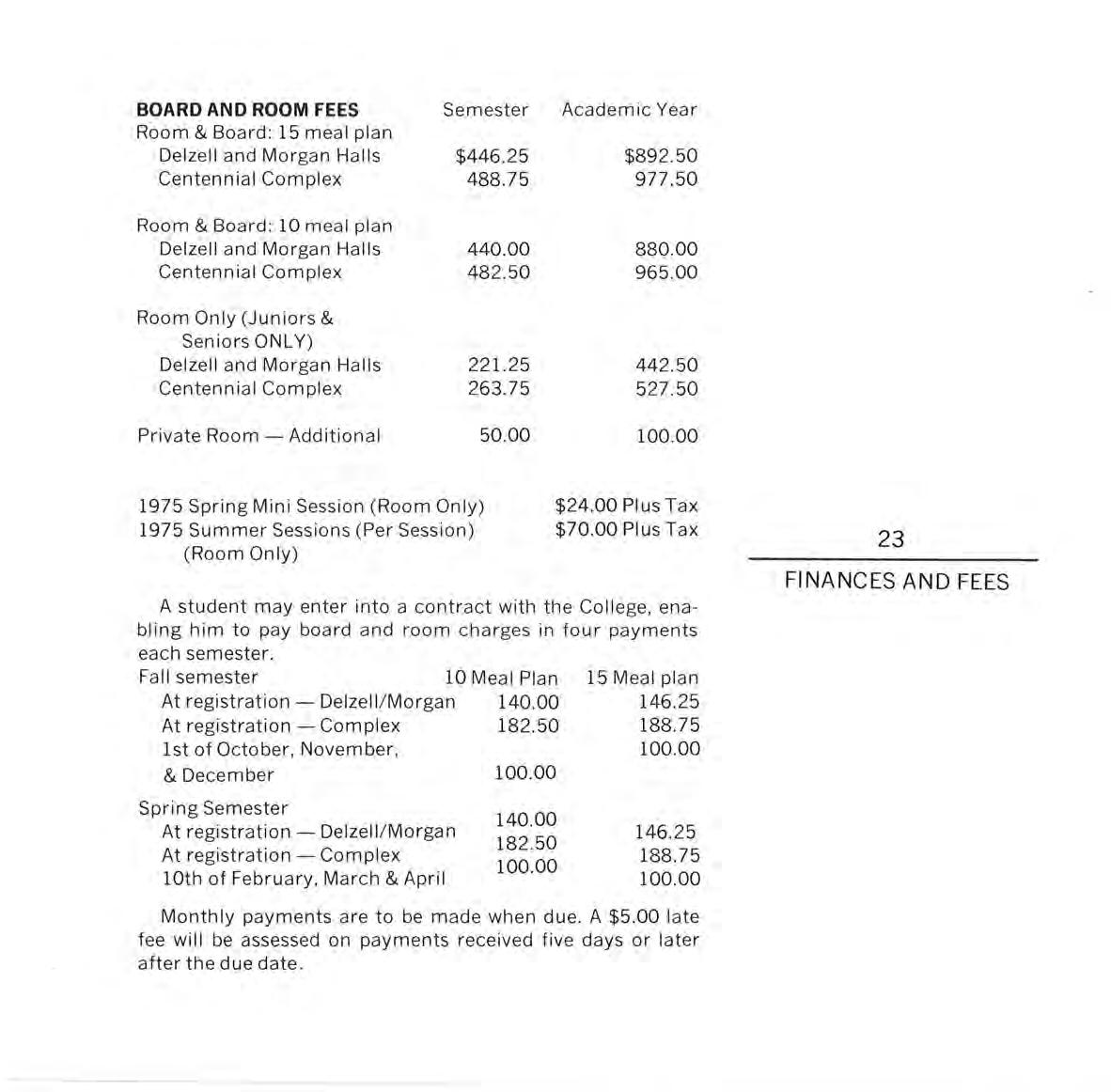
Room & Board : 15 meal plan
Delzell and Morgan Halls
Centennial Complex
Room & Board: 10 meal plan
Delzell and Morgan Halls
Centennial Complex
Room Only (Juniors & Seniors ONLY)
Delzell and Morgan Halls
Centennial Complex
Private Room -Additional
1975 Spring Mini Session (Room Only)
1975 Summer Sessions (Per Session) (Room Only)
$24 .00 Plus Tax
$70.00 Plus Tax
A student may enter into a contract with the College, enabling him to pay board and room charges in four payments each semester .
Monthly payments are to be made when due . A $5.00 late fee will be assessed on payments received five days or later after the due date.
If a student withdraws from the College before the end of a term, board and room are refundable on a pro-rated basis. Refund begins when a student is properly c heck ed out and has surrendered his meal ticket. Students who remain in school , but move from a residence hall while under contract, will not be entitled to a refund of board and room payments. In case of illness, refund of board only will be made, providing the student has missed no less than ten (10) consecutive class days.
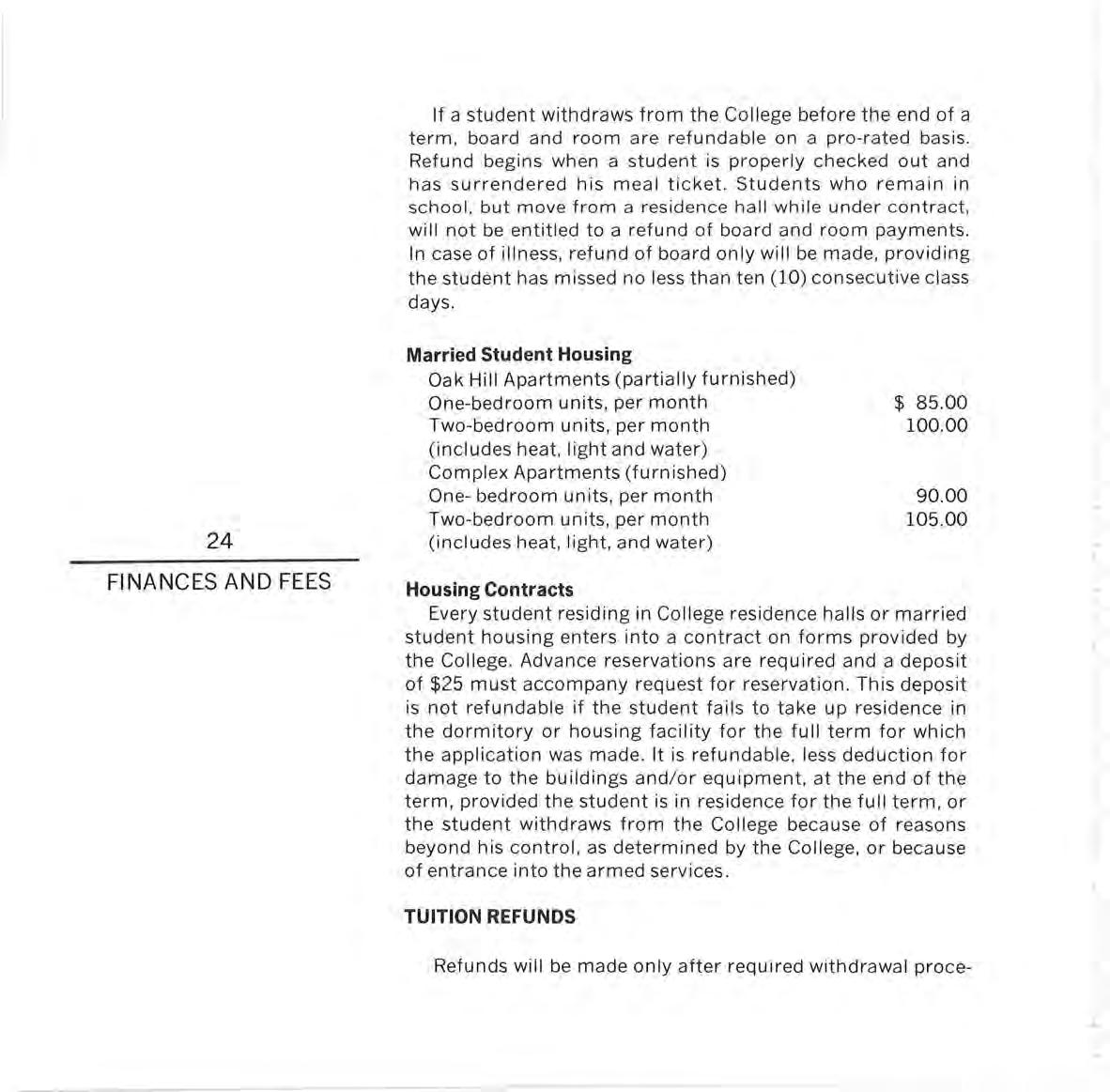
Oak Hill Apartments (partially furnished)
One-bedroom units, per month
Two-bedroom units, per month
(includes heat, li g ht and water)
Complex Apartments (furnished)
One- bedroom units , per month
Two-bedroom
Every student residing in College residence halls or married student housing enters into a contract on forms provided by the College. Advance reservations are required and a deposit of $25 must accompany request for reservation. This deposit is not refundable if the student fails to take up residence in the dormitory or housing facility for the full term for which the application was made. It is refundable, less deduction for damage to the b uildings a nd /or equipment, at the end of the term, provided the student is in residence for the full term, or the student withdraws from the College because of reasons beyond his co ntrol , as determined by the College , or because of entrance into the armed services.
Refunds will be made only after required withdrawal proce-
dures are completed. Refunds will be made as of date of approved withdrawal.
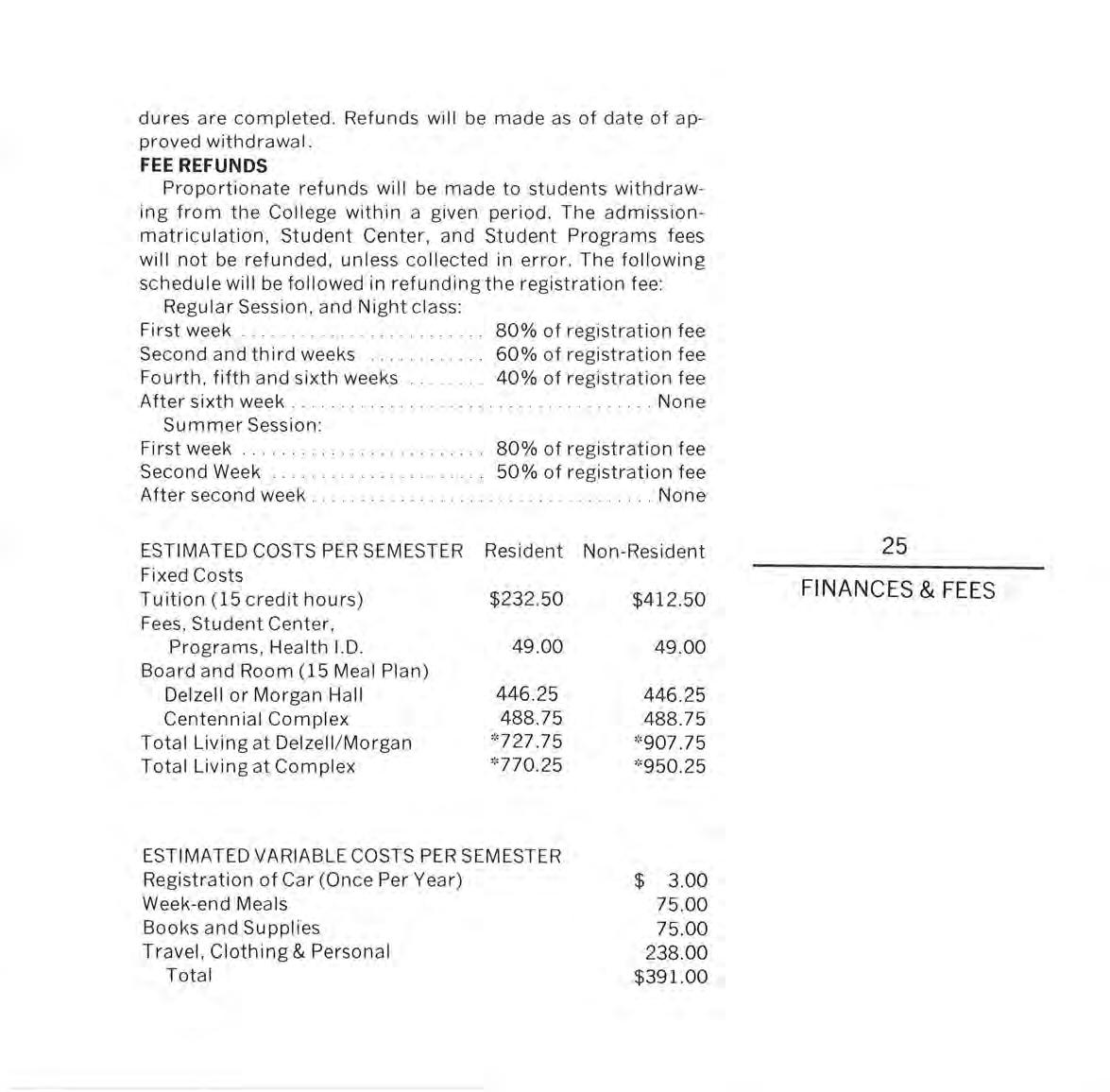
Proportionate refunds will be made to students withdrawing from the College within a given period. The admissionmatriculation, Student Center, and Student Programs fees will not be refunded, unless collected in error. The following schedule wi l l be followed in refunding the registration fee:
Second
,:'Tuition, Fee and/or Board and Room charges may be changed at any time by the Board of Trustees of the Nebraska State Colleges
The purpose of financial assistance is to provide students with sufficient funds to meet al l costs of obtain in g a college education beyond what they and their parents are ab l e to provide . Thus , f in ancia l a id enables many students from low and middle income families to attend col l ege who could not otherwise afford that opportunity.
Any assistance granted is awarded accord in g to the financ i a l need of the app li cant. (Financial need is the difference between the money a student a nd his pa rents can provide for an ed u cation and the costs of that educat i on.) T o be considered for ass istance, the applicant must demonstrate financial need.
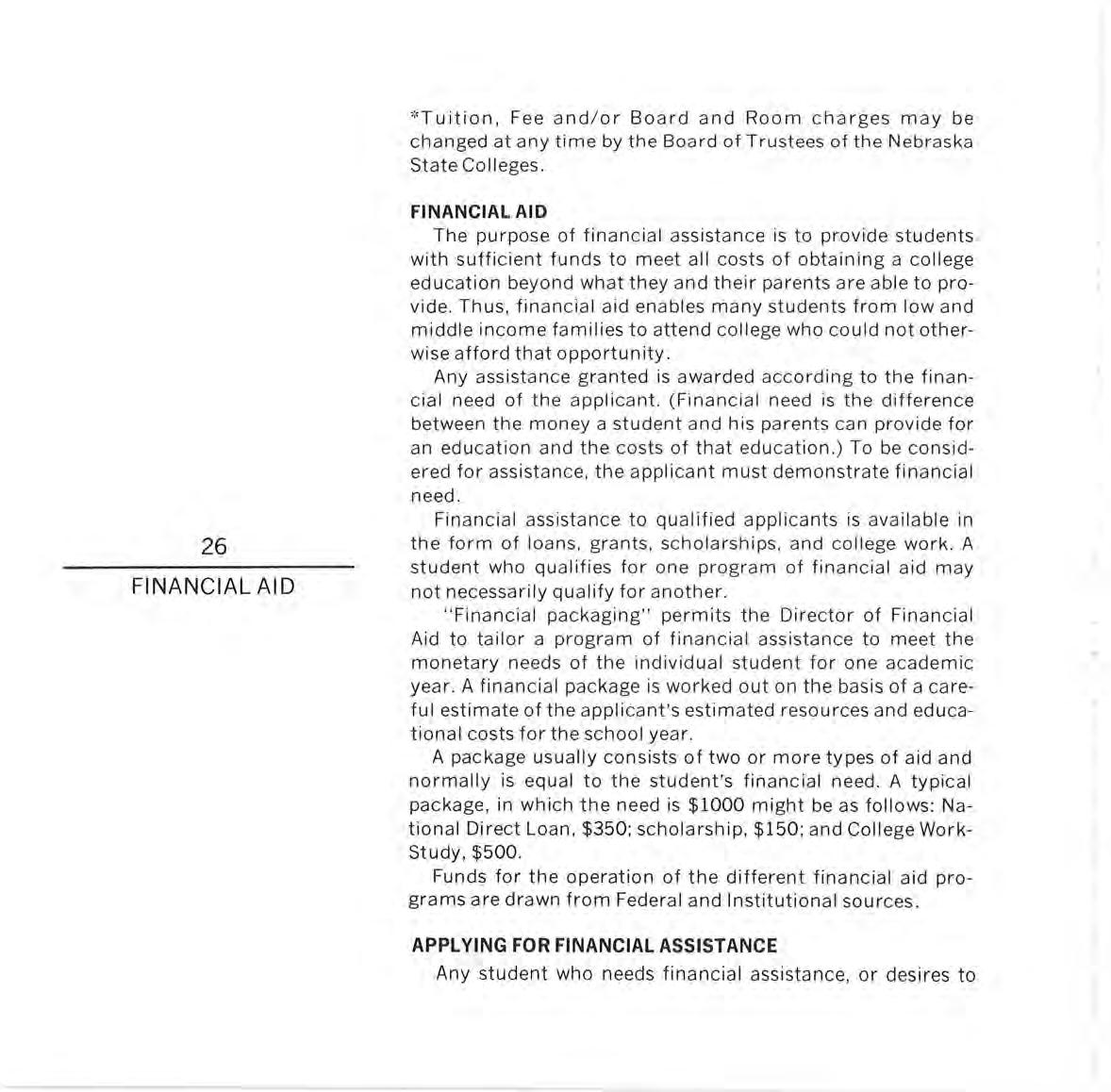
Financial assistance to qualified app li cants i s avai l ab l e in the form of l oans , grants , scho l arships, and co l lege work . A student who qua lif ies for one program of financi a l aid may not necessarily qualify for another.
"Financia l packaging " permits the Director of Financial Aid to tailor a program of financial assistance to meet the monetary needs of the individual student for one academ ic year . A financial package is worked out on the basis of a careful estimate of the app li cant's estimated resources and educational costs for the school year.
A package usually consists of two or more types of aid and normally is equa l to the student ' s financial need. A typical package, in which the need is $1000 might be as follows: National Direct Loan, $350; scholars hip , $150; and College WorkStudy, $500.
Funds for the operation of the different financial aid programs are drawn from Federal and In stitutiona l sources .
Any student who needs financial assistance, or desires to
apply for a scholarship, should contact the Director of Financial Aid . Students are advised to begin the application procedure well before the deadline date , because establishing financial need is often a lengthy process . Applications for fin a ncial assistance for the coming year should be submitted to the Financial Aids office by April 15 .
Basic Educational Opportunity Grant - BEOG. The Higher Education Amendments of 1972 established a Basic Edu c ational Opportunity Gr a nt. The size of the grant is determined after considering the cost of attending the college and the Family Educational cost contribution. This family contribution is determined from a Financial Statement whi c h is a part of the Application
1. Obtain an application from your High School Counselor, College or Post Office . (Applications for 1975-76 school year w i ll probably be available after February 1, 1975)
2 . Complete the application and mail in the self a ddr essed envelope provided.
3 . The center will process your application and return to you a three-copy "Student Eligibility Report." SER
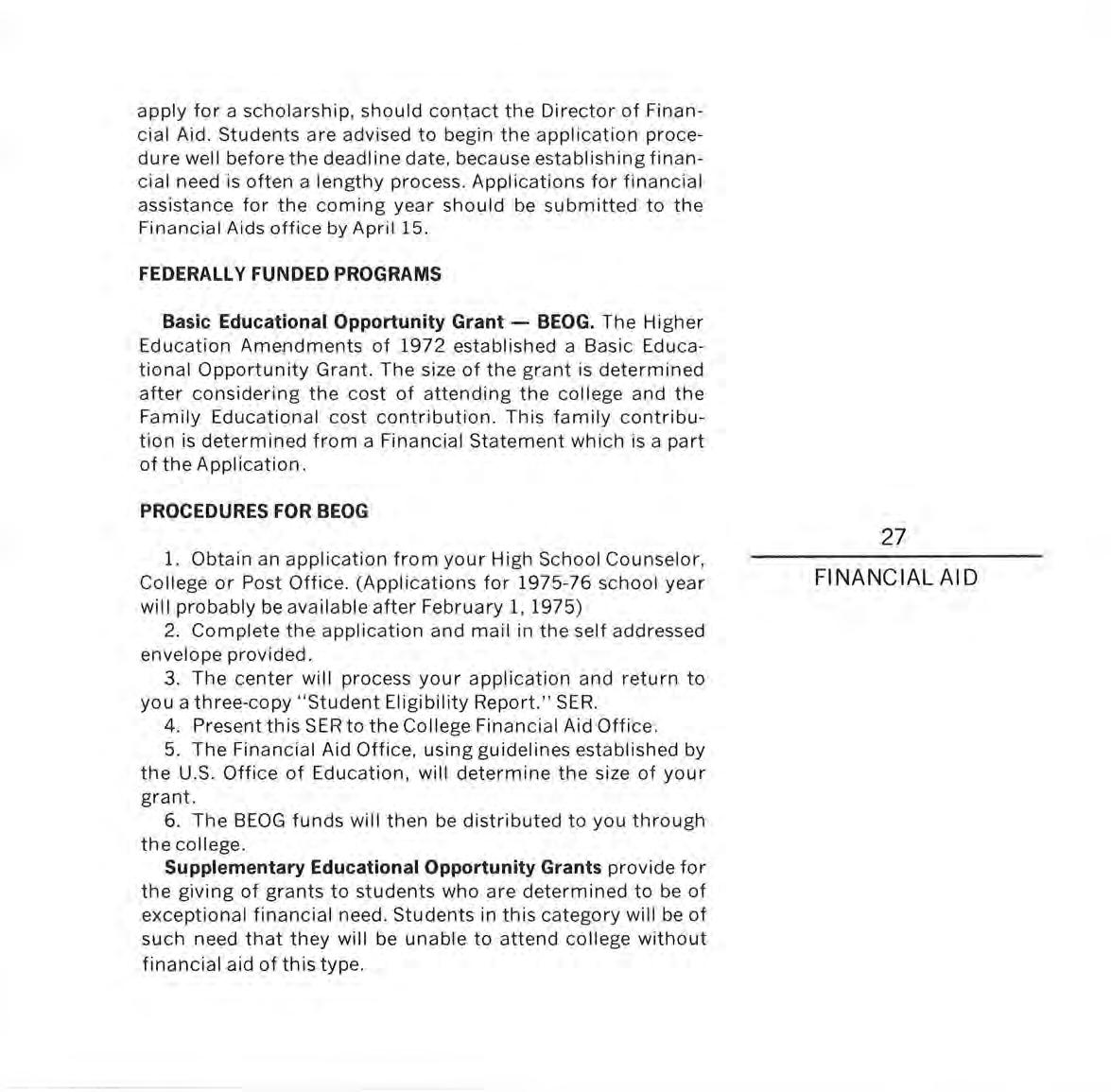
4 . Present this SER to the College Financial Aid Office .
5 The Financial Aid Office , using guidelines established by the U S. Office of Education, will determine the size of your grant .
6 The BEOG funds will then be distributed to you through the college .
Supplementary Educational Opportunity Grants provide for the giving of grants to students who are determined to be of exceptional financial need. Students in this category will be of such need that they will be unable to attend college without financial aid of this type.
The SEOG amounts range from $200 to $1000 a year, and can be no more than one-half of the total assistance given a student. The grant is " matched " with other financial aid to meet the student's financial need Grants are awarded on a yearly basis , with the maximum duration of a grant being four years.
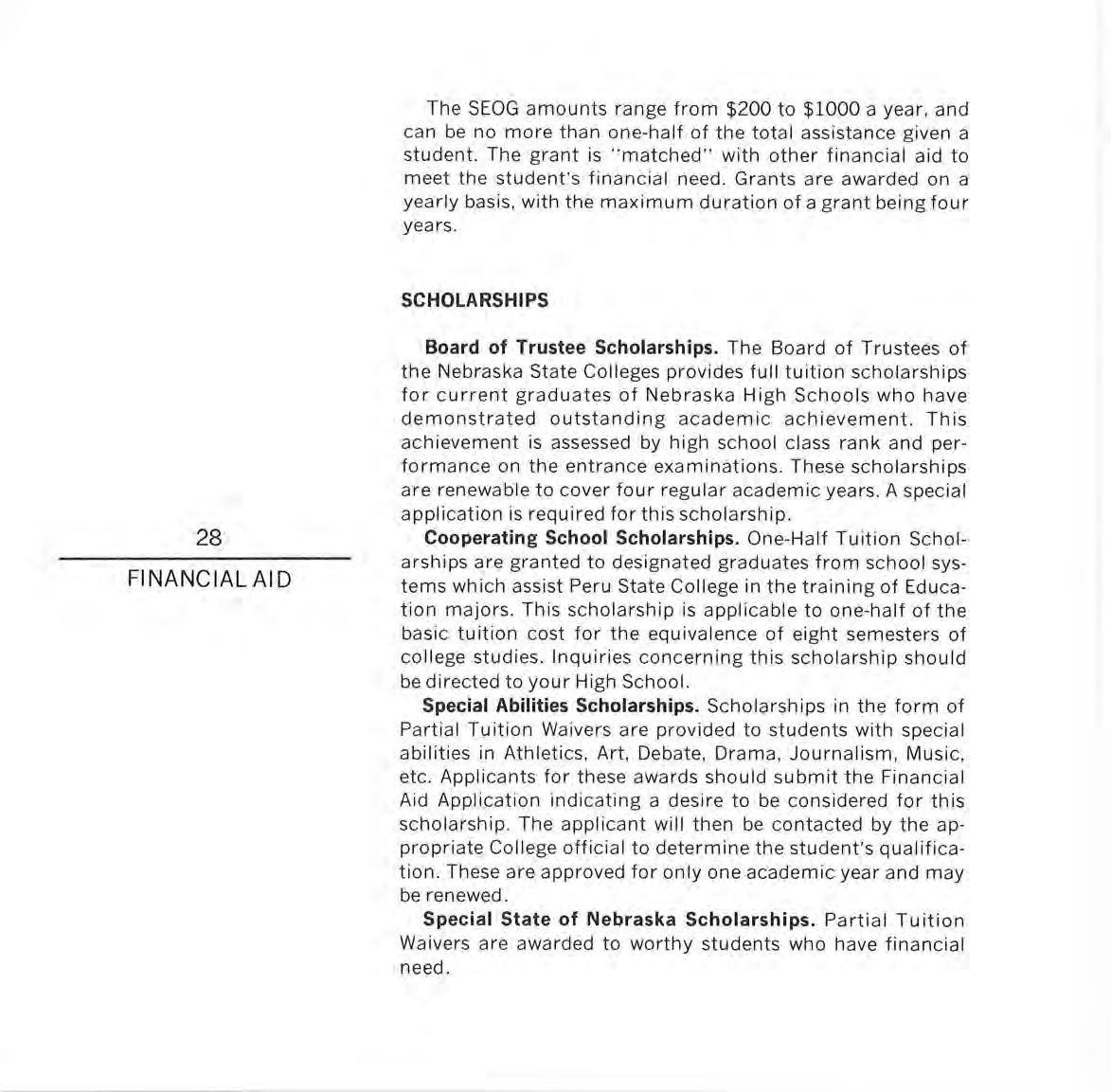
Board of Trustee Scholarships. The Board of Trustees of the Nebraska State Colleges provides full tuition scholarships for current graduates of Nebraska High Schools who have demonstrated outstanding academic achievement. This achievement is assessed by high school class rank and performance on the entrance examinations . These scholarships are renewable to cover four regular academic years. A special application is required for this scholarship.
Cooperating School Scholarships. One-Half Tuition Scholarships are granted to designated graduates from school systems which assist Peru State College in the training of Education majors. This scholarship is applicable to one-half of the basic tuition cost for the equivalence of eight semesters of college studies. Inquiries concerning this scholarship should be directed to your High School.
Special Abilities Scholarships. Scholarships in the form of Partial Tuition Waivers are provided to students with special abilities in Athletics , Art , Debate, Drama , Journalism , Music , etc . Applicants for these awards should submit the Financial Aid Application indicating a desire to be considered for this scholarship. The applicant will then be contacted by the appropriate College official to determine the student's qualification. These are approved for only one academic year and may be renewed .
Special State of Nebraska Scholarships. Partial Tuition Waivers are awarded to worthy students who have financial need.
Foreign Student Scholarships. Full- tuition scholarships are awarded annually to qualified undergraduate students who are citizens of other countries. Candidates tor such scho l arships must present proof of ability to defray expenses other than tuition and tees. Applications tor admission must be ti led with the Admissions Office no later than June 1, prior to fall entrance.
Peru Achievement Foundation Scholarships. Through the generosity of alumni and friends of Peru State College, the Peru Achievement Foundation, Inc., awards scholarships which have been established on a permanent basis. A listing of the amounts and qualifications tor Scholarships that are awarded through the Foundation can be found at the conclusion of the information on Financial Aid Students may make application tor a specific scholarship or any avai l ab le scholarship on the College's scho l arsh ip application form, which may be obtained from the office of the Director of Financial Aids.
College Work-Study is intended pri ma ri ly tor students from low-income families and permits them to earn a part of their co llege expenses. During the time they are attend in g c lasses full time, the student can work a maximum of 15 hours per week. During vacation periods the students may be a llowed to work 40 hours per week. Work-Study jobs are usually on-campus or tor the city of Peru, and are vital to the efficient operation of both the College and the city. College Work-Study jobs are often used tor matching purposes with a student's SEOG grant.
National Direct Student Loans are made to students who need financial assistance in meeting educational expenses. To be eligible, the student must be in good standing and be registered as a full-time student. NDSL loans are also commonly used tor matching purposes with an SEOG .
Federally Insured Student Loans are intended primarily tor students who do not quality tor the other programs of financial assistance but who, nonetheless, need financial help .
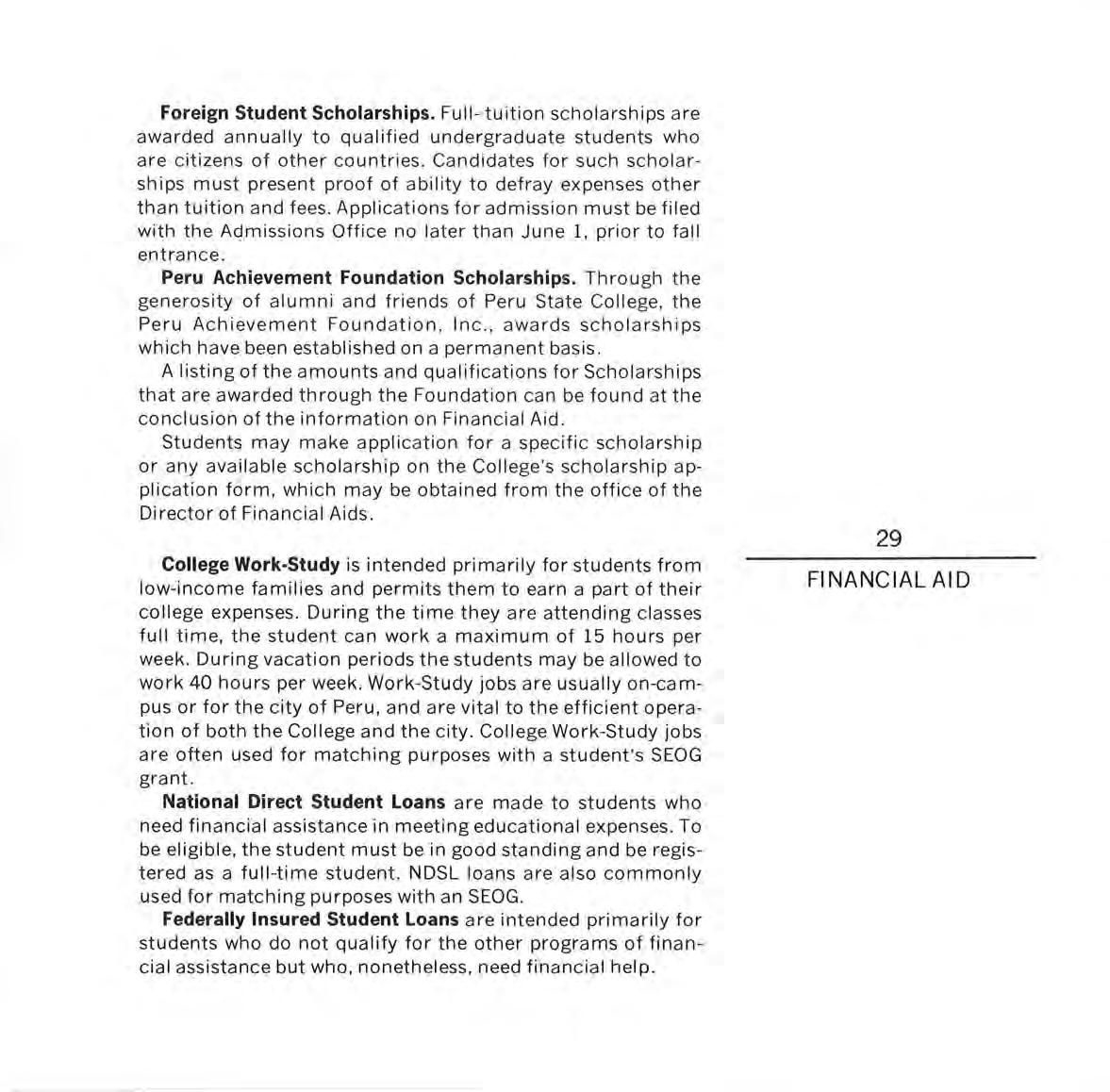
College Work jobs are similar to the Work-Study jobs in pay scale, type of work performed, and hours worked.
Memorial Loan Funds established by various donors include: the $200 Willie Ethel Crone Loan Fund, established in 1943 by Miss Ruth Crone in memory of her mother; the $300 Harriet Louise Lindstrom Loan Fund, estab lished in 1946 by the late C. R. Lindstrom and Mrs . Lindstrom in memory of their daughter; the Mrs . Eva Fischer Loan Fund provided in 1962 by a $500 bequest by the late Mrs.Eva Fischer of Beatrice; the Towne Loan Fund provided by a $1,411.24 bequest by the late Norman L. Towne of Bozeman, Montana, husband of the late Lola Howe Towne, class of 1906; the $250 Patricia Buethe Loan Fund, established in 1962 by friends of the late Mrs. L. Chris Buethe.
Although there is some variation in the specific requirements for these loans, the general qualifications are the same as for the College Loan Fund: (1) be a student in the College , (2) plan to teach, (3) be in need of financial assistance. Loans from the College Loan Fund and Memorial Loan Fund are generally made on a short-term basis.
Scholarships are granted by the Nebraska Congress of Parents and Teachers to full-time students of the Nebraska State Col leges who are Nebraska residents training to become teachers. In order to be eligible for these scholarshipswhich vary in number with available funds - the student must have a pleasing personality, have high moral and social standards, and show an aptitude for teaching. Applications are sent to the College by the Nebraska Congress of Parents and Teachers shortly after the beginning of the fall semester
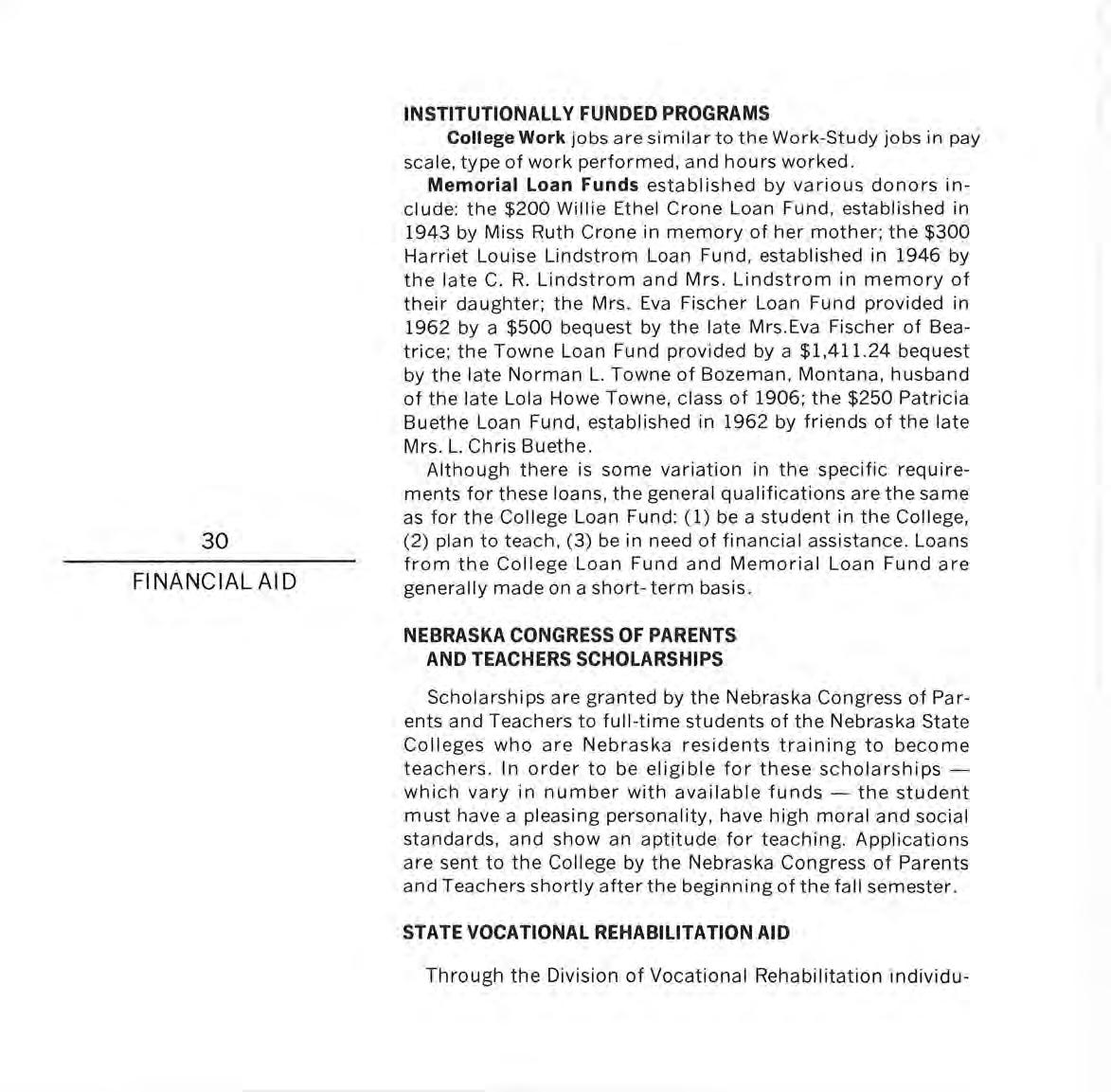
als with physical disabilities which constitute vocational handicaps are eligible for financial assistance in meeting costs of tuition, plus certain other financial help , depending upon the extent of their financial need .
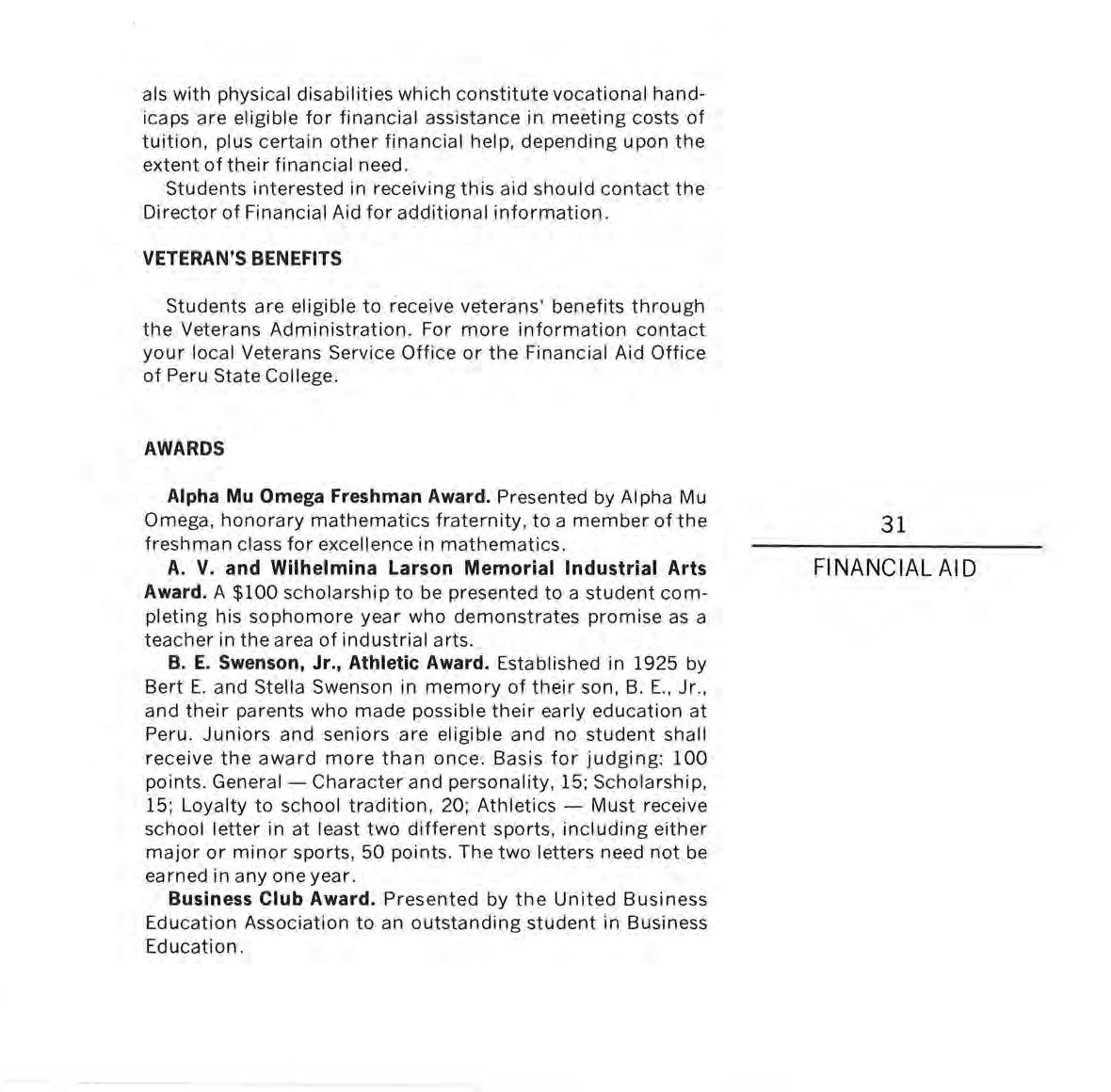
Students interested in receiving this aid should contact the Director of Financial Aid for additional information.
Students are eligible to receive veterans ' benefits through the Veterans Administration. For more information contact your local Veterans Service Office or the Financial Aid Office of Peru State College.
Alpha Mu Omega Freshman Award. Presented by Alpha Mu Omega, honorary mathematics fraternity, to a member of the freshman class for excellence in mathematics.
A. V. and Wilhelmina Larson Memorial Industrial Arts Award. A $100 scholarship to be presented to a student completing his sophomore year who demonstrates promise as a teacher in the area of industrial arts.
B. E. Swenson, Jr., Athletic Award. Established in 1925 by Bert E. and Stella Swenson in memory of their son, B E., Jr., and their parents who made possible their early education at Peru. Juniors and seniors are eligible and no student shall receive the award more than once. Basis for judging : 100 points . General - Character and personality, 15; Scholarship, 15; Loyalty to school tradition , 20; Athletics - Must receive school letter in at least two different sports, including either major or minor sports, 50 points The two letters need not be earned in any one year.
Business Club Award. Presented by the United Business Education Association to an outstanding student in Business Education.
Dramatic Club Awards. Presented each year to the senior man and senior woman who have contributed most to dramatics during the four years in the College.
Kappa Delta Pi Educational Award. Presented by the Beta Mu Chapter of Kappa Delta Pi, national honorary educational fraternity, to the freshman whose scholarship and professional attitude are outstanding.
Louise Mears Geographical Award. Presented to a student with high scholastic performance in the field of geography.
Neal S. Gomon Award. The Neal S. Gomon Award is presented annually to the Pedagogian staff member who is voted most outstanding in his contributions to the paper .
John C. Christ Award. An award established in honor of Dr. John C. Christ. Professor of Biological Science . The award of fifty dollars is to be given to an outstanding high school senior who plans to major in the natural sciences at Peru State College.
Sigma Tau Delta Award. Students of high scholastic standing who have shown an outstanding interest in literature and have properly submitted samples of their original writings may be presented memberships in Sigma Tau Delta.

Silas Summers Writing Award. The Sigma Tau Delta National honorary English fraternity, and the English Club present cash awards for the best original written contributions . Winning scripts may be published in the Sifting Sands.
Zelma R. Wonderly Award. An annual award of $50 to the outstanding second grade student teacher
Pearl A. Kenton Language Arts Award. A $50 award is presented annually to an outstanding student majoring in the area of language arts.
Helen E. Cole Pollard Founders Award. Presented at spring honors convocation to the senior who during his collegiate career has demonstrated loyalty and service to the College.
Mac Dunning Industrial Arts Award. A $50 annual cash grant to an outstanding student in the area of industrial arts.
Bill Tynon Memorial Athletic Award. A $50 award is presented to a Nebraska resident for his senior year who has made an
outstanding contribution to intercollegiate athletics.
A. B. Clayburn Memorial Award. A $100 award is for a junior in teacher education who is majoring in social sciences and has displayed the qualities of outstanding citizenship, progress, and potential.
Lura Hendricks Eichler Memorial Kindergarten Education Award. The $50 award is presented annually to a student who has demonstrated ability , aptitude , and interest in kindergarten education.
A. V. Larson Award. Presented to the student contributing most to the College yearbook.
Chemistry Award. The Chemical Rubber Co. has made available the New 53rd Edition of the CRC Handbook of Chemistry and Physics and a scroll to be presented to the student ranking at the top in the freshman chemistry courses.
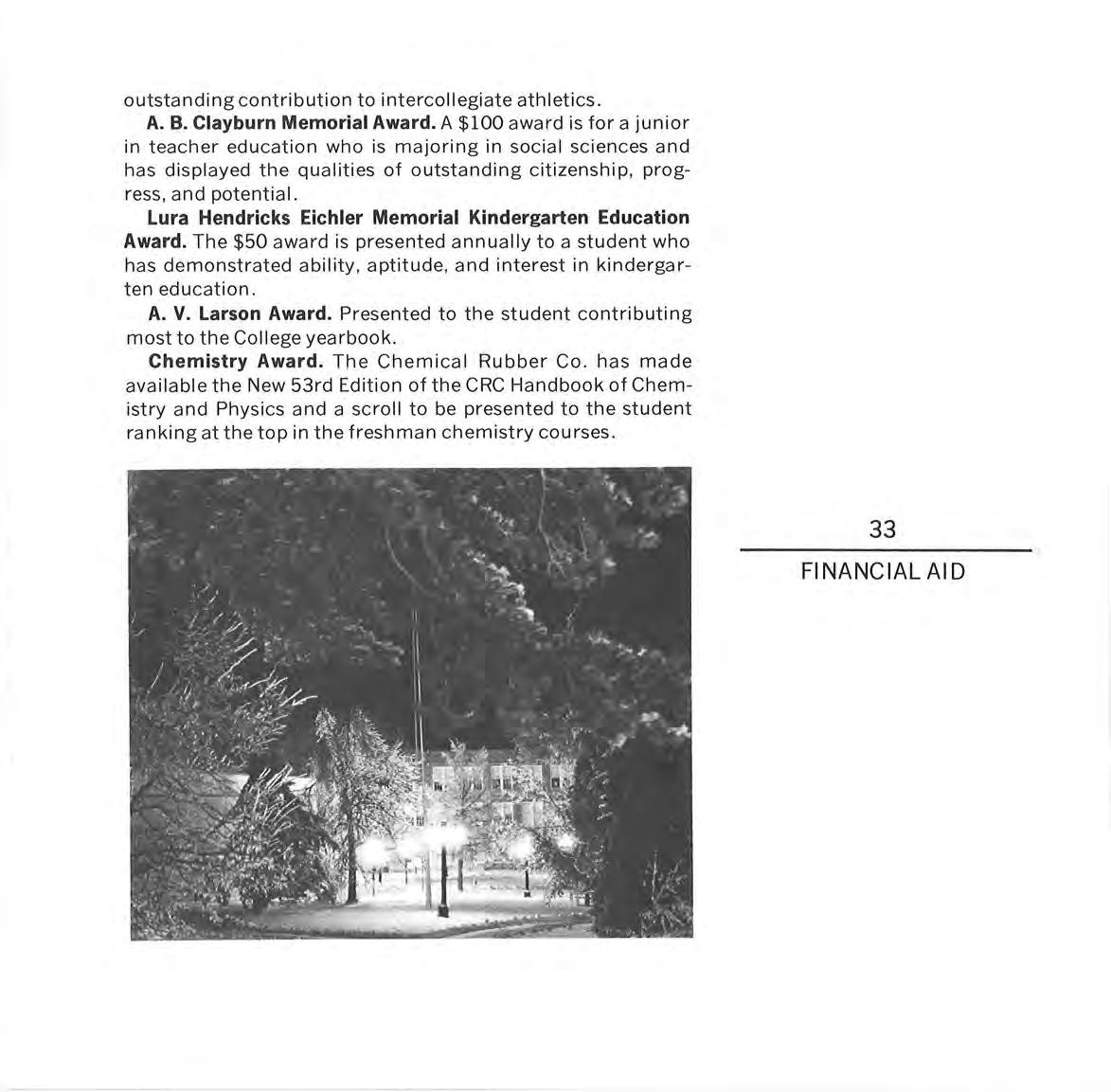
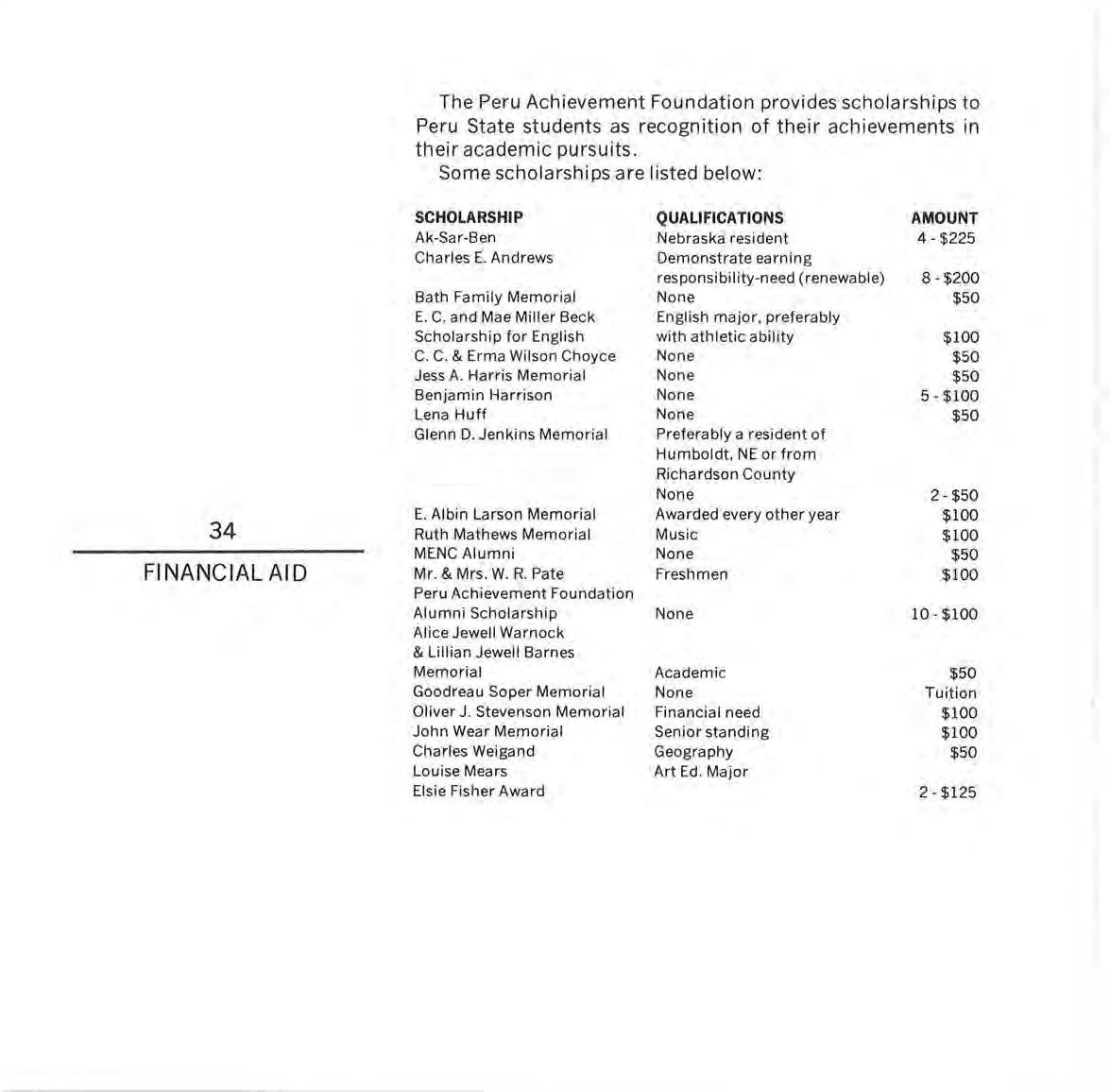
The Peru Achievement Foundation provides scholarships to Peru State students as recognition of their achievements in their academic pursuits.
Some scholarships are listed below:
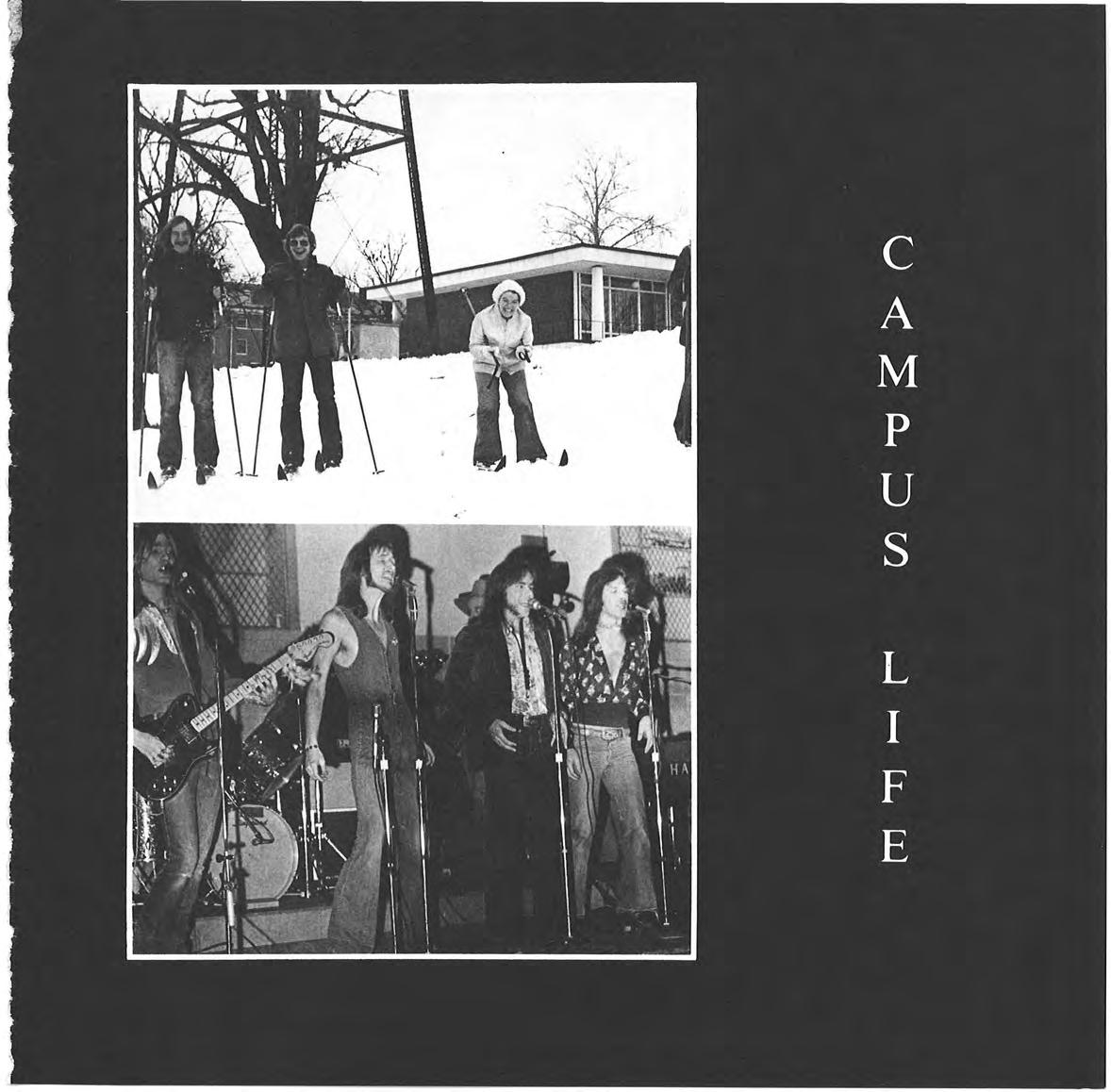
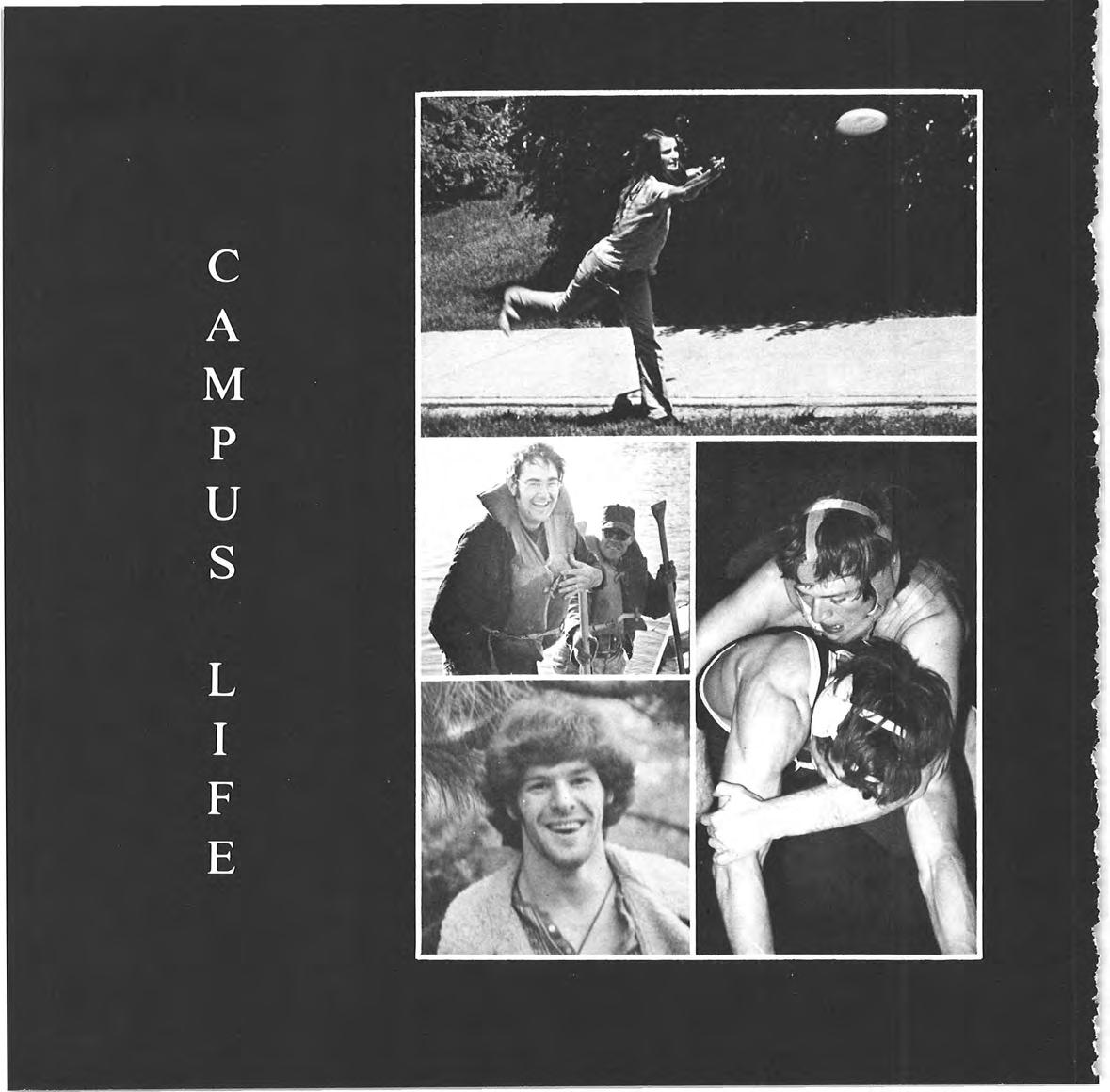
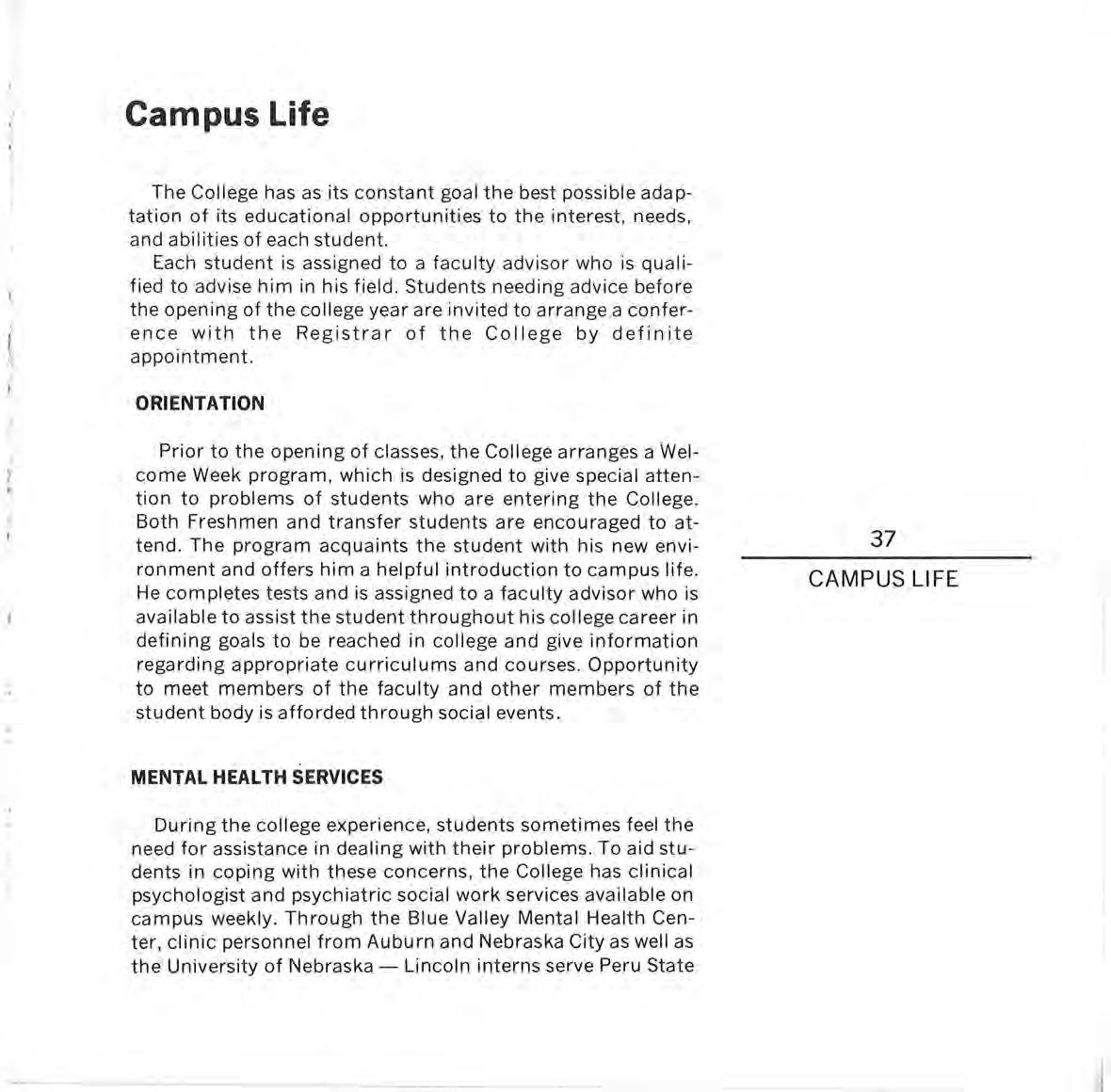
The College has as its constant goal the best possible adaptation of its educational opportunities to the interest, needs, and abilities of each student.
Each student is assigned to a faculty advisor who is qualified to advise him in his field. Students needing advice before the opening of the college year are invited to arrange a conference with the Registrar of the College by definite appointment.
Prior to the opening of classes, the College arranges a Welcome Week program, which is designed to give special attention to problems of students who are entering the College. Both Freshmen and transfer students are encouraged to attend. The program acquaints the student with his new environment and offers him a helpful introduction to campus life. He completes tests and is assigned to a faculty advisor who is available to assist the student throughout his college career in defining goals to be reached in college and give information regarding appropriate curriculums and courses. Opportunity to meet members of the faculty and other members of the student body is afforded through social events.
During the college experience, students sometimes feel the need for assistance in dealing with their problems . To aid students in coping with these concerns, the College has clinical psychologist and psychiatric social work services available on campus weekly. Through the Blue Valley Mental Health Center, clinic personnel from Auburn and Nebraska City as well as the University of Nebraska - Lincoln interns serve Peru State
students on a cost - free basis. In addition to the above services, crisis intervention counseling is available via the campus minister through the auspices of the United Ministries to Higher Education
Peru State routinely administers The American College Assessment Program, the College Level Examination Program and the Teacher Education Examination Program In addition, other tests are available on an individual basis in the areas of mental ability, personal adjustment and interest in conjunction with the Blue Valley _Mental Health Center Services.
Teacher Placement. Peru State College maintains a central office for the confidential recommendations of students and alumni . Each candidate is to provide personal information and recommendations that will assist him in securing a position. Prospective employers may receive credentials without charge.
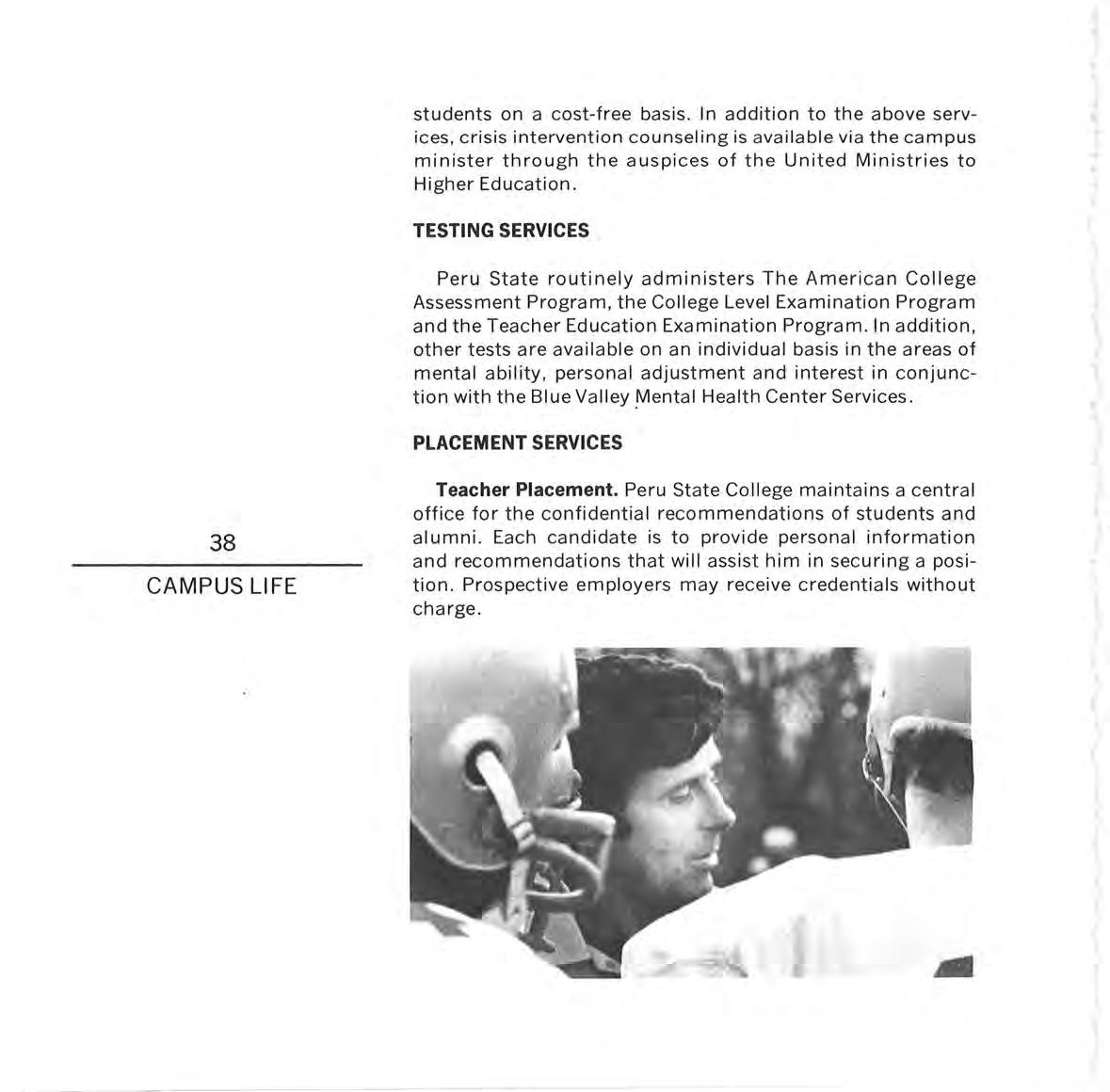
Business and Industrial Placement. Assistance is given students in finding full time employment in business, industry, and governmental services. Literature on various companies is available to students who may be interested .
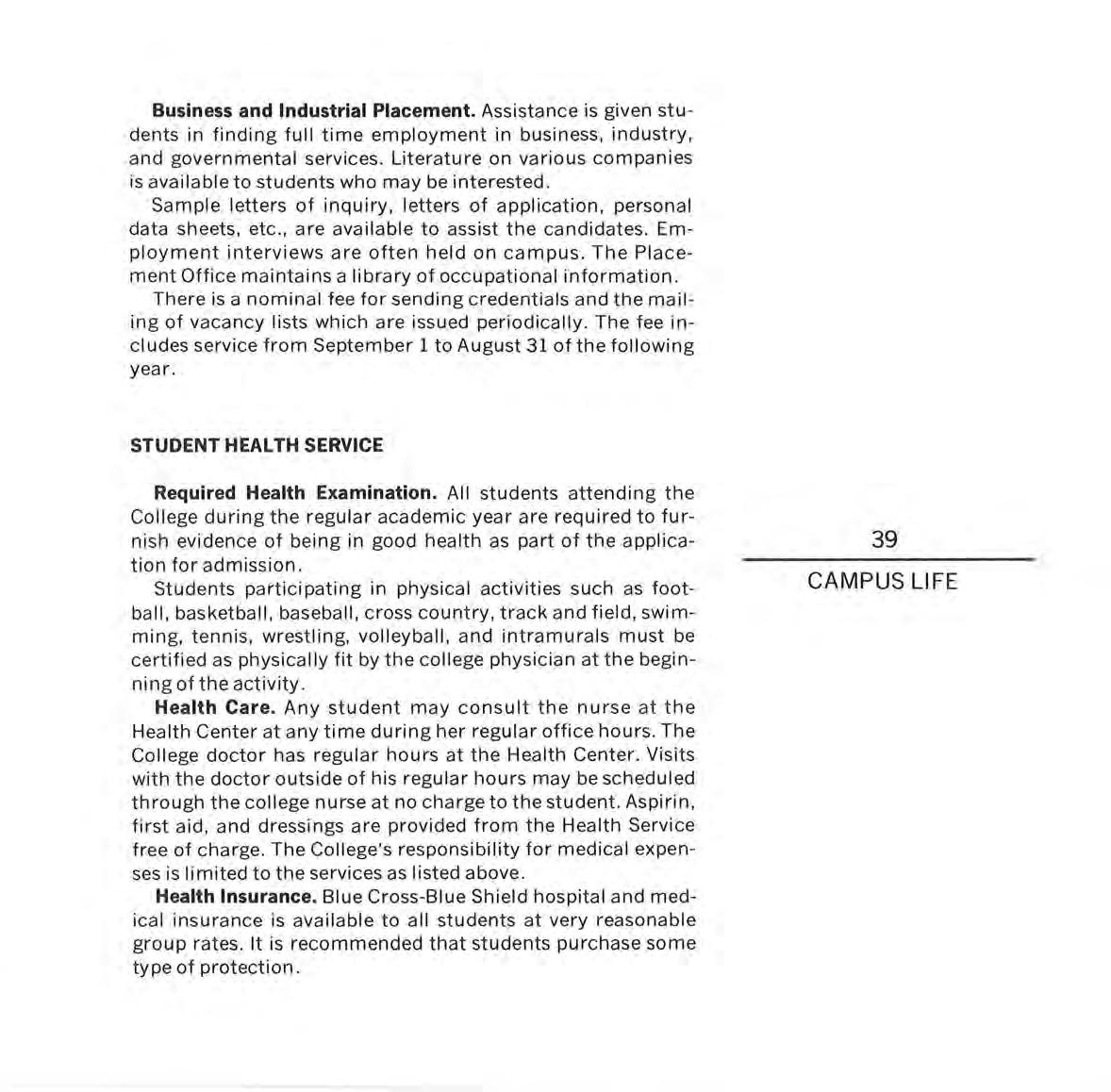
Sample letters of inquiry, letters of application, personal data sheets, etc ., are available to assist the candidates. Employment interviews are often held on campus. The Placement Office maintains a library of occupational information
There is a nominal fee for sending credentials and the mailing of vacancy lists which are issued periodically. The fee includes service from September 1 to August 31 of the following year.
Required Health Examination. All students attending the College during the regular academic year are required to furnish evidence of being in good health as part of the application for admission.
Students participating in physical activities such as football, basketball, baseball, cross country, track and field, swimming, tennis, wrestling, volleyball, and intramurals must be certified as physically fit by the college physician at the beginning of the activity.
Health Care. Any student may consult the nurse at the Health Center at any time during her regular office hours . The College doctor has regular hours at the Health Center. Visits with the doctor outside of his regular hours may be scheduled th rough the college nurse at no charge to the student. Aspirin , first aid , and dressings are provided from the Health Service free of charge. The College's responsibility for medical expenses is limited to the services as listed above.
Health Insurance. Blue Cross-Blue Shield hospital and medical insurance is available to all students at very reasonable group rates . It is recommended that students purchase some type of protection .
All requests for inform ation concerning living accommodations and requests for room reservations in one of the residence halls shou l d be directed to the Housing Office. Schedule of room and board rates i s li sted in the Fin ancia l Inform ation Section.
Residence Halls - The College residence halls are considered the last word in housing, in corporating features most conducive to study, rest, and wholesome living. A full -time adu lt and student ass i stants offer a program for individual ad vi s in g and aid each resident in deve lopin g his social, educational, and recreational interests
Students are respons ibl e for c l ean in g their own rooms. Cleaning equipment is ava il able and may be checked out from the hall office. Students are a l so responsible for supp lyin g their own lin en and bedding, in cluding pillows and mattress pads Residents are welcome to bring other persona l belongin gs from home such as radios, stereos, etc.
The low er l eve l of each hall is equ ipp ed with kitchen faci l ities, washers and dryers, and recreation equipment suc h as pool and ping pong tables
All unmarried freshman and sophomore students, except those livin g w ith parents or g u ardians, must liv e in co ll ege residence halls. Except ions to this wi ll be handled by the Co ll ege on an in d ivi dua l basis, with requests for except i ons to be subm it ted to the Housing Office. For detai ls concerning specif ic regu lat ion s and act iviti es of the residence halls refer to the "Res id ence Hall Handbook" which may be obtained from the Housing Office.
Centennial Complex - In the fa ll of 1967 a new coeducational residence hall facility was opened to commemorate Peru State's first hundr ed years of service to state and nation . The Centennial Complex cons i sts of three groups of two residence halls each, joined together by g lass walkways. Davidson and Palmer Halls house women, Clayburn and Mathews Halls
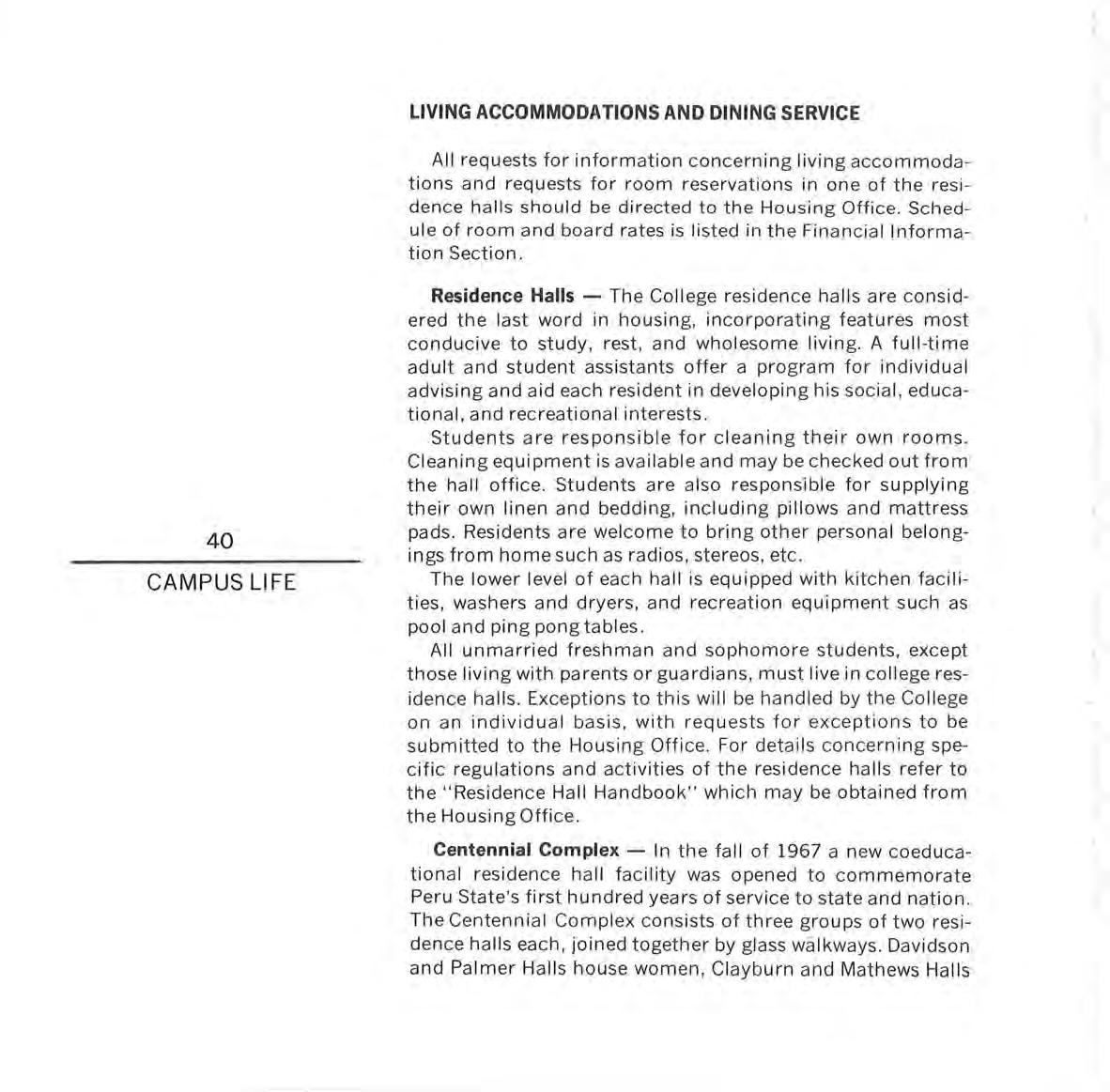
house men and Nicholas and Pate Halls house married students and visitors to the campus.
The rooms are arranged as suites. Each suite is complete with a living room, two or three bedrooms, and a bath . Each suite accommodates four to six people. Wall -to-wall carpeting in the living room is complemented by color-coordinated sofa, chairs, and draperies. A coffee table, end tables , lamps and a large picture window complete the room. Each bedroom features built-in desks, study lights, and bookcases, plus twin beds with mattresses and box springs, dressers, chairs, drapes and closets with shelves, providing ample storage space.
Delzell Hall - Delzell Hall, an ivy-covered Gothic-styled structure, houses approximately 150 men. The spacious, carpeted living room is furnished with comfortable sofas, chairs, a color television set, a fireplace, and a piano.
There are four floors of rooms arranged as combination sleeping and study rooms. Each room houses two students. A built - in combination dresser and desk, a bookcase, and a bulletin board are furnished each student as well as a metal frame twin bed with box springs and innerspring mattress, draperies, and a waste basket. In addition to a large walk - in closet, a lavatory, and a medicine cabinet. which are shared with the roommate, each student is provided with an individual built-in wardrobe. The room floors are asphalt tile; and the corridors are carpeted. There is a large shower room of ceramic tile and marble centrally located on each floor
Eliza Morgan Hall - Eliza Morgan Hall, located in the northwest corner of the campus was opened in 1929 The recently renovated "L" shaped building has four floors and houses approximately 170 women. The carpeted living room is furnished with comfortable sofas, chairs, a color television set and a piano.
All rooms are arranged as combination sleeping and study rooms for two students. Each student is furnished with a desk, dresser, bulletin board and waste basket as well as a metal frame twin bed with box springs and innerspring mattress and
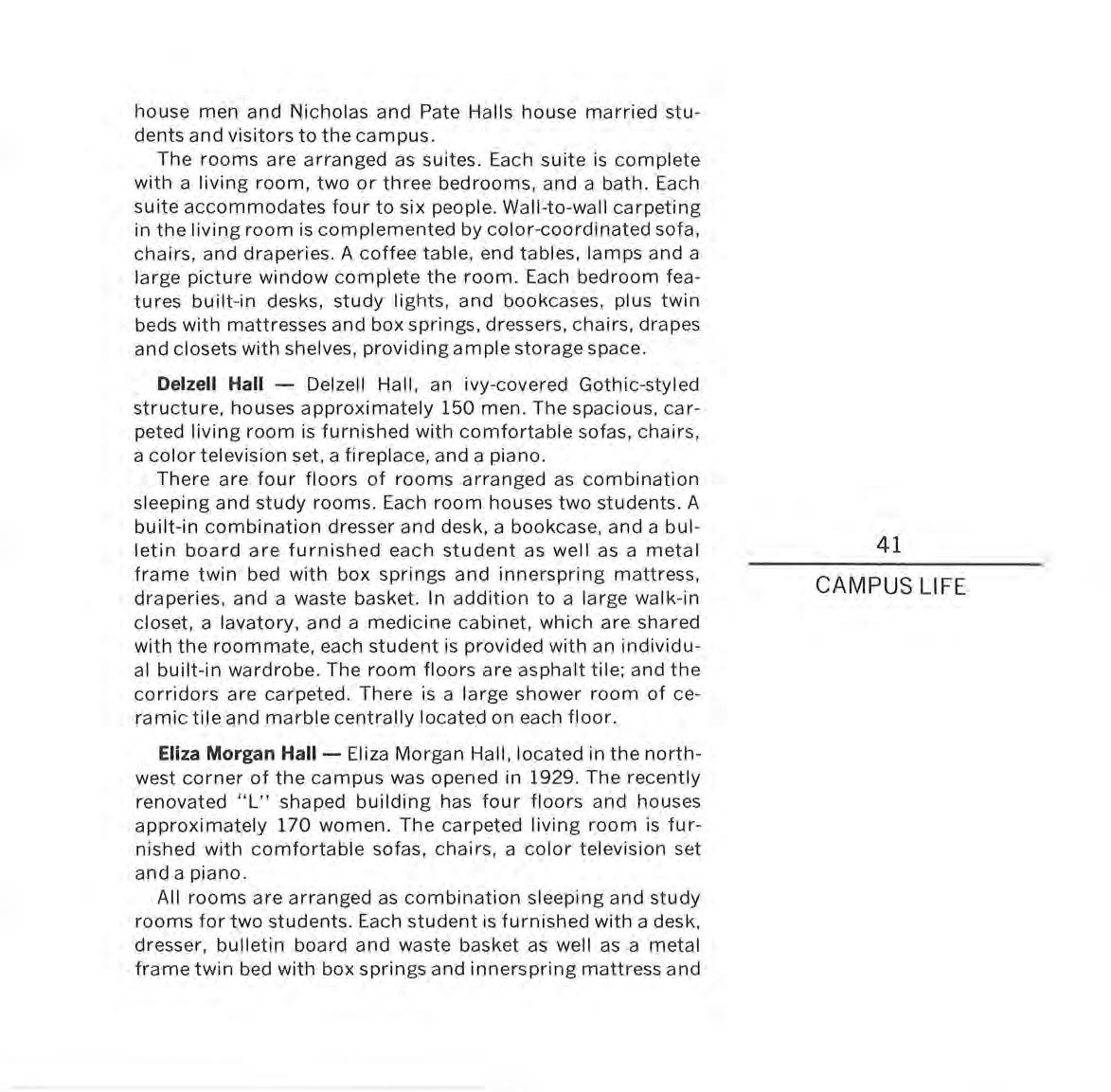
draperies. In addition, each student shares with her roommate a large walk-in closet, lavatory, and medicine cab inet. The room floors are wood and the corridors are carpeted. There is a large shower room centrally located on each floor.
Married Student Housing - Unfurnished one and two bedroom units are available in Oak Hill Housing. Each unit is equipped with a stove, refrigerator, washer, and dryer. Furnished one and two bedroom apartments are available at the Centennial Complex. Laundry facilities are centrally located for use by all the residents.
With the exception of certain appliances such as air conditioning, all utilities are included in the rental fee for all married student housing. College operated housing for married students is leased on a semester basis, with the rent payable monthly in advance. A deposit is required and is refundable at
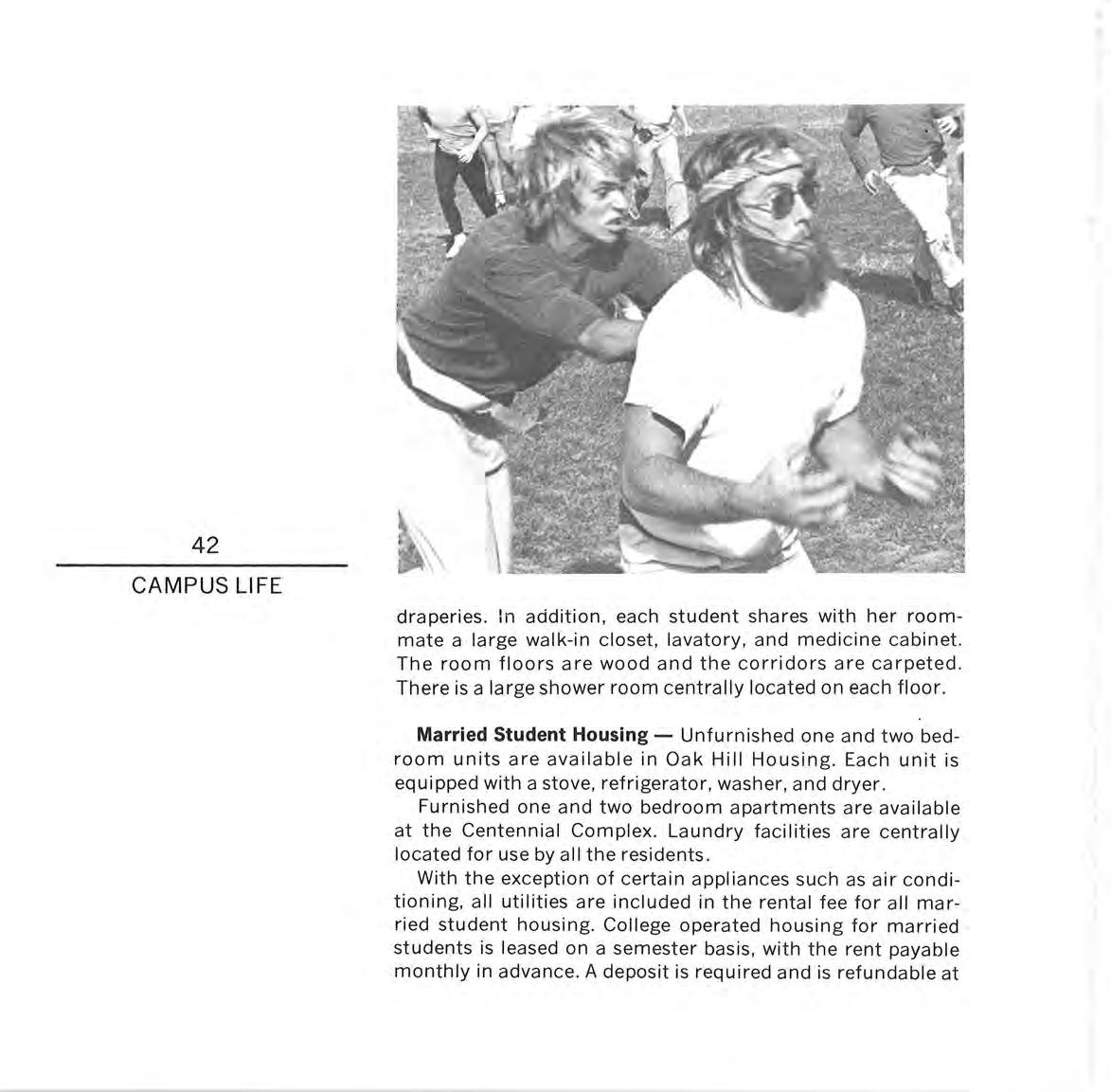
the end of the lease period provided the property is left in good condition Inqui r ies concerning these facilities should be directed to the Housing Office .
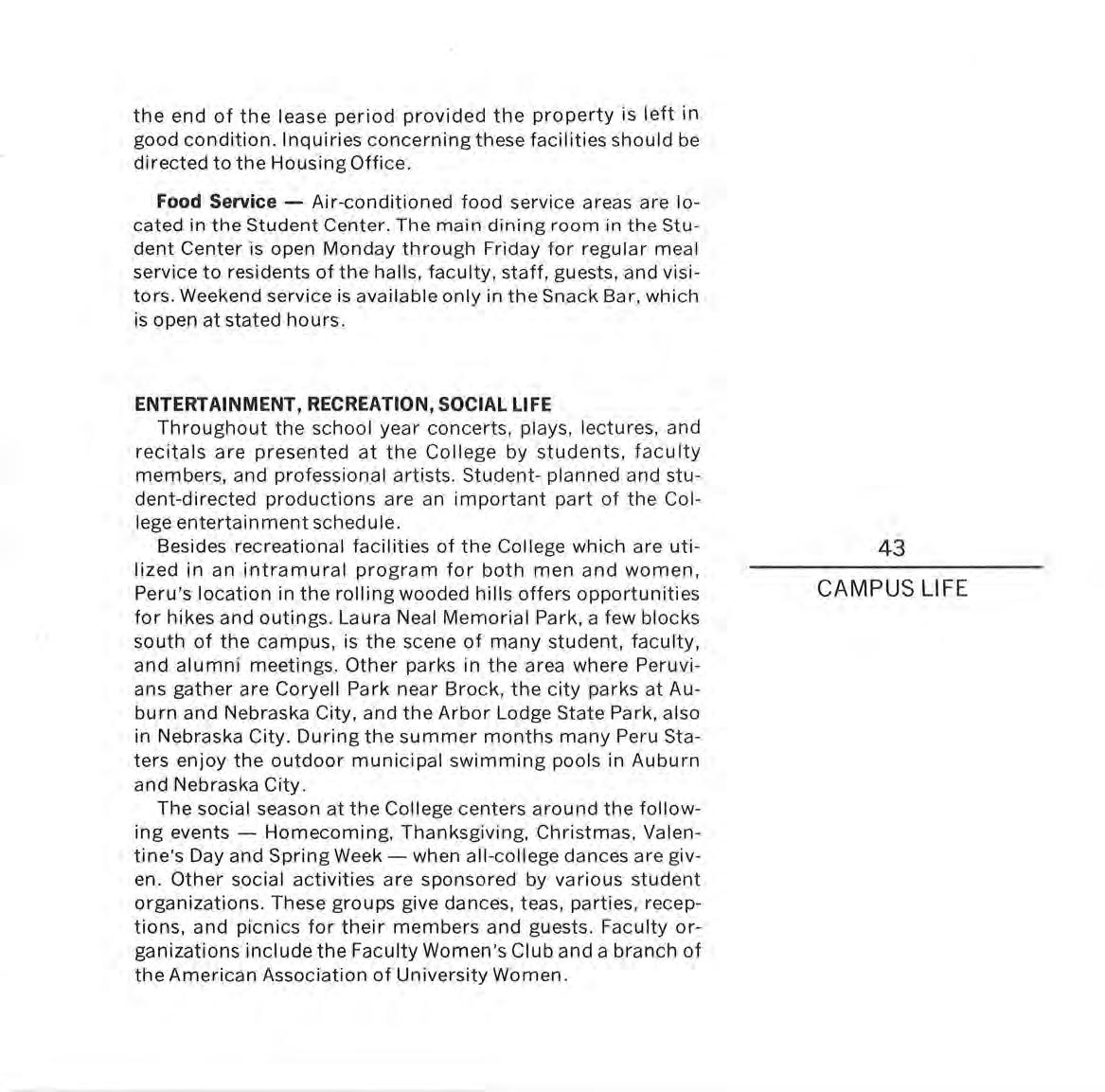
Food Serv ice - Air -conditioned food service areas are located in the Student Center. The main dining room in the Student Center is open Monday through Friday for regular meal service to residents of the halls, faculty, staff, guests, and visitors. Weekend service is available only in the Snack Bar, which is open at stated hours.
Throughout the school year concerts, plays, lectures, and recitals are presented at the College by students, faculty members, and professional artists. Student- planned and student-directed productions are an important part of the College entertainment schedule .
Besides recreational facilities of the College which are utilized in an intramural program for both men and women, Peru's location in the rolling wooded hills offers opportunities for hikes and outings. Laura Neal Memo r ial Park, a few blocks south of the campus, is the scene of many student. faculty, and alumni meetings. Other parks in the area where Peruvians gather are Coryell Park near Brock, the city parks at Auburn and Nebraska City, and the Arbor Lodge State Park, also in Nebraska City. During the summer months many Peru Staters enjoy the outdoor municipal swimming pools in Auburn and Nebraska City .
The social season at the College centers around the following events - Homecoming, Thanksgiving , Christmas, Valentine ' s Day and Spring Week - when all-college dances are given. Other social activities are sponsored by various student organizations. These groups give dances, teas, parties, receptions, and picnics for their members and guests. Faculty organizations include the Faculty Women's Club and a branch of the American Association of University Women.
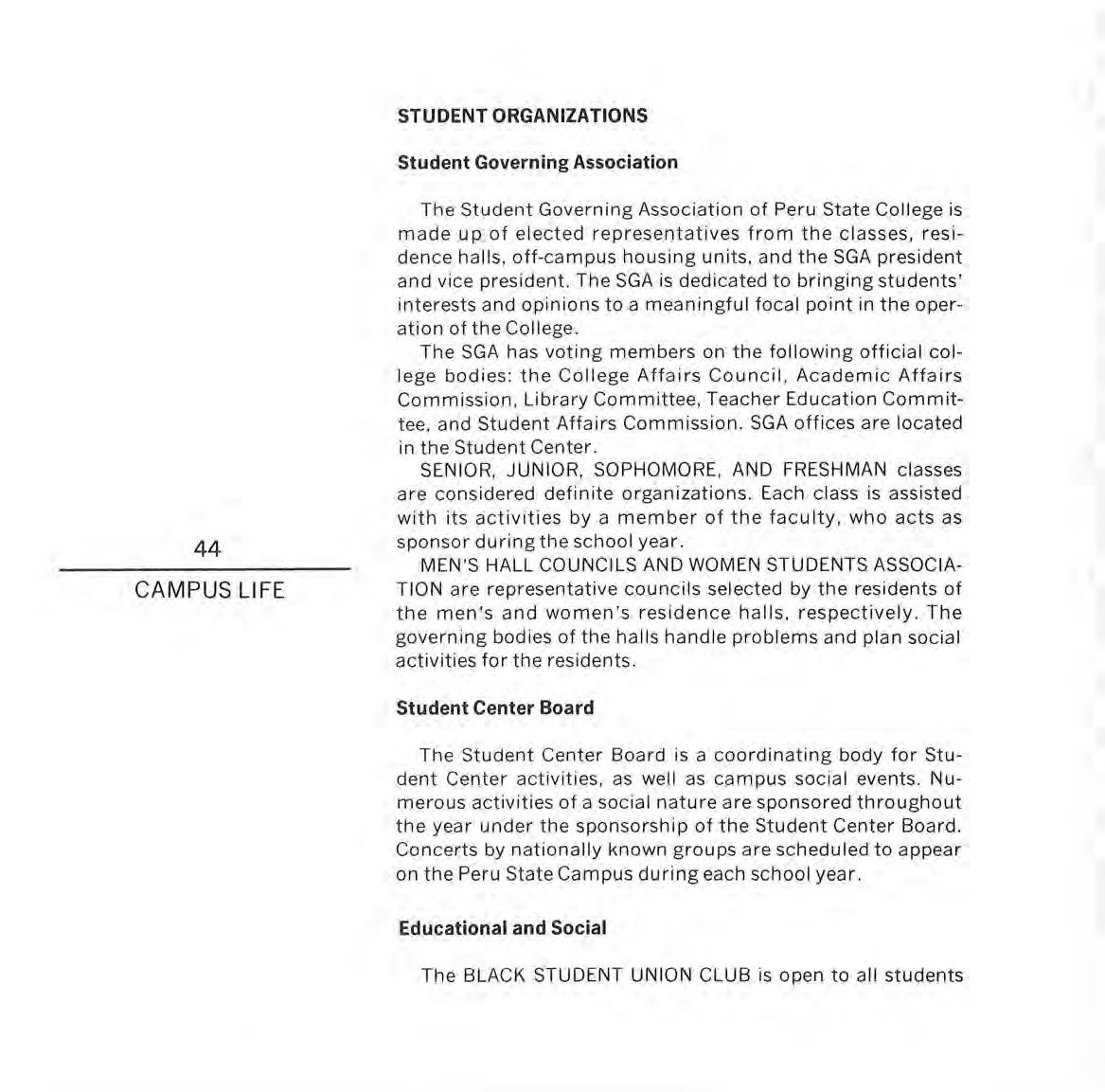
The Student Governing Association of Peru State College is made up of elected representatives from the classes, residence halls , off-campus housing units, and the SGA president and vice president. The SGA is dedicated to bringing students ' interests and opinions to a meaningful focal point in the operation of the College .
The SGA has voting members on the following official college bodies: the College Affairs Council, Academic Affairs Commission, Library Committee , Teacher Education Committee , and Student Affairs Commission. SGA offices are located in the Student Center.
SENIOR, JUNIOR, SOPHOMORE. AND FRESHMAN classes are considered definite organizations. Each class is assisted with its activities by a member of the faculty, who acts as sponsor during the school year.
MEN ' S HALL COUNCILS AND WOMEN STUDENTS ASSOCIATION are representative councils selected by the residents of the men ' s and women's residence halls, respectively The governing bodies of the halls handle problems and plan social activities for the residents
The Student Center Board is a coordinating body for Student Center activities , as well as campus social events Numerous activities of a social nature are sponsored throughout the year under the sponsorship of the Student Center Board. Concerts by nationally known groups are scheduled to appear on the Peru State Campus during each school year
The BLACK STUDENT UNION CLUB is open to all students
interested in promoting the understanding of Black Heritage .
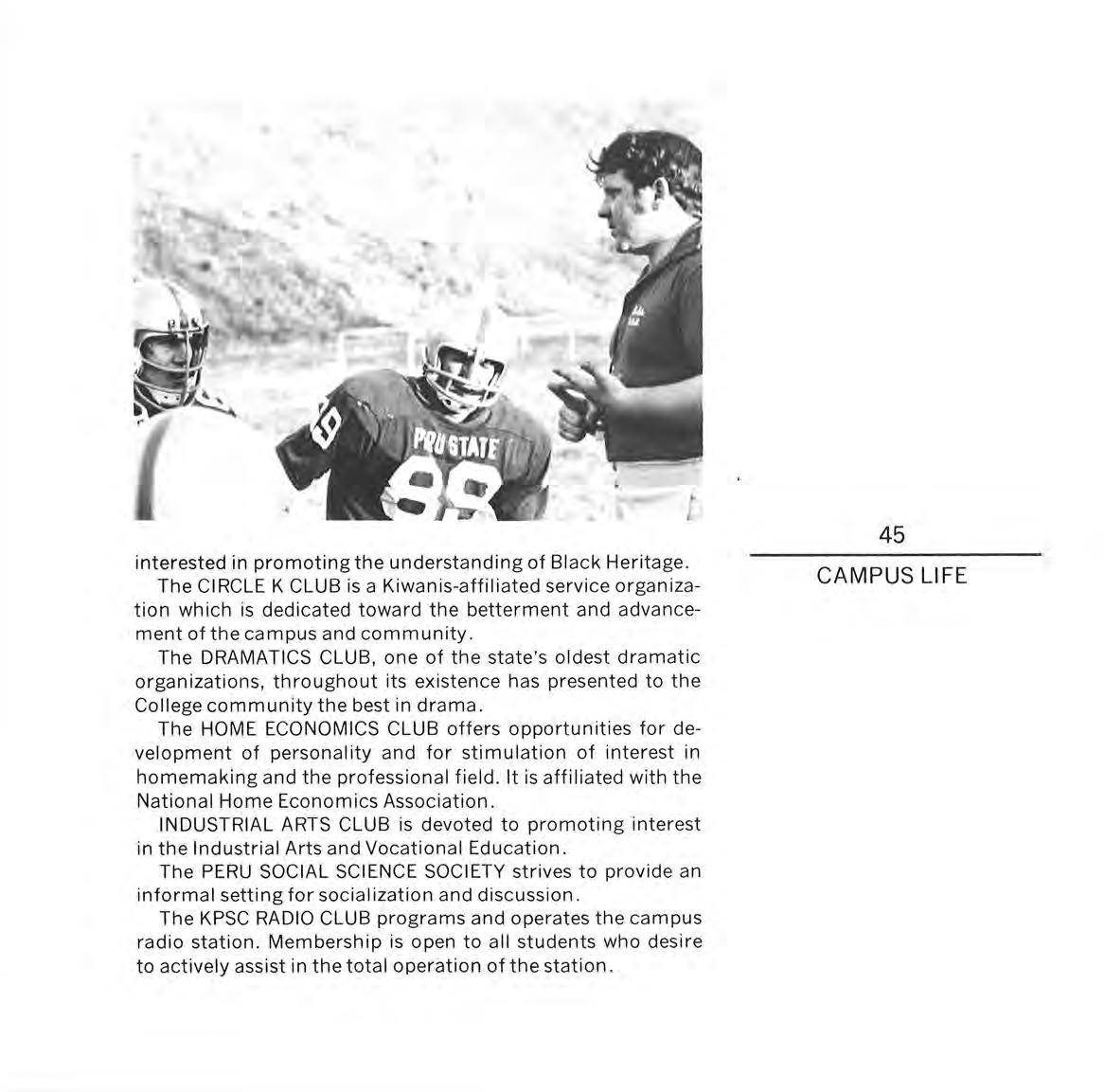
The CIRCLE K CLUB is a Kiwanis-affiliated service organization which is dedicated toward the betterment and advancement of the campus and community.
The DRAMATICS CLUB, one of the state's oldest dramatic organizations, throughout its existence has presented to the College community the best in drama.
The HOME ECONOMICS CLUB offers opportunities for development of personality and for stimulation of interest in homemaking and the professional field . It is affiliated with the National Home Economics Association.
INDUSTRIAL ARTS CLUB is devoted to promoting interest in the Industrial Arts and Vocational Education.
The PERU SOCIAL SCIENCE SOCIETY strives to provide an informal setting for socialization and discussion.
The KPSC RADIO CLUB programs and operates the campus radio station. Membership is open to all students who desire to actively assist in the total operation of the station.
STUDENT EDUCATION ASSOCIATION is an organization for potential teachers. It is affiliated with the Nebraska State Education Association and the National Education Association. The activities of the association are devoted to the improvement of education.
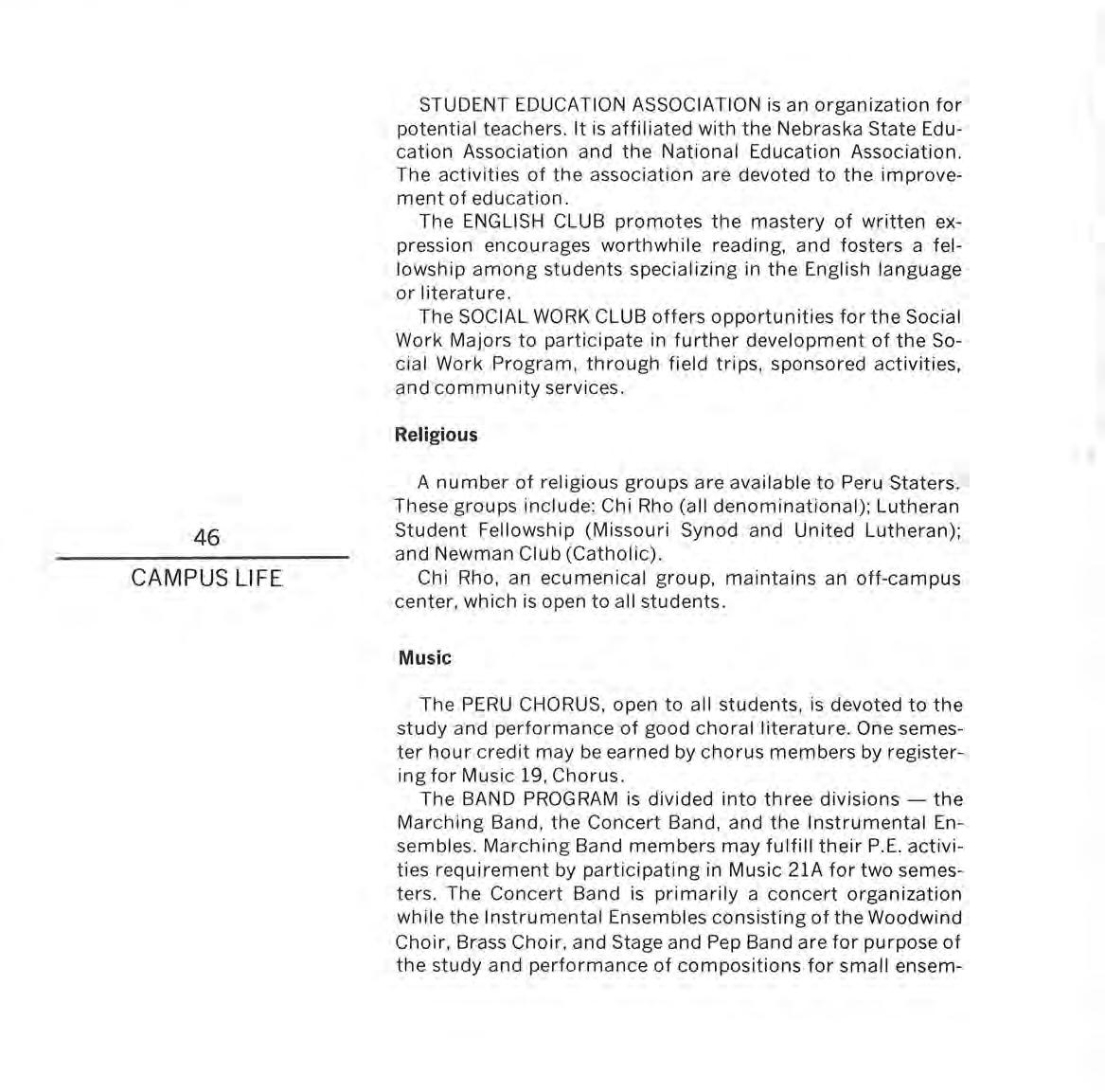
The ENGLISH CLUB promotes the mastery of written expression encourages worthwhile reading, and fosters a fellowship among students specializing in the English language or literature.
The SOCIAL WORK CLUB offers opportunities for the Social Work Majors to participate in further development of the Social Work Program , through field trips , sponsored activities, and community services.
A number of religious groups are available to Peru Staters . These groups include : Chi Rho (all denominational) ; Lutheran Student Fellowship (Missouri Synod and United Lutheran); and Newman Club (Catholic).
Chi Rho, an ecumenical group, maintains an off-campus center , which is open to all students.
The PERU CHORUS, open to all students, is devoted to the study and performance of good choral literature. One semester hour credit may be earned by chorus members by registering for Music 19, Chorus
The BAND PROGRAM is divided into three divisions - the Marching Band, the Concert Band, and the Instrumental Ensembles. Marching Band members may fulfill their P.E. activities requirement by participating in Music 21A for two semesters . The Concert Band is primarily a concert organization while the Instrumental Ensembles consisting of the Woodwind Choir , Brass Choir , and Stage and Pep Band are for purpose of the study and performance of compositions for small ensem-
bles . Members may earn one semester hour each semester in each of these groups by registering for Music 21A, Music 21B and Music 29.
STUDENT M.E N.C. The Student Chapter of the Nebraska Music Educators Association and the Music Educators National Conference is open to all students interested in music. The club sponsors instrumental and vocal clinics and other musical productions annually.
STUDENT N.S.B.A The Student Chapter of the Nebraska State Bandmaster Association is open to all students who are instrumental music majors. This organization promotes instrumental activities on the Peru State College campus and participates in activities sponsored by the State Bandmasters Association .
The "P" CLUB membership is made up of Peru State College men who have lettered in any intercollegiate sport. The fostering of good sportsmanship is the club's purpose.
The WOMEN'S ATHLETIC ASSOCIATION is open to women students interested in women's physical education and athletics.
PERU STATE COLLEGE CHEERLEADERS are chosen after a tryout before a panel of faculty and staff They lead chants and boost spirit at athletic events.
KITTY KADETS is a drill team composed of women students interested in providing half -time entertainment at football and basketball games and developing support for the teams.
ALPHA MU OMEGA, honorary mathematics fraternity , aims to develop and promote interest in the study of mathematics. Students who have or are currently enrolled in analytical
47 CAMPUS LIFE
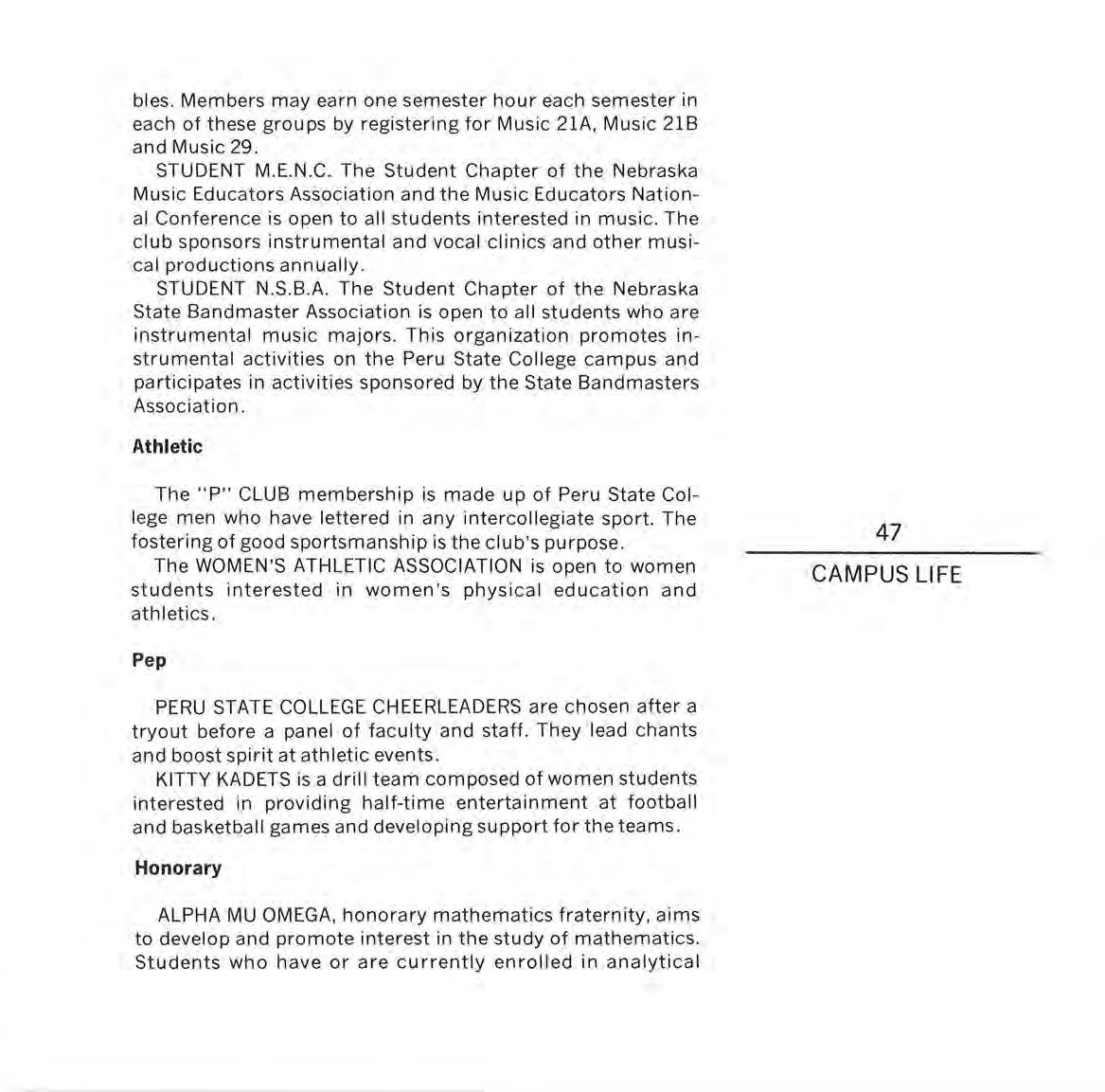
geometry with above average grades in mathematics are eligible for membership
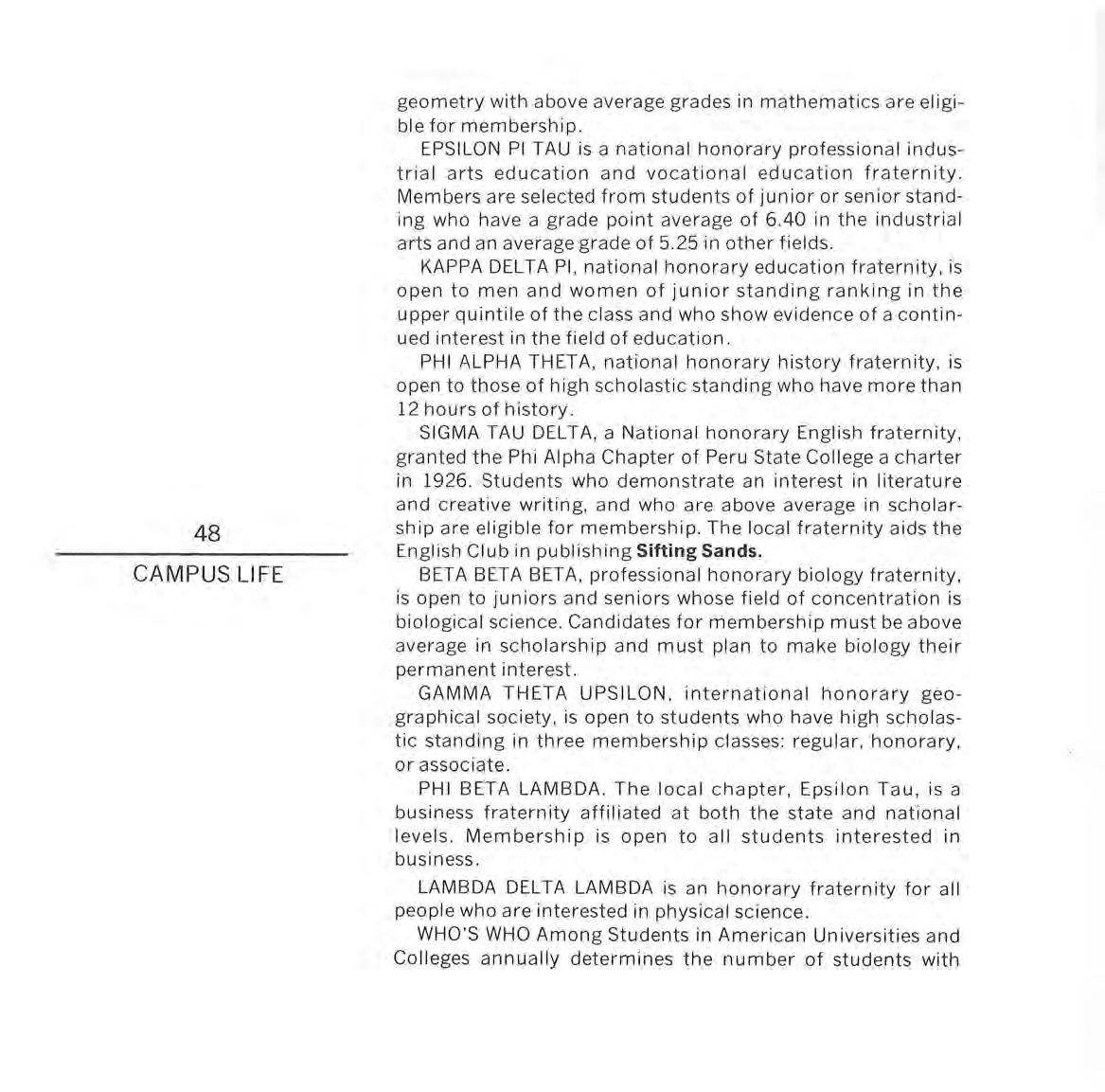
EPSILON Pl TAU is a national honorary professional industrial arts education and vocational education fraternity. Members are selected from students of junior or senior standing who have a grade point average of 6.40 in the industrial arts and an average grade of 5.25 in other fields .
KAPPA DELTA Pl , national honorary education fraternity, is open to men and women of junior standing rankin-g in the upper quintile of the class and who show evidence of a continued interest in the field of education.
PHI ALPHA THETA , national honorary history fraternity , is open to those of high scholastic standing who have more than 12 hours of history.
SIGMA TAU DELTA, a National honorary English fraternity , granted the Phi Alpha Chapter of Peru State College a charter in 1926. Students who demonstrate an interest in literature and creative writing, and who are above average in scholarship are eligible for membership . The local fraternity aids the English Club in publishing Sifting Sands.
BETA BETA BETA, professional honorary biology fraternity, is open to juniors and seniors whose field of concentration is biological science. Candidates for membership must be above average in scholarship and must plan to make biology their permanent interest.
GAMMA THETA UPSILON, international honorary geographical society , is open to students who have high scholastic standing in three membership classes: regular , honorary, or associate .
PHI BETA LAMBDA. The local chapter, Epsilon Tau, is a business fraternity affiliated at both the state and national levels. Membership is open to all students interested in business.
LAMBDA DELTA LAMBDA is an honorary fraternity for all people who are interested in physical science.
WHO'S WHO Among Students in American Universities and Colleges annually determines the number of students with
senior standing in the College who may be selected for this honor. These honorees are selected by a committee of students and faculty on the basis of scholarship, leadership and participation in academic and extracurricular activities, citizenship and service to the College, and promise of future usefulness in business and society.
The Pedagogian is the official college newspaper. It is published weekly during the academic year under the supervision of the journalism instructor. Although contributions are welcomed, the majority of the writing and editing is done by the students in journalism classes.
The Peruvian is the college yearbook and is a student publication Interested students accept the responsibility of raising funds, submitting copy and pictures, and distributing the annuals.
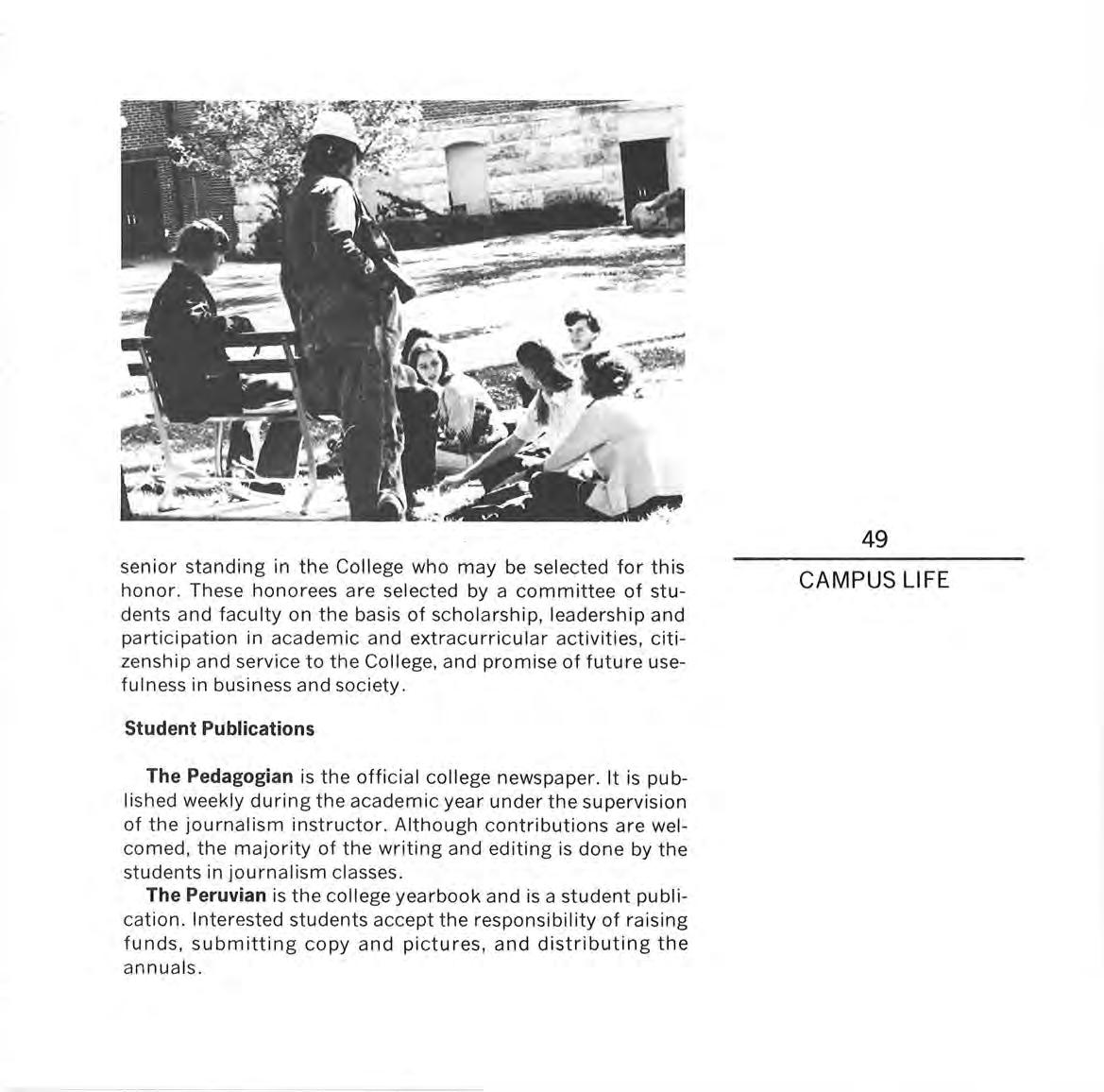
The Student Life Handbook is published in the late summer by the Office of Student Life. The publication serves as a guide to campus living for all students
Sifting Sand s is a magazine of student writing published each spring by the English Club and Sigma Tau Delta.
KPSC is the call number for the Peru State College radio station. This station broadcasts to buildings on the campus , and serves as a laboratory for radio and speech classes
Each student is expected to conduct himself in accordance with the regulations of the college and such laws of the City, State, and Federal Governments as apply to matters of personal conduct .
The College reserves the right to exclude at any time students whose conduct is deemed undesirable or injurious to the best interests of the College , or of the student
For detailed information regarding student conduct, see the Peru State College Code of Student Conduct and the Student Life Handbook.
Every student must register his motor vehicle with the Office of Student Life, if such vehicle is operated or possessed within the city limits of Peru . Vehicles are defined as all powered vehicles: automobiles , motorcycles, motor scooters, and any other powered vehicle. The registration fee is three dollars .
Detailed copies of the vehicle regulations may be obtained at the Office of Student Life
Only automobiles with proper identification are allowed to park in dormitory and other restricted areas. Adequate parking for all students is available in off-street areas . Students are not to park in residential areas adjacent to the campus.

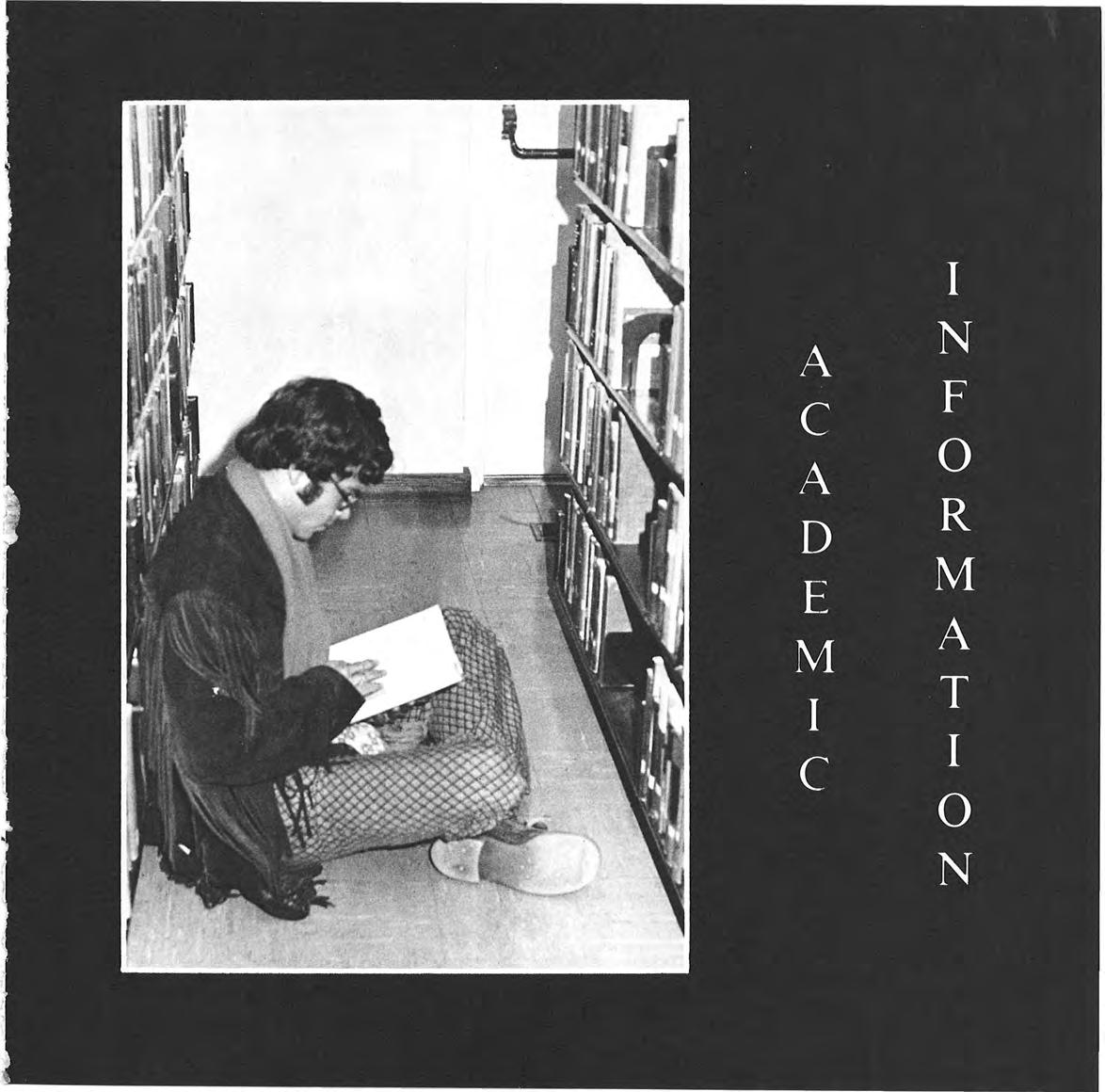


The College is supported by the State of Nebraska for the purpose of meeting the educational needs at the college level of citizens of the state. The College is a multi-purpose regional institution with a broad variety of programs in general liberal arts, vocational-technical education, teacher education, and a variety of pre-professional or terminal vocational education programs culminating in a Bachelor of Arts or Bachelor of Science degree and Associate of Arts degrees in certain vocational areas. The College also provides programs of instruction for adults in learning centers throughout southeast Nebraska.
The studies offered by the College include four -year professional curricula in elementary education and in secondary education; a four-year liberal arts program; a bachelor of science program flexible enough to satisfy a variety of interests and objectives; and a number of one-year and two-year terminal and pre-professional curricula.
In general, the various curricula offered by the College consist partly of general studies courses and partly of specialized courses . The general studies courses are those set forth as important for all individuals for effective living, regardless of their vocations. The specialized courses are those that prepare specifically for teaching or other vocations, or satisfy special avocational or cultural interests.
Upon enrolling, a studen,ti chooses a vocational objective or a major of principal cultural interest. This determines the curriculum that he will follow and the advisor who will guide him in his educational experiences . The choice may be tentative and may be changed later . Students who desire special assistance in selecting a vocational goal may request vocational counseling from their academic advisors and the Director of Placement.
··
Students who are undecided in regard to a vocational and/or educational goal may register in a general category.
The College is authorized by law and rules to the Board of Trustees of the Nebraska State Colleges to issue the following degrees:
Bachelor of Arts in Education (A.B. in Educ.) This degree is given to candidates whose field of concentration is in one of the following fields: Art. History and Social Science or Language Arts.
Bachelor of Fine Arts in Education (B.F.A. in Educ.) Music
Bachelor of Science in Education (B.S. in Educ.) This degree is given to candidates whose field of concentration is in one of the following fields: Physical Education, Practical Arts, Mathematics and Science, Elementary Education or Library Science.
Bachelor of Arts (A.B.) This degree is given to candidates without regard to field of concentration and without the professional education requirements.
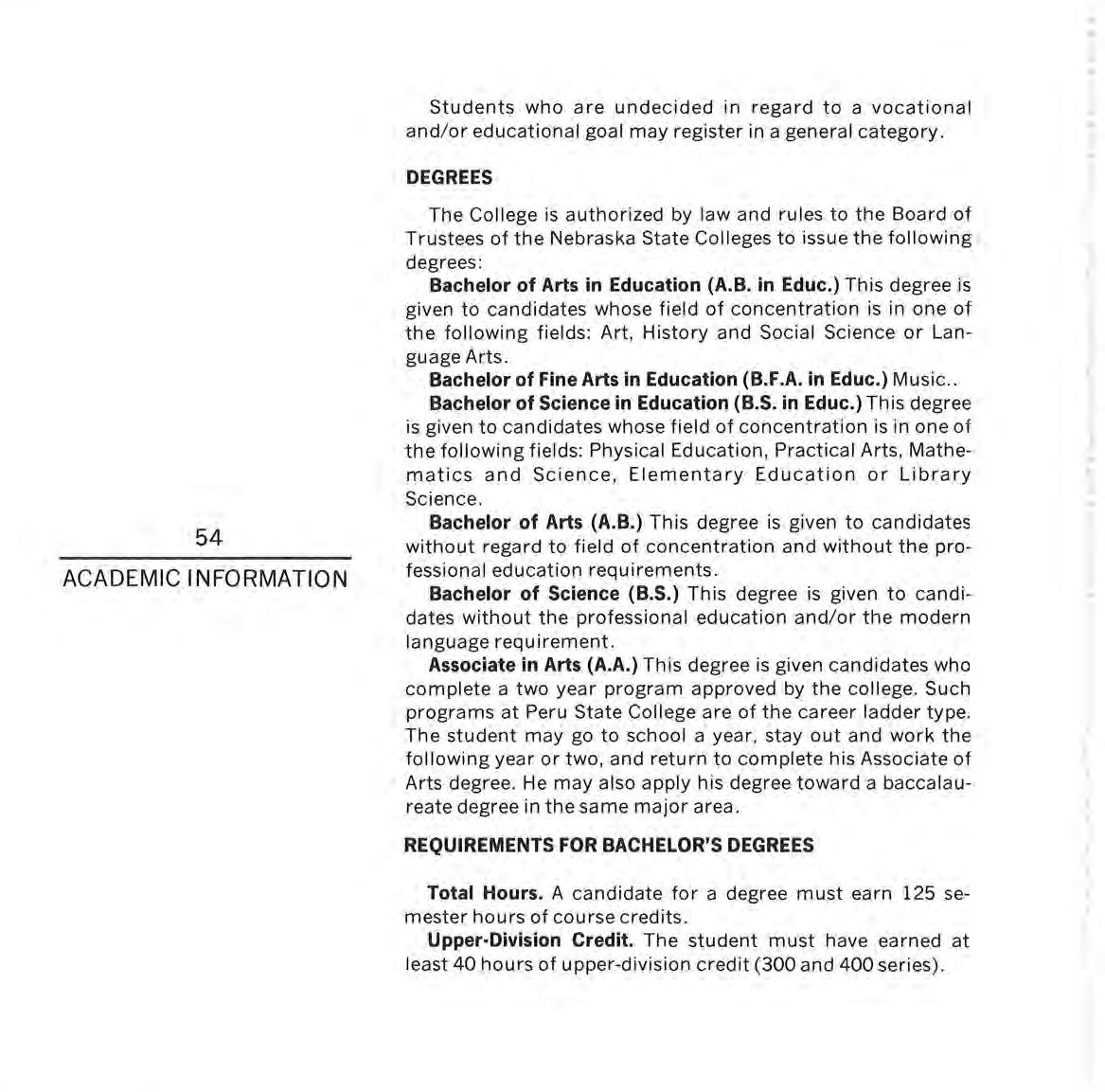
Bachelor of Science (B.S.) This degree is given to candidates without the professional education and/or the modern language requirement.
Associate in Arts (A.A.) This degree is given candidates who complete a two year program approved by the college . Such programs at Peru State College are of the career ladder type. The student may go to school a year, stay out and work the following year or two, and return to complete his Associate of Arts degree . He may also apply his degree toward a baccalaureate degree in the same major area.
Total Hours . A candidate for a degree must earn 125 semester hours of course credits.
Upper-Division Credit. The student must have earned at least 40 hours of upper-division credit (300 and 400 series)
Grade Point Average. A grade average of 5.25 is required for all degrees in Teacher Education An average of 5 00 is required for other degrees.
Resident Credit. A minimum of 30 resident credits is required. A student who has not been enrolled in on-campus classes within the 10 years prior to application for graduation, must earn a minimum of nine hours of on -campus credit in order to qualify for a degree. The resident credit must be to the extent of 24 hours of the last 30 hours for a degree. This resident requirement may be waived in cases where any of the required resident credit is earned in any one of the four State Colleges.
Professional School Residence Credit. Under certain circumstances in which a pre-professional student has successfully completed three years of training at Peru State College in a specific approved program, he may transfer to an accredited professional school during his fourth year, and qualify for the baccalaureate degree, provided he meets all other graduation requirements.
Correspondence and Extension Credit. Not more than onefourth of the total requirements for a degree may be satisfied through correspondence study and extension classes, and of this number the correspondence study alone cannot exceed one-eighth of the total hours . Study center or off-campus classes will be honored as resident credit if conducted by this College.

Major. Each degree candidate (except those in elementary education) must complete the general studies program, a major, and supporting courses in keeping with his educational objective.
Normal Progress. To maintain normal progress a student must complete at least 30 semester hours of credit in a consecutive five -year period including attendance for a full load during one semester or summer session. Twelve hours is considered a full load for normal progress. In case normal progress is not maintained, the student must follow requirements in the current general bulletin.
Application for Degrees. Each candidate upon enro llin g for the final course requirements in a semester or term, sha ll complete an app lic ation through the Registrar 's office setting forth the degree(s), major(s) and payment of fee for graduation. This app li cation must be completed within the first five weeks of the semester or within the first two weeks of the first summer session .
Students who el ect to c han ge their major at a point beyond the sophomore year should be aware of the probability of their graduation date being extended. Also, it may be necessary for the student to follow the requirements in the current bulletin, rather than the one in effect at the time of matriculation.
Academic Progress forms are maintained to guide and record the student 's progress toward his graduation. Two cop i es are maintained, one by the Registrar 's office and the second by the student. This is necessary for effective adv isement, registr at ion plus the mutual protection of the student and the College. The accuracy of each registration and the checking of a ll requirements are the final responsibility of the student.
In general, students will follow the graduation requirements as outlined in the bulletin current at the time of matriculation .. Students whose progress toward a degree has been irregular or interrupted to a point of five years or more since the date of matriculation will meet the requirements of graduation in the most recent bulletin. Students for whom a progress sheet has been made, and who are making normal progress toward a degree, will continue in their original bulletin.
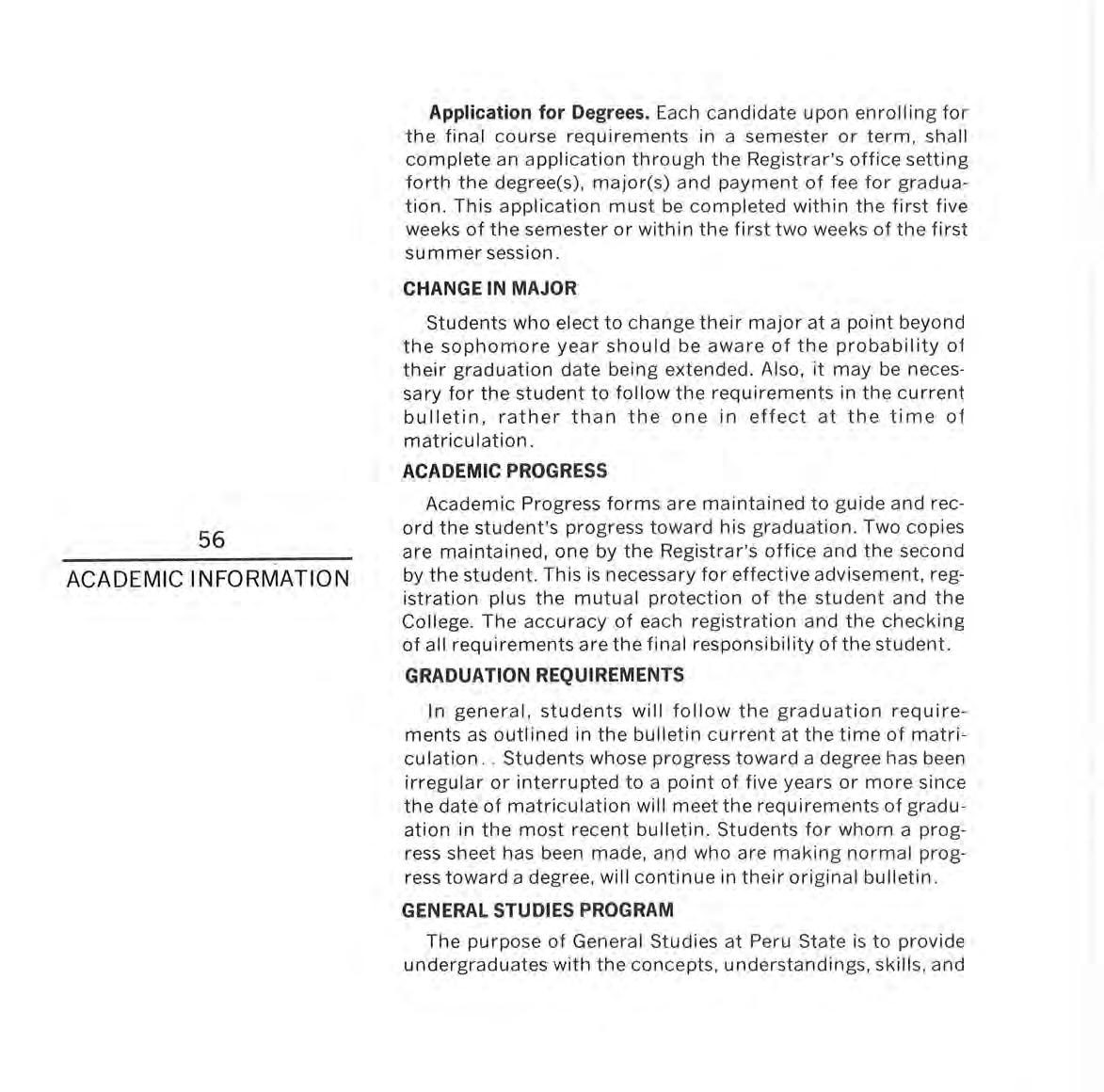
The purpose of General Studies at Peru State is to provide under graduates with the concepts, understandings, skills, and
values necessary for livin g purposefully in modern society. These studies, emphas i zin g the relation and unity of basic ide as from the severa l disciplines, are se l ected for their usefulness in helping to so lv e the common problems in both an individual and soc i a l context. To estab li sh the unity of know ledge and exper i ence, the distinct courses in genera l stud i es share common goa l s in the sense that they a ll s hould promote a sp irit of inquiry, relate knowledge from various fields, and encourage continued lib era l ed u cat ion on the part of the student . Spec ifi c co ur ses are held to a minimum, with the int ent that students sho uld be encouraged to se l ect those courses most appropr iate to their educat ion al needs.
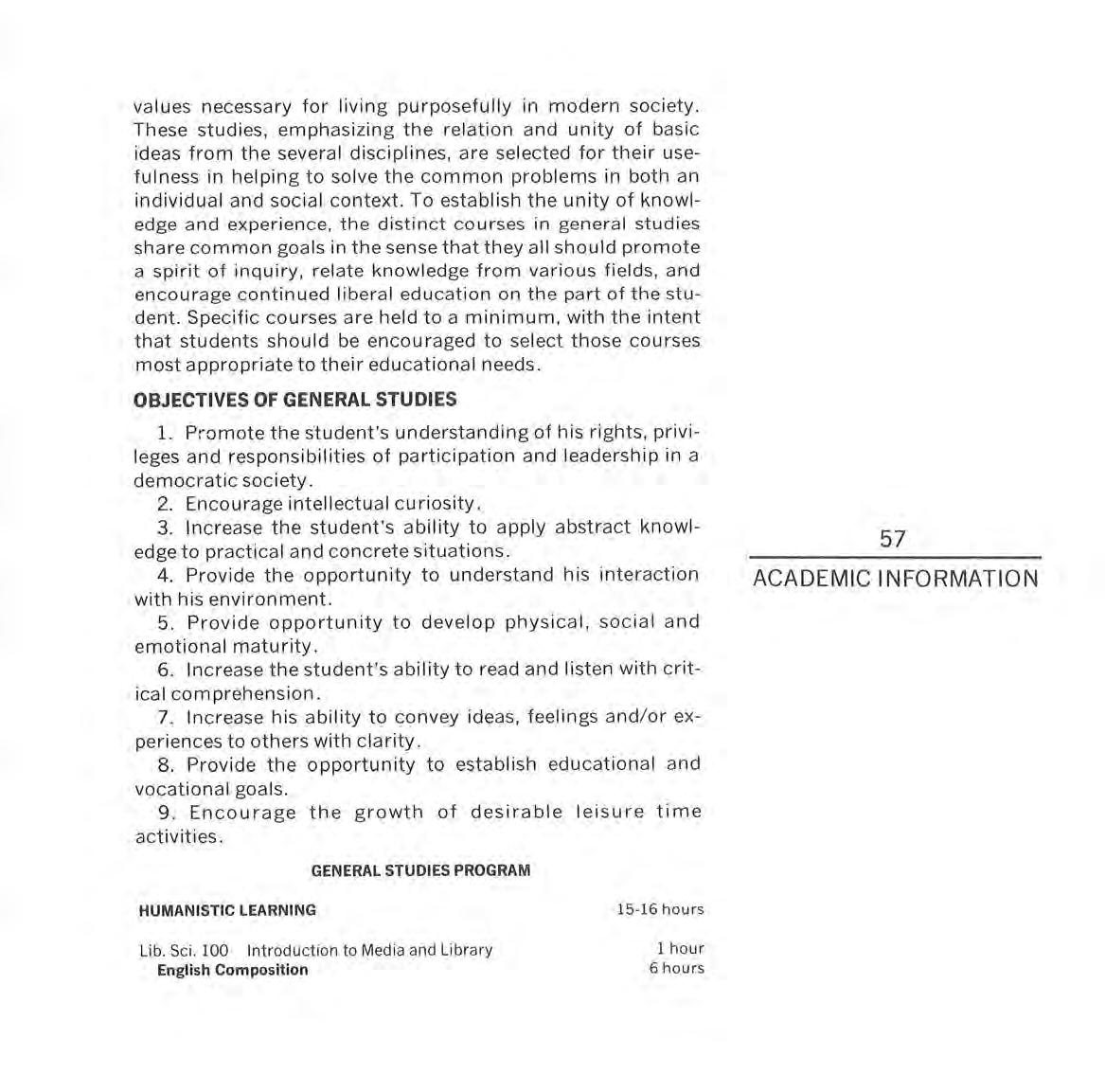
1. Promote the student's understanding of his rights, privil eges and responsibilities of participation and l eadersh ip in a democratic society.
2. Encourage intell ectua l cur ios ity.
3. In crease the student's ab ility to app ly abstract know ledge to practical and concrete situat ion s .
4. Provide the opportun ity to understand his int eract ion with his environm ent.
5. Provide opportunity to develop physical, soc i a l and emot ional maturity .
6. In crease the st ud ent's ab ility to read and li sten with cr itica l compre h en sion.
7. In crease his ab ility to convey i deas , feelings and/or experiences to others with c l ar ity .
8. Provide the opportunity to establish educat i onal and vocational goa l s.
9. En courage the growth of des ir ab l e l e i sure t im e act iviti es .
(Students who rank at the 85th percentile or higher on the English portion of the ACT test may waive the Eng. 101 requirement.)
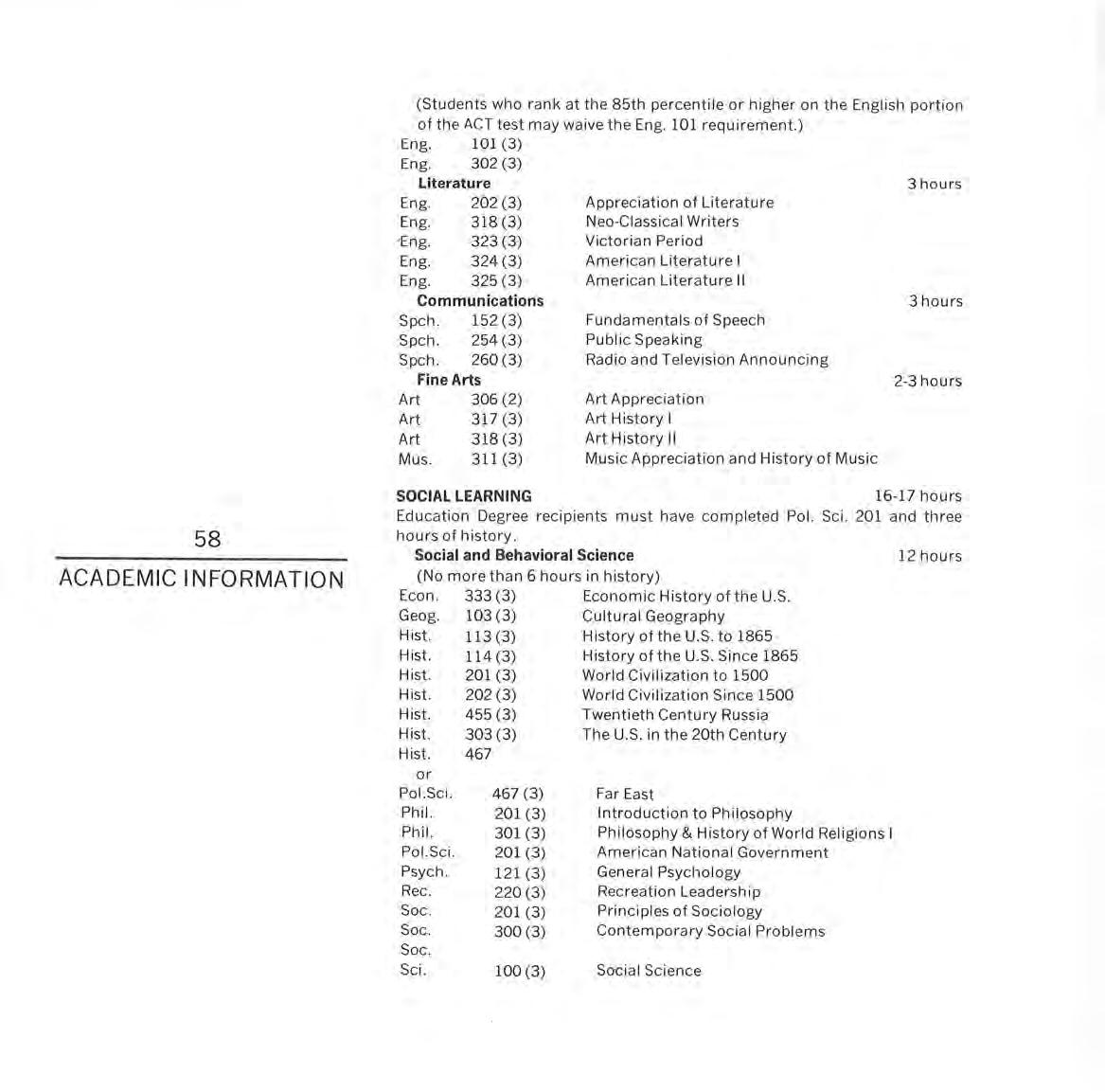
Health and Hygiene
Educ 415 (2) Drug Use and Abuse
H Ec 332 (3) Nutrition and Dietetics
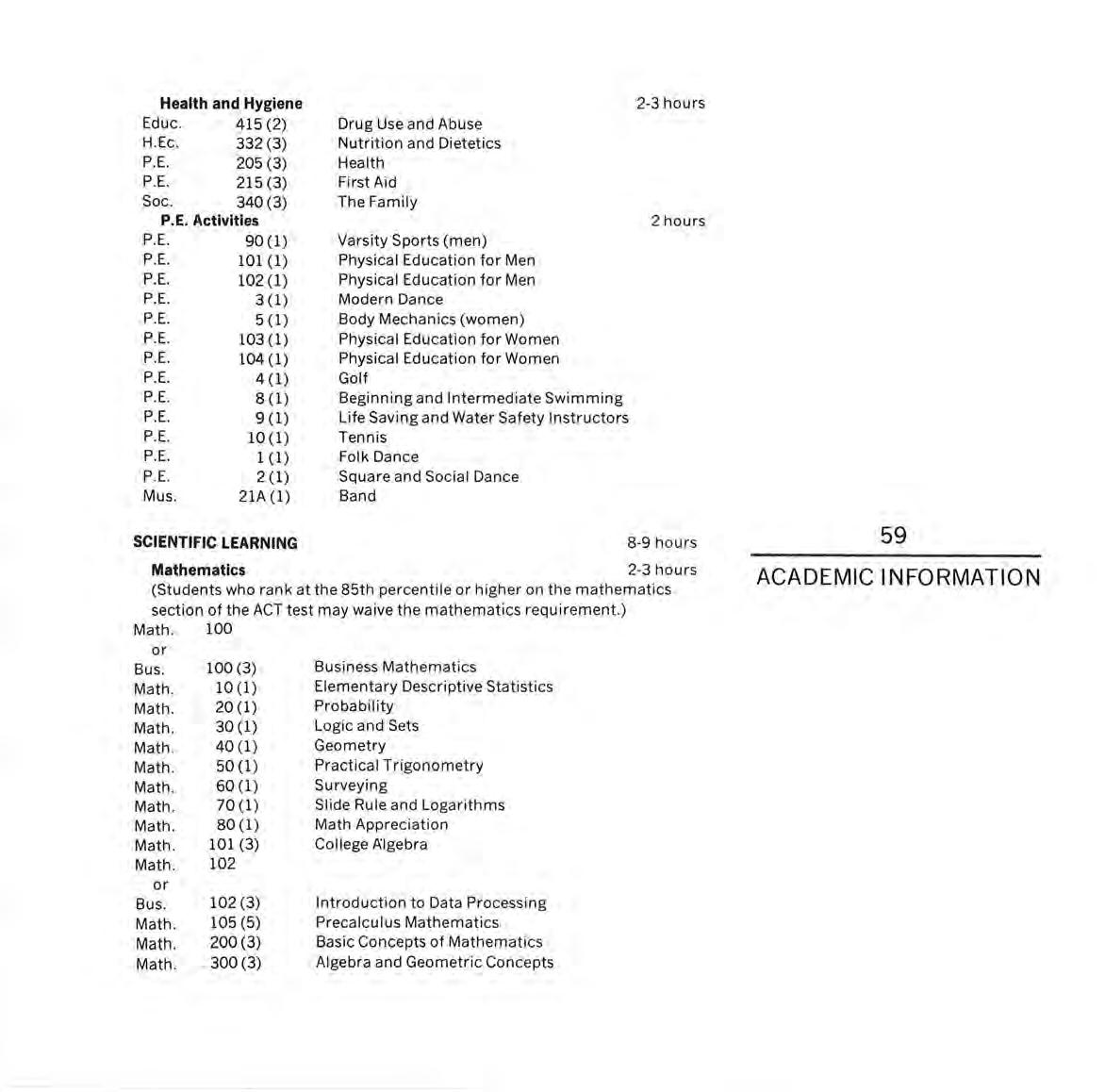
P E. 205 (3) Health
P E 215 (3) First Aid
Soc. 340 (3) The Family
2-3 hours
P.E. Activities 2 hours
P E. 90 (1) Varsity Sports (men)
P. E. 101 (1) Physical Edu ca tion for Men
P E. 102 (1) Physical Education for Men
P.E. 3 (1) Modern Dance
P E. 5 ( 1) Body Mechanics (women)
P.E. 103 (1) Physical Education for Women
P E. 104 (1) Physical Education for Women
P.E. 4 (1) Golf
P E 8 (1) Beginning and Intermediate Swimming
P.E. 9 (1) Life Saving a nd Water Safety Instructors
P.E . 10 (1) Tennis
P.E. 1 (1) Folk Dance
P. E. 2 (1) Square and Social Dance
Mus 21A(l) Band
SCIENTIFIC LEARNING
Mathematics
8-9 h ours
2-3 hours
(Students who rank at the 85th percentile or higher on the mathemati cs section of the ACT test may waive the mathematics requirement.)
Math . 100 or Bus . 100 (3) Business Mathem atics
Math. 10 (1) Elementary Descriptive Statistics
Math . 20 (1) Probability
Math. 30(1) Logic and Sets
Math. 40 (1) Geometry
Math. 50 (1) Practical Trigonometry
Math. 60 (1) Surveying
Math . 70 (1) Slide Rule and Logarithms
Math . 80 (1) Math Appreciation
Math . 101 (3) College .A:lgebra
Math . 102 or
Bus . 102 (3)
Introduction to Data Processing
Math 105 (5) Precalculus Mathematics
Math. 200 (3) Basic Concepts of Mathematics
Math 300 (3) Algebra and Geometric Concepts
Math. 340 or
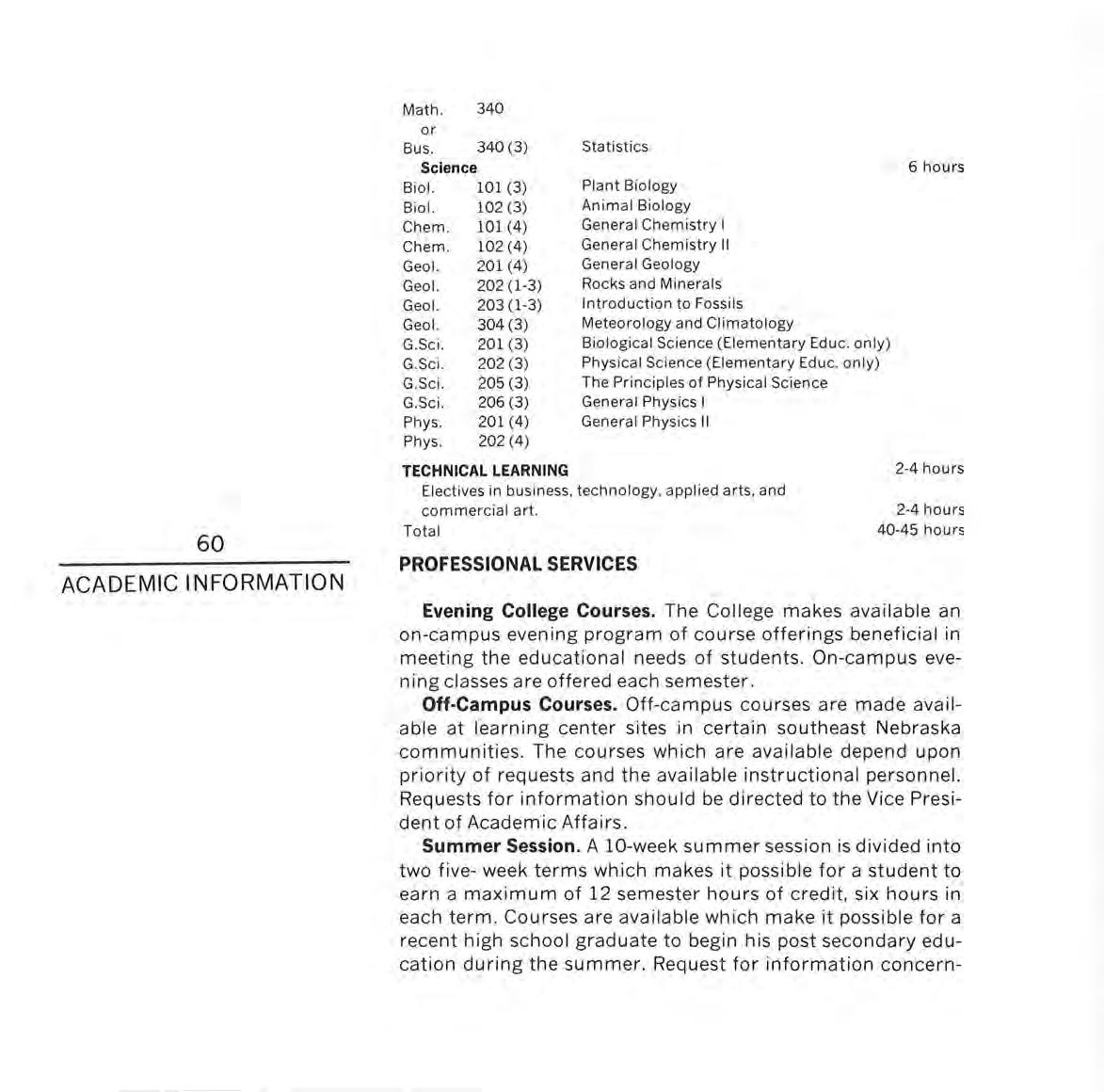
Biol. 102 (3)
Geol. 201 (4)
Geol. 202(1-3)
Geol. 203 (1-3) Introduction to Fossils
Geol. 304(3) Meteorology and Climato l ogy
G.Sci. 201 (3) Biological Science (Elementary Educ. only)
G.Sci. 202 (3) Physica l Science (Elementary Educ. only)
G.Sci. 205 (3) The Principles of Physical Science
G.Sci. 206 (3) General Physics I
Phys. 201 (4) General Physics II
Phys. 202 (4)
Electives in business, technology, applied arts, and commercial art. Total
Evening College Courses. The College makes available an on-campus evening program of course offerings beneficial in meeting the educational needs of students . On-campus evening classes are offered each semester.
Off-Campus Courses. Off-campus courses are made available at learning center sites in certain southeast Nebraska communities. The courses which are available depend upon priority of requests and the available instructional personnel. Requests for information should be directed to the Vice President of Academic Affairs.
Summer Session. A 10-week summer session is divided into two five- week terms which makes it possible for a student to earn a maximum of 12 semester hours of credit, six hours in each term. Courses are available which make it possible for a recent high school graduate to begin his post secondary education during the summer. Request for information concern-
ing the summer session and summer school bulletin should be directed to the Director of Summer Sessions .
This implies attainment beyond the minimum for admission to the College. The status may be acquired by (1) presenting work completed in another college; (2) demonstrating proficiency in a certain field, thus removing the requirement of certain prerequisites . The latter may be with or without credit.
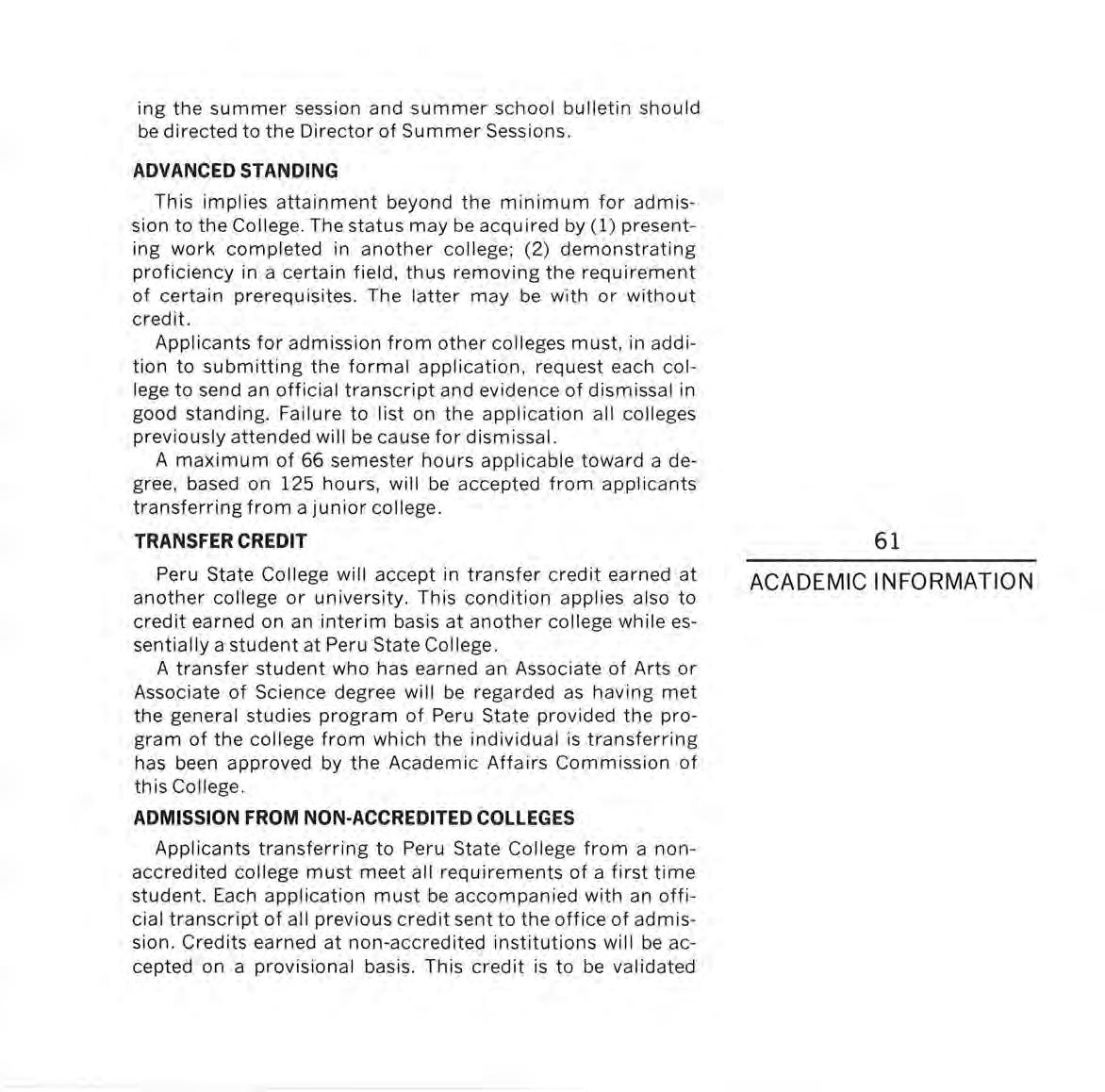
Applicants for admission from other colleges must, in addition to submitting the formal application, request each college to send an official transcript and evidence of dismissal in good standing. Failure to list on the application all colleges previously attended will be cause for dismissal .
A maximum of 66 semester hours applicable toward a degree, based on 125 hours, will be accepted from applicants transferring from a junior college
Peru State College will accept in transfer credit earned at another college or university. This condition applies also to credit earned on an interim basis at another college while essentially a student at Peru State College
A transfer student who has earned an Associate of Arts or Associate of Science degree will be regarded as having met the general studies program of Peru State provided the program of the college from which the individual is transferring has been approved by the Academic Affairs Commission of this College.
Applicants transferring to Peru State College from a nonaccredited college must meet all requirements of a first time student. Each application must be accompanied with an official transcript of all previous credit sent to the office of admission . Credits earned at non-accredited institutions will be accepted on a provisional basis. This credit is to be validated
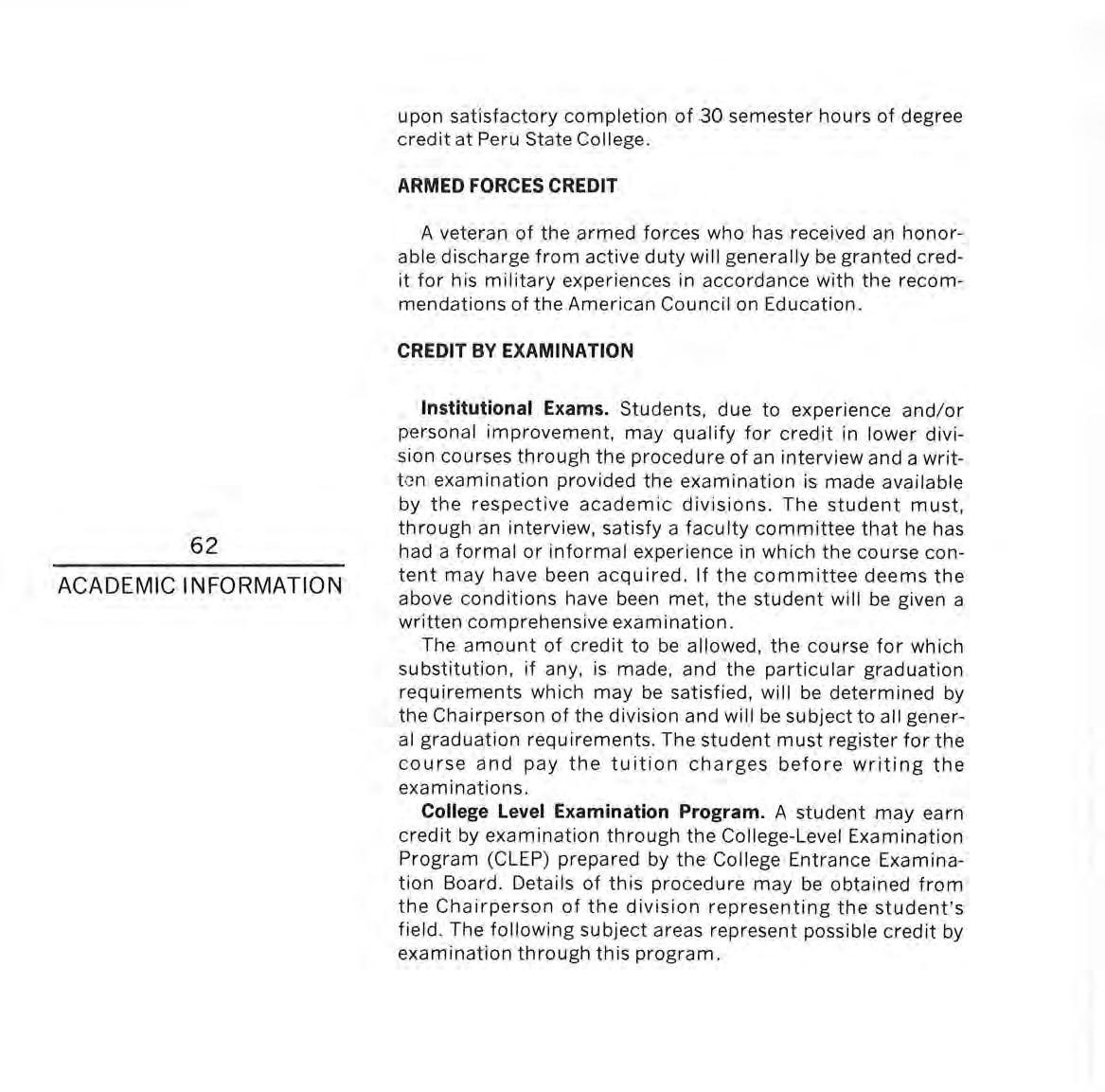
upon satisfactory completion of 30 semester hours of degree credit at Peru State College
A veteran of the armed forces who has received an honorable discharge from active duty will generally be granted credit for his military experiences in accordance with the recommendations of the American Council on Education.
Institutional Exams. Students, due to experience and/or personal improvement. may qualify for credit in lower division courses through the procedure of an interview and a writt en examination provided the examination is made available by the respective academic divisions. The student must, through an interview , satisfy a faculty committee that he has had a formal or informal experience in which the course content may have been acquired. If the committee deems the above conditions have been met. the student will be given a written comprehensive examination .
The amount of credit to be allowed, the course for which substitution, if any, is made, and the particular graduation requirements which may be satisfied, will be determined by the Chairperson of the division and will be subject to all general graduation requirements. The student must register for the course and pay the tuition charges before writing the examinations
College Level Examination Program. A student may earn credit by examination through the College - Level Examination Program (CLEP) prepared by the College Entrance Examination Board . Details of this procedure may be obtained from the Chairperson of the division representing the student's field. The following subject areas represent possible credit by examination through this program.
American Government
American History
American Literature 11
Analysis and Interpretation of Literature
Biology - Plant
College Algebra
Computers and Data
Processing
Educational Psychology
Educational Psychology
Elementary Computer
ProgrammingFORTRAN IV
General Chemistry
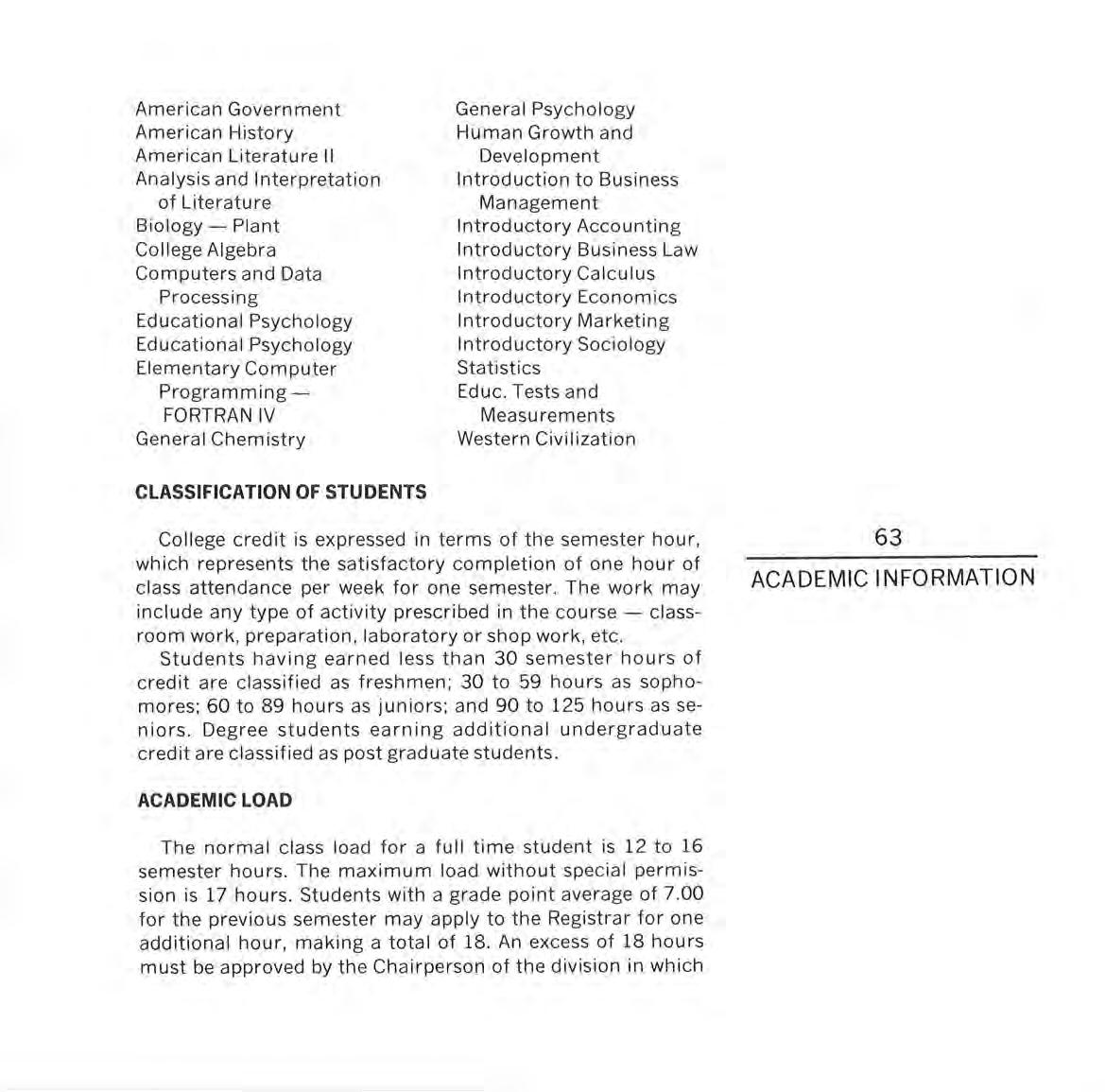
General Psychology
Human Growth and Development
Introduction to Business Management
Introductory Accounting
Introductory Business Law
Introductory Calculus
Introductory Economics
Introductory Marketing
Introductory Sociology
Statistics
Educ. Tests and Measurements
Western Civilization
College credit is expressed in terms of the semester hour, which represents the satisfactory completion of one hour of class attendance per week for one semester. The work may include any type of activity prescribed in the course - classroom work, preparation, laboratory or shop work, etc .
Students having earned less than 30 semester hours of credit are classified as freshmen; 30 to 59 hours as sophomores; 60 to 89 hours as juniors; and 90 to 125 hours as seniors. Degree students earning additional undergraduate credit are classified as post graduate students
The normal class load for a full time student is 12 to 16 semester hours. The maximum load without special permission is 17 hours. Students with a grade point average of 7.00 for the previous semester may apply to the Registrar for one additional hour, making a total of 18 . An excess of 18 hours must be approved by the Chairperson of the division in which
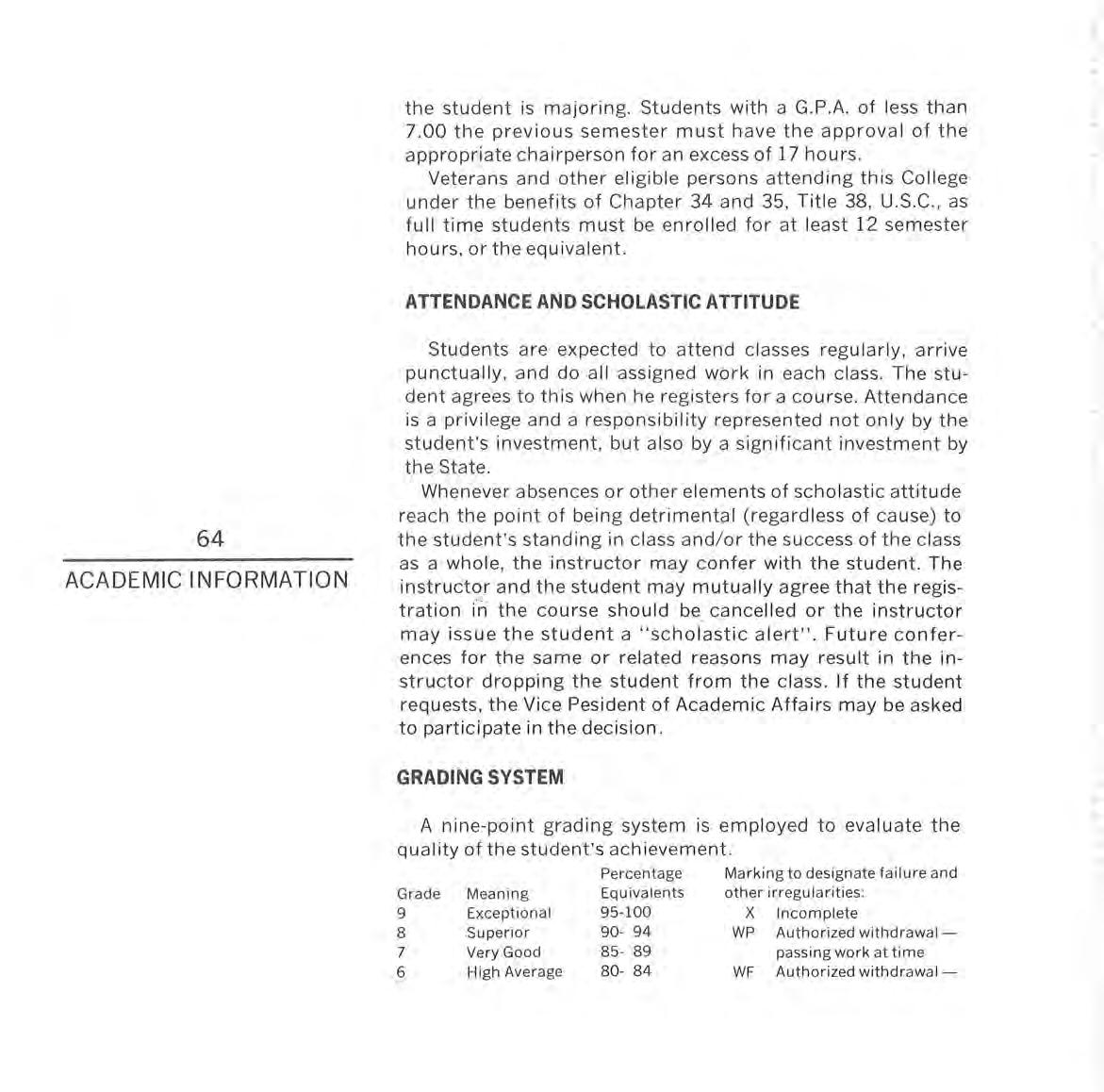
the student is majoring. Students with a G.P.A. of less than 7 00 the previous semester must h ave the approva l of the appropriate chairperson for an excess of 17 hours .
Veterans and other e li gib l e persons attend in g this College under the benefits of Chapter 34 and 35 , Title 38, U.S.C., as full time students must be enro lled for at l east 12 se m ester hours , or the equiva lent.
Students are expected to attend classes regularly, arr ive punctua ll y, and do a l l ass igned work in eac h c lass . The st udent agrees to this when he registers for a course Attendance is a privilege and a responsibility represented not on ly by the student's inv estment, but a l so by a s ignif i cant investment by the State.
Whenever absences or other e leme nt s of sc ho lastic att itud e reach the po i nt of being detrimental (regardless of cause) to the student's standing in c lass and/or the success of the c lass as a whole, the instructor may confer with the stude nt. The in structor and the student may mutually agree that the registration in the course shou l d be cance ll ed or the i nstructor may i ssue the student a "scholastic a l ert". Future co nferences for the same or re lated reasons may result in th e instructor dropping the student from the c lass. If the st ud ent requests, the Vice Pesident of Acade mic Affairs may be asked to part i c ipat e in t h e dec is i on.
A nine-point grading system is emp loy ed to eva l uate th e qua l ity of the st ud ent's ac hi eveme nt . Per centage Marking to designate fa il ure and Grade Meaning Equiv a l ents other irregul arit ies:
9 Exception a l 95-100 X In comp l ete
8 Superior 90- 94 WP Authorized withdrawal -
7 Very Good 85- 89 pass in g work at time
6 H ig h Average 80- 84 WF A uth or i zed w ithdr awa l -
5 Average 75- 79 failing work at time
4 Low Average 70- 74 w Not graded
3 Below Average 65- 69 w Withdrawal - Not graded
2 Poor 60- 64
F 60-Be l ow
CR Cred it NCR No Cred it
The grades in numbers indicate the value of each semester hour of credit and a l so become the means for ca l culating the student's grade point average (GPA) to compare with scho l arship standards. Students are urged to ca l cul ate their own GPA from t im e to time and rea li ze their own status. The fo ll owing two examp les w ill be valuab l e in understanding the ca l cu l ations:
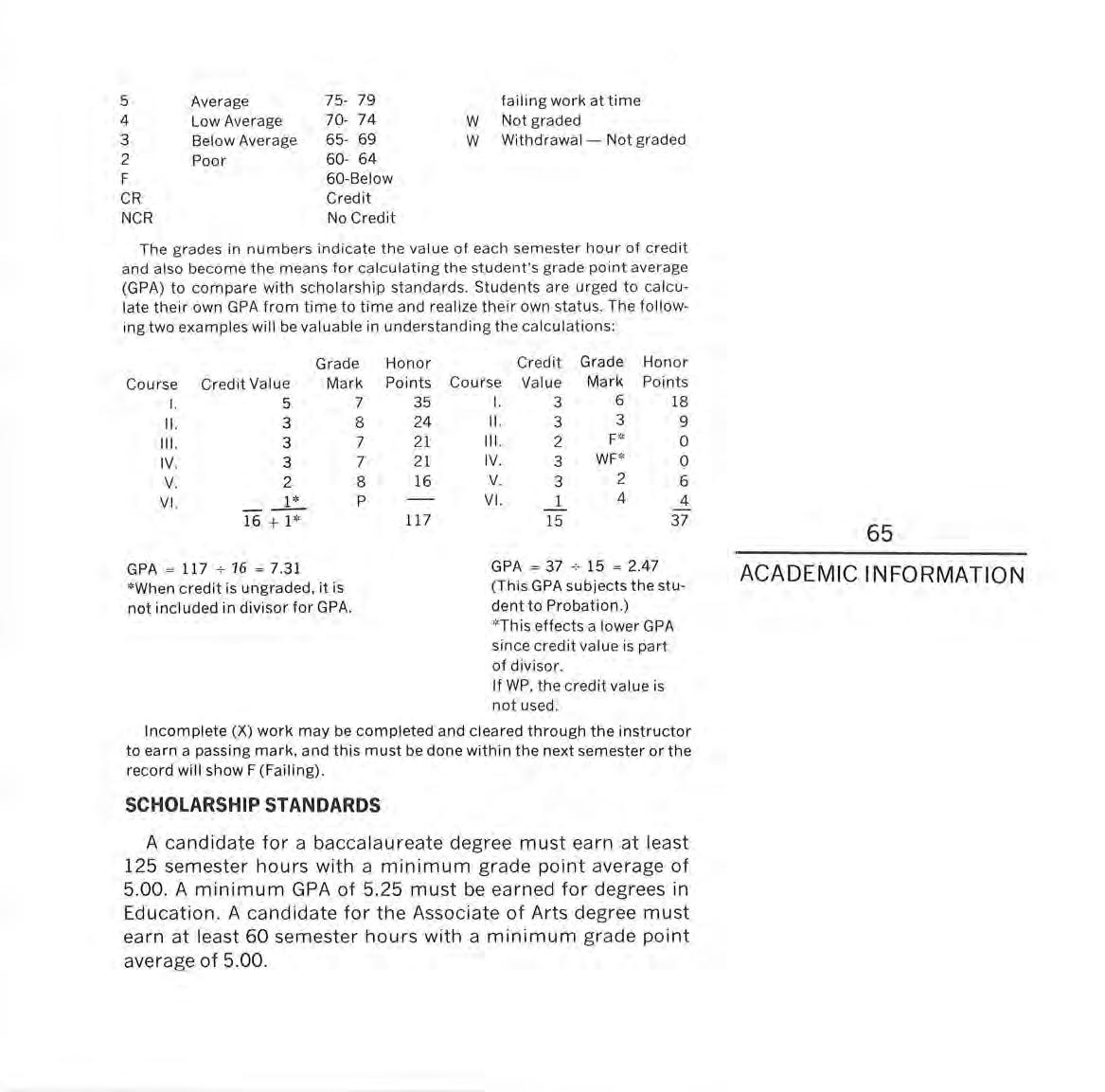
GPA = 117 + 16 = 7.31
*When cred it is ungraded, it i s not included in d ivi sor for GPA.
GPA = 37 + 15 = 2.47 (Th i s GPA subjects the student to Probation.)
*This effects a l ower GPA s in ce credit va lu e i s part of d iv i sor.
If WP , the credit va lu e is not used.
In comp l ete (X) work may be completed and c l eared through the instructor to earn a passing mark, and this must be done within the next semester or the record will show F (Failing).
A cand id ate for a bacca l aureate degree must earn at l east 125 semester hours with a minimum grade point average of 5.00. A minimum GPA of 5 .25 must be earned for degrees in Education . A candidate for the Associate of Arts degree must earn at least 60 semester hours with a minimum grade point average of 5.00.
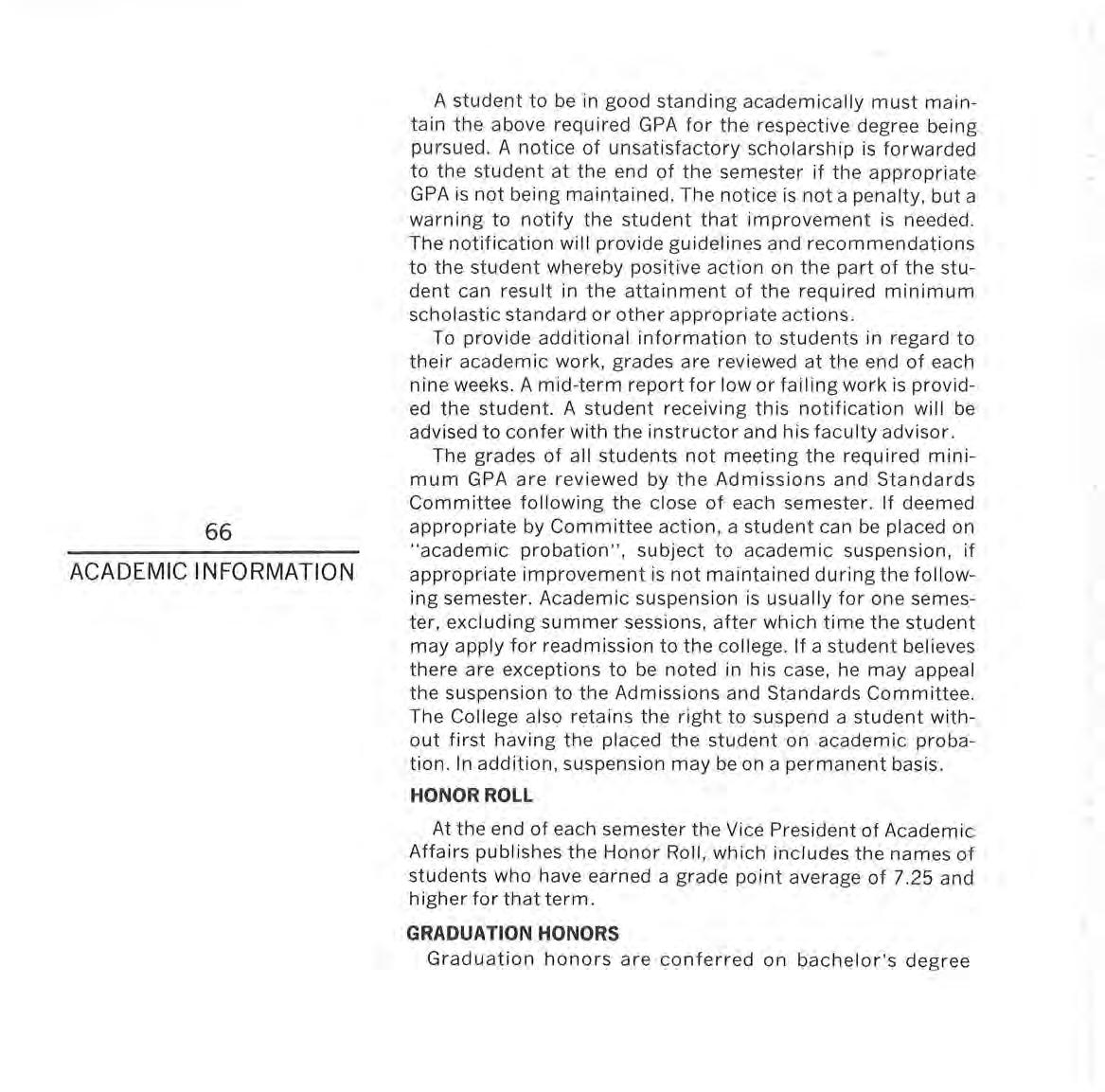
A student to be in good standing academically must maintain the above required GPA for the respective degree being pursued . A notice of unsatisfactory scholarship is forwarded to the student at the end of the semester if the appropriate GPA is not being maintained . The notice is not a penalty, but a warning to notify the student that improvement is needed . The notification will provide guidelines and recommendations to the student whereby positive action on the part of the student can result in the attainment of the required minimum scholastic standard or other appropriate actions.
To provide additional information to students in regard to their academic work, grades are reviewed at the end of each nine weeks. A mid-term report for low or failing work is provided the student. A student receiving this notification will be advised to confer with the instructor and his faculty advisor.
The grades of all students not meeting the required minimum GPA are reviewed by the Admissions and Standards Committee following the close of each semester. If deemed appropriate by Committee action, a student can be placed on "aca demic probation" , subject to academic suspension, if appropriate improvement is not maintained during the following semester. Academic suspension is usually for one semester, excluding summer sessions, after which time the student may apply for readmission to the college. If a student believes there are exceptions to be noted in his case, he may appeal the suspension to the Admissions and Standards Committee. The College also retains the right to suspend a student without first having the placed the student on academic probation . In addition, suspension may be on a permanent basis .
At the end of each semester the Vice President of Academic Affairs publishes the Honor Roll , which includes the names of students who have earned a grade point average of 7.25 and higher for that term
Graduation honors are conferred on bachelor 's degree
candidates who have earned at least 60 hours in this College. The work of eight semesters, or the equivalent, will be considered in the grade point average The scholastic requirements are as follows:
8.50-9 .00
8.00 -8.49
7.25-7 .99
With highest distinction
With high distinction With distinction
To register for a course on an audit basis implies no credit. The student pays the regular tuition fee, and is not required to write tests, examinations, and / or papers
Private instruction is avai lable in music Music students will receive private instruction without charge, in relation to their major. Other students will pay the rate per lesson as listed in the Financial Information section of catalog .
A student may and is urged to repeat any course in which he has failed . There may be occasions when a student chooses to repeat a course purely for review, to be taken on an audit basis , without a change of grade.
The accuracy of each registration as related to class periods, sections, days and other possible conflicts is the responsibility of the student. Also , the ultimate responsibility for the meeting of all requirements rests with the student. In the event a change in program is unavoidable following a registration, the student must secure the approval of the advisor and the instructor. No courses may be added after the first two weeks of a semester. When applicable, a tuition refund will be made during the first two weeks of a semester.


A student finding it necessary to withdraw from a c l ass at any time must notify his advisor and the instructor and must off icially withdraw at the Registrar's Office Students withdrawing without off ic ia l approva l will be graded "F".
Withdr awal prior to the l ast two weeks of the term will be recorded as "W " on t h e permanent record. Withd rawa l during the last two weeks and prior to the t im e of t h e final exam in at ion will result e it h er in a grade of " W" or "F" depending on the grade at th e time of withdrawal.
If it is necessary for a student to w ithdr aw from Co ll ege, h e secures the appropr ia t e form from the Director of Stude nt Lif e. This form must be presented to identified m embers of the facu lty for their s ignatures. The w ith drawal form is filed in the Registrar's off i ce The reimbursement of fees is made from the Business off ice accord in g to the refund schedu l e. St ud en t s withdrawing with off i c i a l approva l will be graded " W" (W ithdr awa l ) for a ll courses in which th ey are enro ll ed. Students withdrawing w ithout off icia l a pproval wi ll be graded " F".
Each student may request and rece iv e at any time one free transcript of his academic record. T h ere is a fee of $1.50 for each addit i ona l transcr ip t . No transcript will be issued if the stud ent h as not met a ll fin a n cia l obligations to the Co ll ege.
Most professional schoo ls require for entrance two or more years of co ll ege cred it in genera l educat ion or basic li bera l
arts courses which vary only s li ght ly from one profession to another . Since such work is required for the professional curricula in training teachers, this Co ll ege offers a variety of courses that serve as pre-professiona l educat ion. Suggested among these are those for prospective doctors, dentists, pharmacists , optometr ists, nurses, veterinarians , lawyers, engineers, agricu lturi sts, foresters, morticians, business executives, journalists and others. It is a lmo st impossible to list all of the many pre-professional curricu l a . This does not prec lud e the avai l abi lity of other pre-professional courses at Peru State. A student fol lowing a pre-professional program i s urged to secure a bu ll etin from the institution to which he int ends to transfer in order that specific requirements will be met. The various pre-professional programs are described under the appropr iate school.
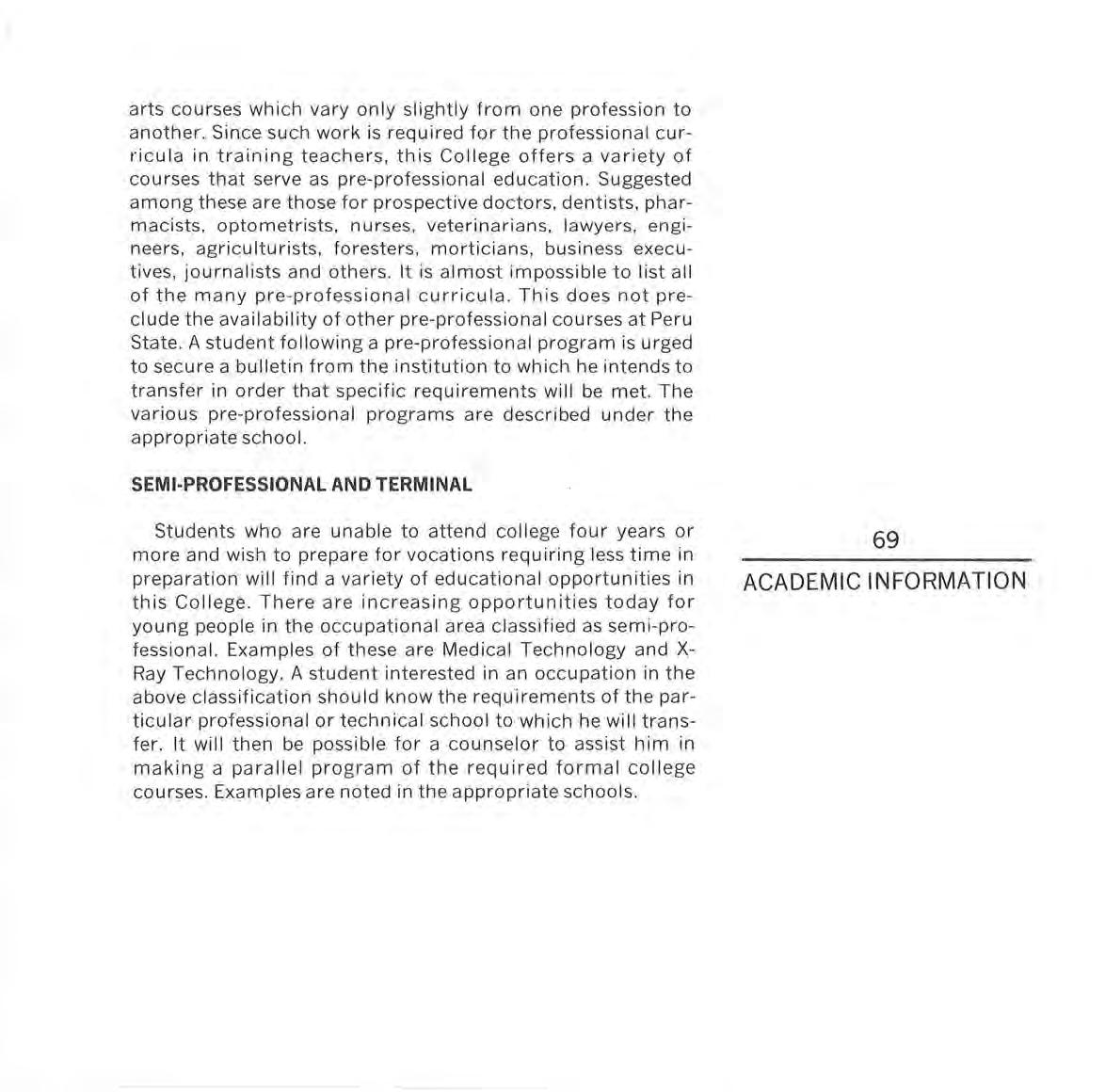
Students who are unable to attend co ll ege four years or more and wish to prepare for vocations requiring less time in preparation will find a variety of educational opportunit ies in th i s College. There are increasing opportunities today for young people in the occupational area classif ied as semi-professional. Examples of these are Medical Technology and XRay Technology. A student interested in an occupation in the above c lassif ication shou ld know the requirements of the particular professional or technical schoo l to which he will transfer. It will then be possible for a counse l or to assist him in making a parallel program of the required formal co ll ege courses. Examples are noted in the appropriate schools.
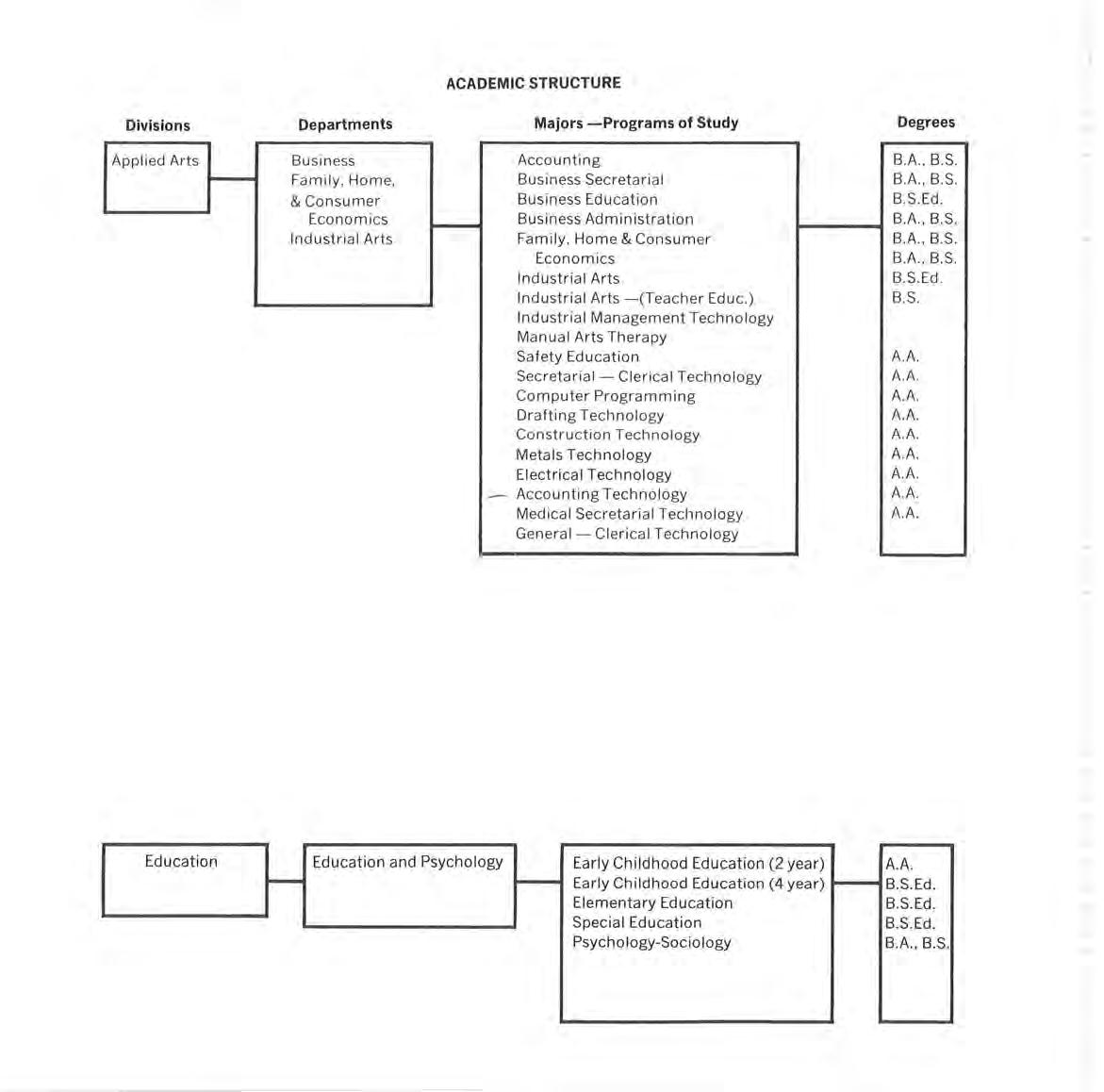
Pre-Professional (Agriculture, Engineerin g, Forestry , Medic ine, Dentistry, Mortuary, Nursing, Pharmacy, Physical Therapy, Medical Techno logy , Veterinarian, X-Ray Technology )

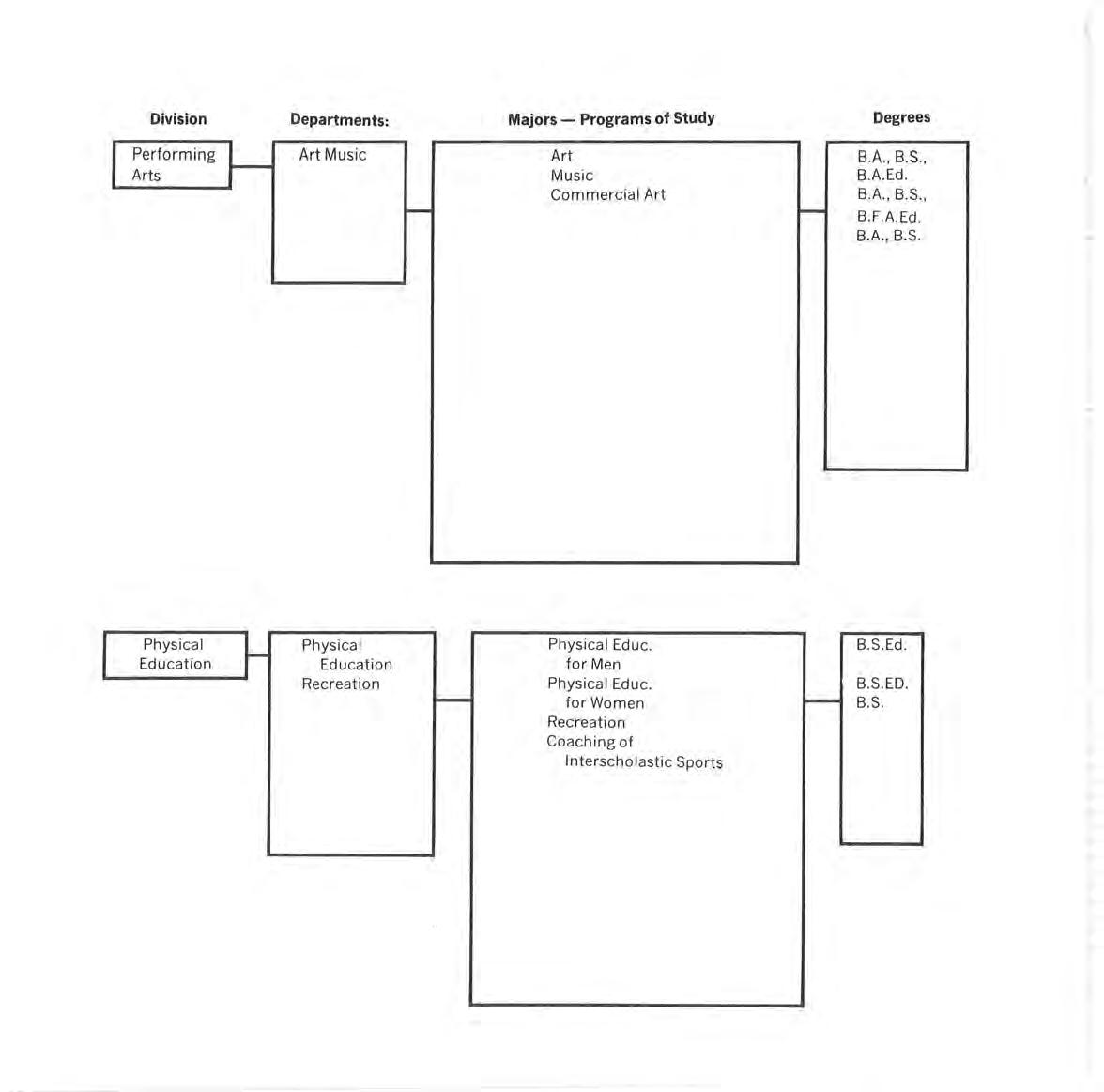
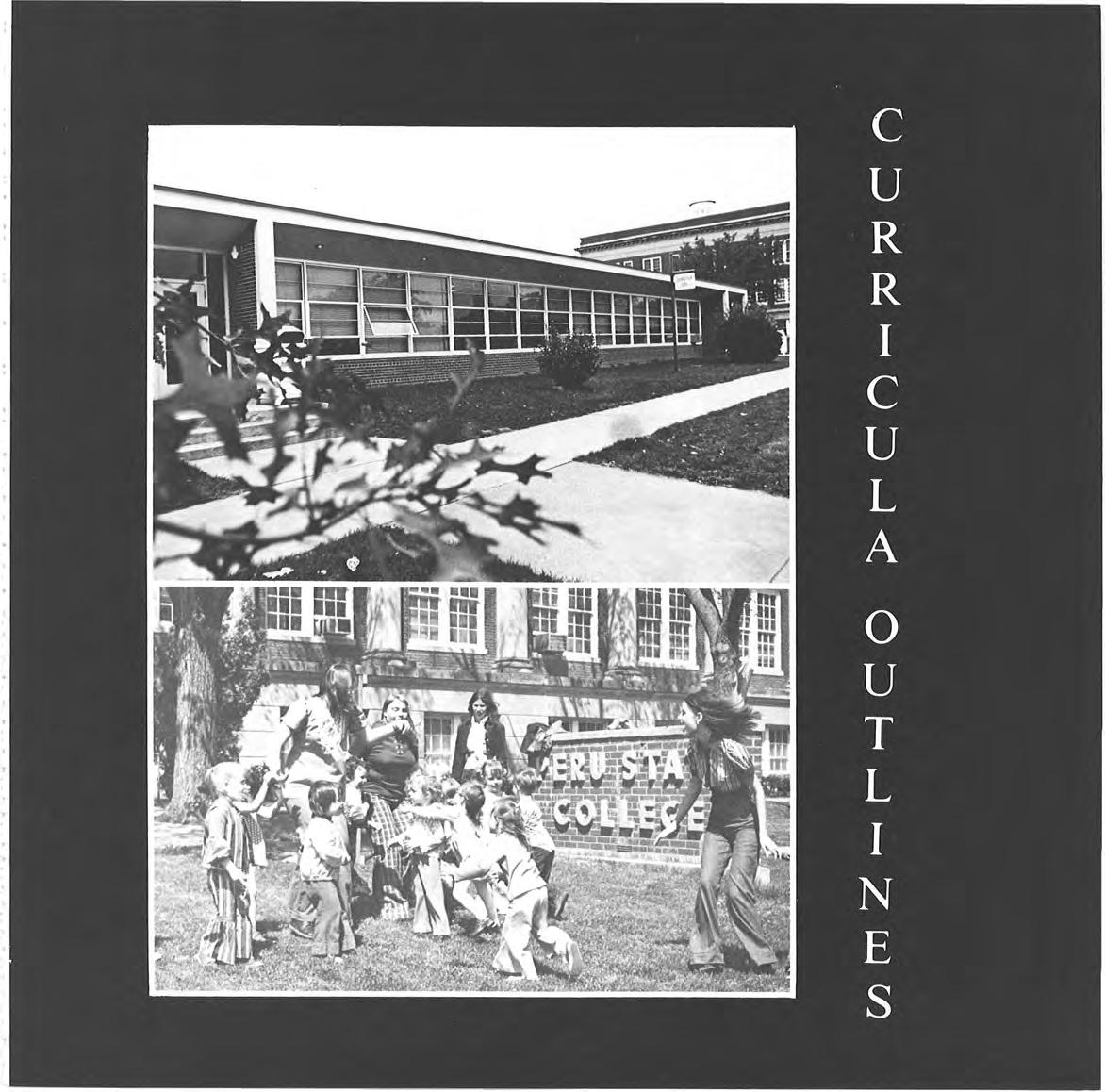


The Division of Applied Arts offers programs emphasizing practical activities and understanding typified by Industri a l Arts, Business, Family , Home and Consumer Economics, and Technical Education The major objective is to enable individuals to prepare for personal livin g needs through practical act iviti es. Courses are designed to g ive students the knowledge, habits and sk ill s necessary to provide sufficient preparation for vocational use and/or teaching.
The Business Department offers four year degree programs
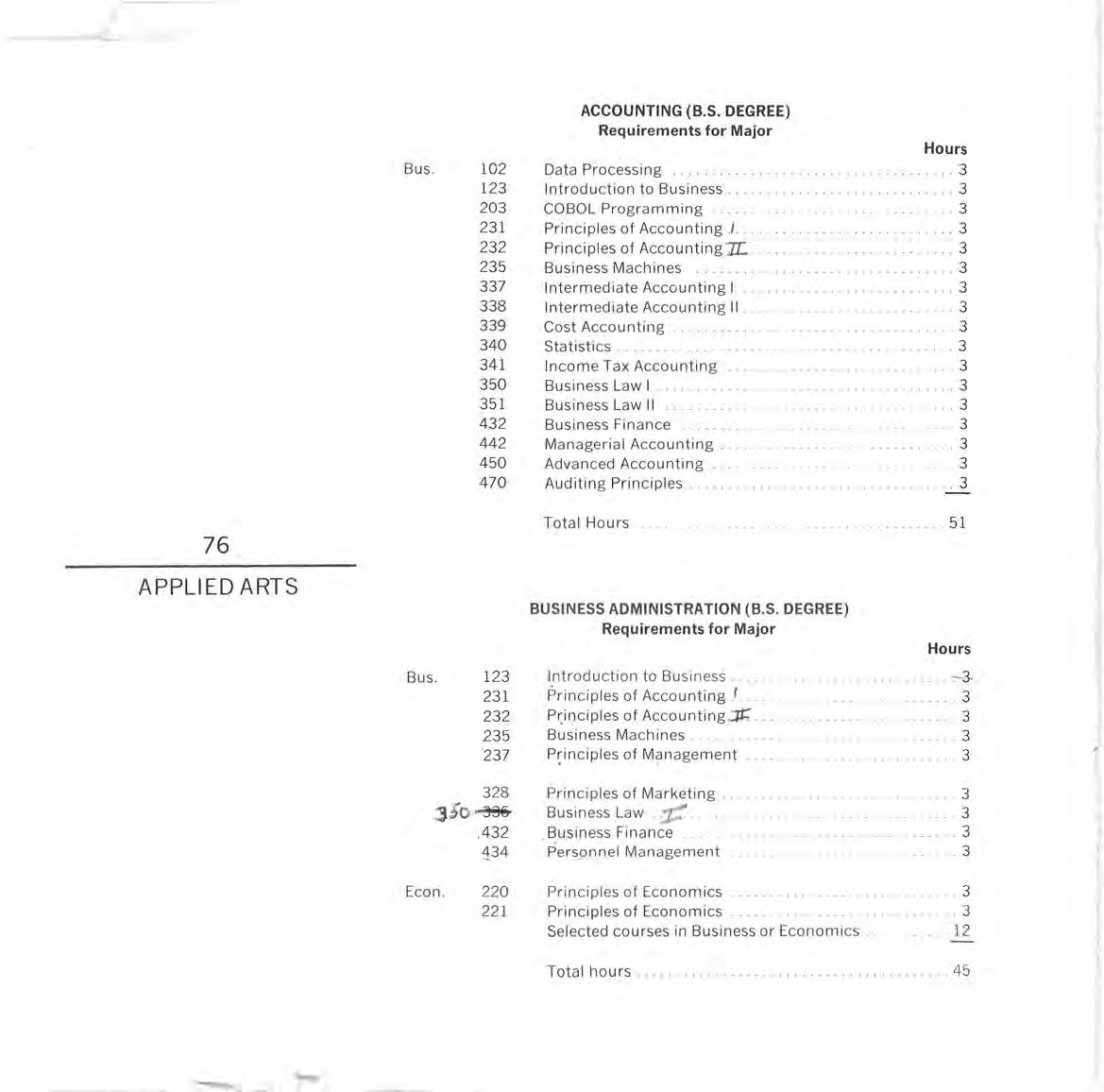
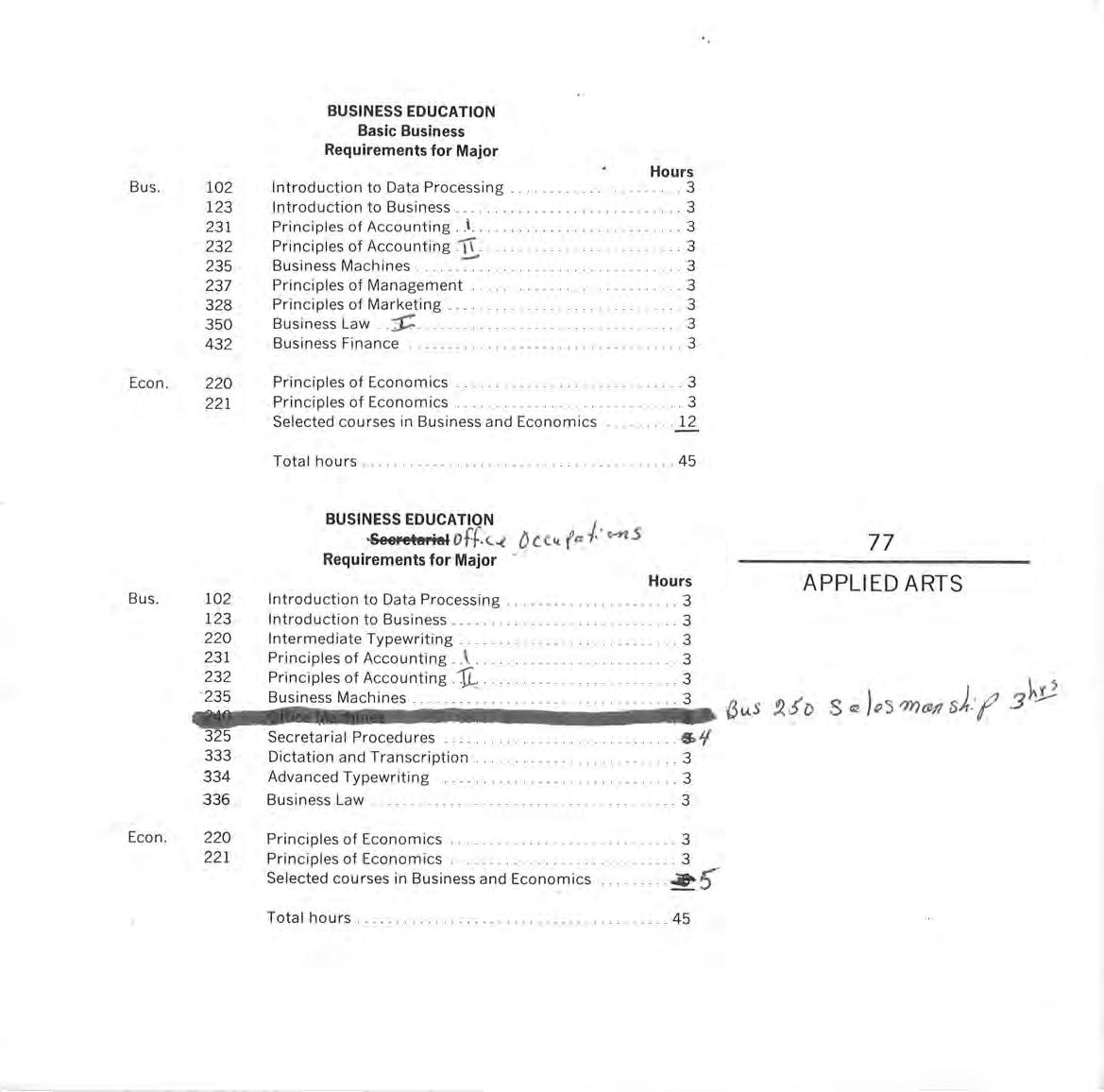
The Busin ess Department offers Asso c i ate of Arts de g ree programs in Accounting Te c hnology, Computer Programm in g, General-Clerical Techno l ogy, Med ica l Secretarial Technology , and Secretarial-Sc ience T echnology. Students majorin g in Accounting T echno logy are prepared for basic record keeping , report writing, ta x and cos t accounting, audit i ng procedures, use of bus in ess machines , and operation of e lectronic data processing machines. Computer programming majors are prepared for positions in data proc ess ing. Majors in General-Clerical Te chno logy and Secretar ial-Sc i ence T ec hnology are trained for emp loyment in genera l bus in ess off i ces as well as for work in offices of l awyers, accountants, etc. The M ed ica l Secretaria l Technolo gy prepares the student for work w ith doctors , pharmacists, or other personnel in health fields.
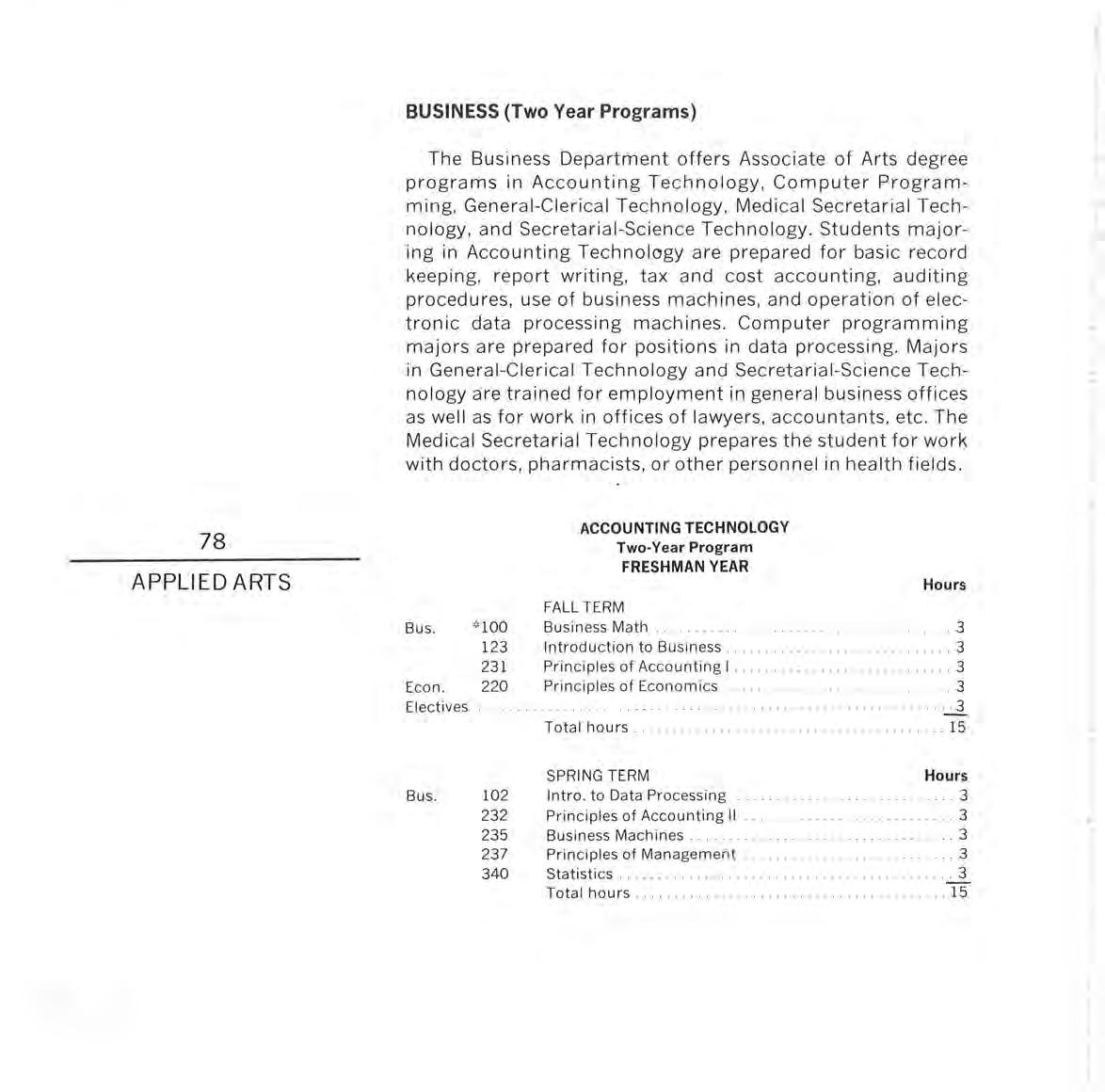
student had algebra at the high schoo l leve l and f ee ls wel l- grounded in math , he may wa
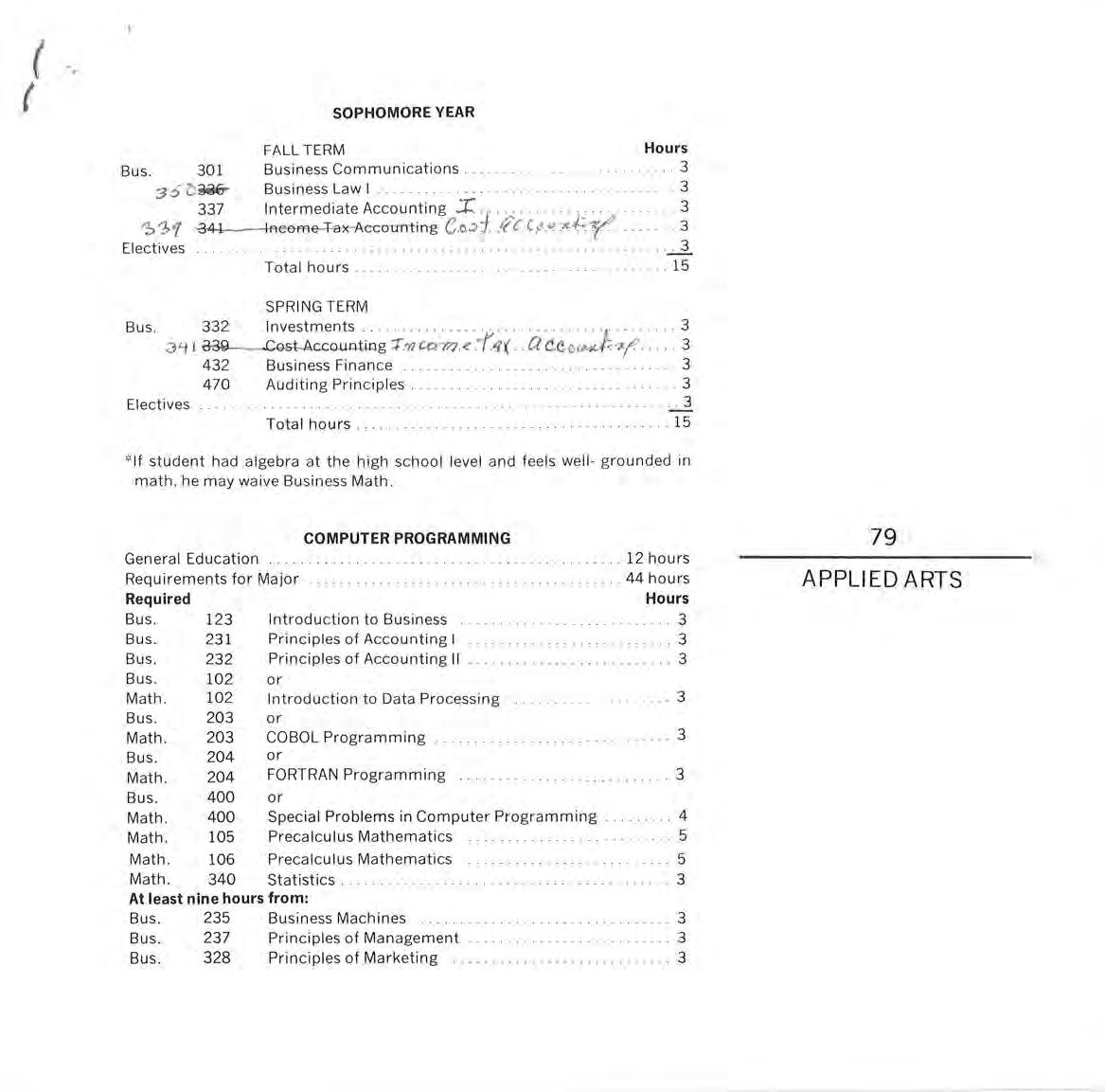

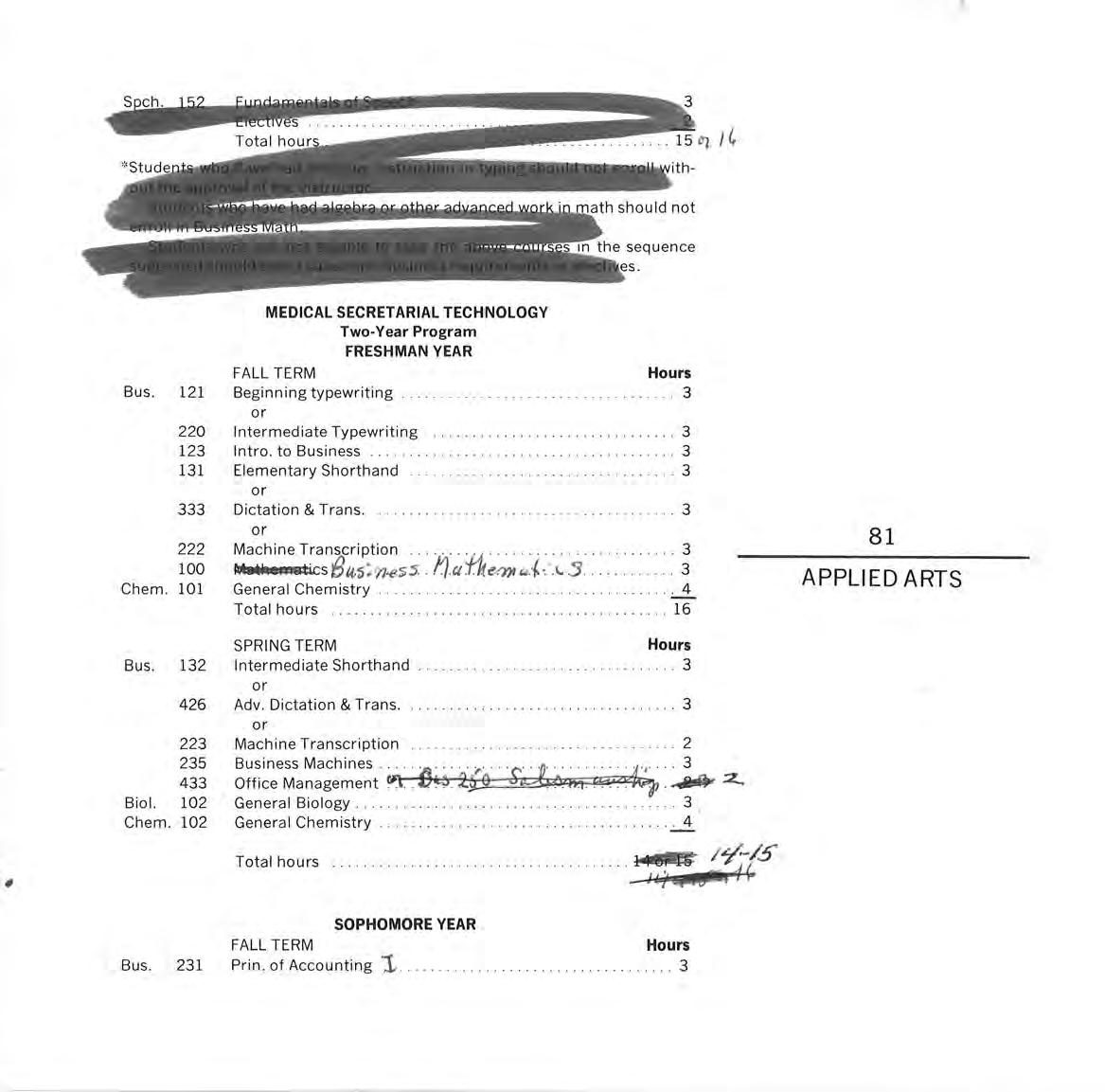
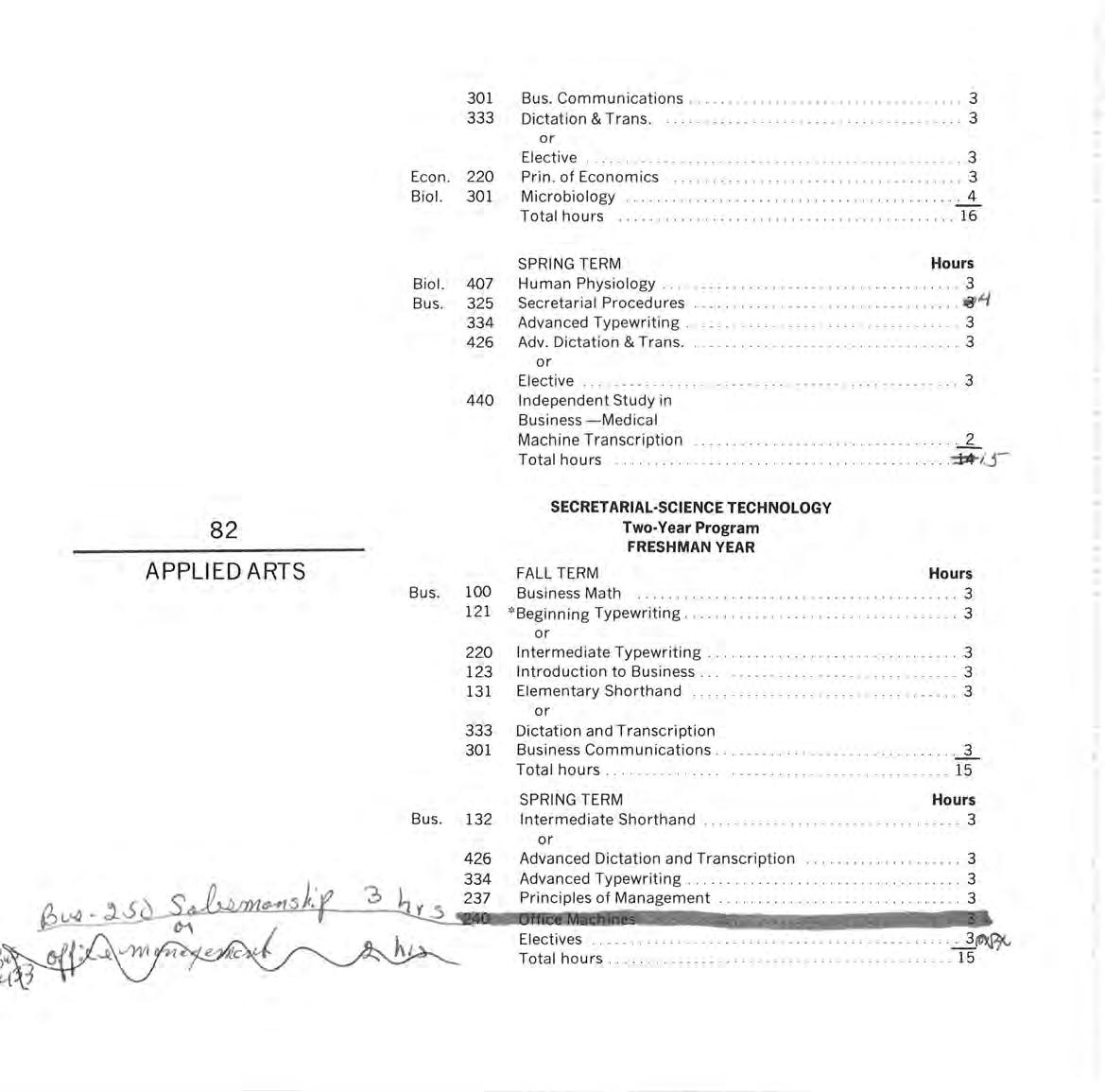
*S tu de nt s with pr ev io u s in stru c ti o n in t ypin g shoul d n o t e nroll w ith o ut th e a ppr ova l of the in stru c t o r .
Stud e nt s w h o h ave h ad a lge bra o r o th e r adv a n c ed wo rk in m a th sh o uld n o t enroll in Bu s in ess Math
Stu de n ts w ho a r e n o t e li gi bl e t o t ake th e above co ur ses in th e se qu e n ce sugges t ed sh o uld se l ect sub stitut e b us in ess r eq uirem en ts or e~ t ives
For those seeking approval in Vocational Office Occupation Education, the following is required in addition to the general degr ee requirements:
1. A c omprehensive major of 45 se mester hours.
2. Si x hours of vocational courses:
a . Vocational Education 441G
b. Vocational Education 443G
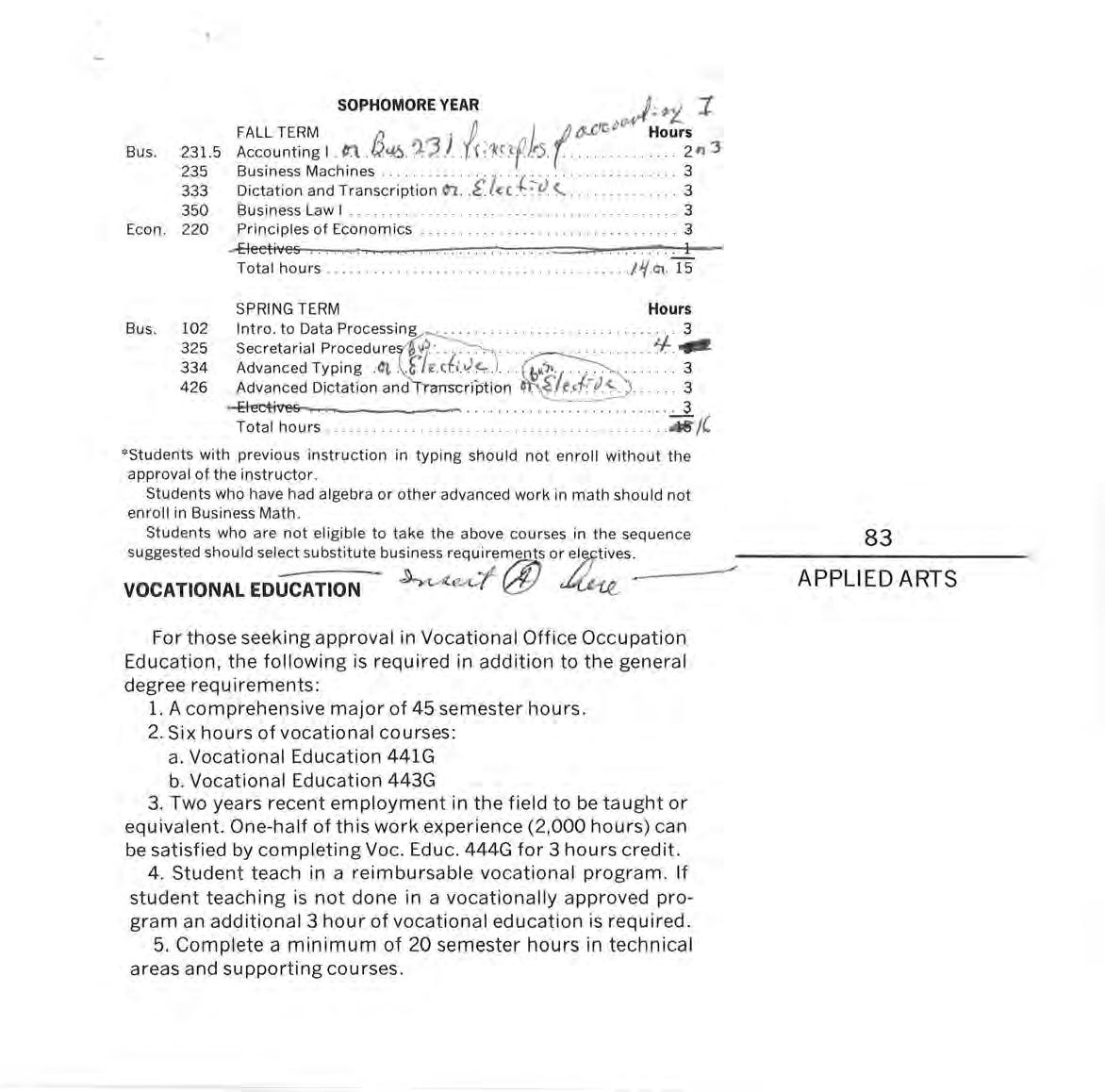
3. Two years recent employm e nt in the field to be taught or equivalent. One - half of this work experience (2,000 hours) can be satisfied by completing Voe . Educ. 444G for 3 hours credit .
4 . Student teach in a reimbursable vocational program. If student teaching is not done in a vocationally a pproved prog ram a n additional 3 hour of voc ational educ ation is required.
5 Complete a minimum of 20 semester hours in technical areas a nd supporting c ourses .
The Industri a l Arts department offers four year degree programs in Industri a l Management Technology.
Tec hn ical Drawin g I
Woodworking Technol ogy I
Woodworking T ec hnolo gy 11
Metal s Te c hnolo gy I
T ec hni ca l Dr aw in g II
Students in In dustria l Art s T eac h er Education mu st have six c r ed it s in at l eas t four of the following seven areas : drafting , e le ctr ic ity-ele c tr o ni cs, woodwo rkin g, po wer mechanics, m eta l-work in g, gra phi c arts a nd c r a ft s.
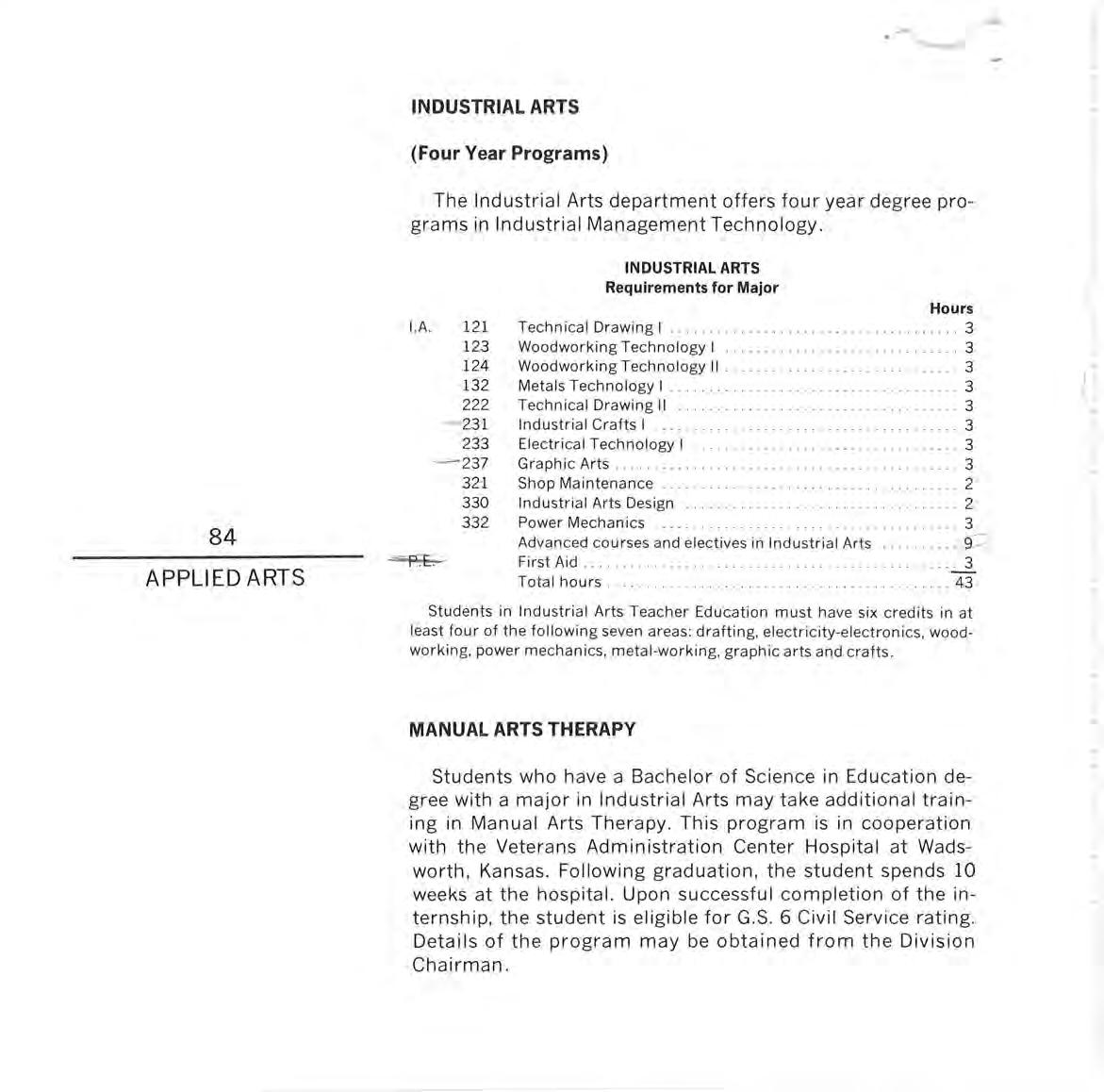
Students who have a Ba c helor of Scien ce in Edu ca tion degree with a major in Industrial Arts may take additional trainin g in Manual Arts Therapy. This program is in cooperation with the Vet erans Administr at ion Center Hospital at Wadsworth, Kansas . Following graduation, the student spends 10 weeks at the hospital. Upon successful co mpletion of the internship , the student is eligible for G.S. 6 Civi l Service rating. Details of the program may be obtained from the Division Chairman.
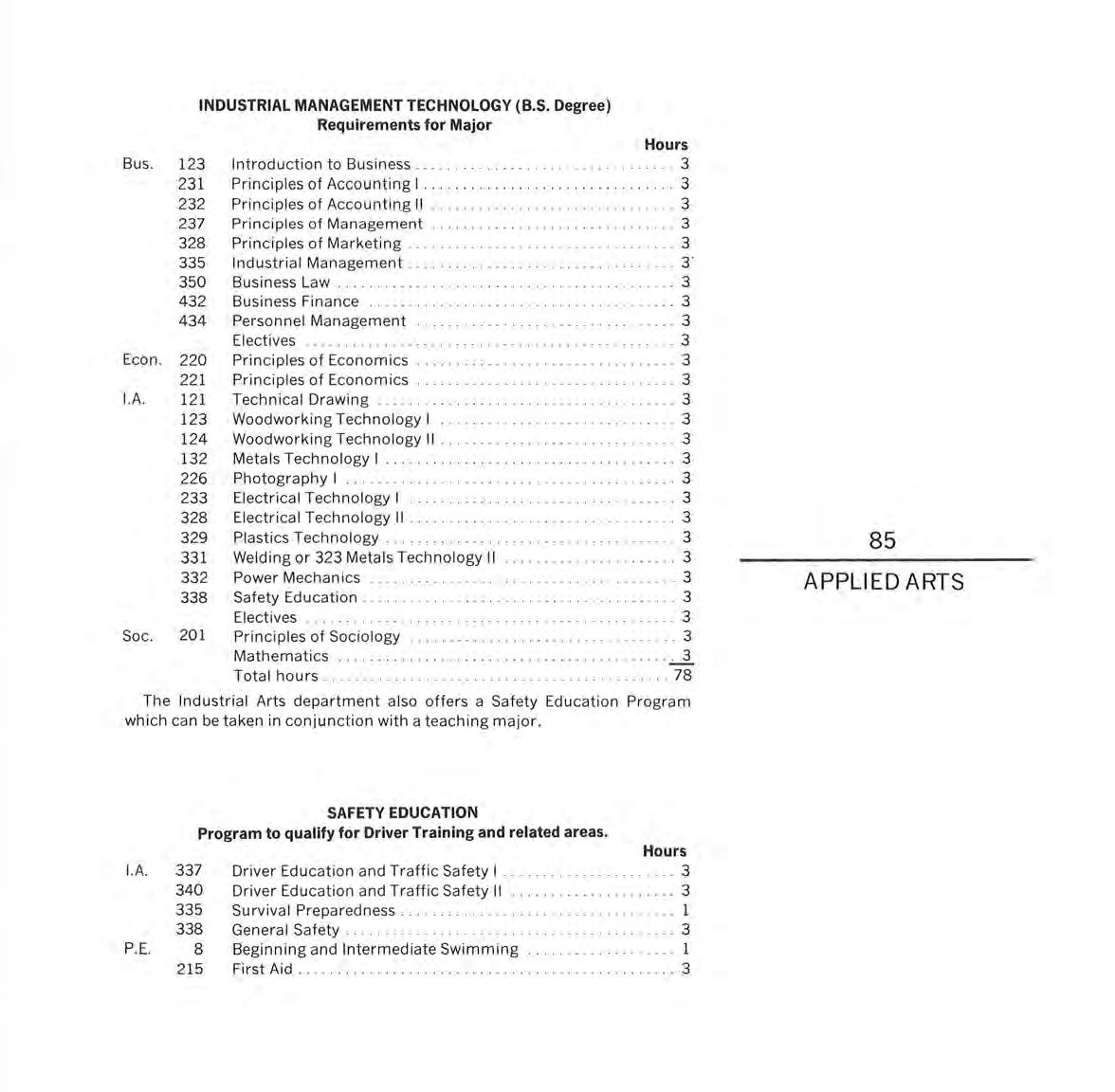
Driver Ed Electives
Total hours .
Must hold a Nebraska driver 's Iicense.
Must ha ve a minimum driving record of two years and 20,000 miles (state and local) free from chargeable accidents and moving traffic vio l ations.
A teaching certificate with a tea c hing major or endorsement, in addition to driver education is req uired.
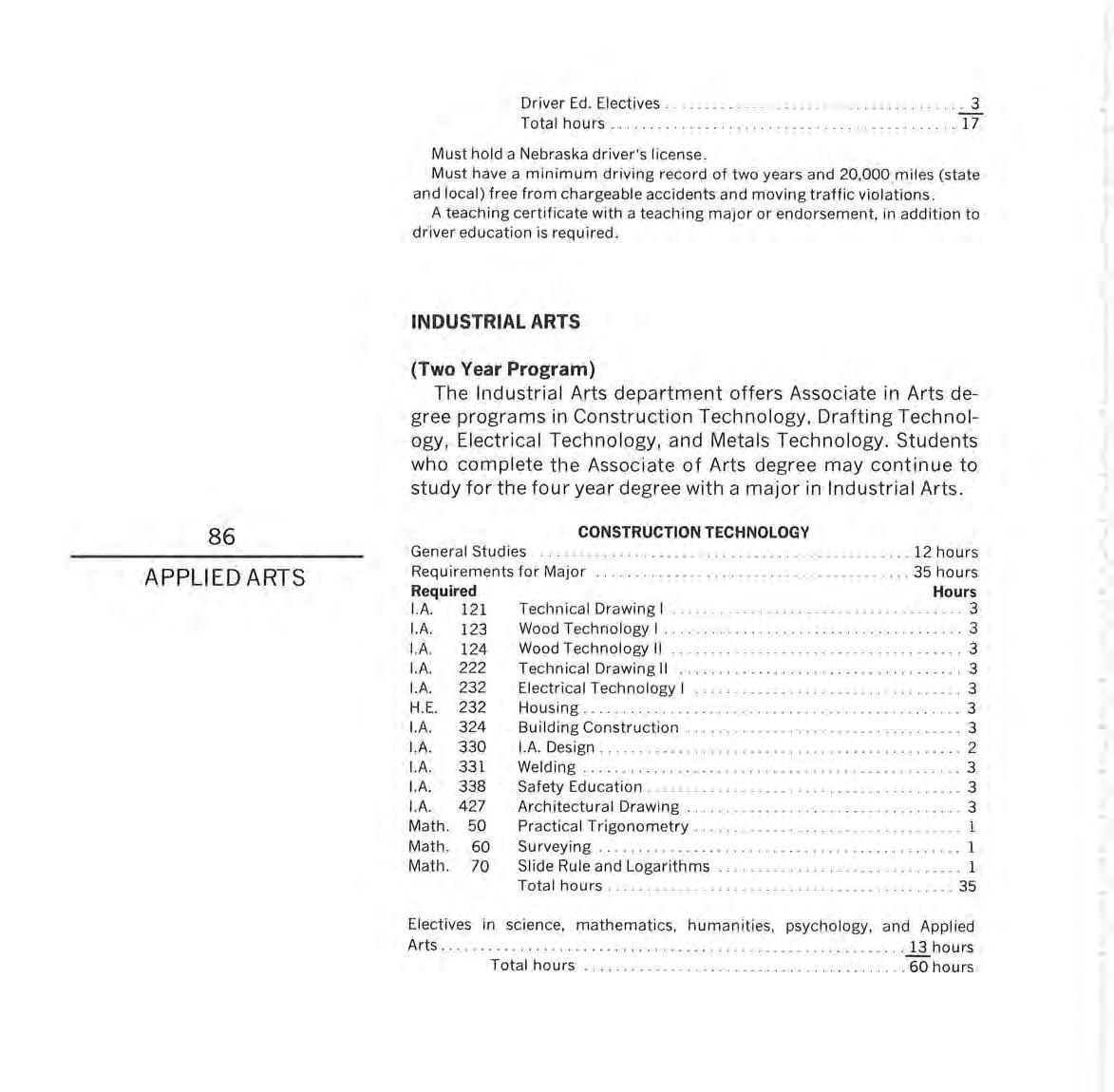
The Indu stria l Arts department offers Associate in Arts degree programs in Construction Technology, Drafting Technology, Electrical Technology, and Metals Technology. Students who complete the Associate of Arts degree may continue to study for the four year degree with a major in Industrial Arts.

For those seeking approval in Vocational Trades and Industry Education , the following is required in addition to the genera l degree program.
1. A comprehensive major of 45 semester hours.
2. Six hours from the following Vocational courses:
--
a. Vocational Education 441G
b. Vocational Education 442G
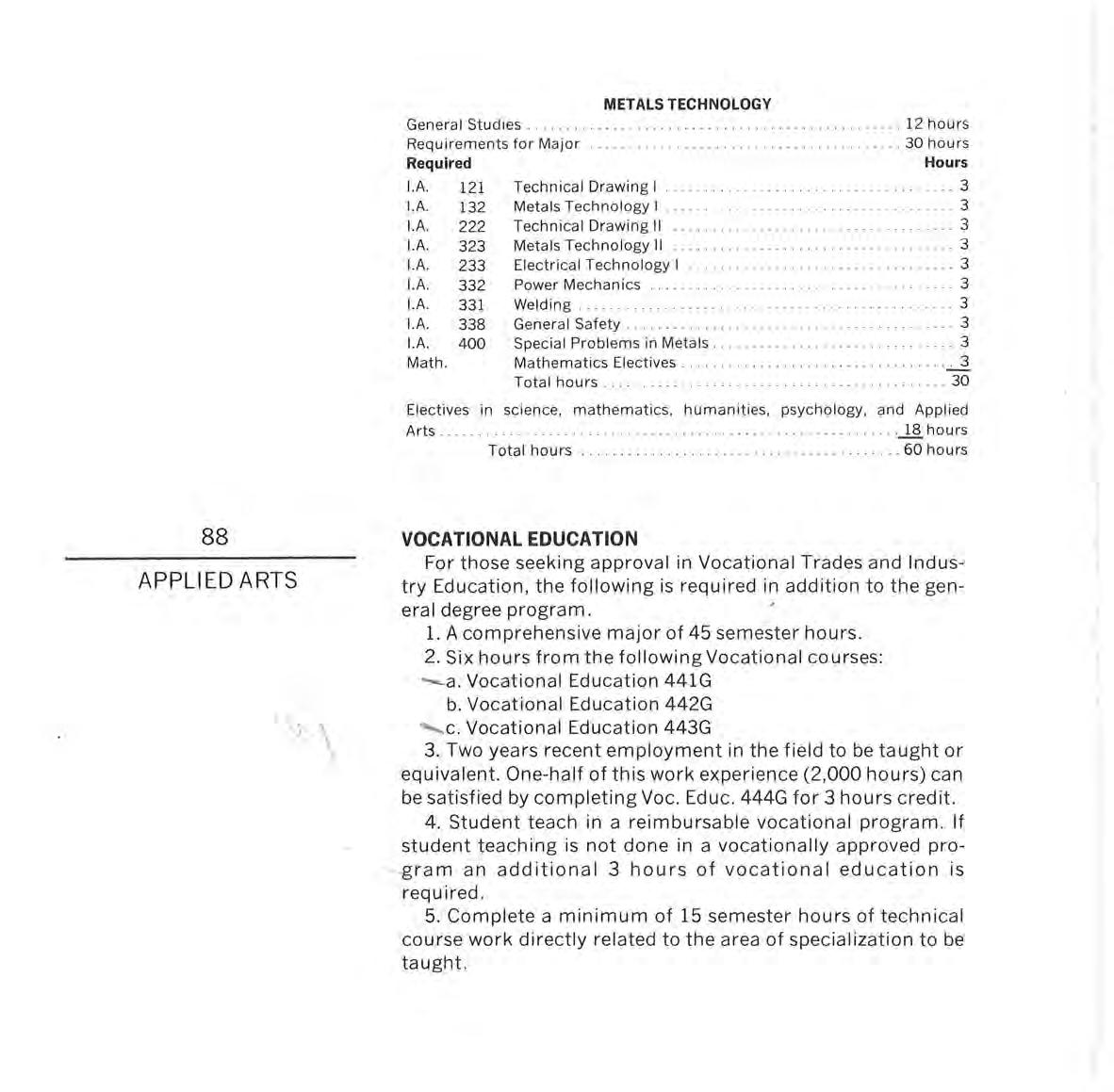
c. Vocational Education 443G
,
3. Two years recent employment in the field to be taught or equivalent. One-half of this work experience (2,000 hours) can be satisfied by completing Voe. Educ. 444G for 3 hours credit.
4. Student teach in a reimbursable vocational program. If student teaching is not done in a vocationally approved program an additional 3 hours of vocational education is required.
5. Complete a minimum of 15 semester hours of technical course work directly related to the area of specialization to be taught.
Th is four year degree program is also offered by the Division of Applied Arts.
FAMILY, HOME AND CONSUMER ECONOMICS (B.S. Degree) Requirements for Major
Elect 5 hours from:
H.Ec . 133 Food Preparation and Nutrition
H.Ec. 134 Meal Ma nagement
H.Ec 141 C lothin g Selection a nd Construction
H.Ec. 205 Selection , Use and Care o f Househo ld Equipment
H.Ec. 232 Housing
H.Ec 322 Home Furnishing
H .Ec. 333 Textil es
H Ec. 410 The Consumer in Amer i can Society
H.Ec. 421 Hom e Management
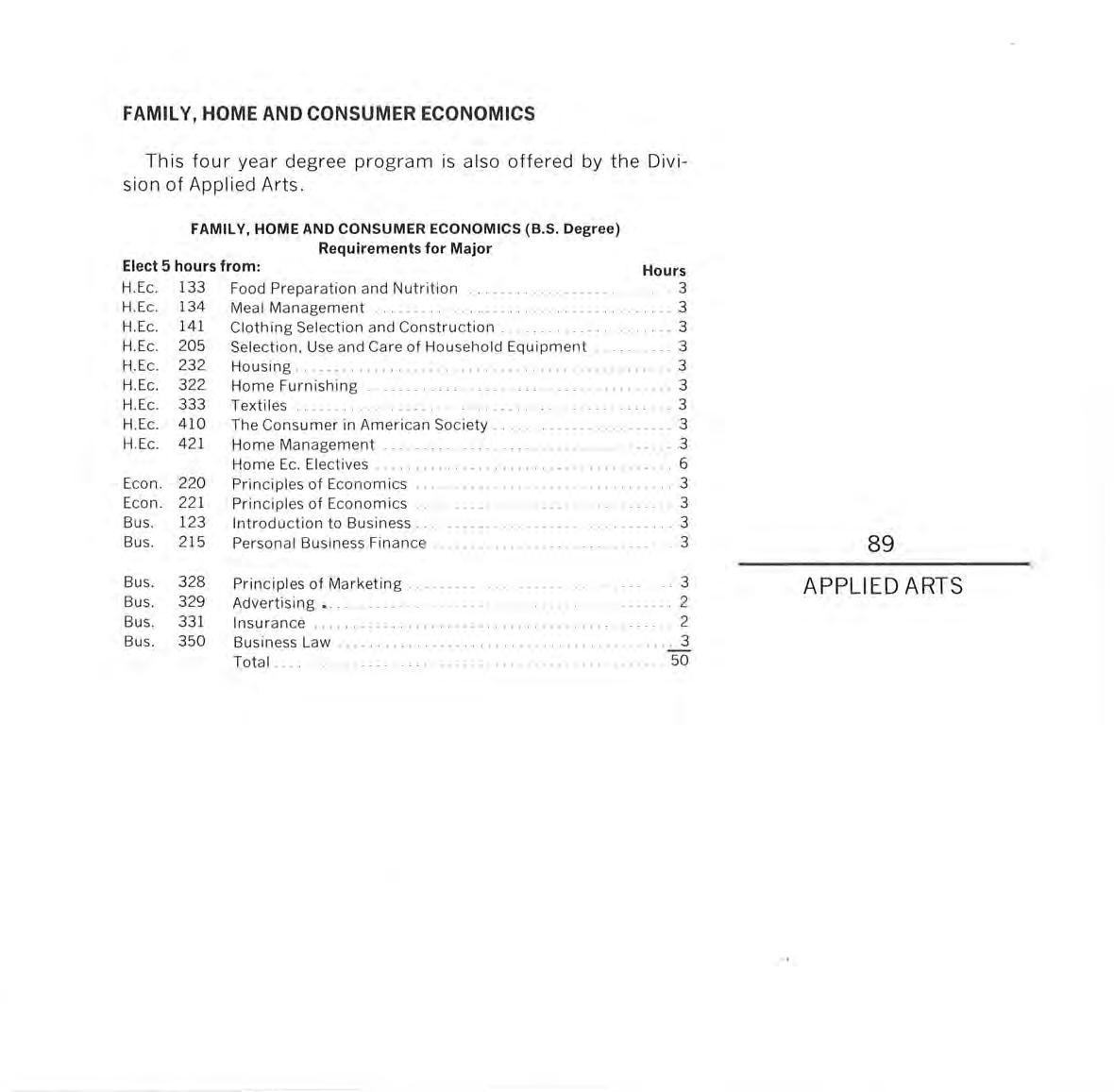
Hom e Ee El ectives
Econ. 220 Principles of Economics
Econ. 22 1 Principles of Economics
Bus. 123 Intr oduction to Bu siness
Bus. 2 15 Personal Busines s Finance
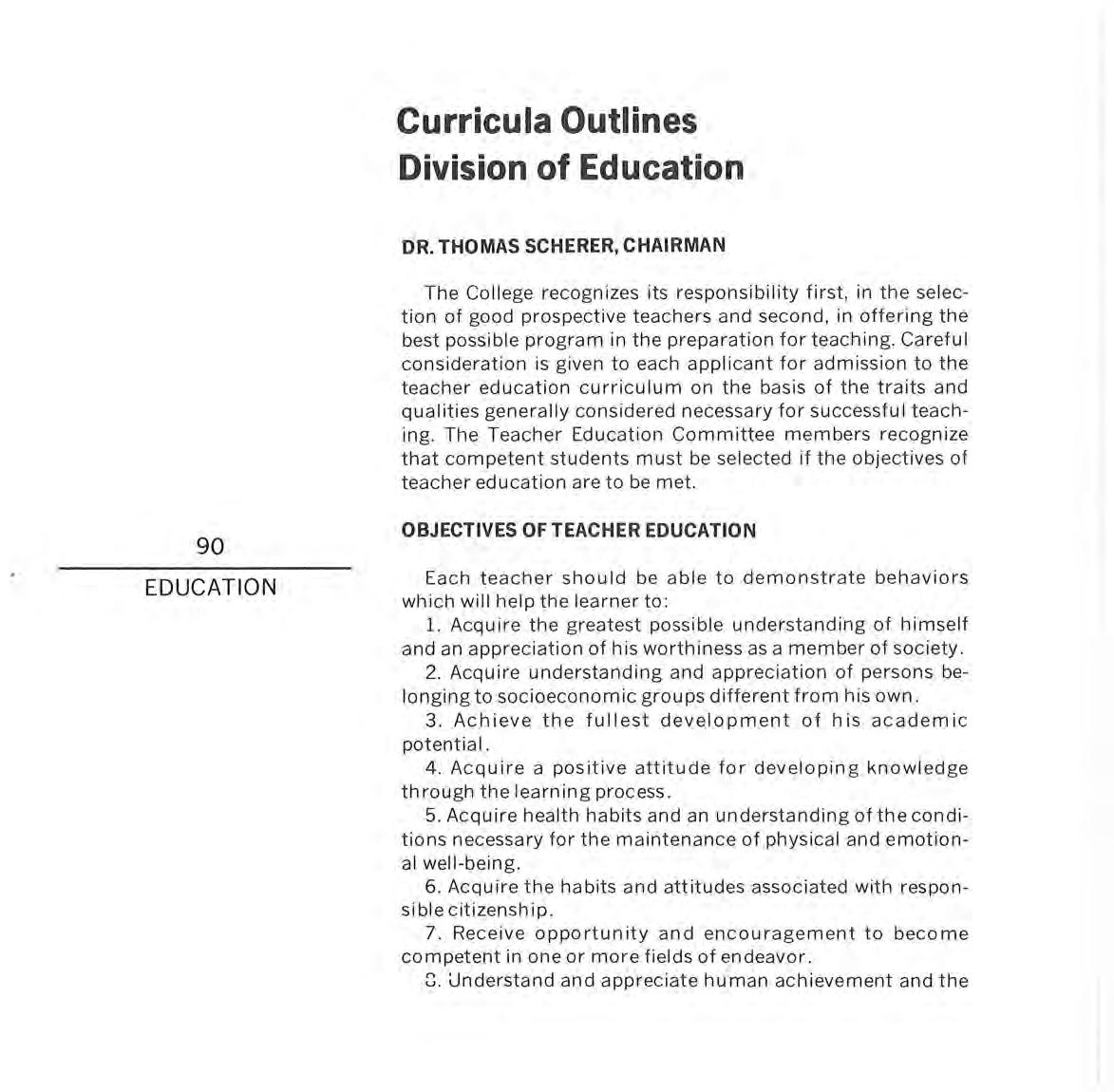
The College recognizes its responsibility first, in the selection of good prospective teachers and second, in offering the best possible program in the preparation for teaching. Careful consideration is given to each applicant for admission to the teacher education curriculum on the basis of the traits and qualities generally considered necessary for successful teaching. The Teacher Education Committee members recognize that competent students must be selected if the objectives of teacher education are to be met.
Each teacher should be able to demonstrate behaviors which will help the learner to:
1. Acquire the greatest possible understanding of himself and an appreciation of his worthiness as a member of society.
2 . Acquire understanding and appreciation of persons belonging to socioeconomic groups different from his own.
3. Achieve the fullest development of his academic potential.
4. Acquire a positive attitude for developing knowledge through the learning process.
5. Acquire health habits and an understanding of the conditions necessary for the maintenance of physical and emotional well-being.
6. Acquire the habits and attitudes associated with responsible citizenship.
7 . Receive opportunity and encouragement to become competent in one or more fields of endeavor
8 . understand and appreciate human achievement and the
interdisciplinary nature of the natural sciences, the social sciences , the humanities and the arts.
9 Understand the opportunities for preparing himself for a productive life and encourage him to participate in these opportunities.
10. Prepare for a world of rapid change and unforeseeable demands in which continuing education becomes a part of his adult way of life.
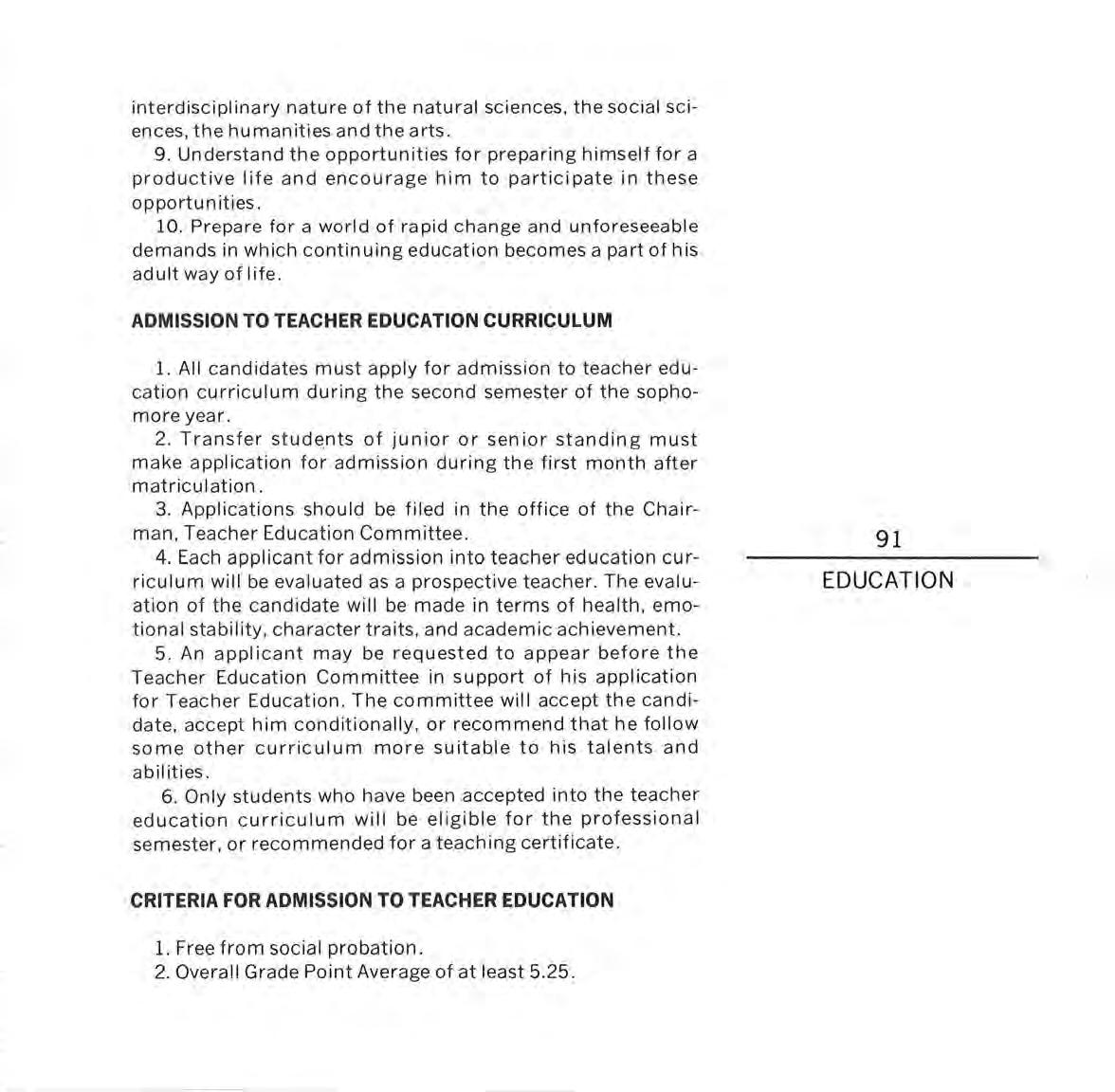
1. All candidates must apply for admission to teacher educ a tion curriculum during the second semester of the sophomore year.
2 . Transfer stude.nts of junior or senior standing must make application for admission during the first month after matriculation .
3 . Applications should be filed in the office of the Chairman, Teacher Education Committee
4 . Each applicant for admission into teacher education curriculum will be evaluated as a prospective teacher . The evaluation of the candidate will be made in terms of health, emotional stability, character traits, and academic achievement .
5. An applicant may be requested to appear before the T e acher Education Committee in support of his application for Teacher Education The committee will accept the candidate, accept him conditionally, or recommend that he follow some other curriculum more suitable to his talents and abilities.
6 Only students who have been accepted into the teacher education curriculum will be eligible for the professional semester , or recommended for a teaching certificate
l. Free from social probation.
2 . Overall Grade Point Average of at least 5.25.
3. Recommended by persons who by virtue of past association are in a position to know the student as a prospective teacher.
4. Evidence of proficiency in mathematics and English. Scores at or above the fiftieth percentile on the ACT test in the areas of language and mathematics, or tenth grade level on the California Mathematics and Language Achievement tests are required.
Information regarding teaching certificates may be obtained in the Registrar's Office or from the Director of Teacher Certification, State Capitol, Lincoln , Nebraska, 68509
All applicants are hereby advised that meeting academic or graduation requirements does not automatically complete requirements for institutional endorsement.
According to Nebraska Teacher Certification, the College has the responsibility of endorsing qualified persons for certificates. This responsibility has been delegated to the Teacher Education Committee. An endorsement indicates the grade level, subject field or area of specialization for which the teacher was especially prepared, and implies that the applicant has met appropriate standards of scholarship, sound mental and physical health, good citizenship, and moral character.
Those desiring endorsement must submit application to the Teacher Education Committee not less than three (3) weeks prior to the end of the term . Applicant must have written the TEEP prior to making application for endorsement.
The Teacher Education Examination Program is a compre-

hensive two-part test required of all students seeking teacher certification. The first part of the test covers five areas in which competence is considered basic to effective teaching: Social-Philosophical- Historical Bases of Education, Learning and Instruction, written English Expression, Cultural Background , and Science and Mathematics . The second part of the test is designed to gauge the candidate ' s knowledge and ability for teaching in a specific field . The test is given three times each year and takes approximately four hours.
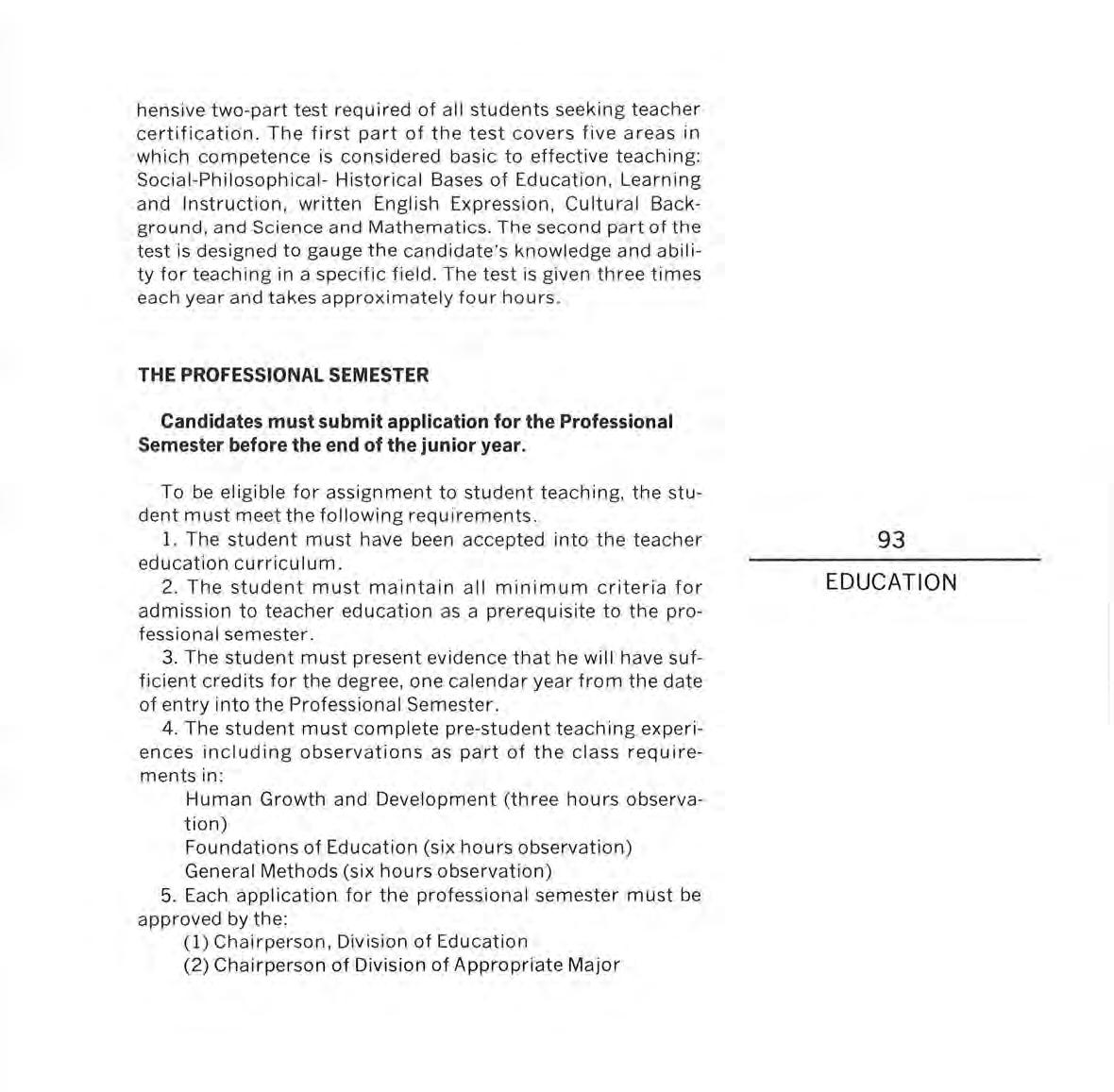
Candidates must submit application for the Professional Semester before the end of the junior year.
To be eligible for assignment to student teaching, the student must meet the following requirements.
1. The student must have been accepted into the teacher education curriculum.
2. The student must maintain all minimum criteria for admission to teacher education as a prerequisite to the professional semester.
3. The student must present evidence that he will have sufficient credits for the degree, one calendar year from the date of entry into the Professional Semester.
4. The student must complete pre-student teaching experiences including observations as part of the class requirements in:
Human Growth and Development (three hours observation)
Foundations of Education (six hours observation)
General Methods (six hours observation)
5. Each application for the professional semester must be approved by the:
(1) Chairperson, Division of Education
(2) Chairperson of Division of Appropriate Major
6. Register for and write the Teacher Education Examination Program
The Division of Education is responsible for offering the required professional education courses, exclusive of Special Methods, for a ll elementary and secondary majors.
In addition to all general and professional education requirements, the student must complete a major in one of the areas designated below
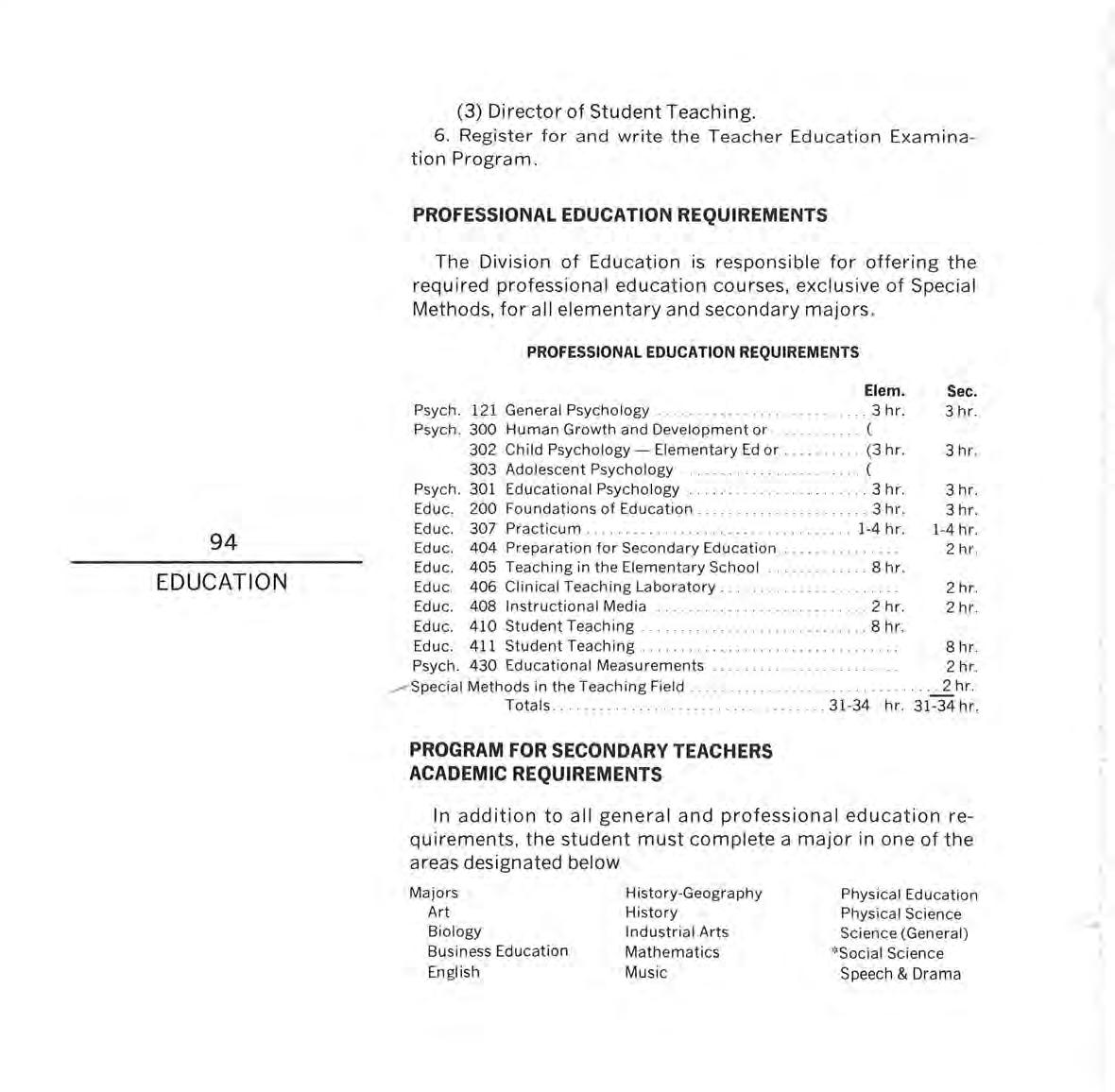
*Additional endorsements possible - History, Geography, Economics, Politica l Science and Sociology.
Additional teaching endorsements in Coaching and Driver's Education are offered to comp lement any of the above majors.
Degree candidates seeking a teaching endorsement at the secondary level are further advised that to teach in a field outside of the major in a school accredited by the North Central Association, 24 hours are generally required. This latter condition does not necessarily imply that the candidate will qualify for a second endorsement.
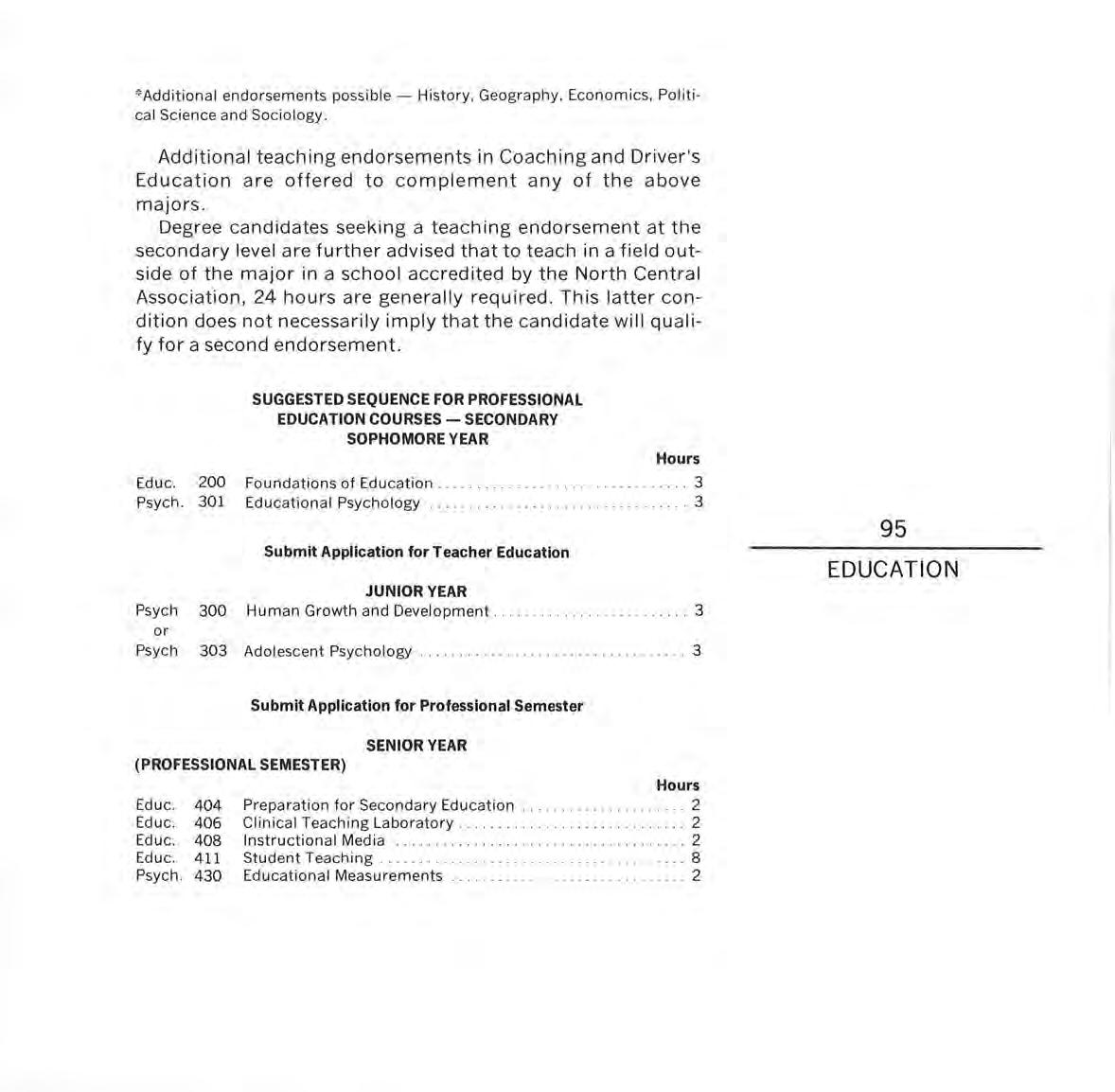
(Four Year Programs)
The Department of Education offers four year degree programs in Elementary Education, Elementary Education with an endorsement in Early Childhood Education, Elementary Education with an endorsement in Special Education , and a Psychology-Sociology B.S. degree program .
In addition to all general and professional education requirements, students must complete the following academic requirements . The candidate must also earn 24 hours in one academic area, and 15 hours in each of two additional areas commonly taught in the elementary schools, along with 15 hours (electives). These "areas" represent the various instructional divisions of the College.
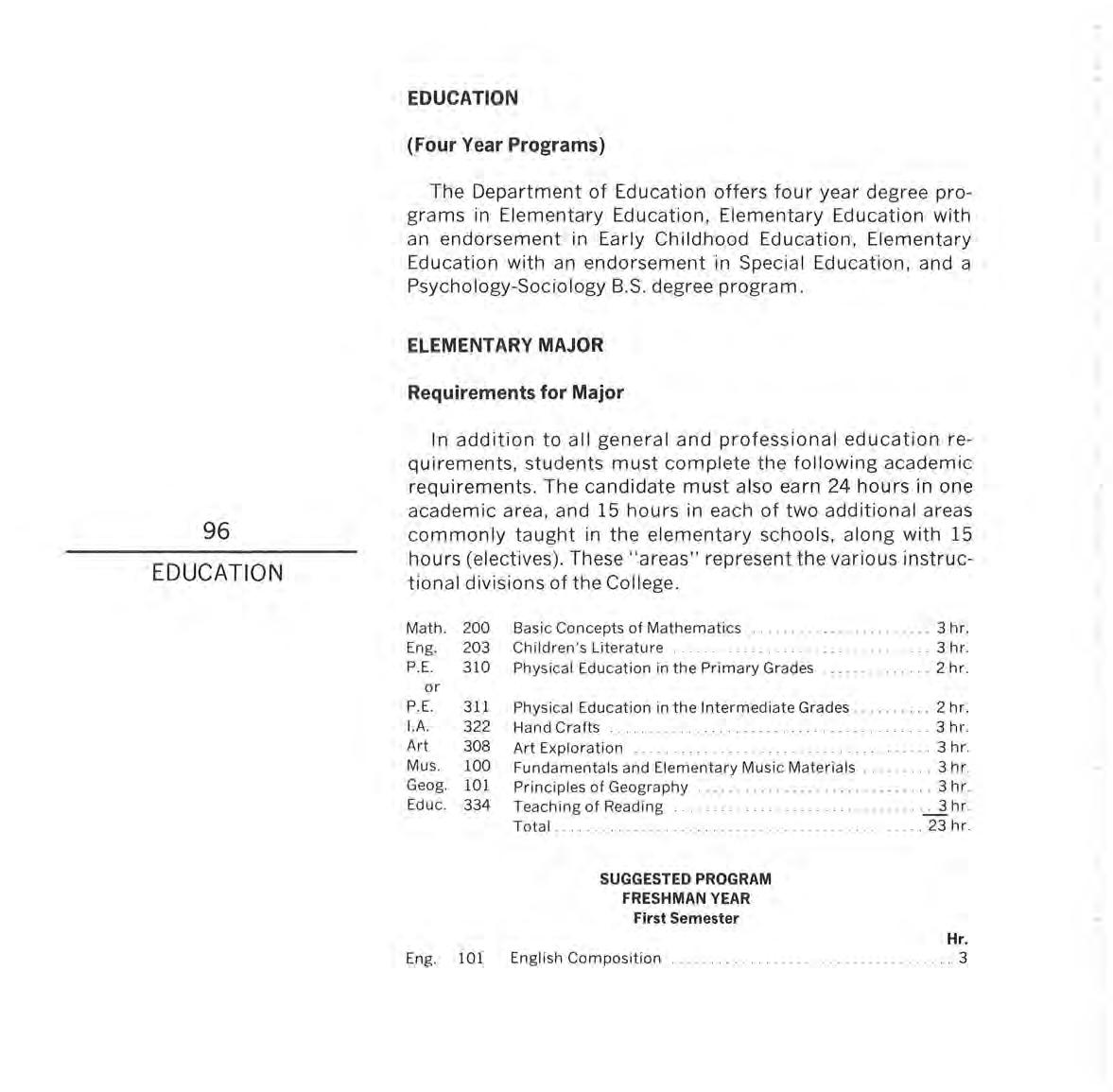
S.S. 100
Geog. 101 Social Science . Principles of Geography
P.E. (Exercise Course)
Speh 152 Fundamentals of Speech
Academic Requirements
Total hours
Second Semester
Psych. 121 General Psychology* .
P E (Exercise Course)
Academic Requirements
Elective
Eng. 203 Children ' s Literature
Music 100 Fundamentals and Elementary Music Materials
P. E. 310 or
P.E . 311 Primary-Intermediate Grades
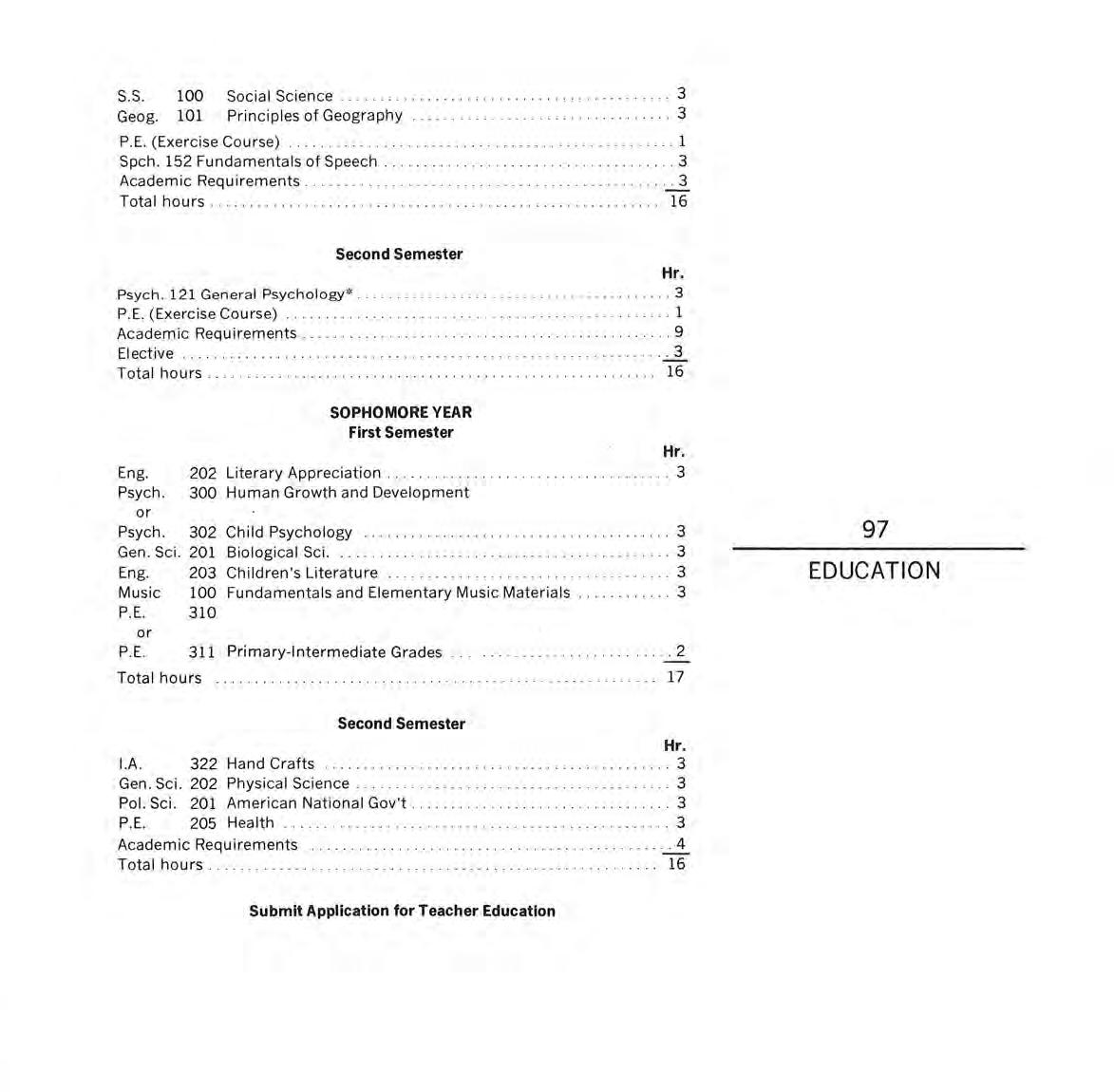
Total hours
Second Semester
I.A. 322 Hand Crafts Gen . Sci. 202 Physical Science . . ... . . . . . .. .
Pol Sci. 201 American National Gov't
P.E 205 Health
Academic Requirements
Total hours.
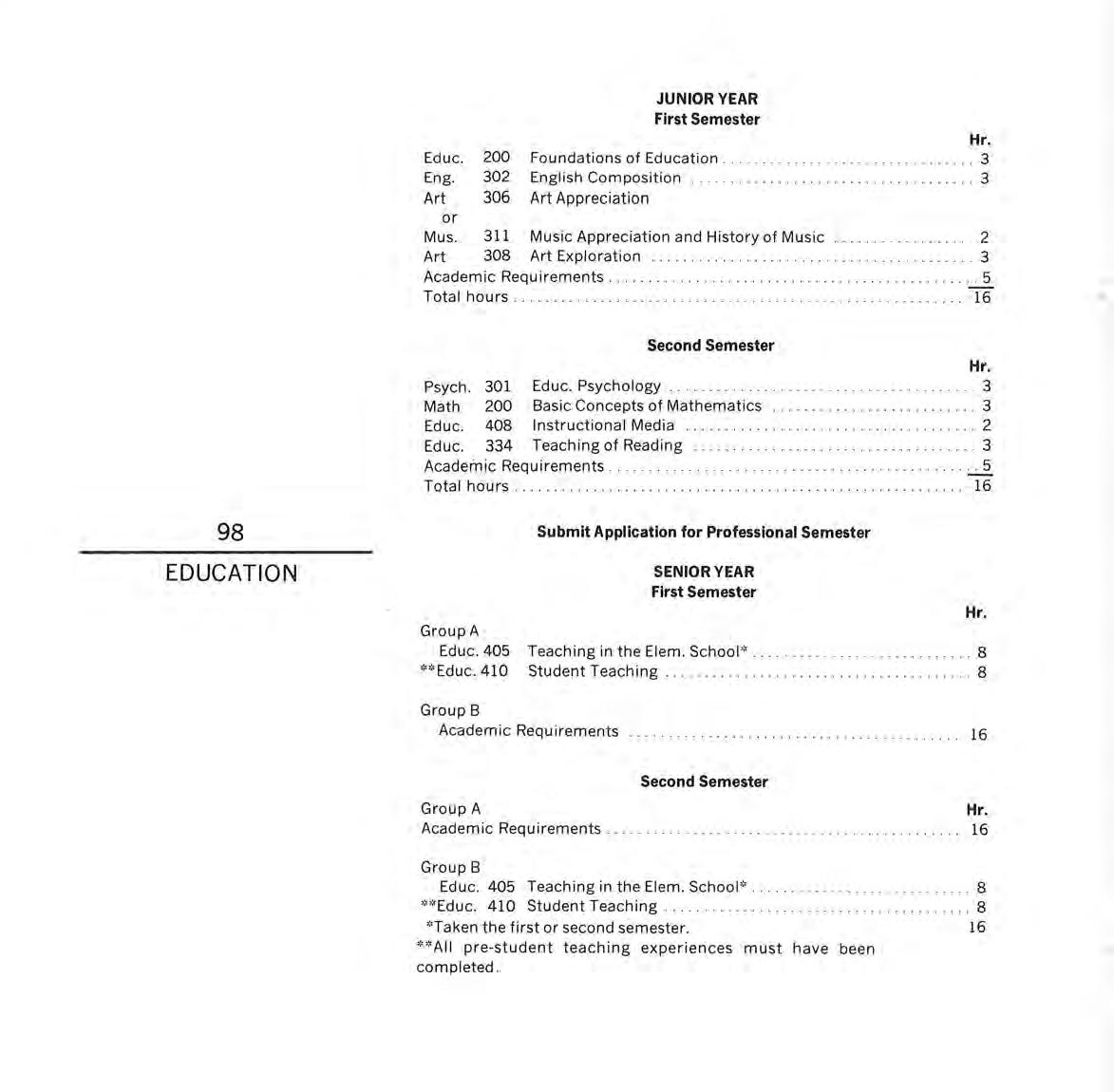
The curriculum leading directly to a Bachelor of Science in Education degree for elementary majors with an endorsement in early childhood education is designed for those who wish to prepare for teaching in day care, preschool or kindergarten programs. The Curriculum follows the program for elementary teachers (which meets the academic requirements for elementary teaching certification) and requires the following sequence of courses which may be used in lieu of the 24 hour block ordinarily required in elementary education.
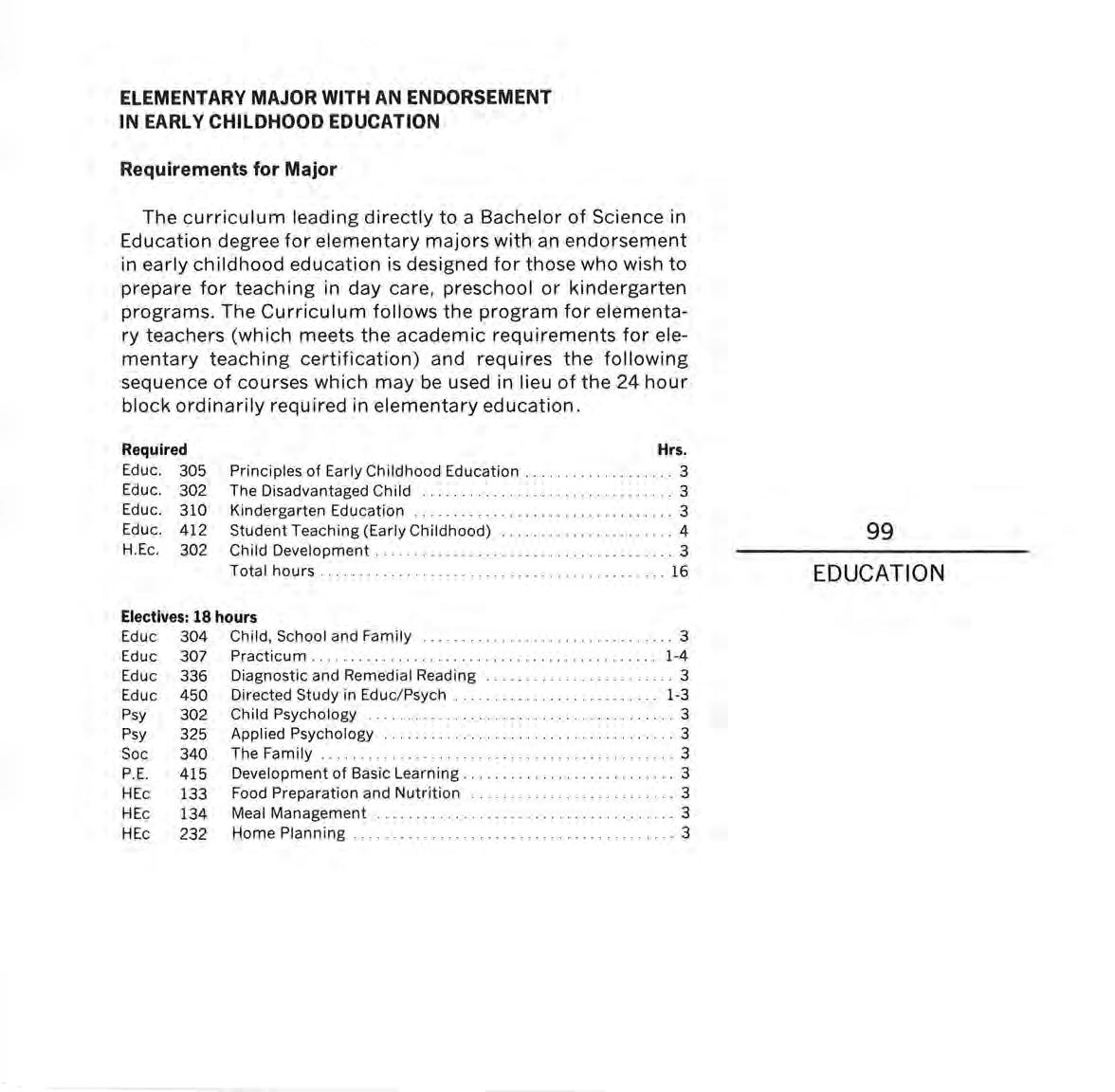
Requirements for Major
T h e curricu l um leading to a Bachelor of Science in Education degree for elementary majors with an endorsement in specia l education is designed for those who wish to prepare for teaching the educab l e or tra i nable menta ll y handicapped
The Curr icu l um follows the program for e lementary teachers (which meets the academic requirements for elementary teaching certification) and requires the fo ll owing sequence of courses whic h may be used in l ieu of the 24 hour-b l ock ordinarily required in elementary education.

(Two Year Program)

lum is designed to prepare paraprofessionals for positions in early childhood education.
All courses carry full credit toward the Bachelor of Science degree and may be applied to a regular four -year program. Students are encouraged to ultimately pursue the baccalaureate degree.
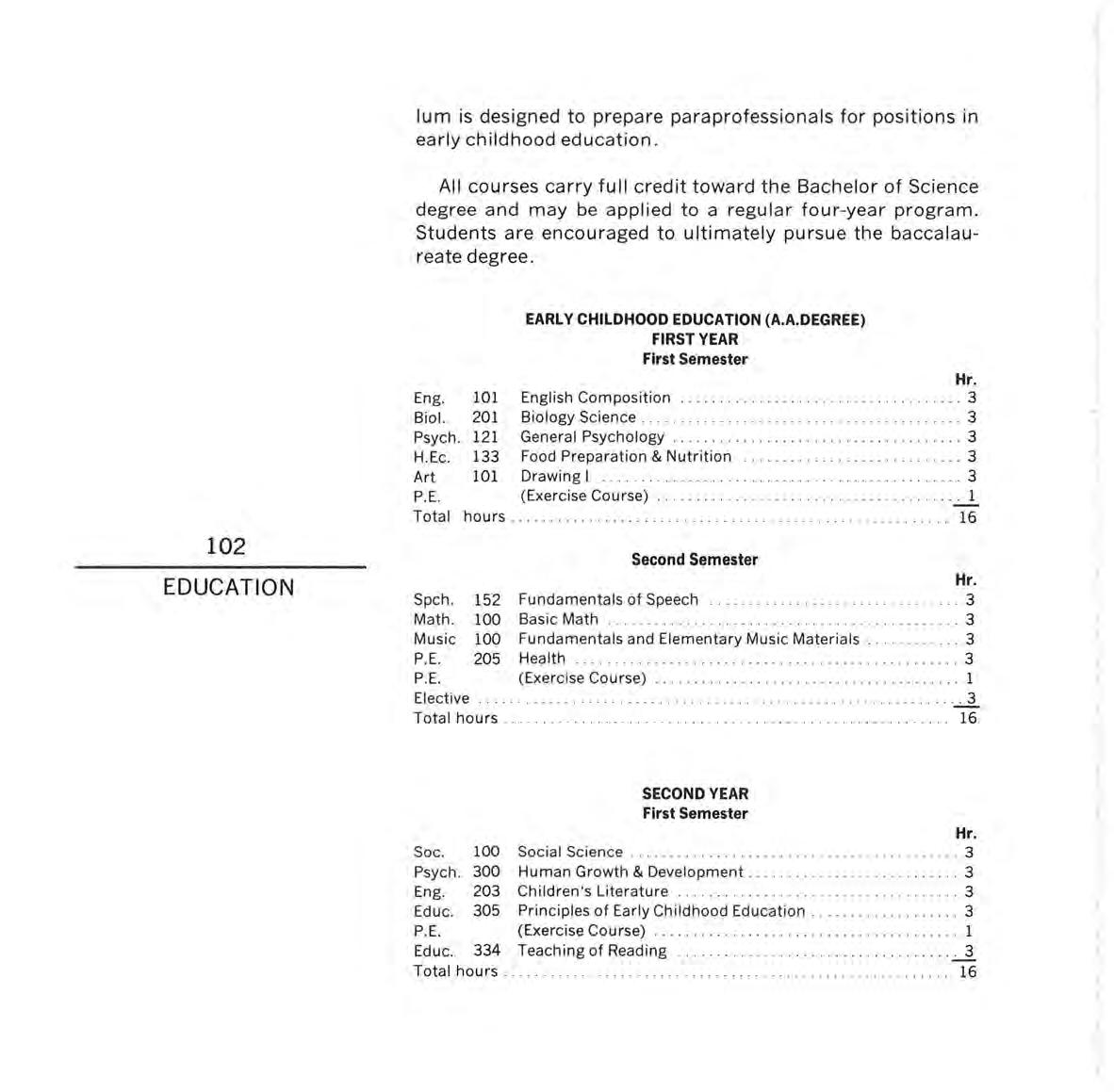
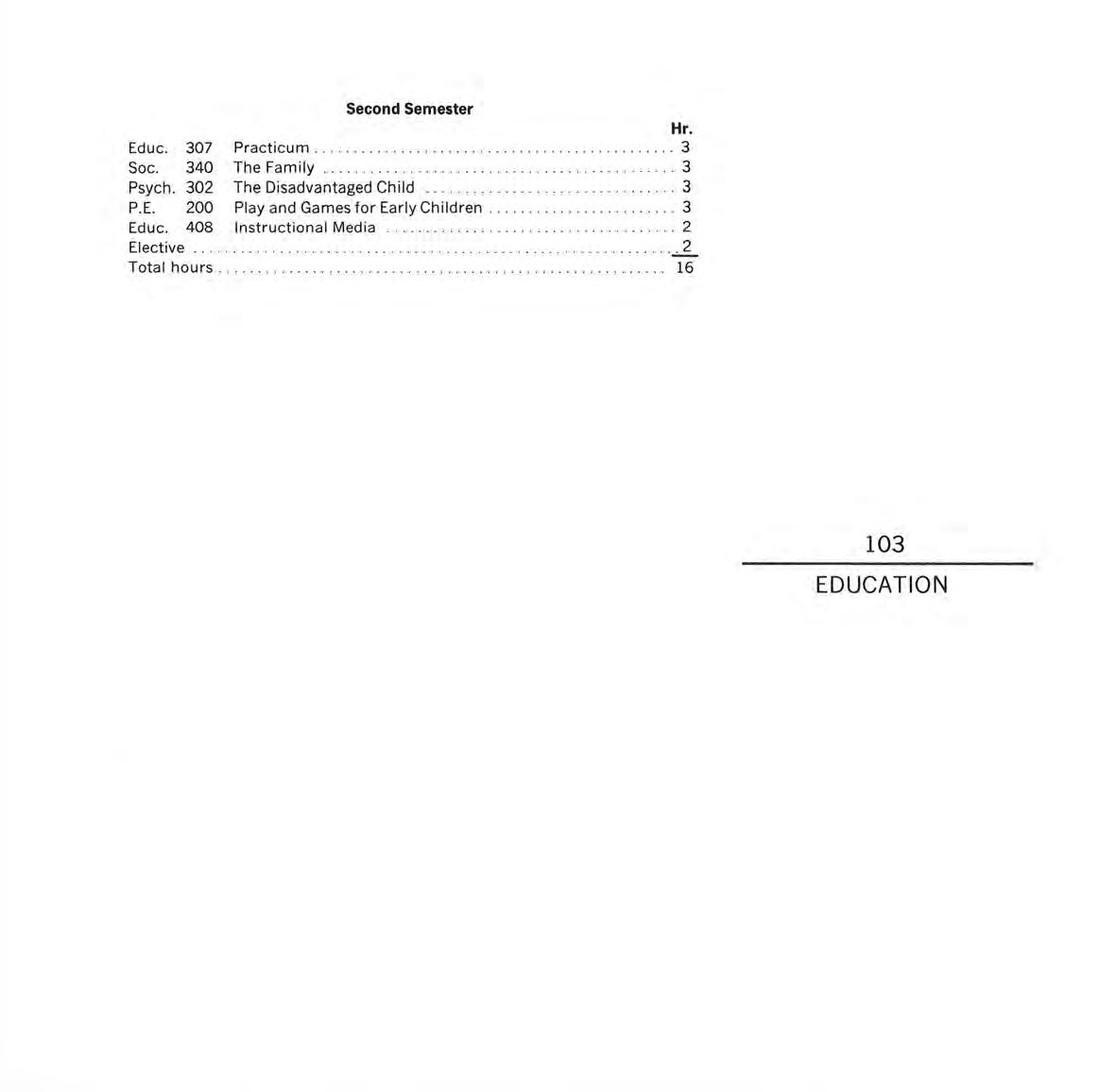
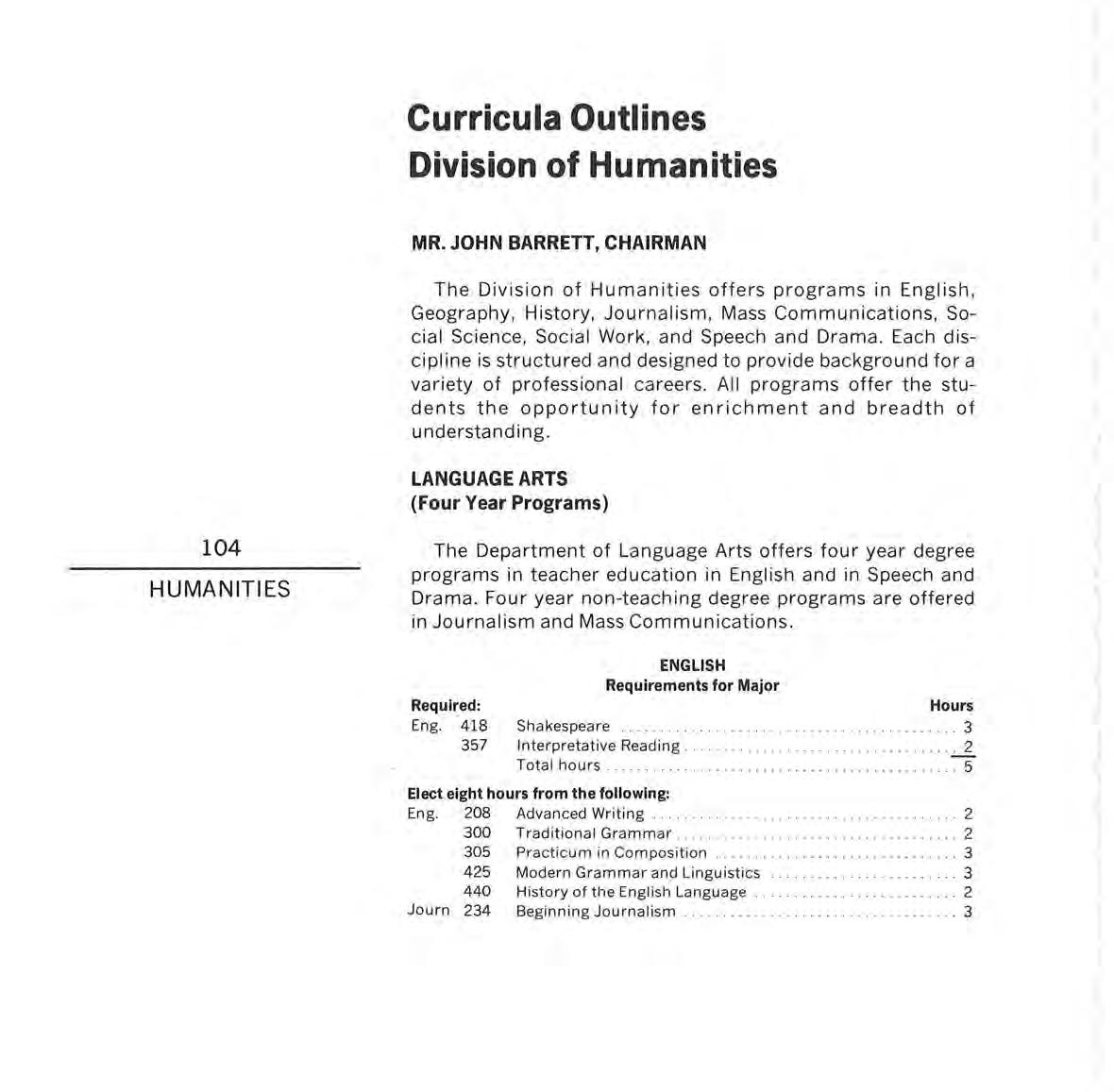
The Division of Humanities offers programs in English , Geography, History, Journalism, Mass Communications, Social Science , Social Work, and Speech and Drama . Each discipline is structured and designed to provide background for a variety of professional careers. All programs offer the students the opportunity for enrichment and breadth of understanding.
The Department of Language Arts offers four year degree programs in teacher education in English and in Speech and Drama. Four year non-teaching degree programs are offered in Journalism and Mass Communications .


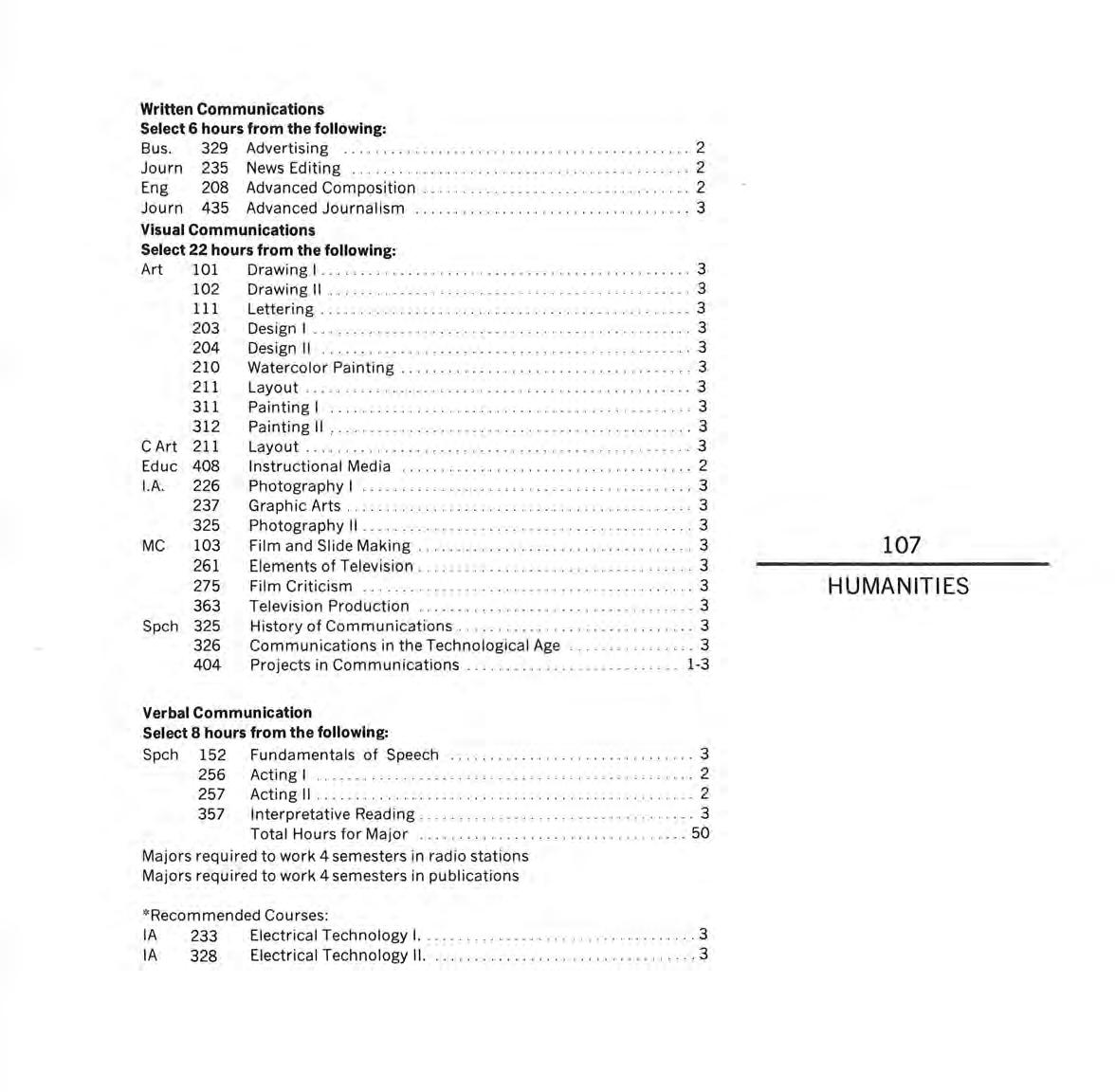
The Social Science department offers four year degree programs in teacher education in History, History-Geography, and Social Sciences Four year non-teaching degree programs are offered in Geography and Social Work.
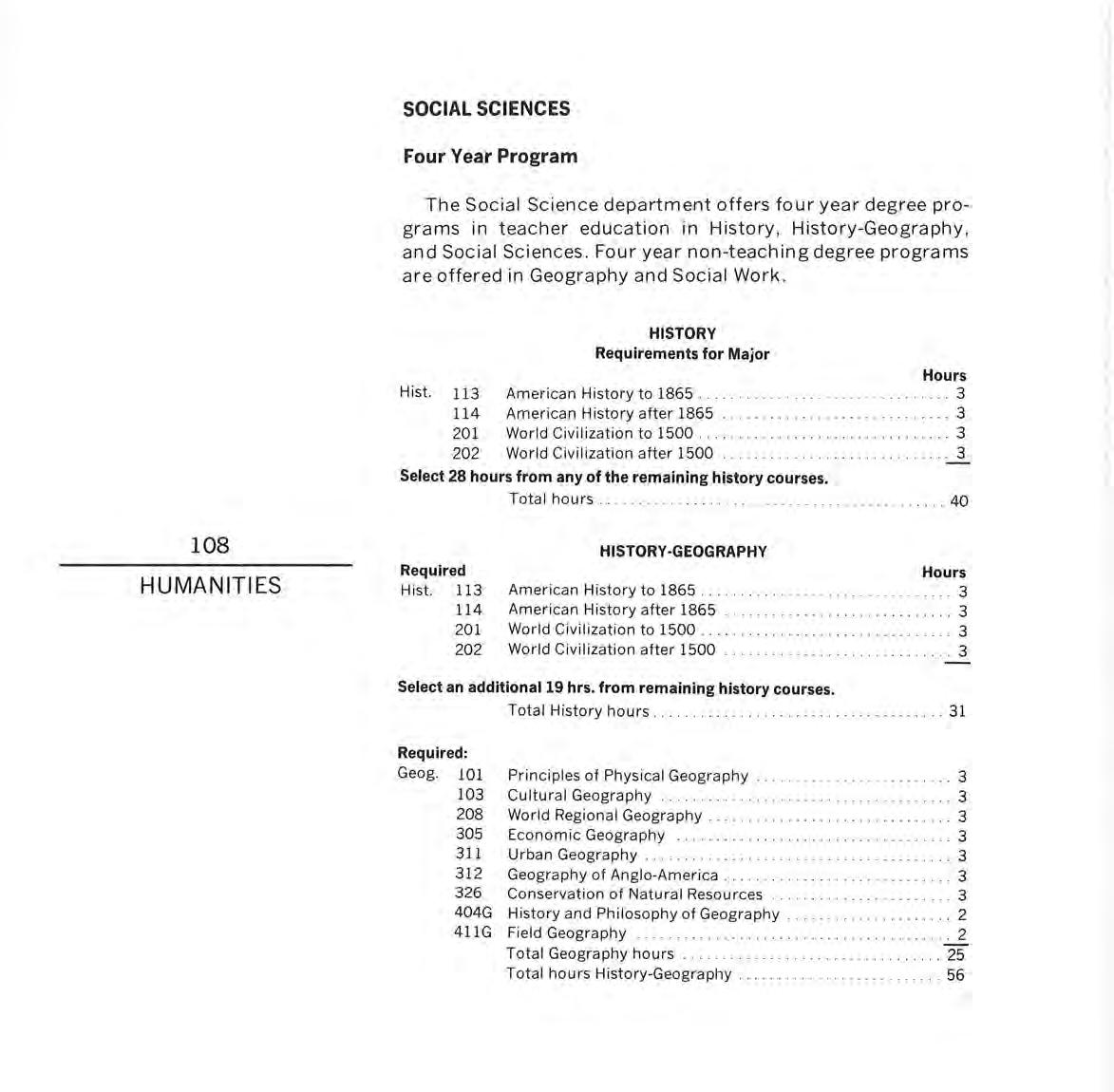
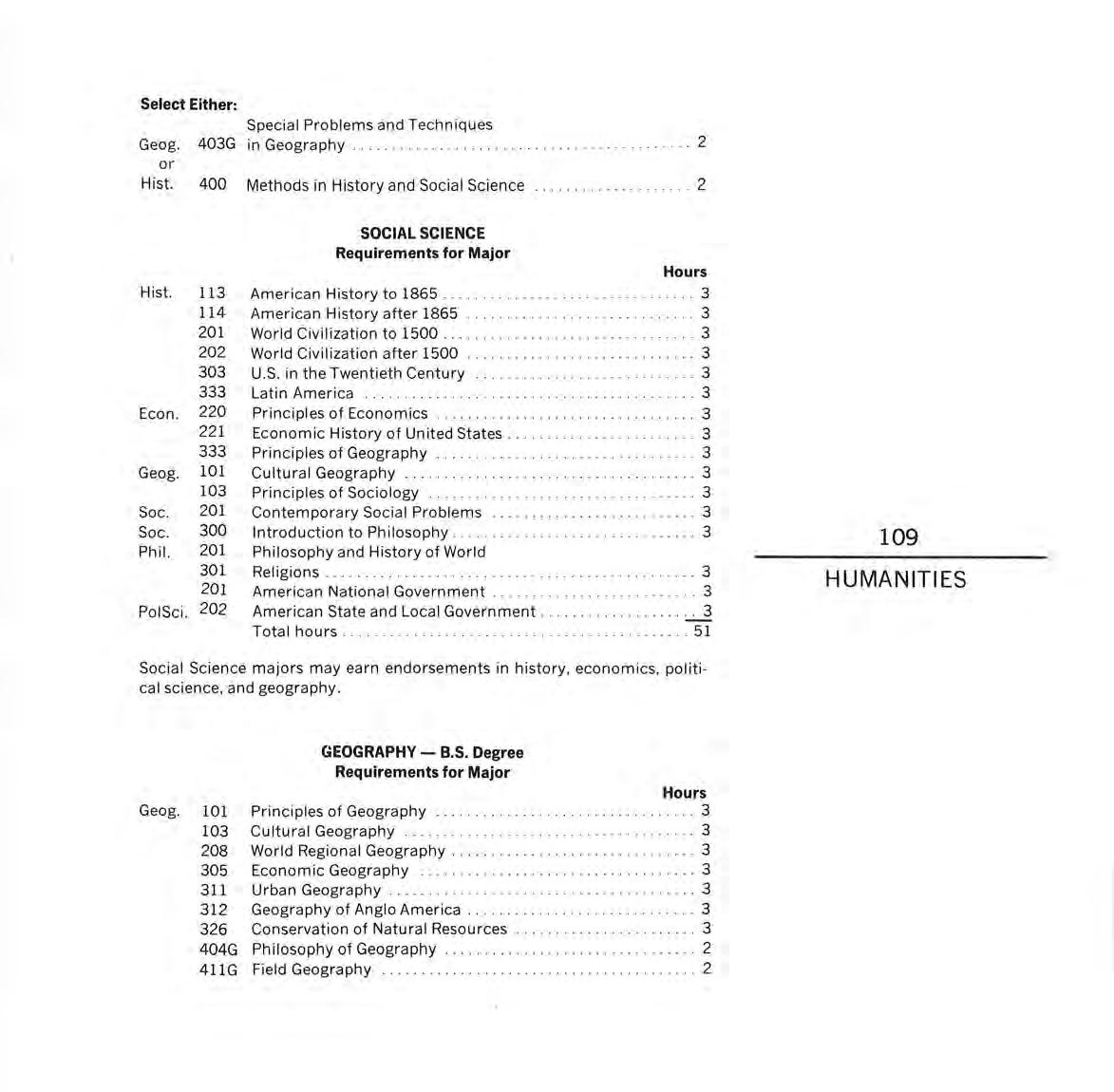
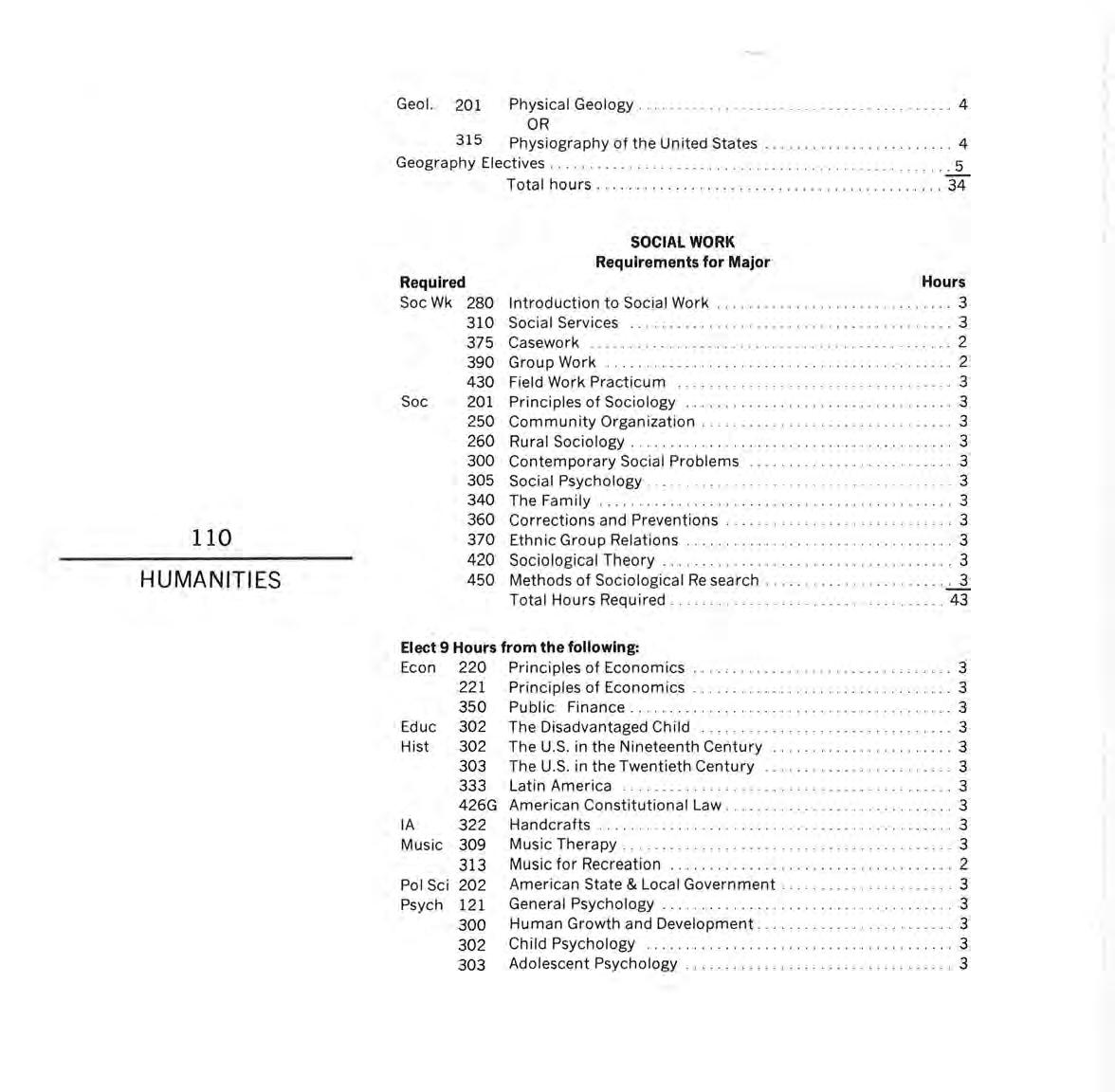
Prospective law students are urged to take a Bachelor ' s degree prior to beginning their legal studies. Application to the law school of the student's choice should be made early in the fourth year of the pre-legal study .
Most schools of law student may choose much of his course work from those fields in which he has the most interest. Some work in English composition is important since the ability to use the English langu age effectively is highly recommended for law students. Pre-law students are assigned an advisor who works closely with them in programming the four years of study.
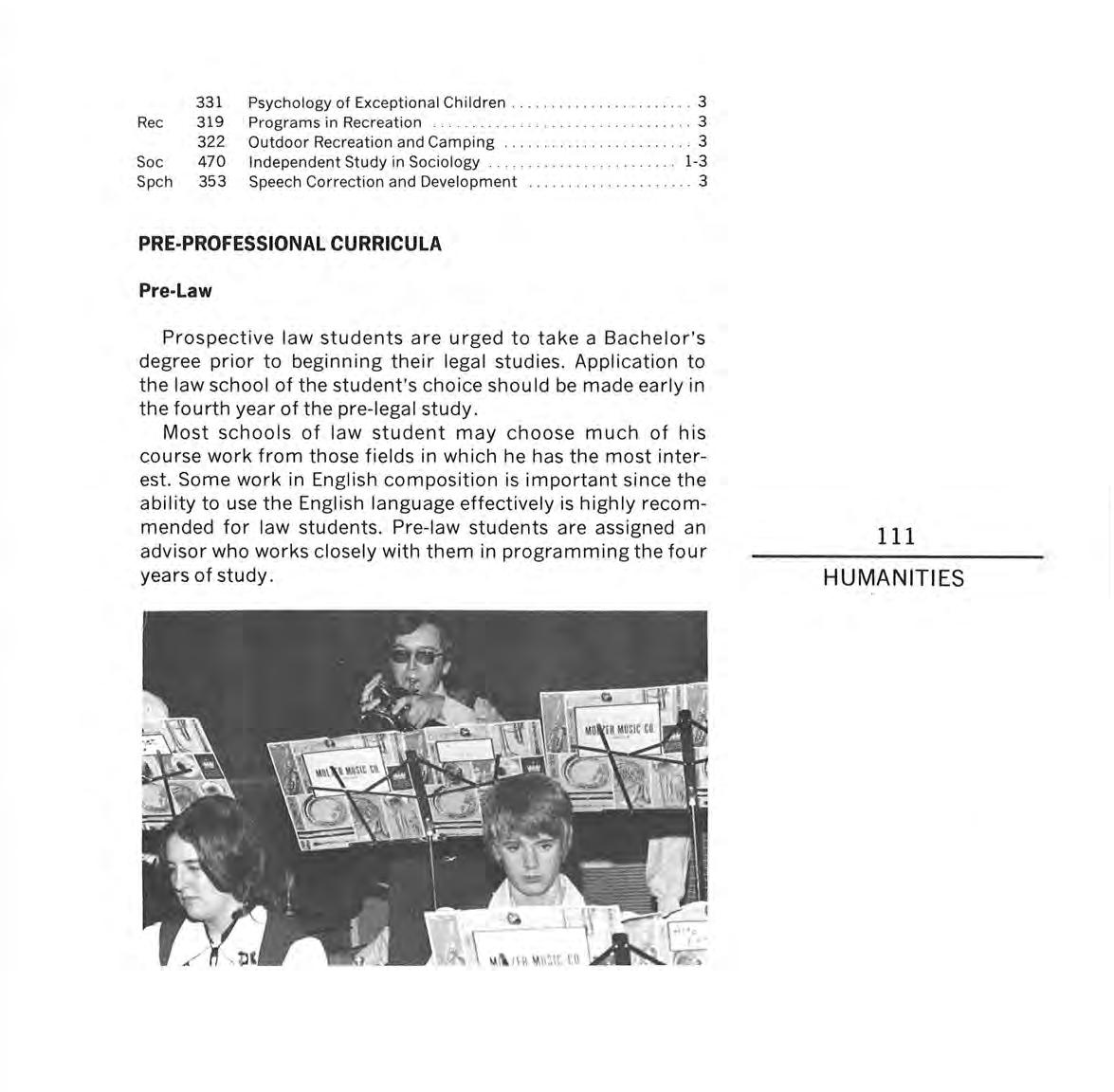
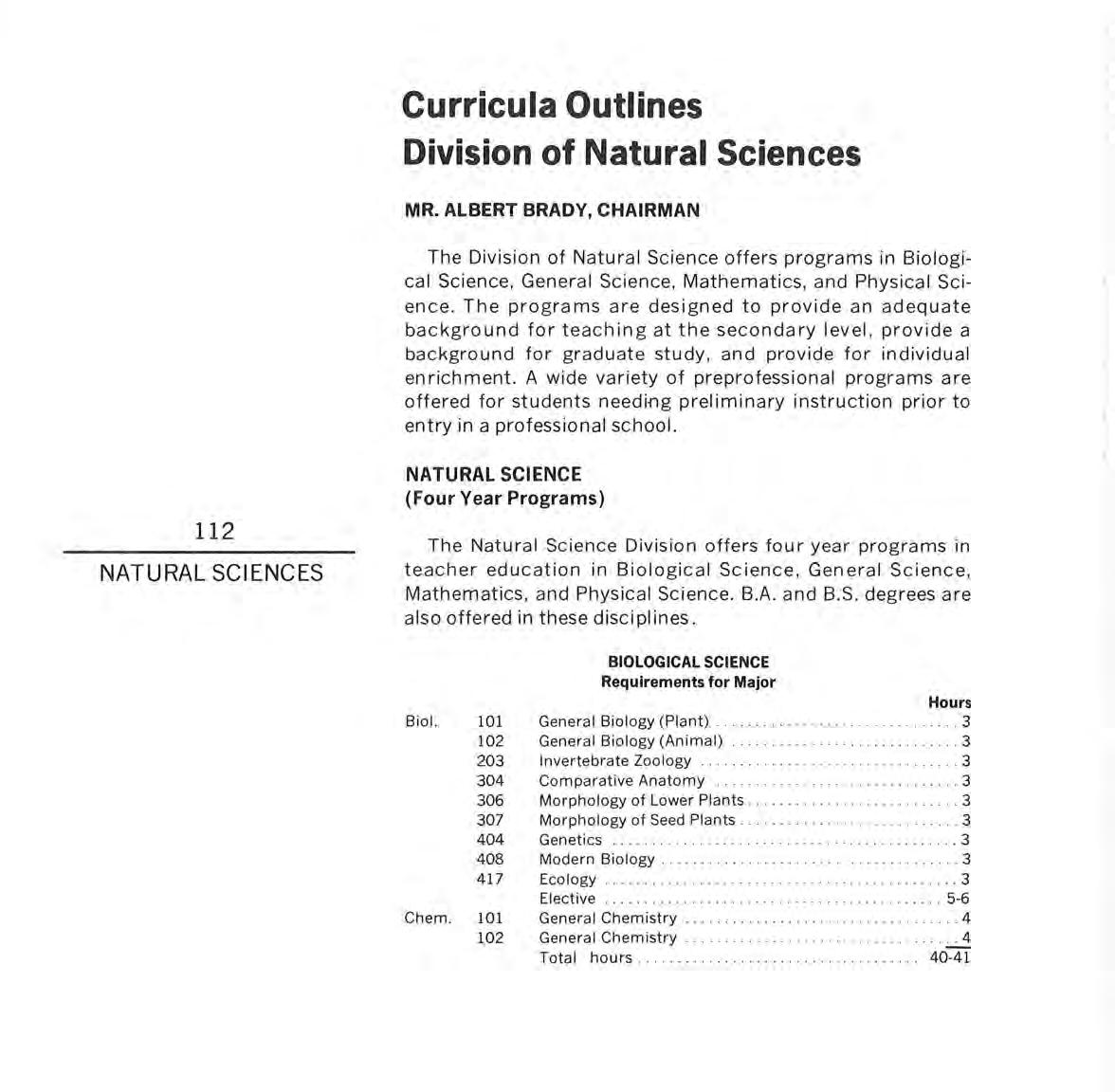 MR. ALBERT BRADY, CHAIRMAN
MR. ALBERT BRADY, CHAIRMAN
The Division of Natural Science offers programs in Biological Science, General Science, Mathematics , and Physical Science . The programs are designed to provide an adequate background for teaching at the secondary level , provide a background for graduate study, and provide for individu al enrichment. A wide variety of preprofessional programs are offered for students needing preliminary instruction prior to entry in a professional school.
The Natural Sc i ence Division offers four year programs in teacher education in Biological Science, General Science, Mathematics, and Physical Sc i ence B.A. and B.S. degrees are also offered in these disciplines.

It is recommended that additional work be taken in either Chemistry or Physics to assure adm ission to gradua te study.
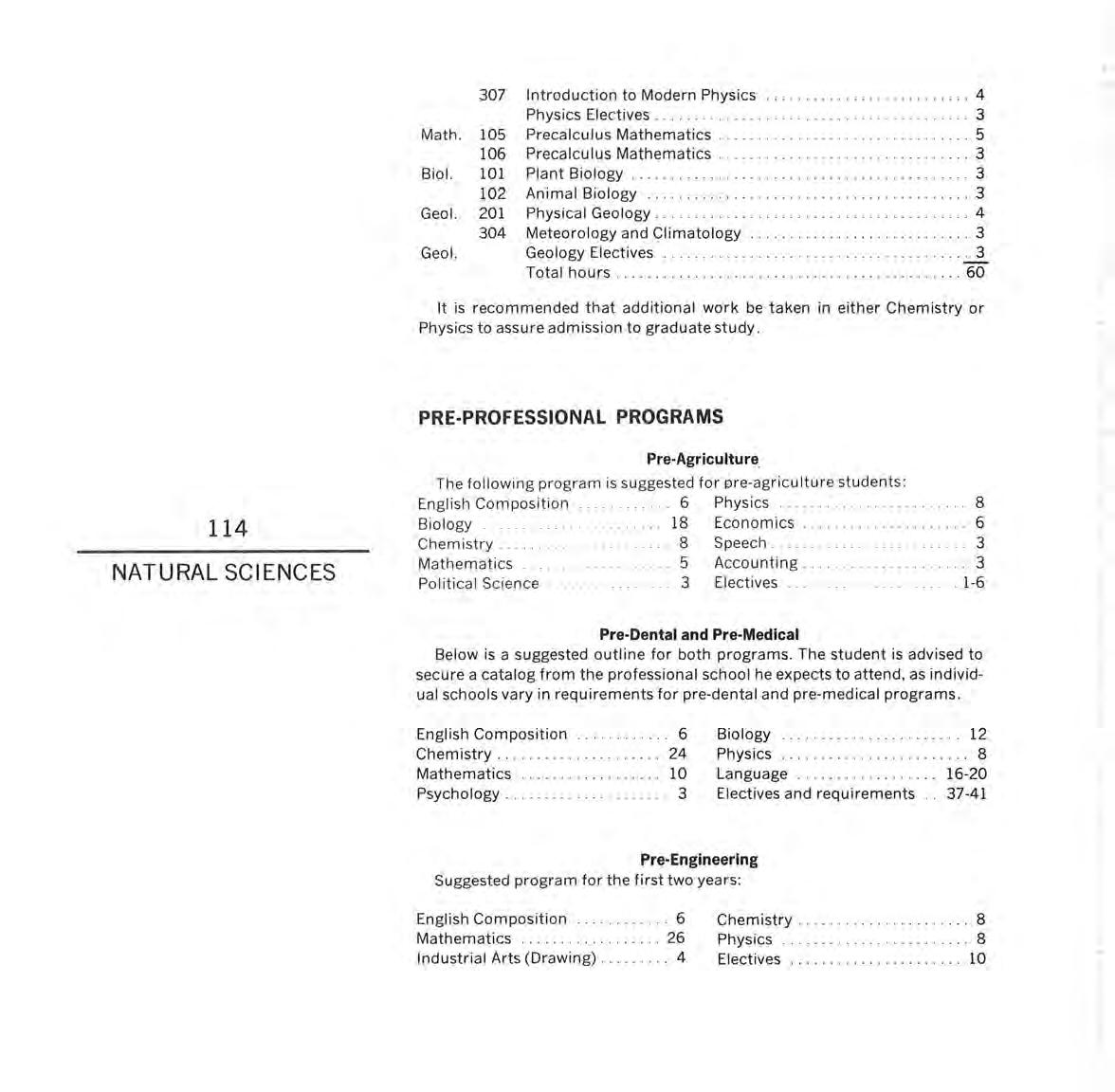
The following program is suggested for pre-agriculture students:
Below is a suggested outline for both programs. The student is advised to secure a catalog from the professional school he expects to attend, as individual schools vary in requirements for pre-dental and pre-medical programs.
The requirements for d ifferent forestry sc h oo l s va ry. Early in the p r e-forestry program the student should consult the cata log of the co l lege he p l ans to attend later. Grades of below average will probab ly not transfer . The p l an be lo w is a suggested outline:
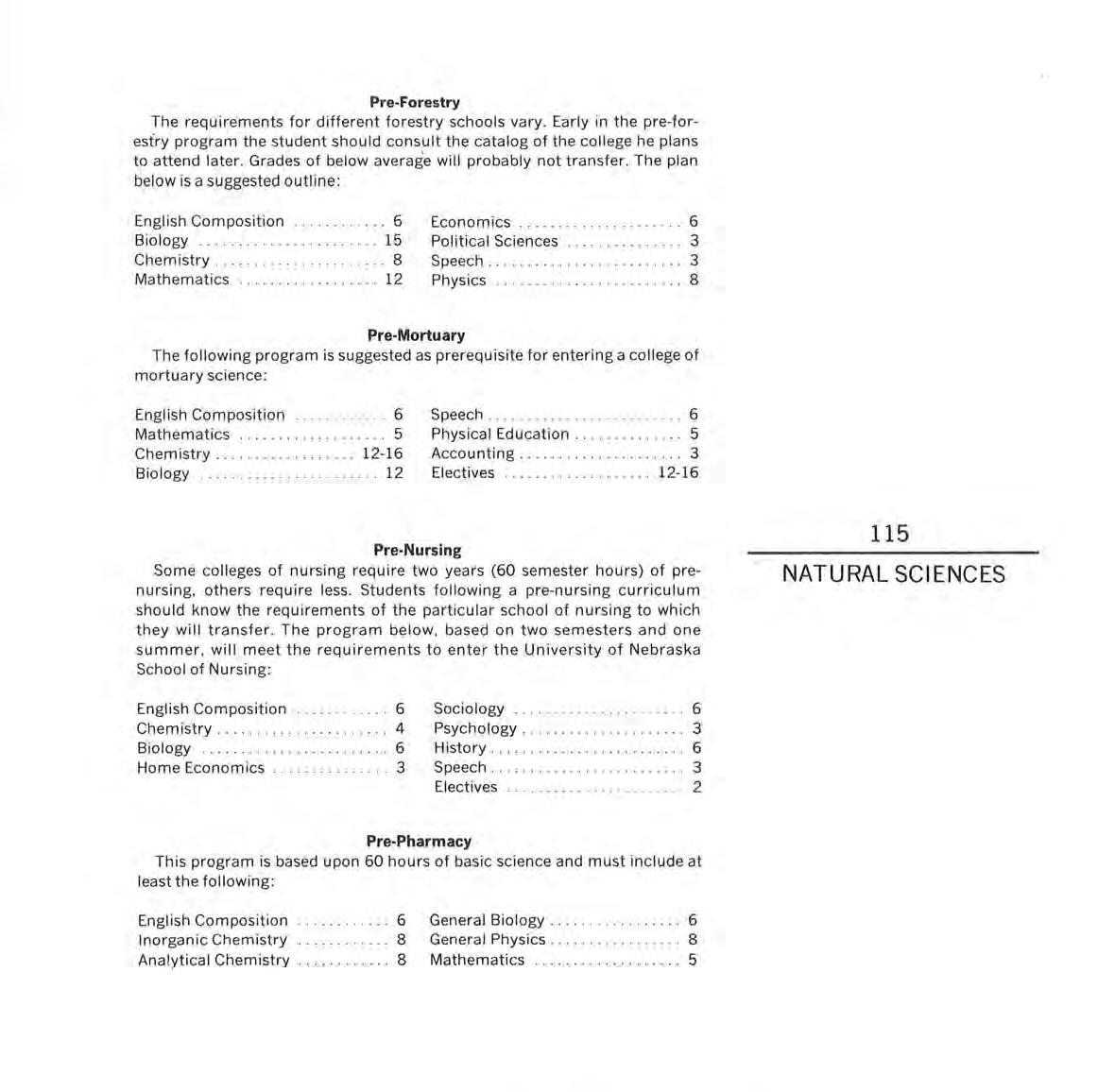
The fo ll owing program is suggested as prerequisite for entering a co ll ege of mortuary
Some co ll eges of nursing require two years (60 semes t er h o ur s) of prenursing , others req ui re less . St u dents following a pre-nurs in g c ur r i cu lum shou ld know t h e requ ir ements of t h e parti c ular schoo l of nursing to which they wi ll transfer. T h e program below, based on two semesters and one summer, w ill meet the requirements to enter the Uni vers i ty of Nebraska
This program is based up on 60 hours of bas ic science and must include at least the fo ll owing:
Restricted elect ives from the following areas: business , economics, English , fine arts, foreign l anguages , history, phi l osophy , psychology, a nd speech Examine the cata l og of the college you expect to attend.
Th e courses listed in the suggested program are required in the Physical Th erapy Program. Suggested
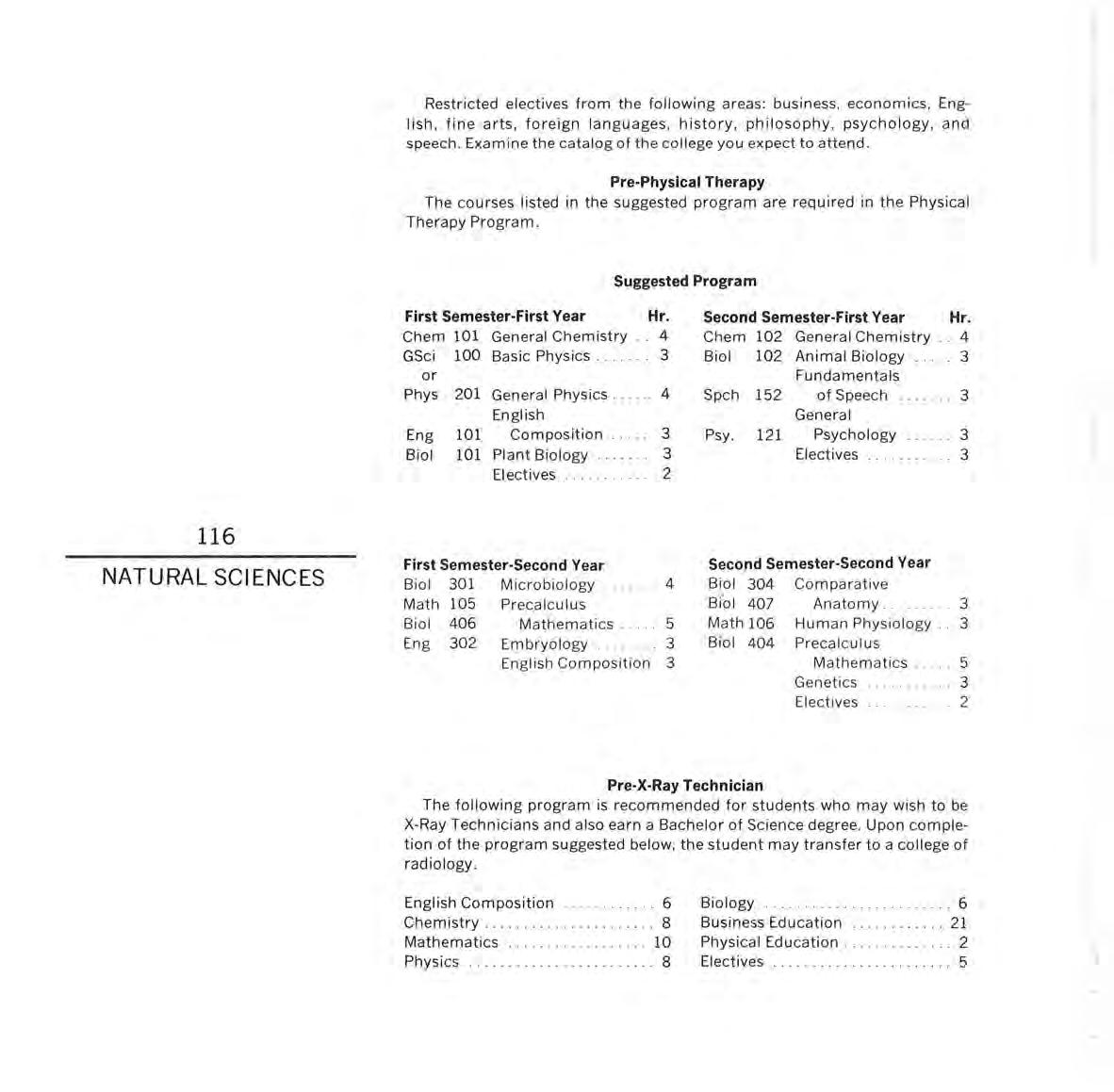
The following program is recommended for students who may wish to be X-Ray Technicians and a lso earn a Bachelor of Science degree. Up on completion of the program suggested below, the student may transfer to a co ll ege of radio logy
Courses l isted under the suggested program are required for Veterinar i an
Cooperative arrangements have been made between Peru State College and some schools of medical technology whereby a student may complete requirements for a Bache l or of Science degree with a major in Medica l Techno l ogy. Under this program, the first three years are spent on the Peru campus. During these three years, the student must satisfy the General Studies requirement for graduation, complete a minimum of 90 semester hours app licable toward a baccalaureate degree , comp lete 16 semes ter hours of c hemistry, 16 hours of biology, and at least one course each in mathematics and physics .
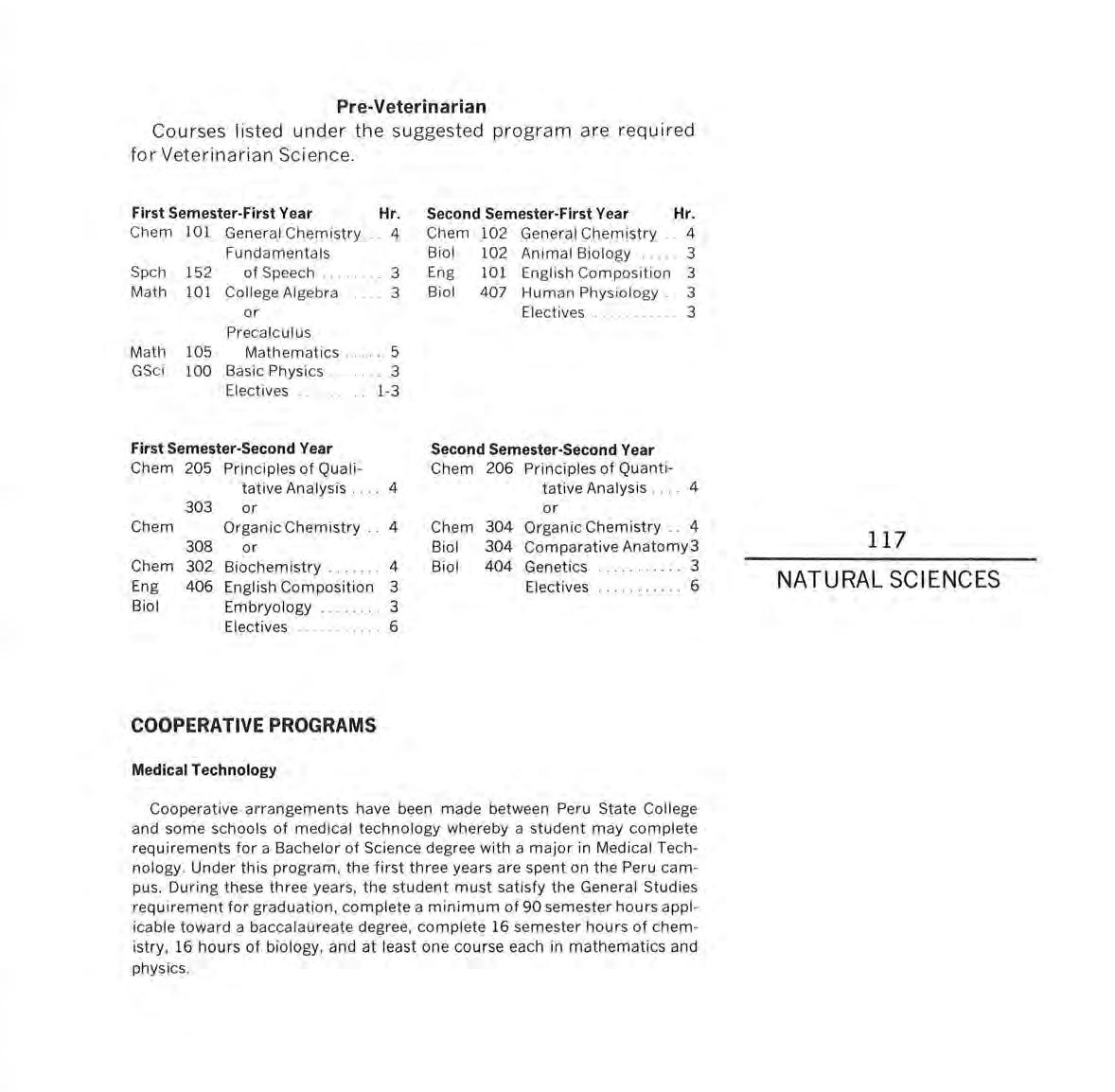
The fourth year, which consists of a full twelve-month program, is s pent in residence at an approved schoo l of Medica l Technology. Upon sat isfactory comp l etion of this year of training , the student may receive the baccalaureate degree from Peru State Co ll ege.
Application to the school of Medical Te.chnology should be mad e ear ly in the third year of tr a inin g at Peru
FIRST
First Semester
English 101
Math 105
Animal Biology 102
General Chem i stry 101
P.E. 101 or 103
Psychology 121
En g lish 202 (Lit. Appr .)
Qu a litative Analysis 205 Physiology 407 Embryology 406
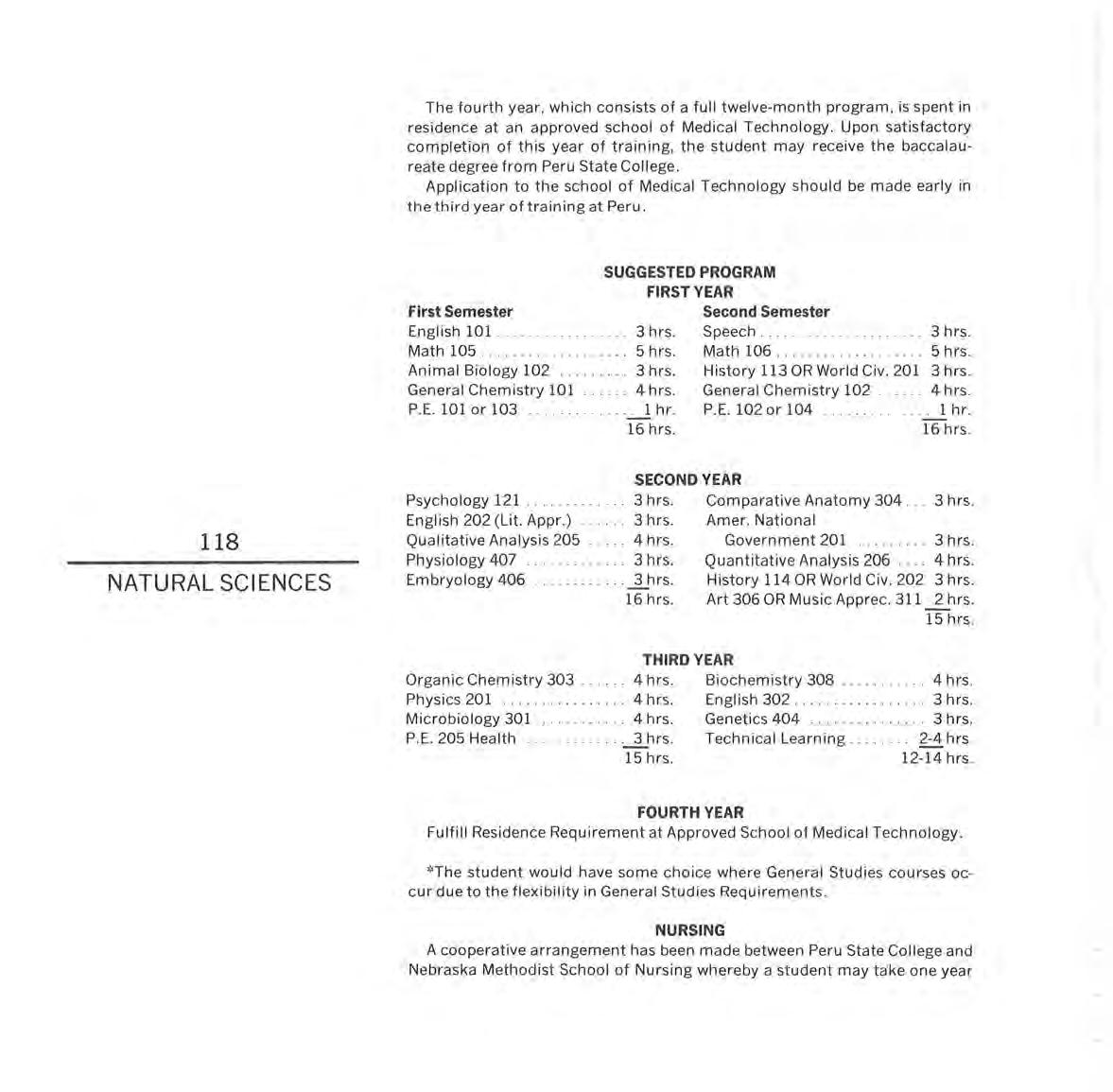
SECOND
Or ga ni c Chemistry 303
Physi cs 201
Microbiology 301 P E. 205 He a lth
FOURTH
Fulfill Residenc e Requirement at Approved School of Medical Technology.
* The student wou ld have som e c hoic e where Genera l Studies courses occ ur due to the flexibility in General St udie s Requir eme nt s ·
NURSING
A cooperative arrangement h as been made betw ee n Peru State Co ll ege and Nebraska Methodist School of Nur s in g whereby a student may take one year
of training at Peru State Co llege and the remainder of his / her training at Nebraska Methodist Hopsital in Omaha
Under this arrangement the students are responsible for secur in g admission to the nursing program During the year of schooling at Peru , students would take those courses recommended by Nebraska Methodist as being desirable co ur ses preceding entrance into professional training
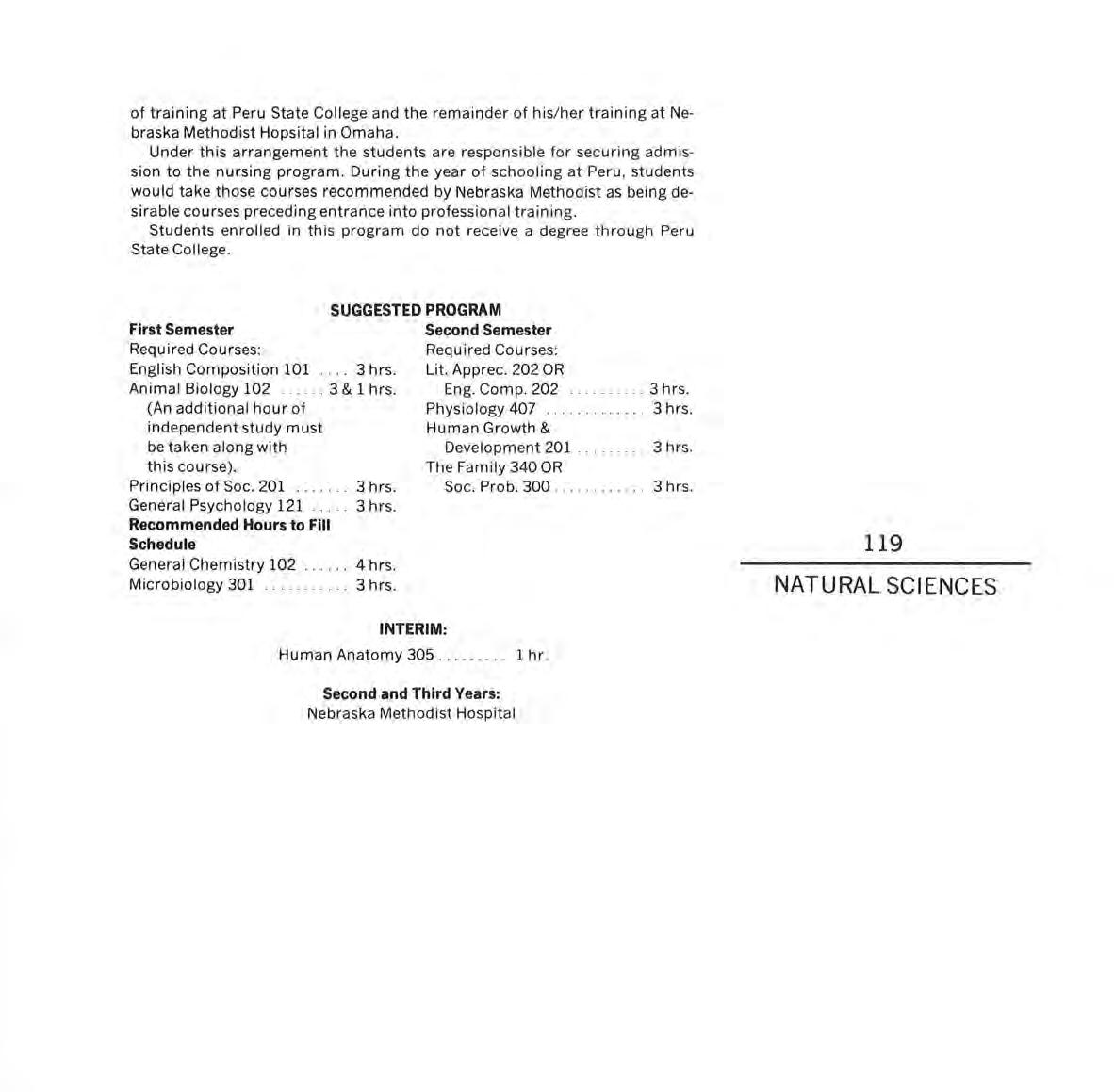
Students enro ll ed in this program do not receive a degree through Peru State College First Semester
Required Courses: Lit. Apprec. 202 OR Eng. Comp 202
407 Hum an Growth & Development 201 The Family 340 OR Soc Prob. 300
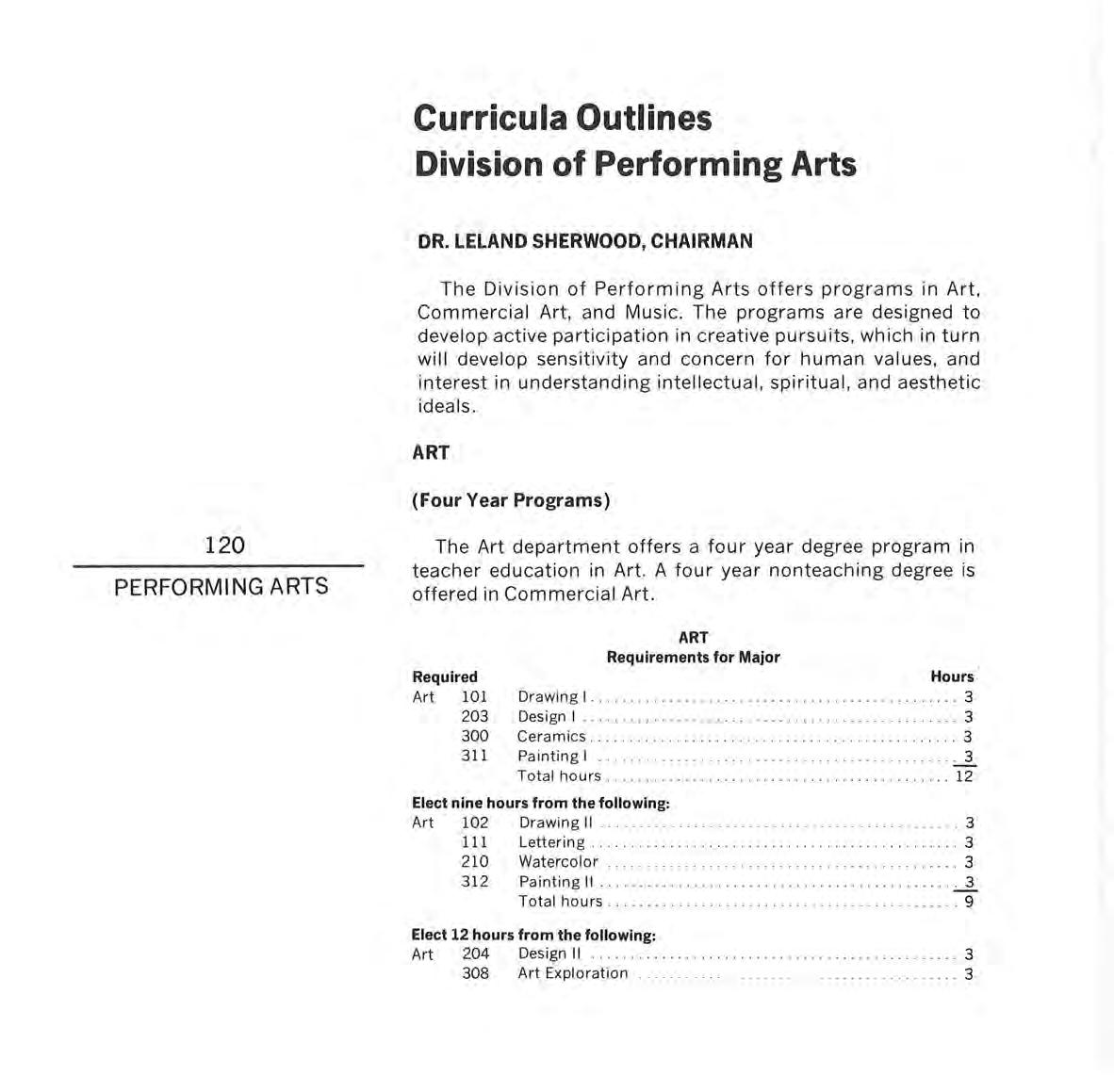
The Division of Performing Arts offers programs in Art, Commercial Art, and Music The programs are designed to develop active participation in creative pursuits, which in turn will develop sensitivity and concern for human values, and interest in understanding intellectual, spiritual, and aesthetic ideals .
The Art department offers a four year degree program in teacher education in Art. A four year nonteaching degree is offered in Commercial Art
Art majors are required to have a Senior Show of works produced as a Peru State student
The Art Department may retain for the files one piece of art work from each student.
COMMERCIAL ART (B.S. Degree)
Elect 15 hours from the following I.A. 226 Photography I
I.A. 325 Photography I I
I.A. 237 Graphic Art I.A. 121 Technical Drawing I
322

The Music Department offers a four year degree program in Music K-12. Students may take a Bachelor of Fine A~ts in Education. Those not pursuing a career in education may take a B S. or B.A. degree
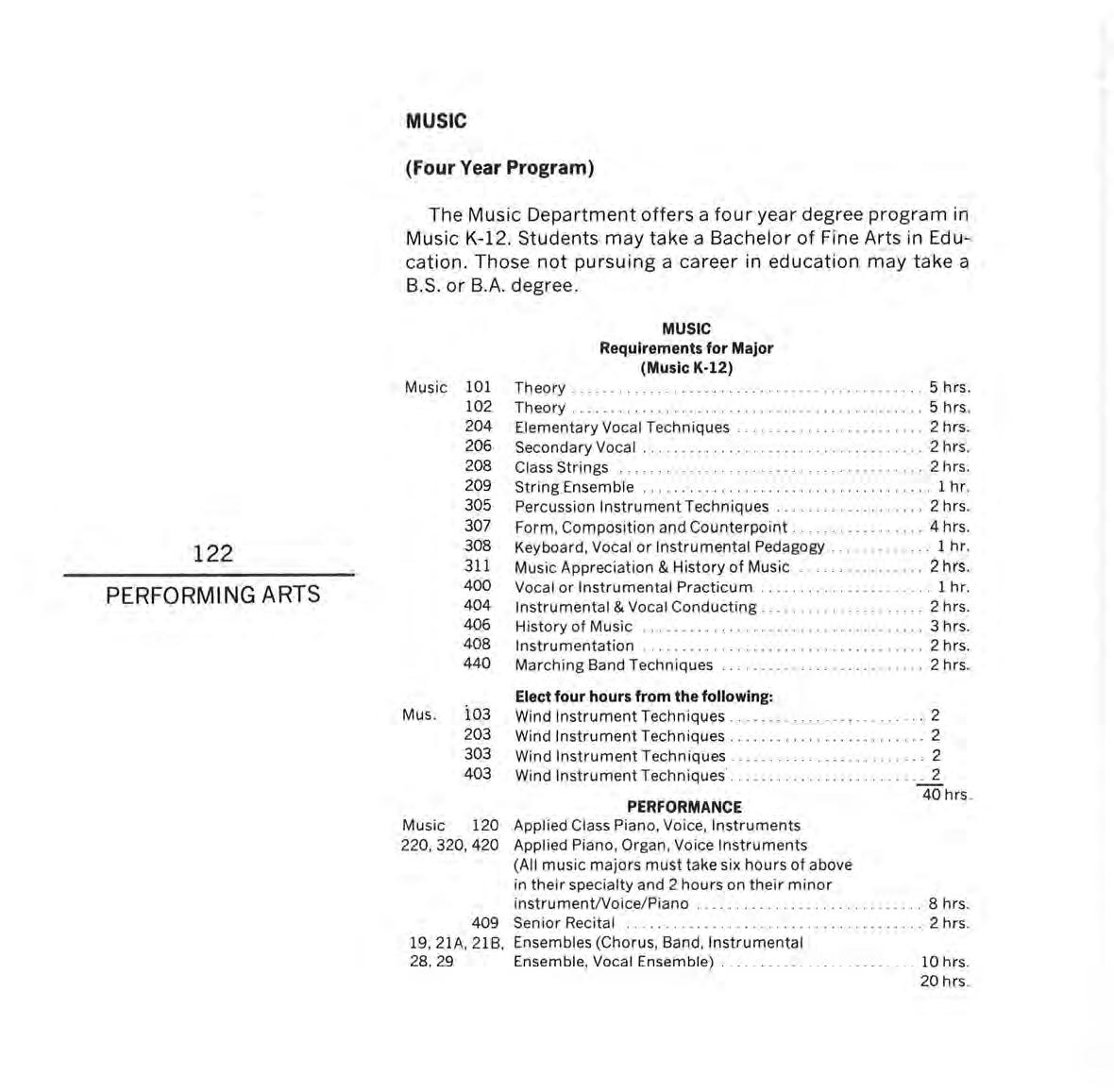
*Voca l majors will be required to demonstrate piano accompaniment proficiency .
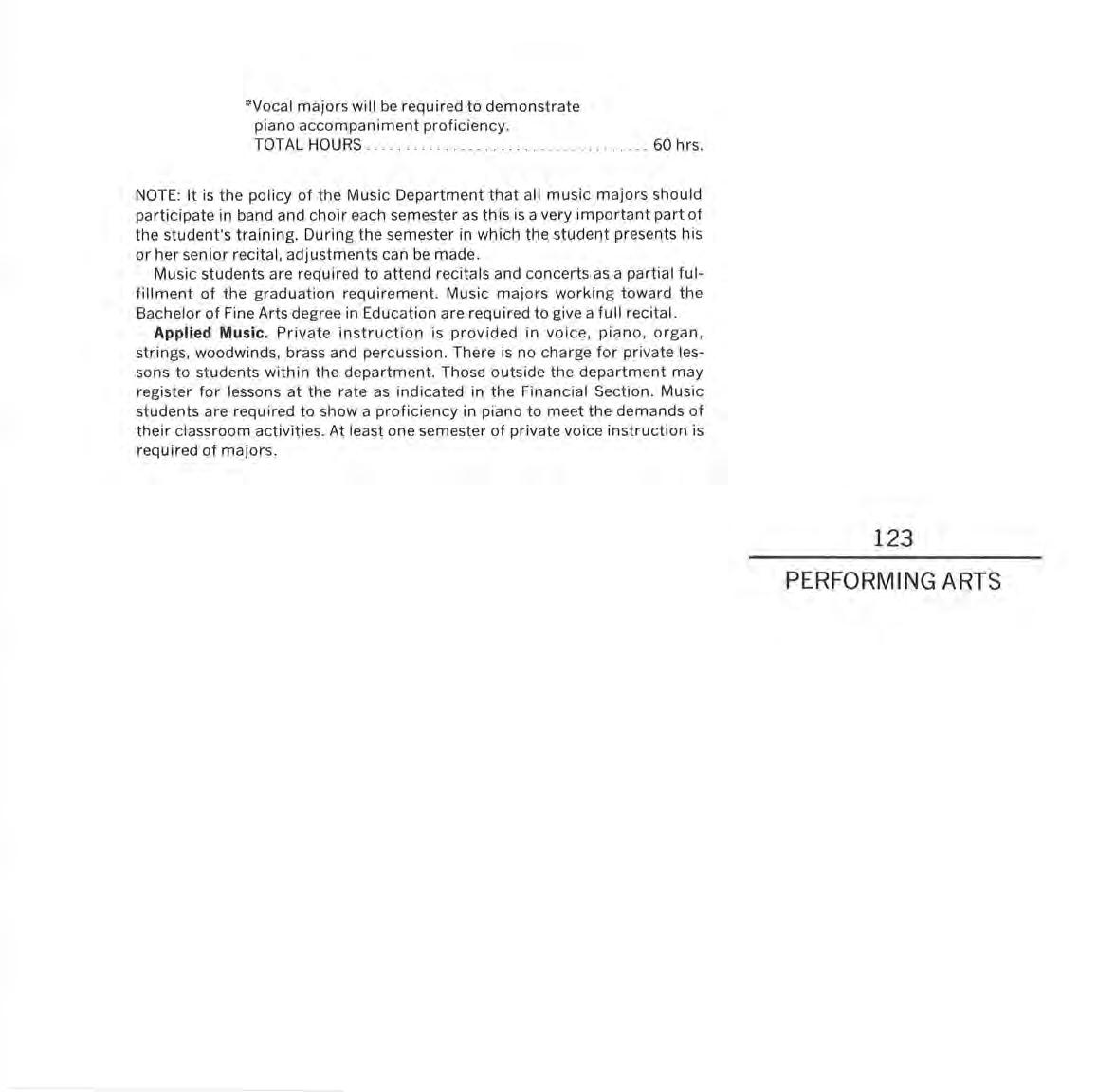
TOTAL HOURS . . .. 60 hrs.
NOTE: It is the policy of the Music Department that a ll music majors should participate in band and choir each semester as this is a very imp ortant part of the student's training. During the semester in which the student presents hi s or her senior recital, adjustments can be made.
Music students are required to attend recitals and concerts as a partial fulfillment of the graduation requirement. Music majors working toward the Bachelor of Fine Arts degree in Education are required to give a full recital. Applied Music. Private instruction i s provided in voice, piano, organ, str in gs, woodwinds, brass and percussion. Th ere is no charge for private l essons to students within the department. Those outs ide the department may register for l essons at the rate as indicated in the Financial Section. Music students are required to show a proficiency in piano to meet the demands of their classroom act ivit ies. At least one semester of private voice instruction is required of majors.
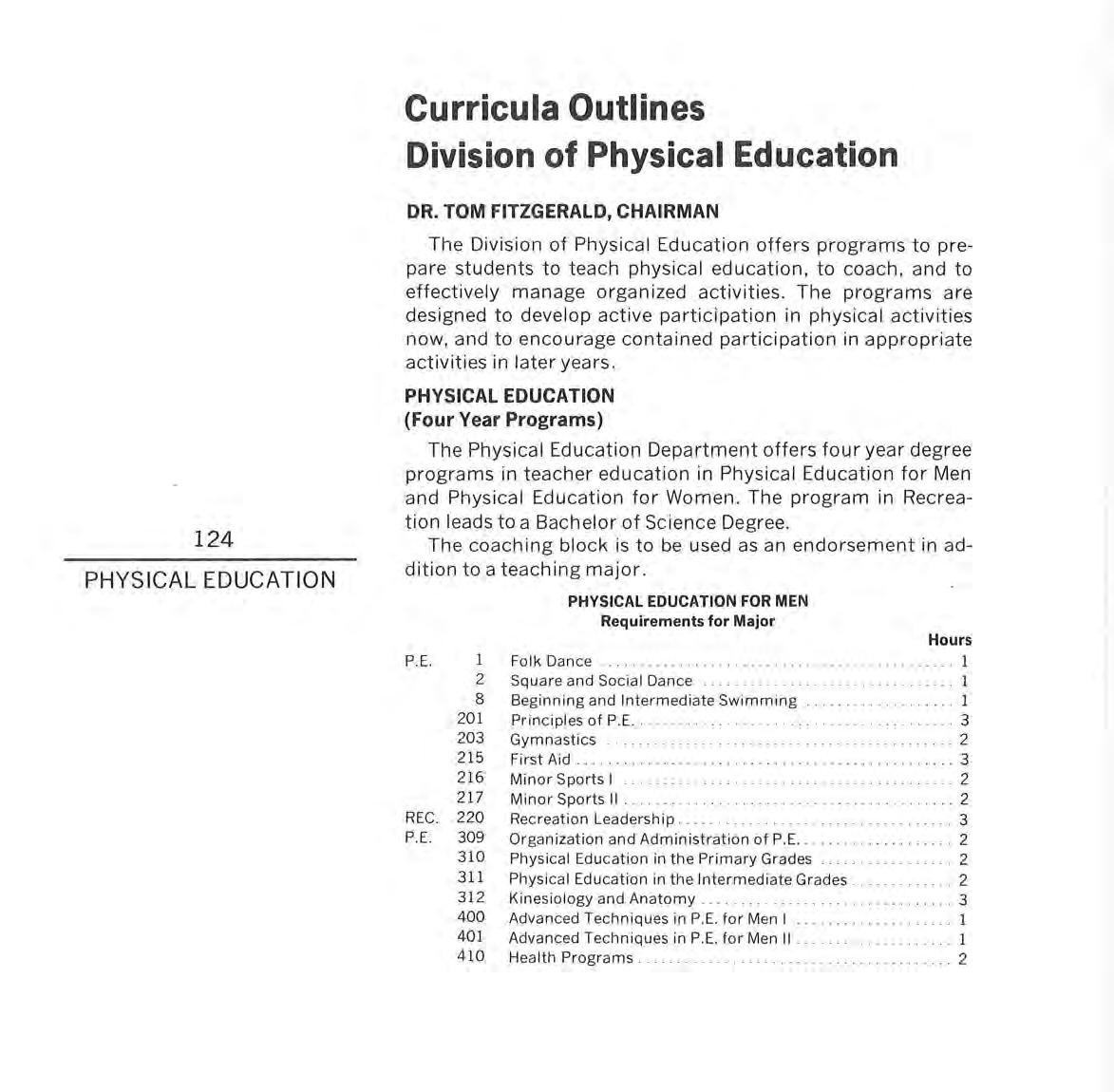
Th e Division of Physical Education offers programs to prepare students to teach physical education, to coach, and to effect iv ely manage organ ized act iviti es. The programs are designed to deve l op active participation in physical activ iti es now, and to encourage contained participation in appropriate activ iti es in later years.
The Phys i ca l Education Department offers four year degree programs in teacher education in Physical Education for Men and Physical Education for Women . The program in Recreation leads to a Bachelor of Science Degree.
The coaching block is to be used as an endorsement i n addit ion to a teaching major.
. Advanced Techniques in P.E. for Women I
Techniques in P.E. for Women II
The following program is provided for those students interested in the coaching of interscholastic sports. It is designed to fit the needs of the high school coach and leads to institutional recommendation for endorsement. Students completing this program are required to have a major in another area.
Students desiring the coaching block endorsement should select a minimum of three of the five theory courses listed below in addition to the other listed requirements.

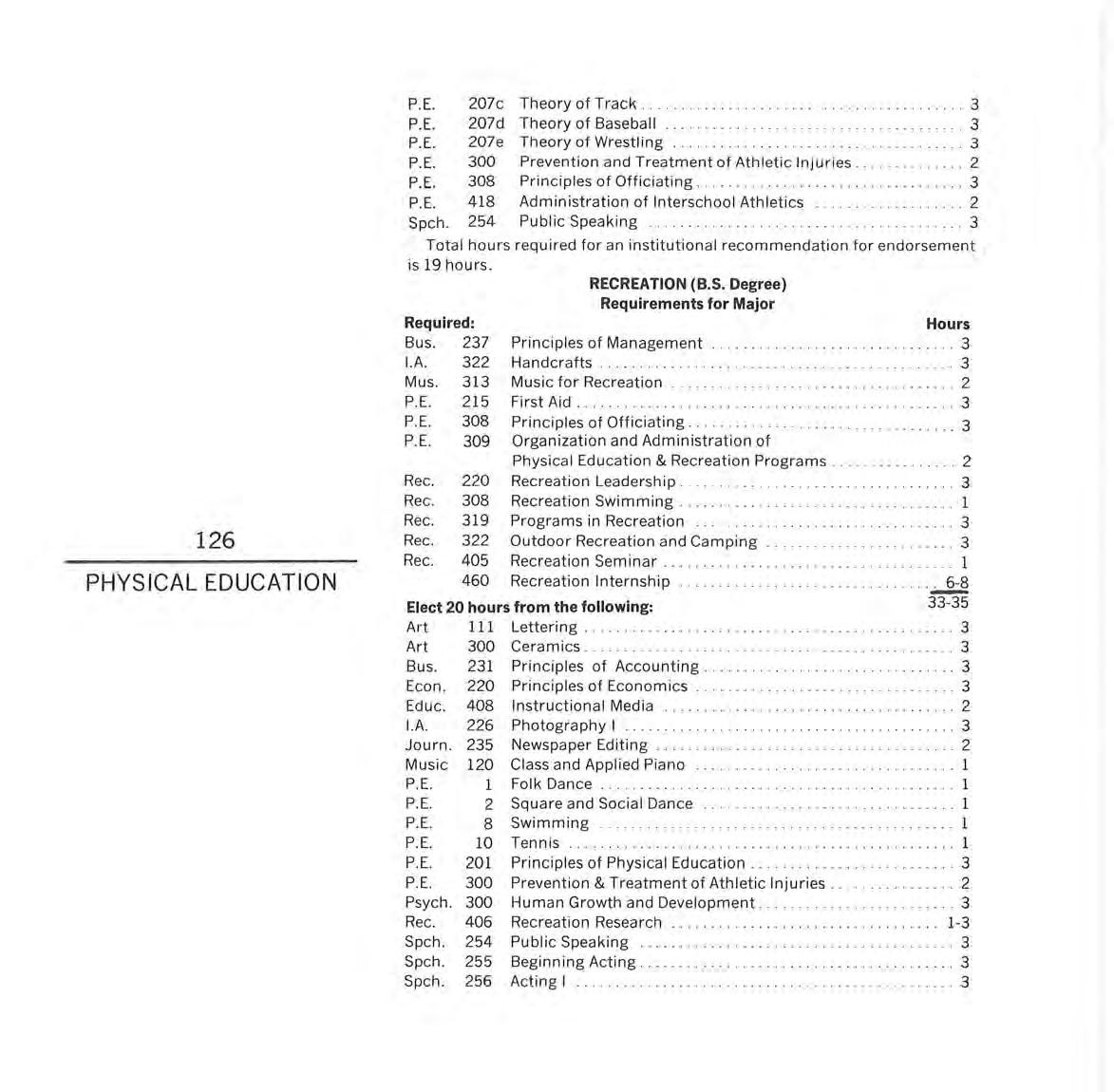
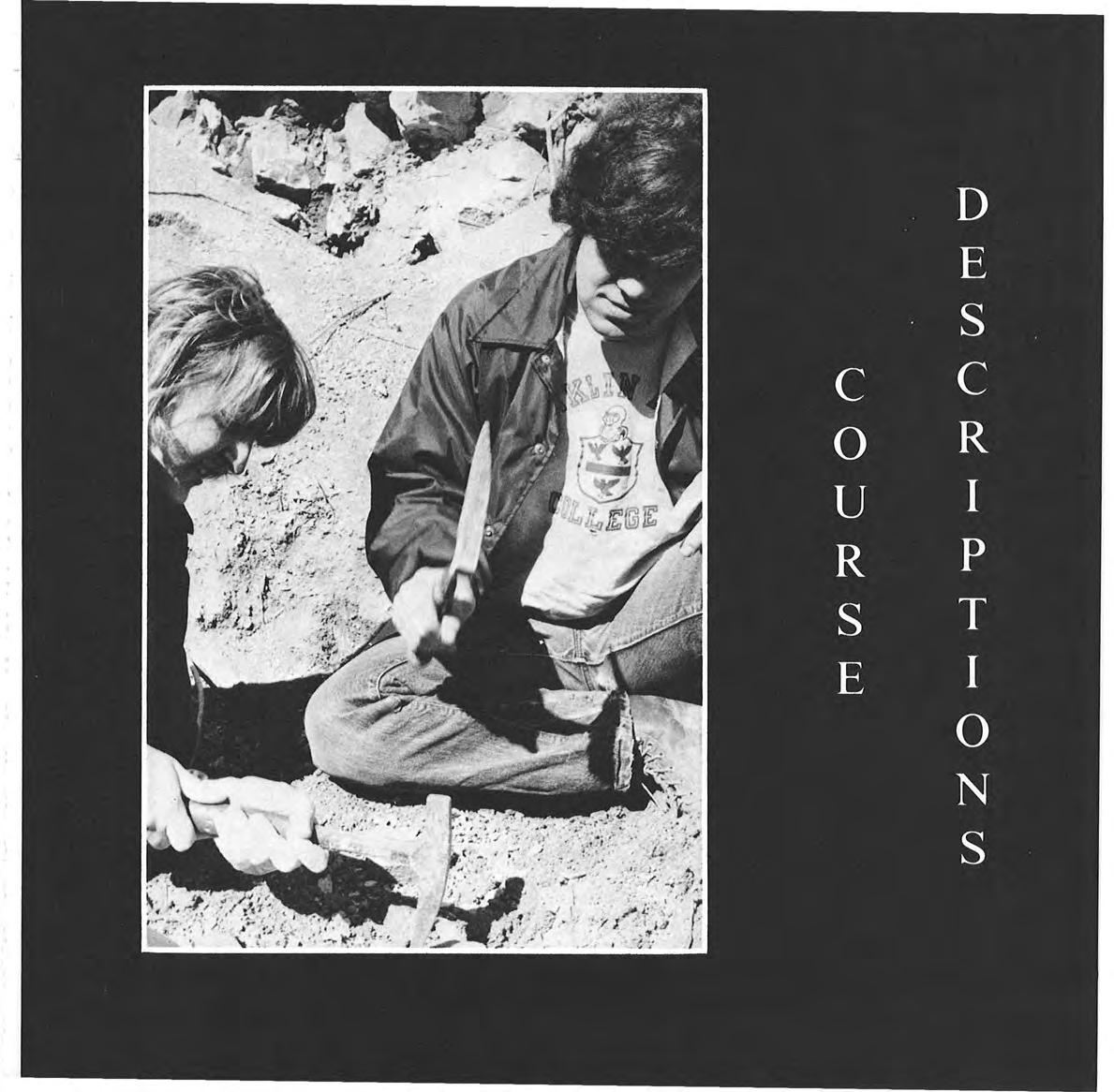
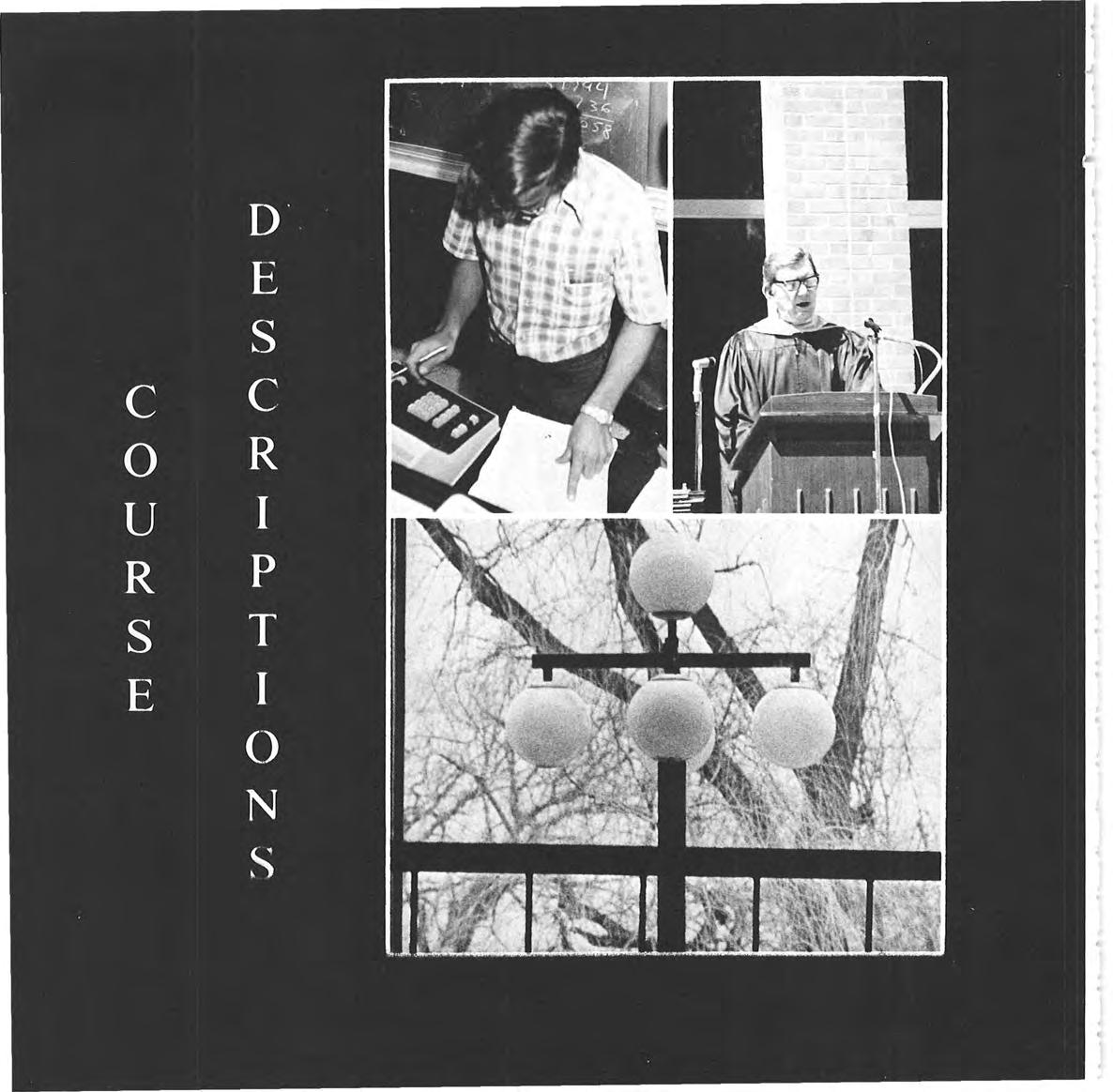
100 Business Mathematics. A review of the four fundamenta l operations of arithmetic applied to whole numbers, fractions , and decimals; applications of percentage; comput in g interest and discounting notes; consumer credit; cash and trade discount; computing markup, retail and commission; marking goods; the arithmetic of payro ll s. 3 hr.
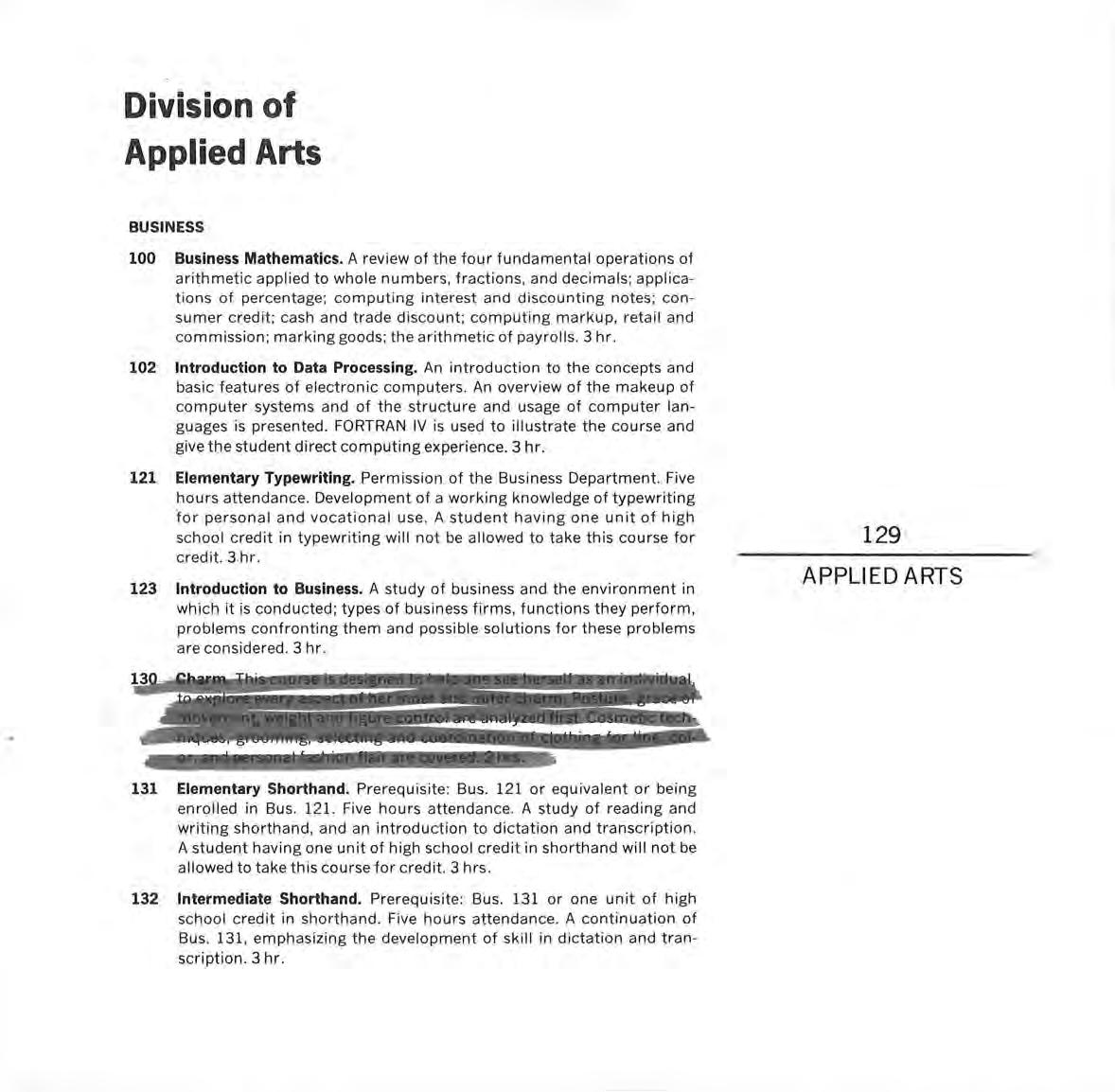
102 Introduction to Data Processing. An introduction to the concepts and basic features of electron i c computers . An overview of the makeup of computer systems and of the structure and usage of computer languages is presented. FORTRAN IV is used to illustrate the course and give the student direct computing experience. 3 hr
121 Elementary Typewriting. Permission of the Business Department. Five hours attendance. Development of a working knowledge of typewriting for personal and vocationa l use. A student having one unit of high schoo l credit in typewrit in g wil l not be allowed to take this course for credit. 3 hr.
123 Introduction to Business. A study of business and the environment in which it is conducted; types of business firms, functions they perform, problems confronting them and possible solutions for these problems are considered. 3 hr .
131 Elementary Shorthand. Prerequisite: Bus. 121 or equiva lent or being enrolled in Bus. 121. Five hours attendance A study of reading and writing shorthand, and an introduction to dictation and transcription A student having one unit of high schoo l credit in shorthand will not be a ll owed to take this course for credit. 3 hrs.
132 Intermediate Shorthand. Prerequisite: Bus 131 or one unit of high schoo l credit in shorthand Five hours attendance A cont inu ation of Bus. 131 , emphasizing the development of sk ill in dictation and transcription. 3 hr.
203 COBOL Programming. Prerequisite: Bus 102 or Math 102. A genera l introduction to the ANS COBOL Programming Language and its app lication ·to business computing The student's work will include a nalyzing problems and developing, testing, debugging, running , and documenting COBO L programs to solve these problems. 3 hr.
204 FORTRAN Programming. Prerequisite : Bus 102 or consent of instructor. The FORTRAN IV l anguage and its applicat ion to problem so lving is discussed in detail. The student's work includes an a ly z in g a problem and developing a program relative to his field of interest. 3 hr.
215 Personal Business Finance. Fundamentals of personal finance. Budgeting; banking; life insurance; accident , health , and casua lty insurance; investments; trusts; taxes; income taxes and socia l secur it y 3 hr.
220 Intermediate Typewriting. Prerequisite : Bus 121 or one unit of high school credit in typewriting. Stresses speed and accuracy in typewriting letters, manuscripts, tabulations and other forms. 3 hr.
222 Machine Transcription. Prerequisite: Bus. 220, Int ermed iate Typewriting or equivalent and General Clerical Major/ permission. Development of skills in operating the transcribing unit. Meet four hours a week , to be arranged . 3 hrs.
223 Machine Transcription. Prerequisite: Bus. 220, Int ermediate Typewriting or equ iv a lent and permission. Further development of skills on the transcribing units. T his course includes vocabularies for special em~ 10¥,__ment areas. Meet three hours a week, to be arranged. 2 hrs.
231 Princifles of Accounting ..1-f i;,ur h ours attendance. An introduction to the prp cess of recording financial data and preparing periodic financial statz:ents and specia l reports for the sole proprietorship and partnership. hr. ,

231.5 P} nciples of Accountin ~ ur hours of attendance per week. An int oduction to the process of recording financial data and preparing periodic financial statements. The comp lete accounting cycle will be studied. Enrollees will attend the first ten weeks of Accounting 231. Restricted to students in the two-year secretarial programs. 2 hr .
232 Principles of Accountin~r~requisite : Bus. 231. Four hours attendance . A continuation of Bus. 231, cons iderin g the accounting process in the corporation; the student is introdu ced to accou nting theory , financial statement ana lys is and cost accounting. 3 hr
235 Business Machines. Three hours attendance with individual l aboratory
328
work arranged . Basic calculating machine operations, care of the machines and business application problems are stressed. 3 hr .
Principles of Management. Prerequisite: Bus. 123. A study of the functions of management with an introduction to such areas as organization theory, decision making , leadership, and motivation as they app ly to all organized groups, but geared primarily toward the existing business organization. 3 hr .
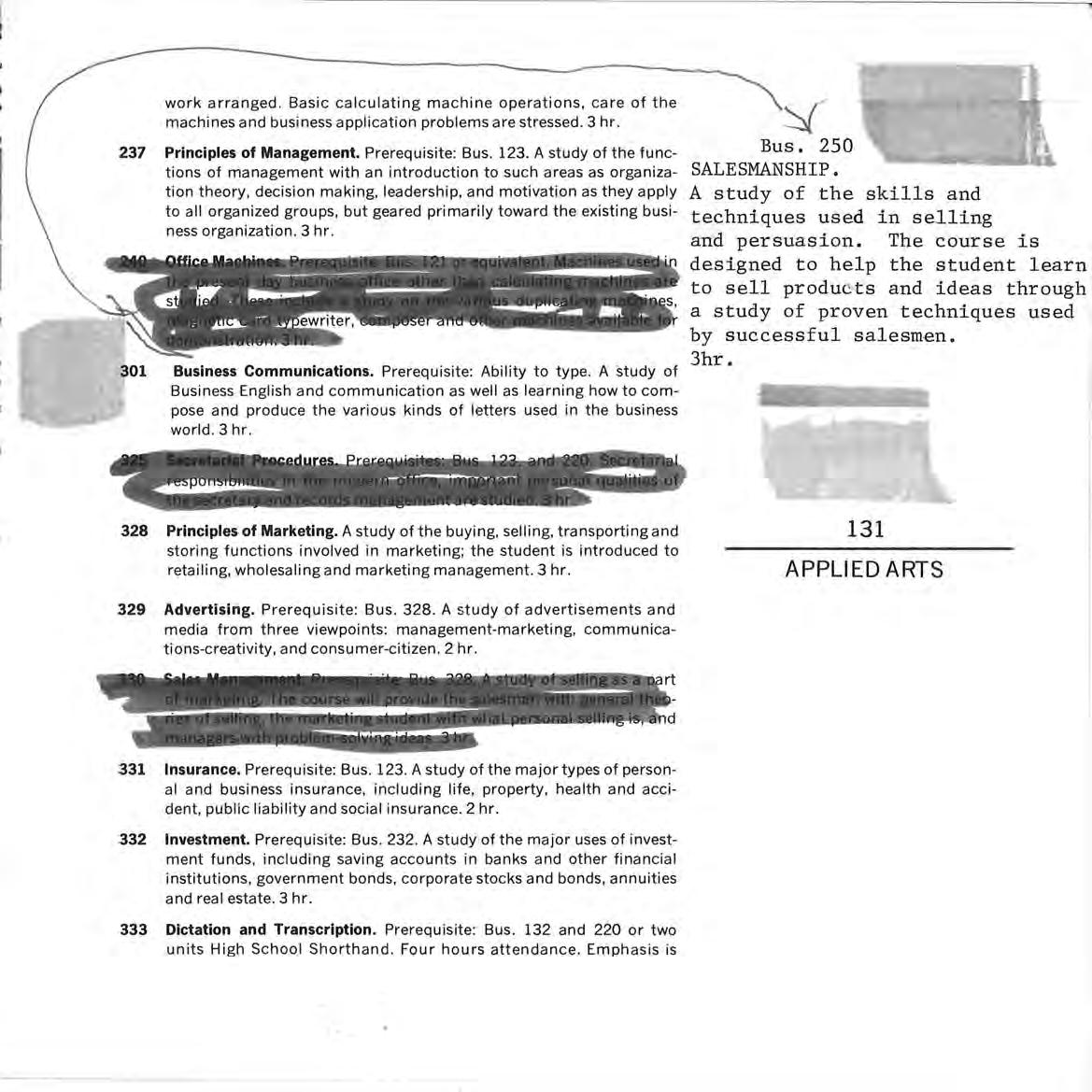
Business Communications. Prerequisite: Ability to type . A study of Business English and commun ication as well as learning how to compose and produce the various kinds of l etters used in the business world. 3 hr.
Principles of Marketing. A study of the buying, selling, transporting and storing functions involved in marketing; the student is introduced to retailing, wholesaling and marketing management. 3 hr
329 Advertising. Prerequisite : Bus. 328. A study of advert is ements and media from three viewpoints : management -marketing, communications-creativity , and consumer-citizen . 2 hr.
331 Insurance. Prerequisite: Bus. 123 A study of the major types of persona l and business insurance, including life , property, health and accident , public liability and social insurance. 2 hr
332 Investment. Prerequisite: Bus. 232. A study of the major uses of investment funds, including saving accounts in banks and other financial institutions, government bonds, corporate stocks and bonds, annuities and real estate. 3 hr.
333 Dictation and Transcription. Prerequisite: Bus 132 and 220 or two units High Schoo l Shorthand. Four hours attendance. Emphasis is
Bus. 250 SALESMANSHIP. A study of the skills and techniques used in selling and persuasion, The course is designed to help the student learn to sell products and ideas through a study of proven techniques used by successful salesmen. 3hr.
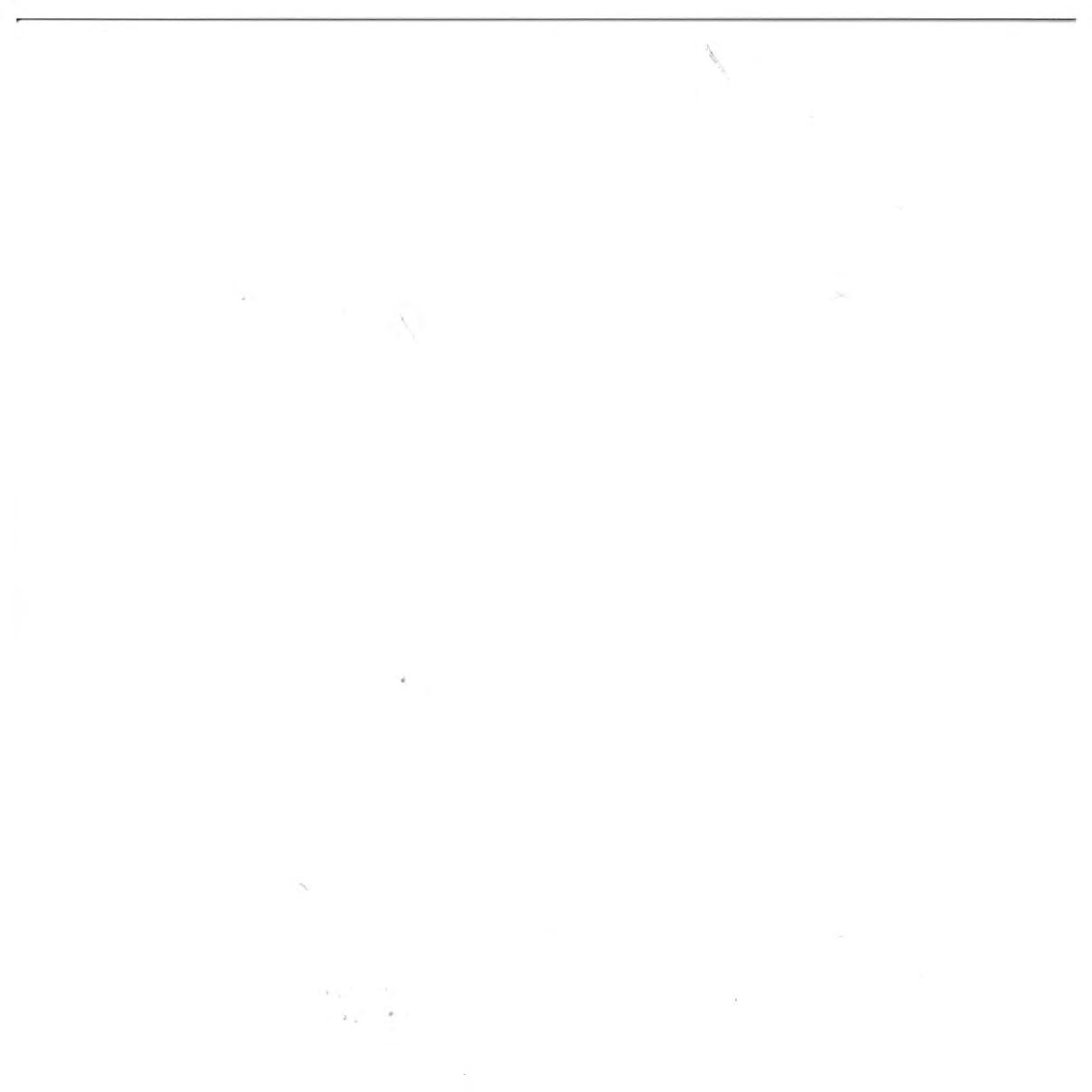
237
work arranged. Basic calculating machine operations, care of the machines and business application problems are stressed. 3 hr.
Principles of Management. Prerequisite: Bus. 123. A study of the functions of management with an introduction to such areas as organization theory, decision making, leadership, and motivation as they apply to all organized groups, but geared primarily toward the existing business organization. 3 hr
A study of the skills and techniques used in selling and persuasion, The course is designed to help the student learn to sell products and ideas through a study of proven techniques used by successful salesmen. 3hr.
301
Business Communications. Prerequisite: Ability to type. A study of Business English a nd co mmunication a s well as learning how to com-
325 SECRETARIAL

332
Prerequisites: Bus. 123, 220, Five hours . of attendance per ·week. 'l'his course is designed to develop competencies if1 bqth operational and managerial functions performed by th~ top-l evel secre·tary. Operational functions . involve an in-depth study of office i:!.nd secretarial procedures. This will include records management, magri i'Jtic card typewriter, duplj.c a ting machines, and ~RTS transcribiiig machines. !'1anagerial. functions involve the development of a high degree of competency in administrative secretarial skills. 4 . hr.
3 hr
333 Dictation and Transcription. Prerequisite: Bus. 132 and 220 or two units High School Shorthand. Four hours attendance. Emphasis is
placed on increasing skills in taking dictation and transcribing it into mailable form. 3 hr.
334 Advanced Typewriting. Prerequisite: Bus. 220. Three hours attendance. Stresses the development of a high degree of proficiency in composition, machine dictation and production typewriting. 3 hr.
335 Industrial Management. Prerequisite: Bus. 237. A study of the management of an industrial plant; location, construction, layout, equipment, supplies and personnel are considered. Tl 1;: pa s l .asc, storage :m~oAessitiS tif tiiZil 1·ali ~HU~ @ale of tile fiflisAe8 ~red wet a::~ striii0 d. 3 hr .
337 Intermediate Accounting I. Prerequisite: Bus. 232. A study of the problems involved in establishing sound valuations for asset , liability and net worth items; proper reporting of financial position and net income is stressed. 3 hr.
338 Intermediate Accounting II. Prerequisite : Bus . 337 . An in-depth continuation of Bus 337 with special emphasis on long-term liabilities, intangible assets, statemenJ; analysis, stoc ,kholders' equityJa:lliffJ application of funds 1 3 hr. ~
339 Cost Accounting. Prerequisite: Bus 232. A study of manufacturing cost under process and job-order cost systems; determination and application of standard cost, analysis of cost behavior and cost budgeting to aid management in making decisions are stressed. 3 hr.
340 Statistics. A study of the methods of summarizing and interpreting data, elementary probability and its relation to distributions. The meanings , importance, and applications of the normal and binomical distributions. The methods of random sampling, testing of hypotheses, analysis of paried data, and interpretation of standardized test scores. 3 hr .
- 341 Income Tax Accounting. Prerequisite: Bus . 232. The Federal Income Tax laws and regulations conce r,~~ng taxable income, inclusions and exclusions, allowable deduct_ions ;"and basis of determi_nin~ gain or los,s , of reporting purposes for individuals .,.. businesses. ~ Coy hia~, .,.,,, I I 1
345 Real Estate Principles and Practice. Prerequisite: Bus. 123. A study of real estate law as it affects marketing, ownership, interests, sales, leases and agencies. Financing institution , financial aspects of ownership and marketing will be covered, as well as managerial aspects of brokerage, property valuation, and real estate appraising . 3 hr.
346 Money, Credit and Banking. A study of the origins and present roles of our monetary system, credit, commercial banking and the Federal Reserve System. It will be organized for students whose principal interest lies out side of going into bank management. 3 hr
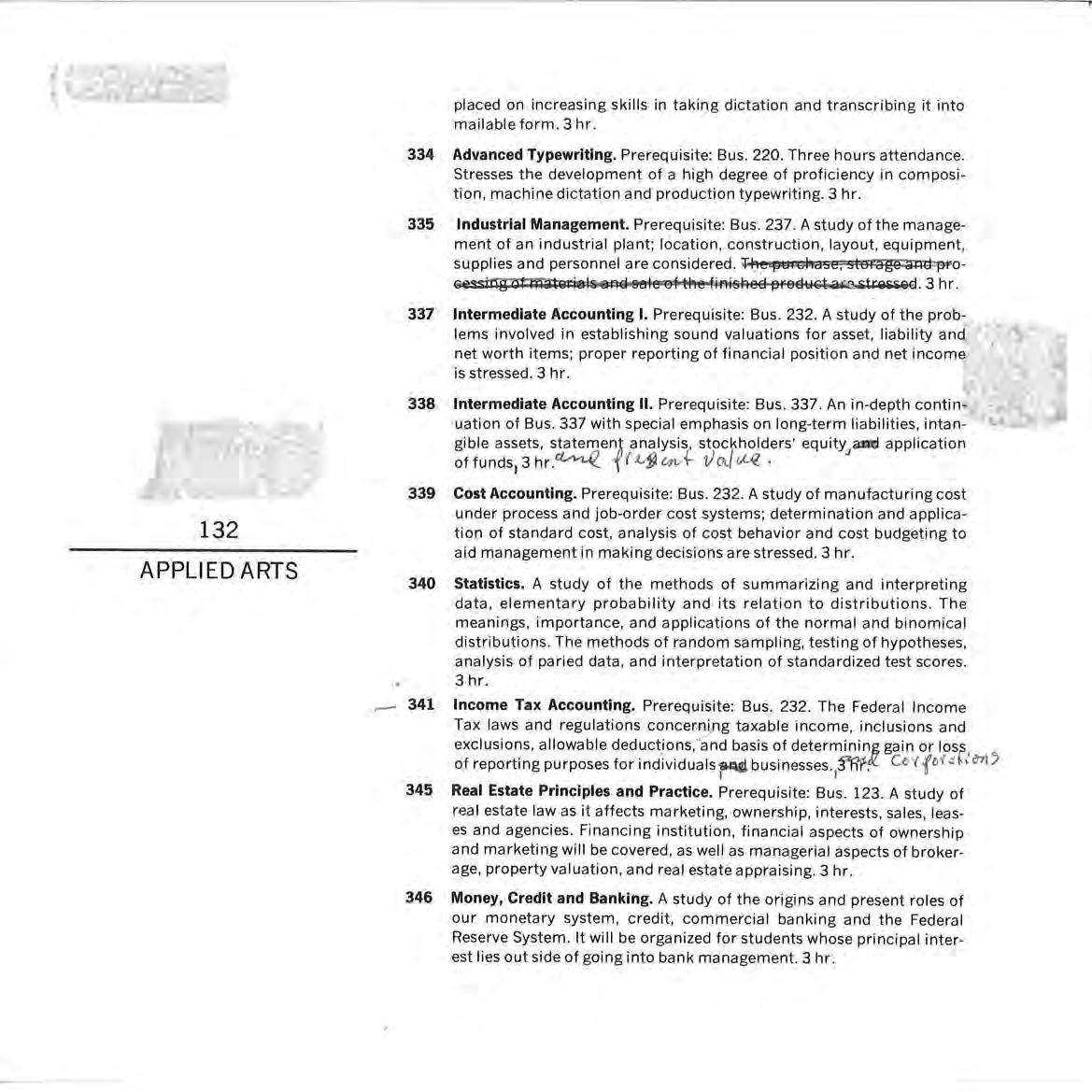
Business Law I. Prerequisite: Bus. 123. A study of the legal rights and ob li gations of parties to contracts concerned with such matters as exchange, property, agency, insurance and bankruptcy; special legal problems of partnerships and corporations are considered 3 hr.
351 Business Law II. Pr erequisite: Bus. 350. A study of l egal principles covering sales , negotia51e instruments, secur ity , bailments, the uniform commercia l code, corporations and partnerships, and the laws governin g real and personal property. 3 hr.
400 Special Problems in Computer Programming. Prerequisite: Business · 203 or Math 203 or Business 204 or Math 204. Supervised projects in adva ~ ed computer programming . 1-4 hrs .
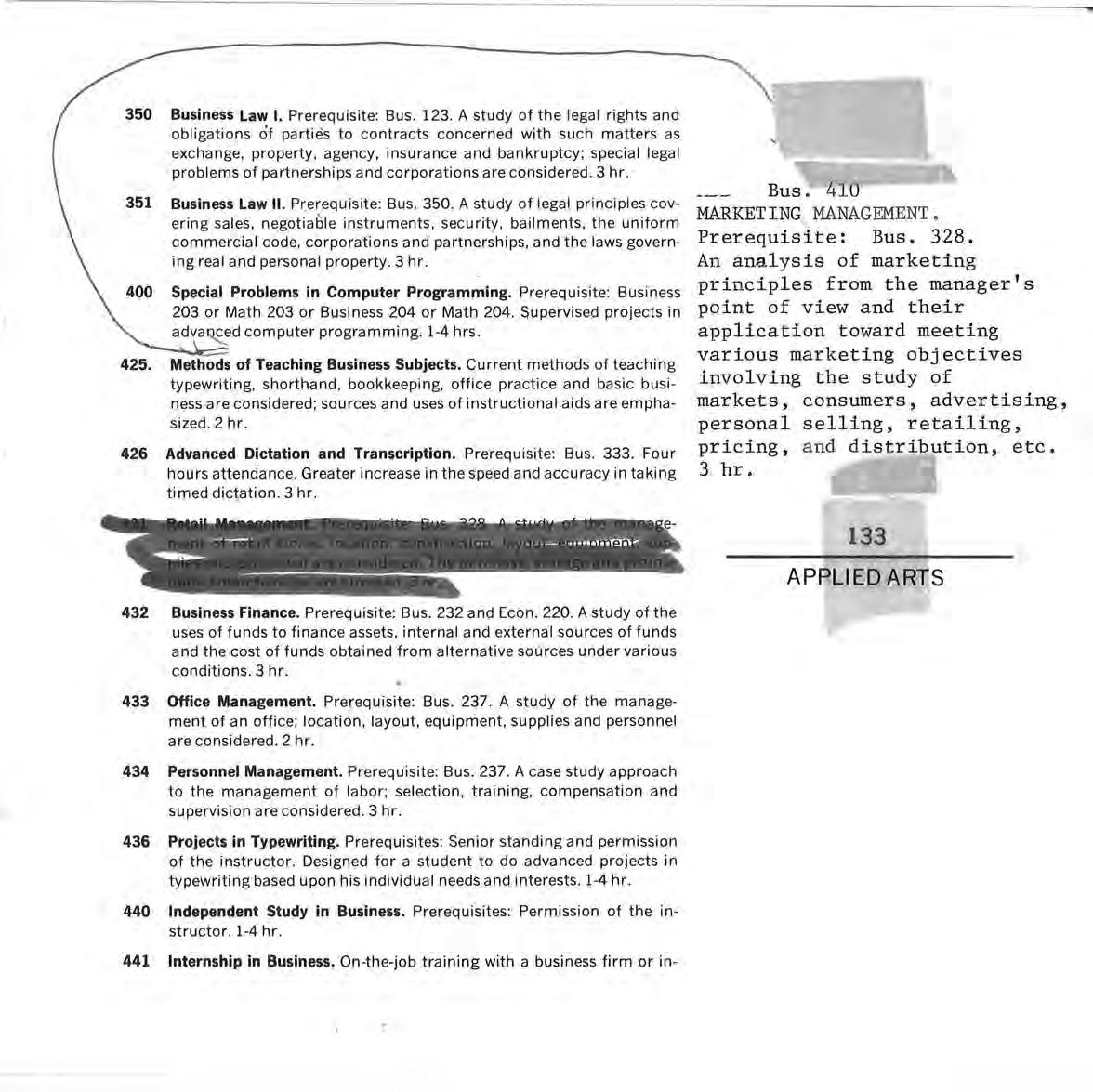
425. Methods of Teaching Business Subjects. Current methods of teaching typewriting, shorthand, bookkeeping, office practice and basic business are considered; sources ~nd uses of instructional aids are emphasized . 2 hr. · ·
426 Advanced Dictation and Transcription. Prerequisite : Bus . 333. Four hours attendance. Greater increase in the speed and accuracy in taking timed dictation. 3 hr.
Prerequisite: Bus. 328. An analysis of marketing principles from the manager's point of view and their application toward meeting various marketing objectives involving the study of markets, consumers, advertising, personal selling, retailing, pricing, and distribution, etc. 3 hr,
432 Business Finance. Prerequisite : Bus 232 and Econ. 220. A study of the uses of funds to finance assets, internal and external sources of funds and the cost of funds obtained from alternative sources under various conditions. 3 hr.
433 Office Management. Prerequisite: Bus. 237. A study of the management of an office; lo cation, layout, equipment, supplies and personnel are cons id ered. 2 hr.
434 Personnel Management. Prerequisite: Bus. 237 . A case study approach to the management of labor; selection, training, compensation and supervis i on are considered 3 hr.
436 Projects in Typewriting. Prerequisites: Senior standing and permission of the instructor. Designed for a student to do advanced projects in typewriting based upon his individual needs and int erests . 1-4 hr .
440 Independent Study in Business. Prerequisites : Permission of the instructor 1-4 hr.
441 Internship in Business. On-the-job training with a business firm or in-
dustry. To be taken near the ending of formal co ll ege courses by students in t-he areas of management, marketing, accounting, and secretarial. A student must intern in the area of his vocational career interest. One hour of co llege credit will be given for 115 hours of internship work . The student must attend a two hour seminar each month. Business majors only 1-4 hrs.
442 Managerial Accounting. Prerequisite: Bus. 232. Designed to study the uses of accounting information for managerial decisions and i nternal management purposes. Focus will be on cost controls, budgeting , performance evaluation, and financial information for planning and decision making 3 hr
450 Advanced Accounting. Prerequisite: Bus. 338. A detailed study of accounting problems arising out of partnerships, combinations, installment sales, neooi11ersb ip:;; .-., 11 I ws-M,iieSi:ae·fl33!im;t~. Also included is r;_':iff_u~17ioo:'fim1ie§ooTTi<ic;e~and branch accounting,al'ld tl.e pr e~r.i of coosa[.u:la t,-ea stateA'leR~s. 3 hrs.
470 Auditing Principles. Prerequisites : Bus. 337 and 339 or by permission . Generally accepted auditing standards and procedures with philosophy supporting them; a.>11 Iii ii l&brrtr '3Uditing techniques available to the independent public accountant. 3 hr.
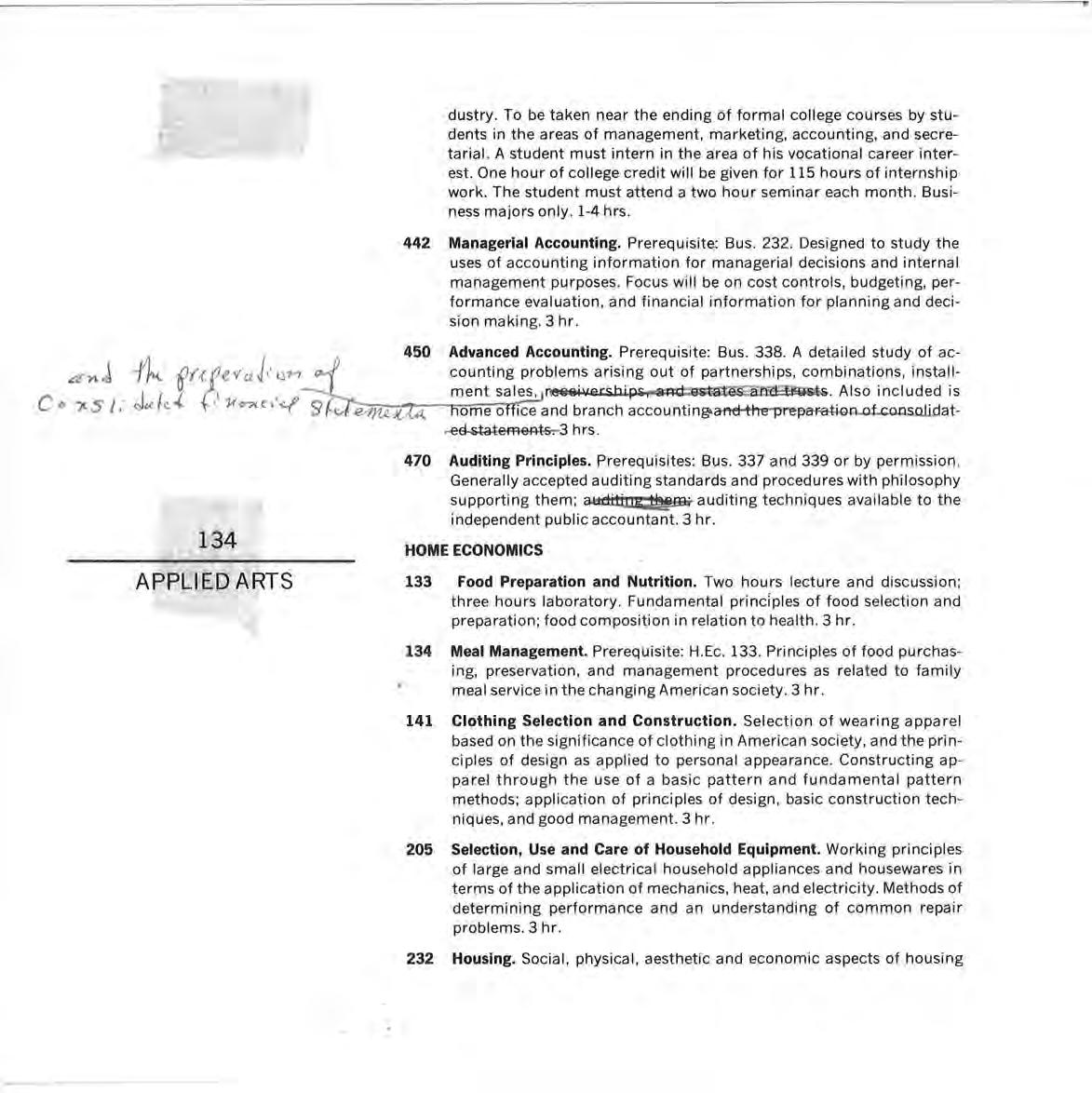
133 Food Preparation and Nutrition. Two hours lecture and discussion ; three hours laboratory Fun damental prindples of food selection and preparation; food composition in relation to health. 3 hr.
134 Meal Management. Prerequisite: H.Ec. 133. Principles of food purchasing , preservation , and management procedures as related to family meal service in the changing American society. 3 hr
141 Clothing Selection and Construction. Selection of wearing apparel based on the significance of c lothin g in American society, and the principles of des i gn as app li ed to personal appearance. Constructing apparel through the use of a basic pattern and fundamental pattern methods; application of principles of design , basic construct ion techniques, and good management. 3 hr.
205 Selection, Use and Care of Household Equipment. Working principles of large and small electrical household appliances and housewares in terms of the application of mech a nics, heat , and electricity. Methods of determining performance and an understanding of common repair problems 3 hr
232 Housing. Social, physical, aesthet ic and economic aspects of housing
as it concerns the family during stages of the family life cycle. Principles of buying, building or remodeling to meet family needs. 3 hr.
302 Child Development. Scope of course covers from prenatal through preschool ages. Four current reports; one each for prenatal care, infant care, your child from one to six, and the nursery school. Also a preschool laboratory of four weeks. Three hours credit will involve a floor plan for a pre-school, fully°equipped 2-3 hr
310 Methods and Media in Home Economics Demonstration. Prerequisites : H. Ec. 133 and 141. Selection and application of methods and media for use in presentation of programs in home economics by the teacher , home economics agent and commercial demonstrator. 2 hr
321 Human Relationships. Readings in current literature on human relationships. 1-3 hr.
322 Home Furnishing. The selection, arrangement and care of furnishings from the standpoint of comfort, beauty, economy and family needs. 3 hr.
332 New Developments in Nutrition and Dietetics. Fundamental principles of human nutrition and its development through research as related to the dietary needs of individuals according to their age, sex and/or occupation. 3 hr
333 Textiles. A study of fabric construction , yarns, fibers and finishes as they affect the selection, use and care of fabrics for clothing and for the home 3 hr.
334 Tailoring. Prerequisite: H Ec 141 or special permission. A course designed to meet the student's need for the more difficult construction problems which are encountered in tailoring. 3 hr.
400 Special Problems in Home Economics. Special research or study as needed by the individual. Home Economics majors only. 1, 2 or 3 hr .
410 The Consumer in American Society. Study of the economic problems and responsibilities of consumers. Basic definitions and analyses of economics judged to be helpful in the activities of consumer or household buying. 3 hr .
421 Home Management. Emphasis on present day decisions and management problems of families. Application of management techniques for household activities and family living. 3 hr .
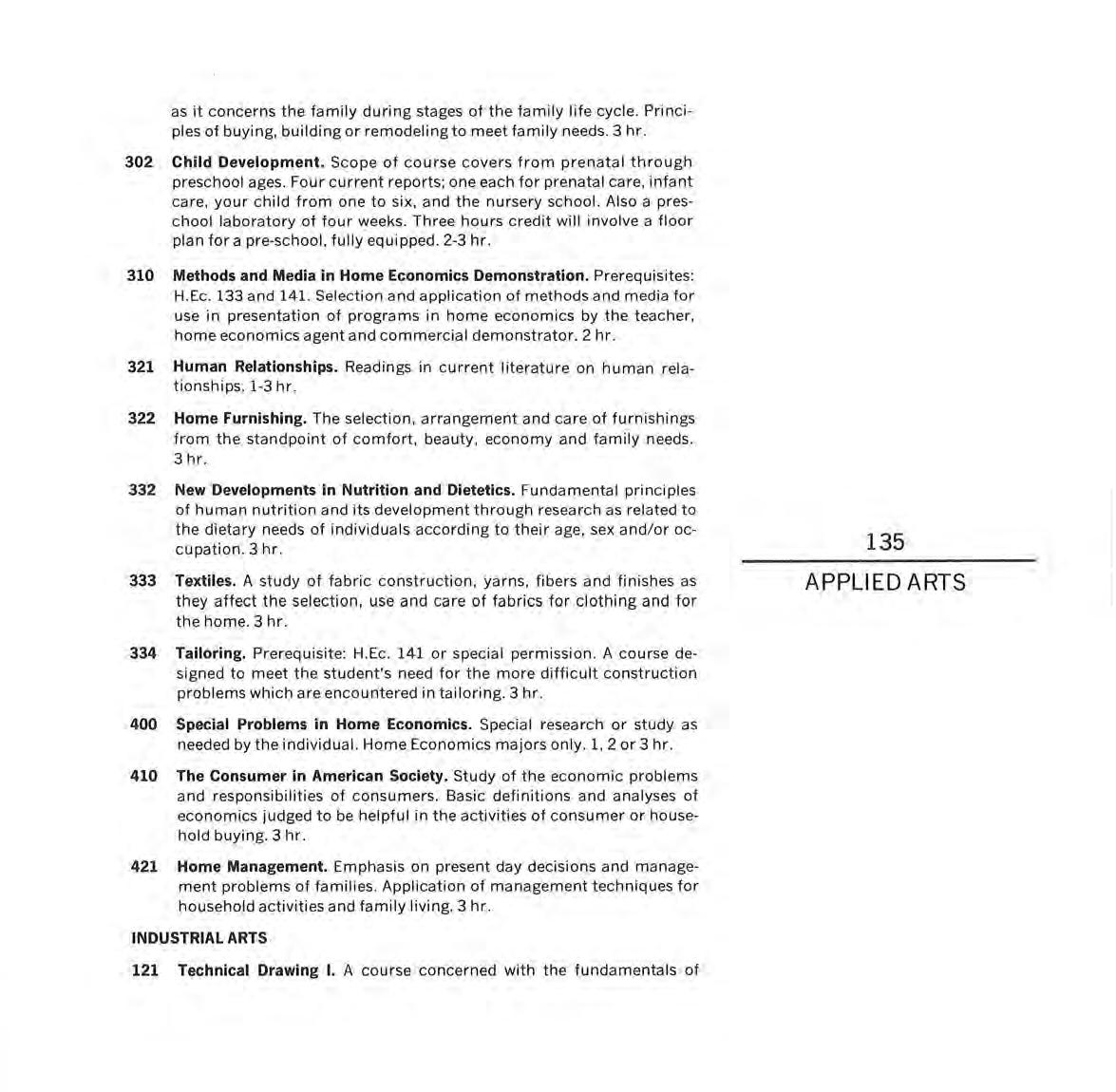
121 Technical Drawing I. A course concerned with the fundamentals of
graphic language The course in c l udes proper use and care of instruments, geometric construction, lettering , sketching and shape description, multi-view projection , sectional views and auxiliary views. 3 hr.
123 Woodworking Technology I. The development of -basic skills in the use of both hand too l s and woodworking machines. 3 hr
124 Woodworking Technology II . Prerequisite: I.A. 123. Techniques and procedures in wood finishing using both traditional and new types of materials. Also the study of woodworking technology and wood identification 3 hr.
132 Metals Technology I. Fundamental instruction in the areas of sheet metal, bench metal, forging and heat treatment, foundry, welding and elementary machining. 3 hr.
222 Technical Drawing II. The course include s shop processes, dimensioning, threads and fasteners, design and working drawings , axonmetric projection , ob liqu e projection , perspective projection, intersections and developments , gearing and cams, welding representation, graphs and the use of drafting machines. 3 hr
226 Photography I. Theory and practice in the basic fundamentals of photography including composition, exposure, lighting , developing, contact printing and enlarging . The third hour credit gained by additiona l assignments. Each student must have a camera. 2-3 hr.
231 Industrial Crafts I. Open to all students. Basic experiences in working with a variety of craft media ; inc ludi ng plastics, art metal, ceramics, and leather. 3 hr.
233 Electrical Technology I. Basic theory, principles, and app li cations of electricity in industry and the home. Areas of in struction include the production of electricity, magnetism , theory and basic circuits, residential wiring , motors and generators, automotive electricity, app liance repair, electrochemistry. 3 hr .
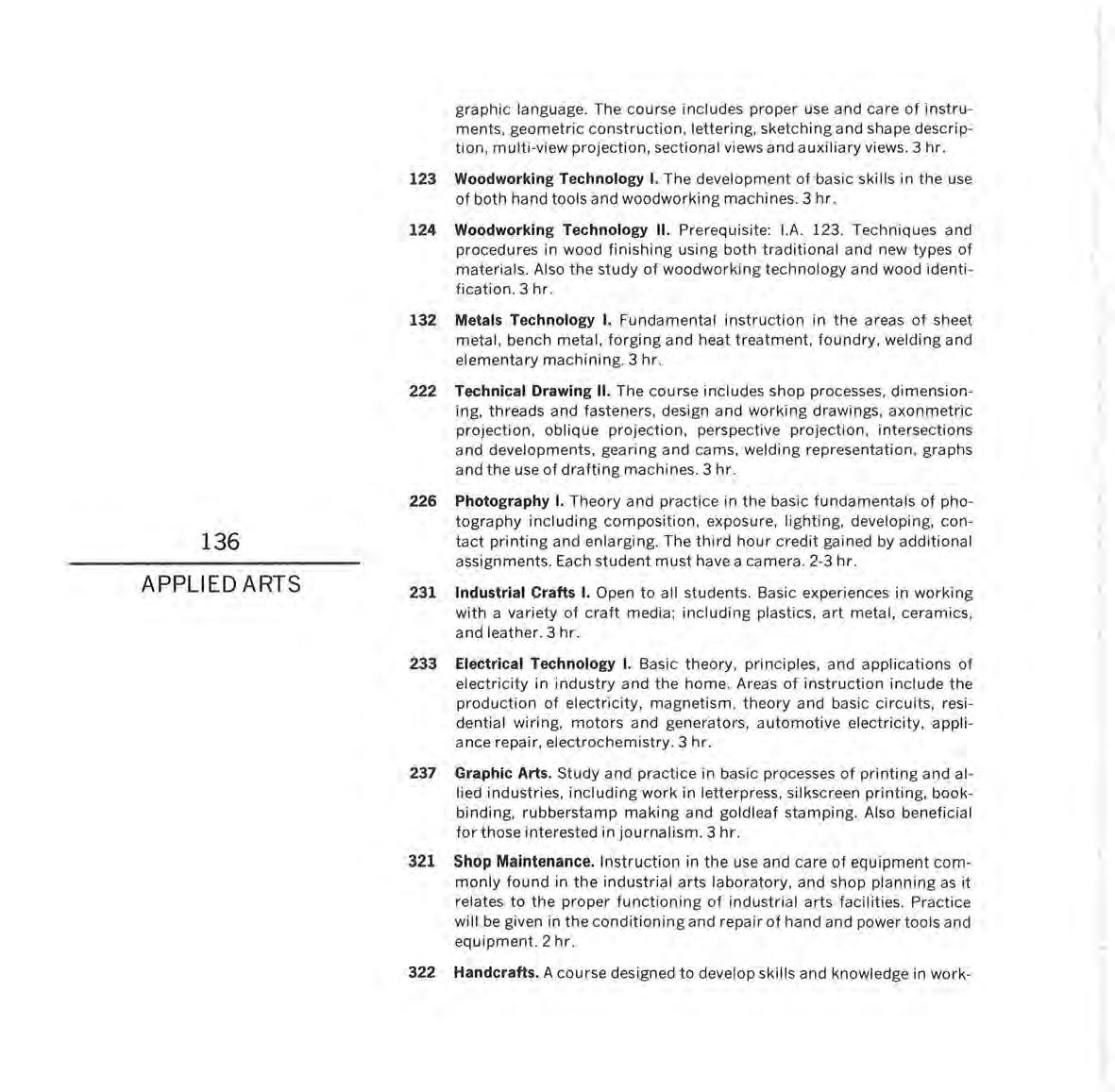
237 Graphic Arts. Study and practice in basic processes of printing and allied indu stries, including work in letterpress, si lkscreen printing, bookbinding, rubberstamp making and goldleaf stamping. Also beneficial for those interested in journalism . 3 hr.
321 Shop Maintenance. Instruction in the use and care of equipment commonly found in the industrial arts laboratory, and shop planning as it relates to the proper functioning of industrial arts facilities. Practice wi ll be given in the conditioning and repair of hand and power tools and equ ipm ent. 2 hr.
322 Handcrafts. A course designed to develop skil l s and knowledge in work-
ing with ceramics , metals, plastics, wood and other craft materi als. Instruction will include specifying and purchasing craft supplies and methods of incorporating these activities into school and community programs. Recommended for elementary school teachers, recreation majors, and for people interested in leisure time craft activities. 3 hr.
323 Metals Technology II. Prerequisite: IA 132. A second course in metalwork with emphasis on foundry and machine technology, and a study of metallurgy as it relates to the foundry, machine shop, and heat treating processes. 3 hr .
324 Building Construction. Prerequisite: I.A 124. Fundamentals of wood frame building construction. Basic plumbing, electricity, masonry, and related areas will be studied. 3 hrs.
325 Photography II. Prerequisite: IR 226. Lens testing, infra-red photography, high speed photography, portraiture, use of negative and .positive color films, co.lor printing and movie making. 2-3 hr .
326 Upholstery . Prerequisite : I.A . 124 or by special permission. Designed to give experience in and information about various methods of construction in upholstery both with and without use of springs. 3 hr.
327 Woodworking Technology Ill. Prerequisite: I.A. 124. Emphasis will be placed on an advanced problem including cabinetmaking or furniture construction. Also items related to the teaching of woodworking will be covered. 2 hr.
328 Electrical Technology II. Prerequisite: I.A. 233 or by special permission
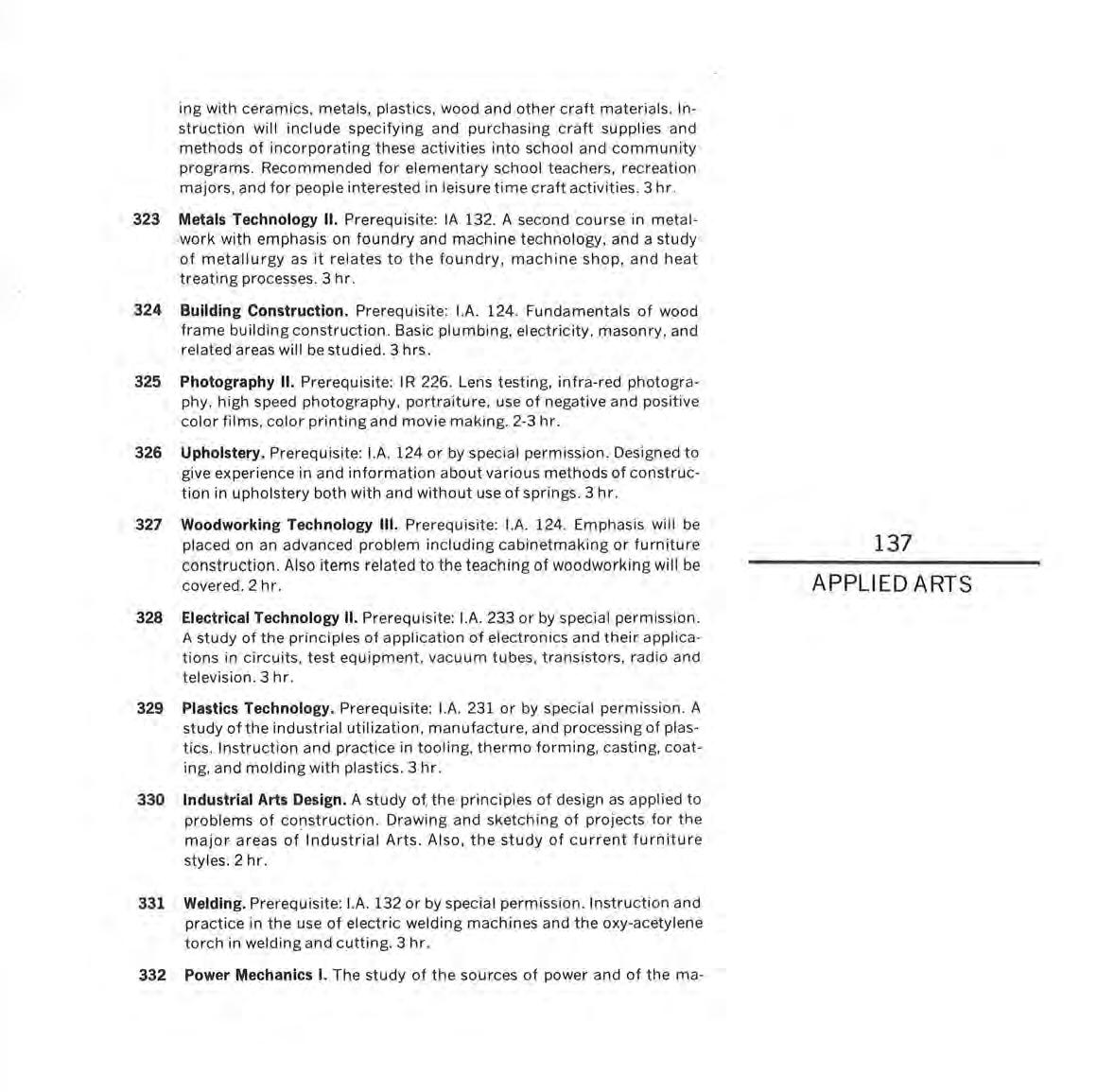
A study of the principles of application of electronics and their applications in circuits, test equipment, vacuum tubes , transistors, radio and television. 3 hr.
329 Plastics Technology. Prerequisite : I.A 231 or by special permission. A study of the industrial utilization, manufacture , and processing of plastics Instruction and practice in tooling, thermo forming, casting, coating, and molding with plastics. 3 hr .
330 Industrial Arts Design. A study of, the principles of design as applied to problems of construction. Drawing and sketching of projects for the major areas of Industrial Arts Also, the study of current furniture styles. 2 hr
331 Welding . Prerequisite: I.A. 132 or by special permission. Instruction and practice in the use of electric welding machines and the oxy-acetylene torch in welding and cutting 3 hr
332 Power Mechanics I. The study of the sources of power and of the ma -
chines · used in its development with emphasis upon the internal combustion engine. 3 hr.
335 Survival Preparedness. A study of facts related to survival in time of local, state or national disaster. 1 hr.
337 Driver Education and Traffic Safety I. Prerequisite : Twenty thousand miles or two years of driving experience free of repeated chargeable accidents and moving violations. This course will include presentation of materials and methods of traffic safety and driver training with emphasis upon attitude , development. organization and administration , driving regulations and safe motor car operation. 3 hr
338 General Safety. This course is designed to familiarize the student with problems of accident prevention and conservation of human life and limb. Emphasis will be placed in the following areas: occupational, farm and home transportation , and school . Instructional materials will be developed and studied. 3 hr
340 Driver Education and Traffic Safety II. Prerequisite: Driver Education I. This course will provide an opportunity to co nstru c t materials relating to and experiment with methods of presenting les sons in traffic safety and behind-the-wheel driving. Each student will be expected to teach a beginning driver 3 hr.
400 Individual Studies in Industrial Arts. Prerequisite : Approval by department. Independent study of Industrial Arts to meet the needs of the student. For majors only. 1-3 hr .
401 Career Education. A study providing students from K-12 the direction to acquire the skills which will allow him to make a livelih ood for himself and for his future family , no matter at which step of the ladder of the educational system he leaves. 3 hr.
405 Electrical Technology Ill. Prerequisite: I.A. 328. A study of solid state devices and electronic circuits in communication and industrial applications. 3 hr.

425 Industrial Arts Methods and Observation. The course will emphasize teaching methods and aids, course construction , testing, shop discipline, grading, safety and other problems pertinent to the teaching of the industrial arts. 2 hr.
427 Architectural Drawing. Prerequisite: I.A. 222 The principles of planning a dwelling to fit modern needs. Drawings will include a plot plan , floor plan, four elevations, sections and details. Specifications will be determined by the student for the dwelling. 3 hr.
428G The World of Construction. A study of the Industrial Arts Curriculum , Project World of Construction. The course is designed to develop a n understanding of the goals and techniques of IACP instruction. Meth-
ods of conducting learning activities through role playing , group activities , and simulation games will be emphasized as they relate to the problems involved in construction on a site. 3 hr.
429G The World of Manufacture. A study of the Industrial Arts Curriculum , Project World of Manufacturing . The course is designed to develop an understanding of the goals and techniques of IACP instruction. Methods of conducting learning activities through role playing , group activities , and simulation games will be emphasized as they relate to the problems involved in manufacturing products in a plant. 3 hr .
432 Auto Mechanics. Prerequisite : I.A. 332. A study of the basic mechanical operations of the automobile. Emphasis will be pl ac ed on principles and theories of operation of components including overhaul procedures and maintenance. 3 hrs .
441G History and Philosophy of Vocational Education. Origins and philosophy of vocational education and the relationship to the school curriculum. Required for vocational certification and recommended as an elective for school administrators 3 hr.
442G Organization and Administration of Vocational Education. A study of the principles and policies governing the administration of vocational educational programs in high schools, techni.cal schools, junior colleges and adult education programs. 3 hr .
443G Coordination Techniques in Vocational Education Programs. Analysis of Vocational Cooperative Programs and their relationship to th e high school , junior college , and adult vocational programs. Emphasis on the organization and supervision of cooperative programs , duties and responsibilities of the coordinator, selection and placement of students, and evaluation of students, training stations and the cooperative program. 3 hr.
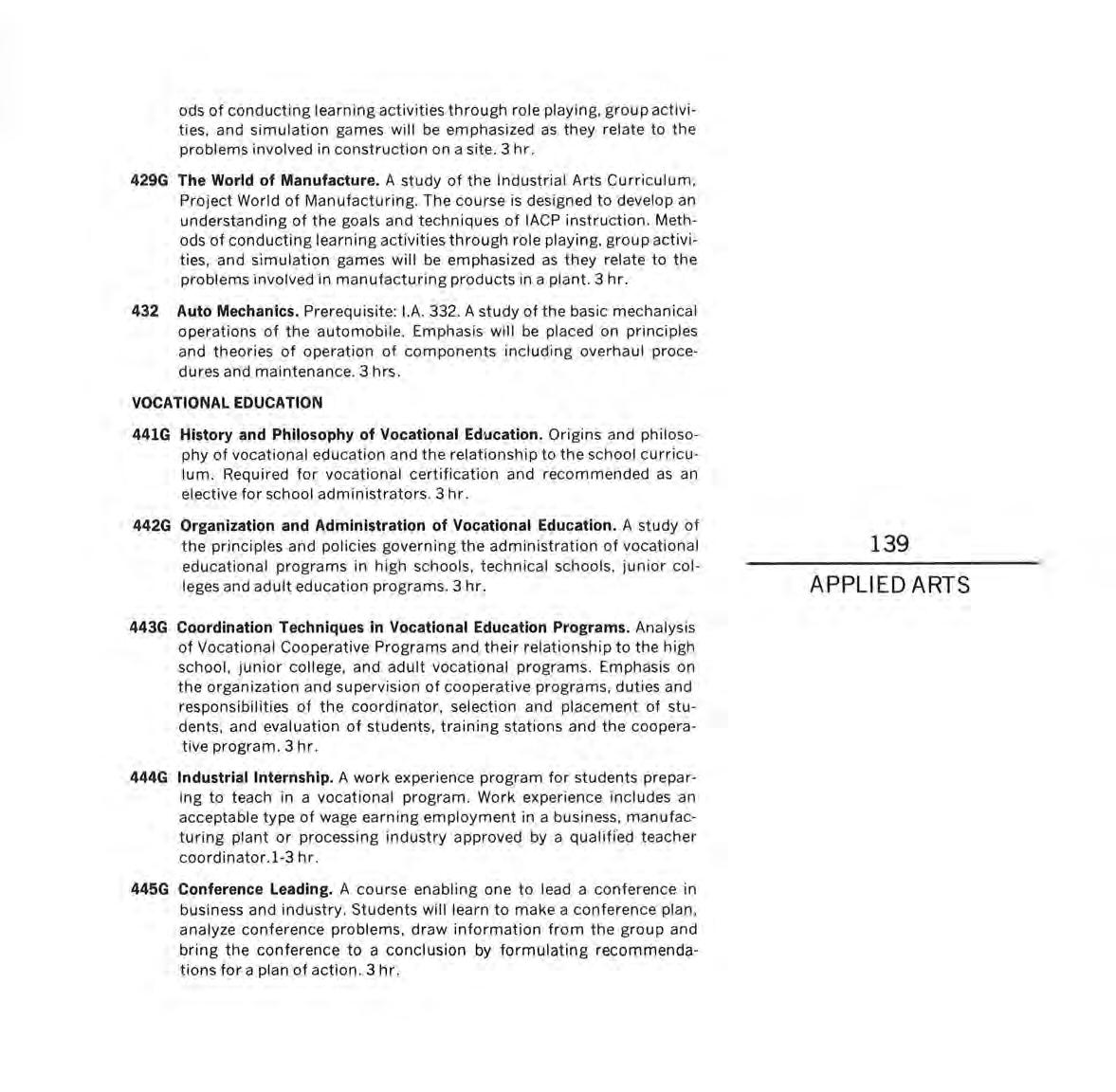
444G Industrial Internship. A work experience program for students preparing to teach in a vocational program . Work experience includes an acceptable type of wage earning employment in a business , manufacturing plant or processing industry approved by a qualifi'ed teacher coordinator.1-3 hr.
445G Conference Leading. A course enabling one to lead a conference in business and industry Students will learn to make a conference plan , analyze conference problems, draw information from the group and bring the conference to a conclusion by formulating recommendations for a plan of action. 3 hr.

200 Foundations of Education. Prerequisite: Psych 121. The schoo l being a major social institution, current educational philosophy emphasizes the impo rtance of successful human interaction. The historical and curricular development of American schools is accented through enrichment activities. 3 hr.
302 The Disadvantaged Child. Prerequisites: Psych . 121 and 201. An interdisciplinary sem inar designed to interpret the influ ences of cu lture in regard to the institution of family , schoo l , government, and religion. 3 hr.
304 Child, School and Family Relationships. A study of the relationships between the individual in the schoo l and family, the art of living cooperative l y with others and the responsibility of each person in the schoo.l and home in the development of satisfactory relationships. 3 hr.
305 Principles of Early Childhood Education. Prerequisite: Psych. 300. Theory and practice of ear l y chi ldh ood education in the nursery school and primary grades. The course deals with curriculum, program planning, use of materials and equipment , role of teacher , techniques of c l assroom management, and meeting the needs of indi vidua l children in the group situat ion 3 hr.
307 Practicum. Junior standing and approval. Actual contact and experience working in teaching and non-teaching responsibilities, of the Specia l Chi ld. The course includes exposure to TMH, EMH, Visually Handicapped, Speech and Hearing Handicapped in an indi vidual and group basis, inside of institutions. 1-8 hrs.
310 Kindergarten Education. Prerequisite: Psych. 201. Modern methods and study of materials that are used in the kindergarten program 3 hr.
334 Teaching Reading. Prerequisite : Educ. 300. A study of current methods of teaching developmental reading, study of reading materials and their uses, eva lu ating reading progress, and relating developmental reading to an understanding of children. 3 hr.
335 Problems in Reading Seminar. A seminar designed to give a mutual understanding of the problems in reading, grades 1 to 12 inclusive. 3 hr.
336 Diagnostic and Remedial Reading. Prerequisite: 15 hours professional education or instructor's permission . Techniques of recognizing and classifying reading problems 3 hr.
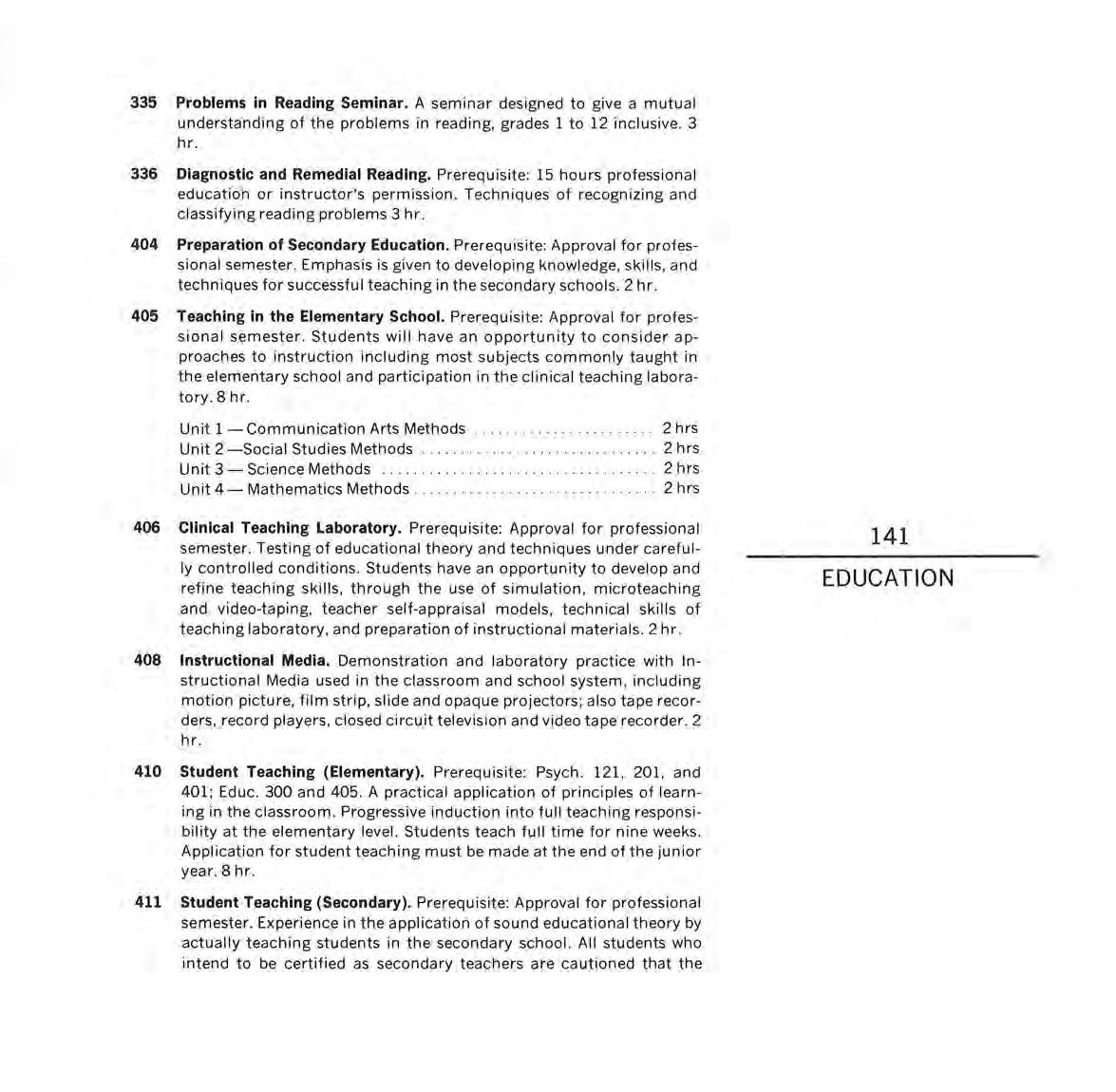
404 Preparation of Secondary Education. Prerequisite: Approval for professional semester Emphasis is given to developing knowledge, skills, and techniques for successful teaching in the secondary schools. 2 hr.
405 Teaching in the Elementary School. Prerequisite: Approval for professional semester. Students will have an opportunity to consider approaches to instruction including most subjects commonly taught in the elementary school and participation in the clinical teaching laboratory. 8 hr.
Unit I -Communication Arts Methods
Unit 2 -Social Studies Methods
Unit 3 - Science Methods
Unit 4- Mathematics Methods.
406 Clinical Teaching Laboratory. Prerequisite: Approval for professional semester. Testing of educational theory and techniques under carefully controlled conditions. Students have an opportunity to develop and refine teaching skills , through the use of simulation , microteaching and video-taping, teacher self-appraisal models, technical skills of teaching laboratory, and preparation of instructional materials. 2 hr.
408 Instructional Media. Demonstration and laboratory practice with Instructional Media used in the classroom and school system , including motion picture, film strip, slide and opaque projectors; also tape recorders, record players, closed circuit television and video tape recorder. 2 hr.
410 Student Teaching (Elementary). Prerequisite: Psych . 121, 201, and 401; Educ. 300 and 405. A practical application of principles of learning in the classroom Progressive induction into full teaching responsibility at the elementary level. Students teach full time for nine weeks. Application for student teaching must be made at the end of the junior year. 8 hr.
411 Student Teaching (Secondary). Prerequisite: Approval for professional semester. Experience in the application of sound educational theory by actually teaching students in the secondary school. All students who intend to be certified as secondary teachers are cautioned that the
courses in the professional semester are integrated with student teaching and should not be taken in previous semesters. Application for student teaching must be made at the end of the junior year . 8 hr .
412 Student Teaching (Early Childhood) Prerequisite: Approval for professiona l semester. Observation , laboratory and teaching experience in directing the learning activities of chi ldr en in K-3 c lasses. During the eig ht weeks of teaching the student applies the theories and principles of learning and instruction 4 hr.
415 Workshop. Work on practical educational problems of special int erest to the students. The indivi d u a l or group is expected to make a written report of his finished project which will be duplicated and made ava ilable to other members of the Workshop. l to 6 hr.
420 Special Learning Disabilities. Designed to prepare teachers to adjust instructional strategies and to use varied teacher-materials in order to overcome social, emotional, psychological, physiological and educational deficiencies of child r en in the academi c area. 3 hr.
423 Methods and Materials in Special Education. Prerequisites: Psych 240. A course in developing appropriate materials in the major area of academic study. Emphasis will be on developing knowledge , skills and techniques for successfully teaching in the special education classroom. 3 hr
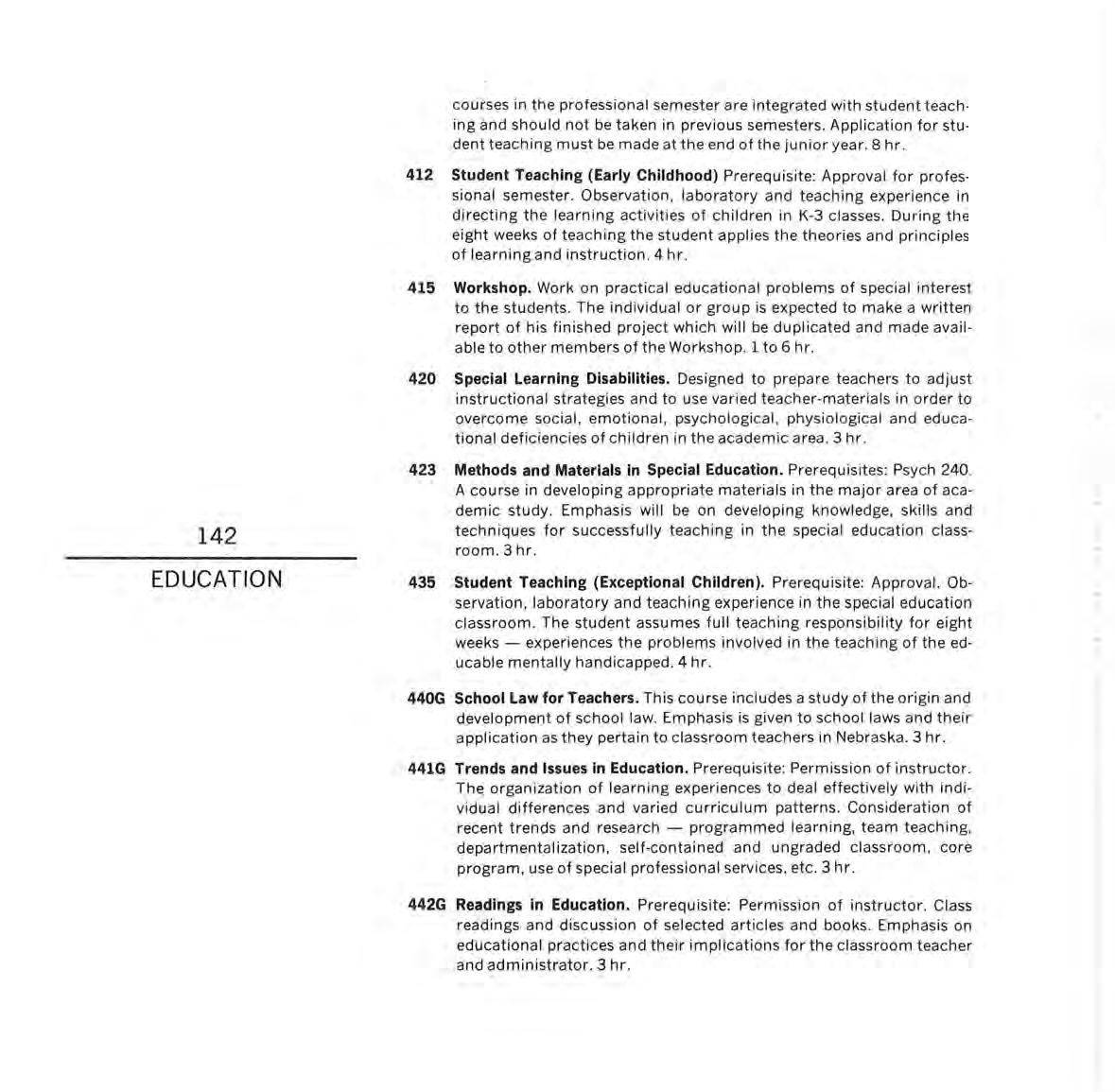
435 Student Teaching (Exceptional Children). Prerequisite: Approval. Observation, laboratory and teaching experience in the special educa ti o n classroom . The student assumes full teaching responsibility for eight weeks - experiences the problems involved· in the teaching of the educable mentally handicapped. 4 hr.
440G School Law for Teachers. This course includes a study of the origin and development of school law. Emphasi s is g iven to school laws and their app lic ation as they pertain to c lassroom teachers in Nebraska. 3 hr.
441G Trends and Issues in Education. Prerequisite: Permission of inst ructor. The organization of le arn in g experiences to deal effectively with individual differences and varied curr icu lum patterns. Consideration of recent trends and research - programmed le arning, team teaching, departmentalization, self-contained and ungraded classroom, core program , use of special professional services , etc 3 hr.
442G Readings in Education. Prerequisite : Permission of instructor. Class readings and discussion of se lected artic le s and books . Emphasis on educational practices and their implication s for the classroom teacher and administrator. 3 hr .
443G Individualization of Instruction. Several models for individualization are investigated The student will design a topic of i nstru ction following one of the models The students' experience this individualized design by the way the course is managed. 3 hr.
445G Principles and Techniques of Supervising Student Teachers. Prerequisite: Permission of instructor. A course designed to prepare teachers to act as supervisors of student teachers. 3 hr.
450 Directed Study in Education and Psychology. Prerequisit e: Junior or senior standing with permission of the instructor . Individual study and research in depth on a topic jointly approved by the instructor and student. 1-3 hr
121 General Psychology. A general education course which provides an introduction to the field of Psychology. Initial course for those preparing as teachers or professionals in the field. 3 hr.
240 Introduction to EMH/TMH. Prerequisites: Spec Ed 200 A survey course of the characteristics, ab ilities and needs; the psychological, environmental and cultural factors which contribute toward retardation. Appropriate teaching materials and techniques are taught. 3 hr
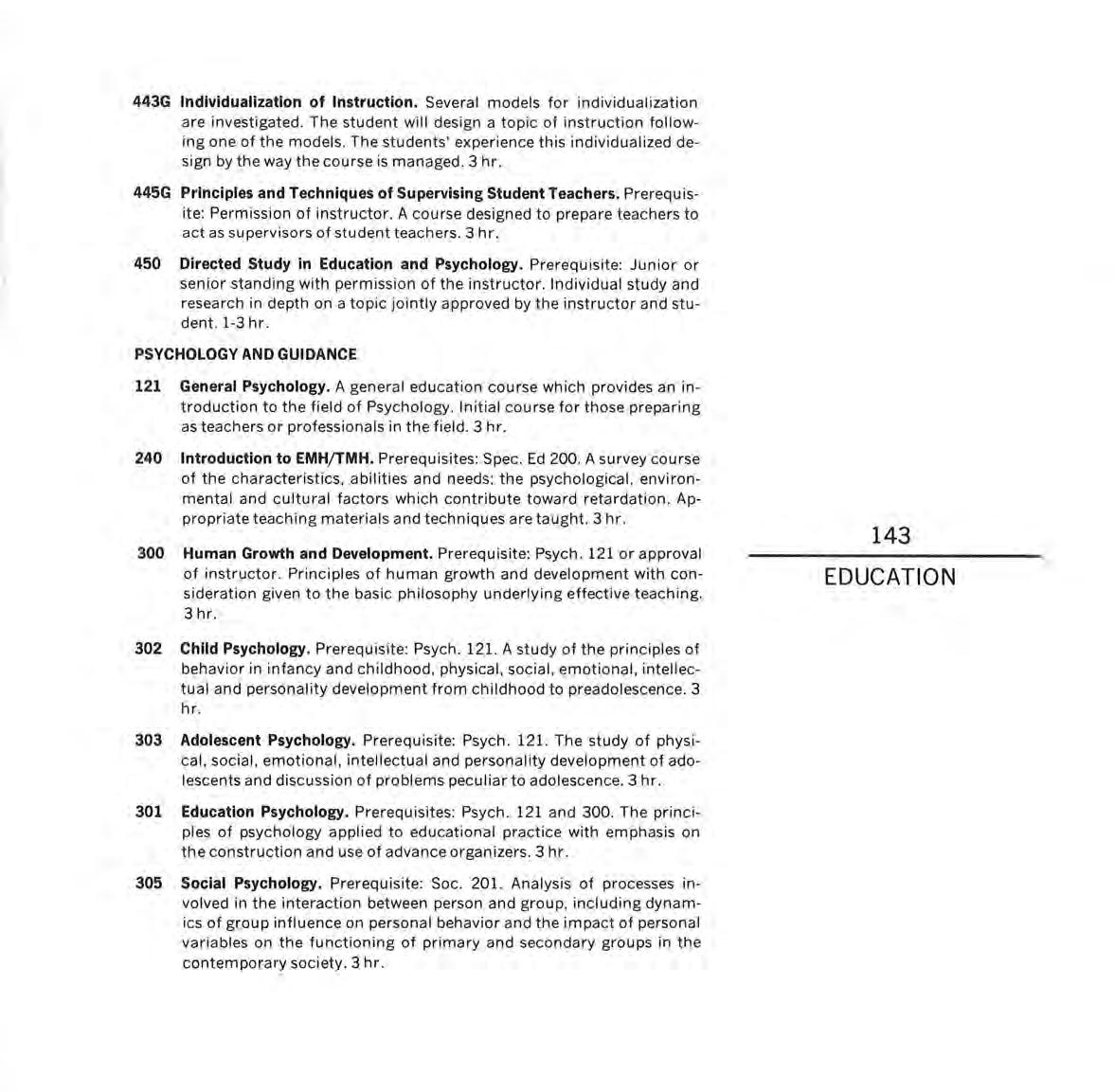
300 Human Growth and Development. Prerequisite : Psy ch. 121 or approval of instructor Principles of human growth and development with consideration given to the basic philosophy underlying effective teaching . 3 hr
302 Child Psychology. Prerequisite : Psych. 121. A study of the principles of behavior in infancy and chi ldhood , physical, social, emotional, intellectual and personality development from childhood to preadolescence. 3 hr.
303 Adolescent Psychology. Prerequisite : Psych. 121. The study of physical, social, emotional, intellectual and personality development of adolescents and discussion of problems peculiar to adolescence 3 hr
301 Education Psychology. Prerequisites: Psych. 121 and 300. The principles of psycholo gy app lied to educational practice with emphasis on the construction and use of advance organizers. 3 hr .
305 Social Psychology. Prerequisite: Soc. 201. Analysis of processes involved in the interaction between person and group, including dynamics of group influence on personal behavior and the impact of personal variables on the functioning of primary and secondary groups in the contemporary society. 3 hr
325 Applied Psychology. Prerequisite: Psych. 121. Facts and principles from the study of human behavior applied to business, industry, society, professional life and group processes. 3 hr.
331 Psychology of Exceptional Children. Prerequisites: Psych 240. Introduction to materials and techniques for identifying and helping to understand the specific developmental needs of gifted pupils and understand types of learning tasks and how to evaluate achievement with them. 3 hr.
421 Introduction to Mental Hygiene. Prerequisites: Psych. 121 and 300. Home , school and community factors in the adjustment of individuals. 3 hr
430 Educational Measurements. Prerequisites: Psych. 121 and 300. The writing of objectives in beh av ioral terms , the construction of tests based on Bloom's taxonomy and the interpretation of test scores are discussed in this course. 2 hr Each semester.
432 Principles and Practices of Guidance. Prerequisites: Psych 121 and 300. A general overview of the total guidance program. Principles and techniques are employed in establishing and maintaining an effective guidance program are emphasized. 3 hr
437 Techniques of Counseling. Prerequisites: Psych. 121 and 300. Various techniques of counseling and experience in using these techniques. 3 hr.
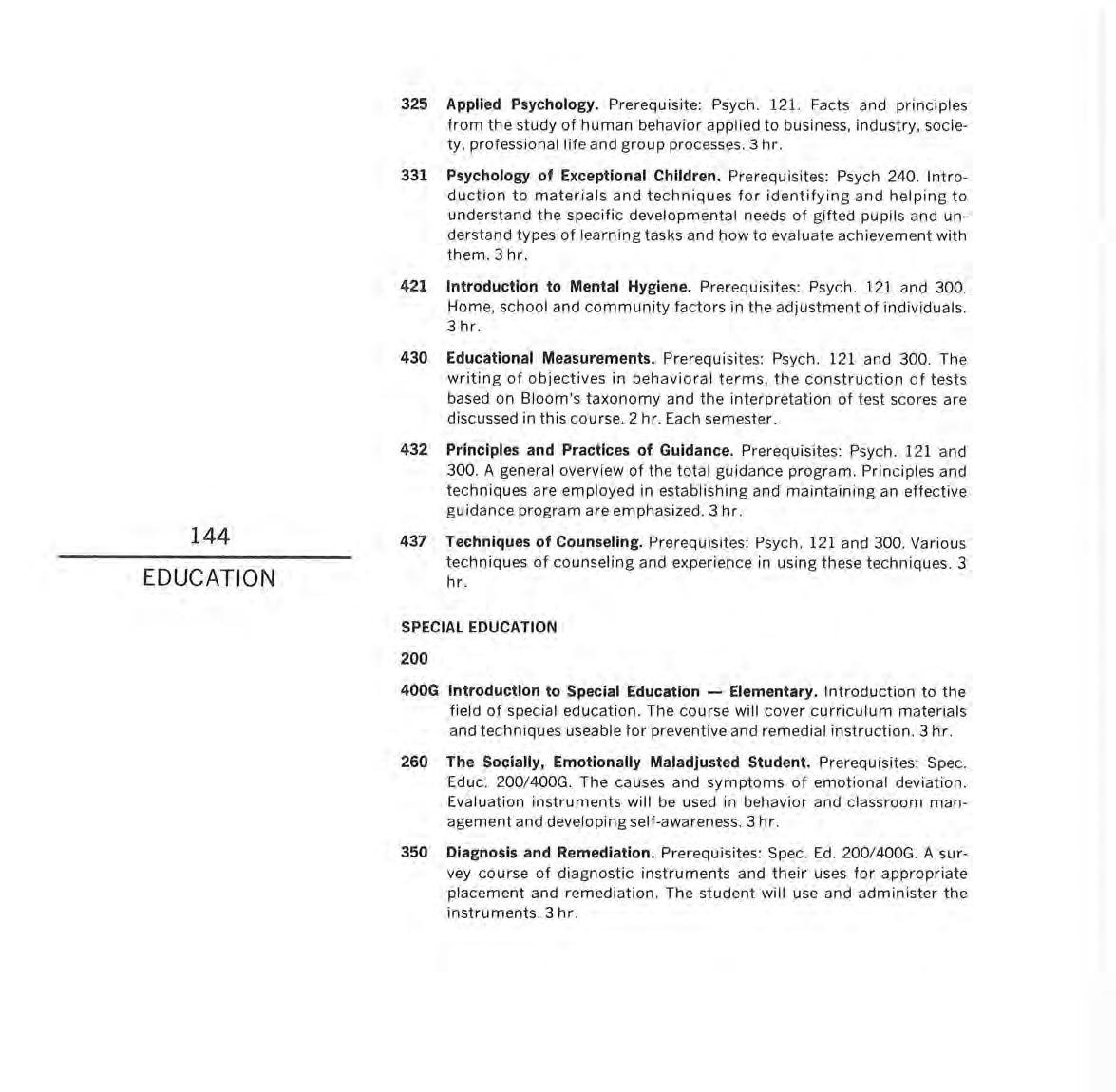
400G Introduction to Special Education - Elementary. Introduction to the field of special education. The course will cover curriculum materials and techniques useable for preventive and remedial instruction. 3 hr.
260 The Socially, Emotionally Maladjusted Student. Prerequisites: Spec. Educ. 200/400G. The causes and symptoms of emotional deviation. Evaluation instruments will be used in behavior and classroom management and developing self-awareness. 3 hr.
350 Diagnosis and Remediation. Prerequisites: Spec. Ed . 200/400G. A survey course of diagnostic instruments and their uses for appropriate placement and remediation. The student will use and administer the instruments 3 hr
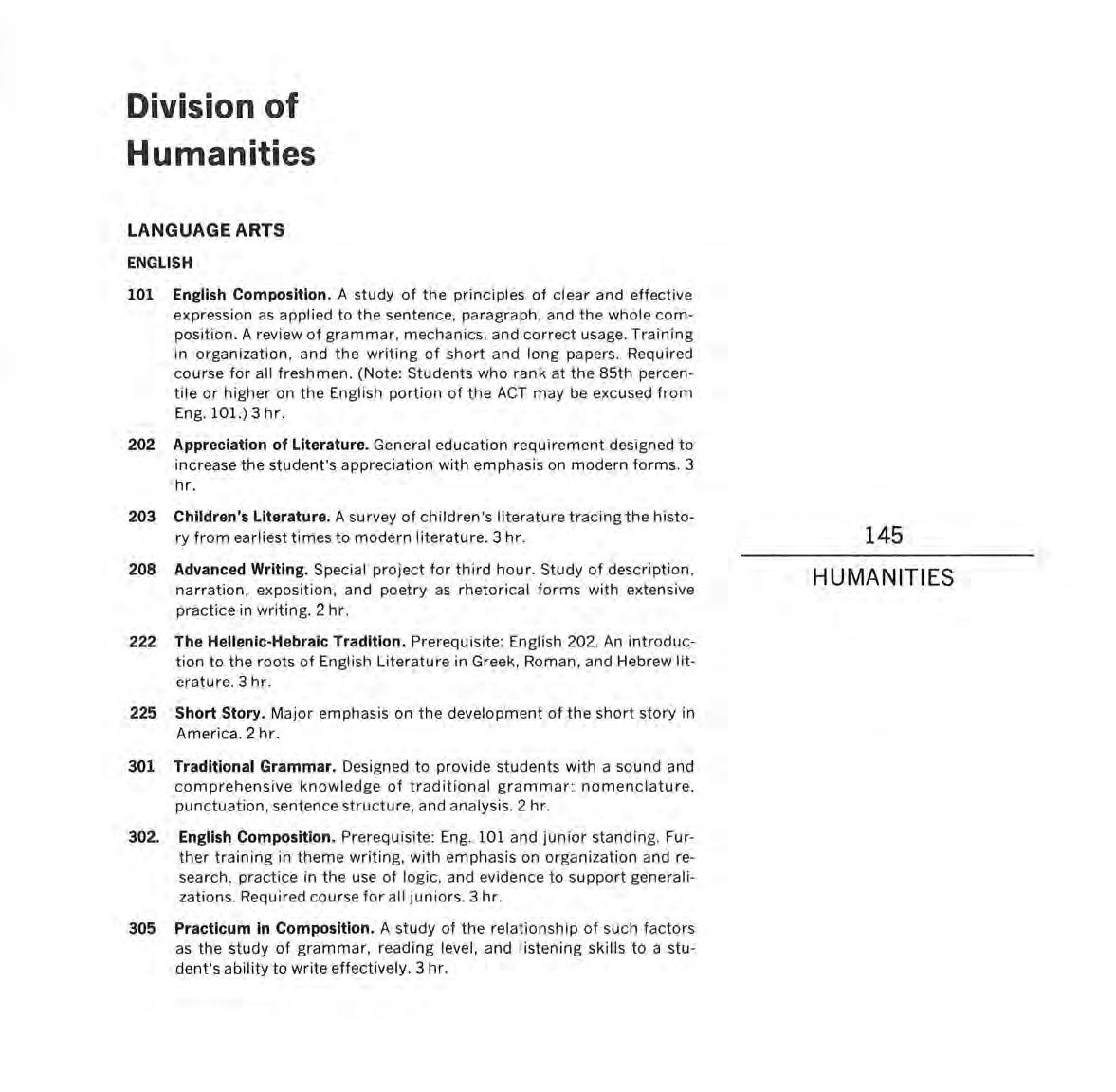
ENGLISH
101 English Composition. A st udy of the principles of clear and effective expression as app lied to the sentence, paragraph, and the whole composition. A review of grammar , mechanics, and correct u sage. Training in organization , and the writing of short a nd long papers. Requ ired co urse for all freshmen. (Note: Students who rank at the 85th percentile or higher on the English portion of the ACT may be excused from Eng. 101.) 3 hr.
202 Appreciation of Literature. General education requirement designed to increase the student's appreciation with emphasis on modern forms 3 hr.
203 Children's Literature. A survey of children's literature tracing the history from earliest times to modern literature 3 hr
208 Advanced Writing. Special project for third hour . Study of description , narration, exposition, and poetry as rhetorical forms with extensive practice in writing. 2 hr.
222 The Hellenic-Hebraic Tradition. Prerequisite: English 202 . An introdu ction to the roots of English Liter ature in Greek, Roman, and Hebrew literature. 3 hr.
225 Short Story. Major emphasis on the development of the short story in America 2 hr.
301 Traditional Grammar. Designed to provide students with a sound and comprehensive knowledge of traditional grammar: nomenclature , punctuation, sentence structure, and ana lysis 2 hr.
302. English Composition. Prerequisite: Eng . 101 and junior stand in g. Further training in theme writing, with emphasis on organization and research , practice in the use of lo gic, and ev id ence to support generalizations. Required course for a ll juniors. 3 hr.
305 Practicum in Composition. A study of the relationship of such factors as the study of grammar, reading level , and listening skills to a student's ability to write effect ively 3 hr
306 Nebraska Literature. Prerequisite: consent of the department. An introduction to the works of Nebraska writers and lit erature about Nebraska. 2 hr.
317 Chaucer. Th e fourteenth century as reveal ed by Chaucer and his contemporaries . 2 hr.
318 Neo-Classical Writers. The philosophy and esthetics of the eighteenth century as reflected in the major writers. 3 hr.
321 Romantic Period. Characteristics of Romantic Period writers , as reflected in Pre-Romantics , such as Blake and Burns. Ch i ef emphasis is on the major Romantic poets , with some attention to the nov el a nd the Ballard Revival. 3 hr.
322 Continental World Literature. Emphasis on a few major pieces of continental literature (chiefly novel) from the Renaissance to the present. A study of the writer as thinker and the l i terature as a mirror of th e times. Dostoevsky, To l stoy, Flaubert, Vo l taire, Mann , and Cervantes are among the authors stud i ed. 3 hr.
323 Victorian Period. Nineteenth cent ury England as seen by her major poets and novelists; some attention given to prose writers. 3 hr .
324 American Literature I. A historical su rve y of s ignificant American writing from the Colon i al Period to 1865. Major writers receive chief emphasis . 3 hr.
325 American Literature II. A cont inu at ion of English 324 from 1865 to the present. 3 hr.
328 Modern Poetry. A st udy of British and American poetry of this centu ry and its relevance to contemporary lit erature and lif e. 2 hr.
405 Teaching English and Speech. This course is a study of the aims, objectives , and scope of English and speech in the c urriculum. Resources such as textbooks, film lists, spec ial equipment, records, c h arts, and tests are examined and evaluated Recent teaching techniques are explored . 2 hr.
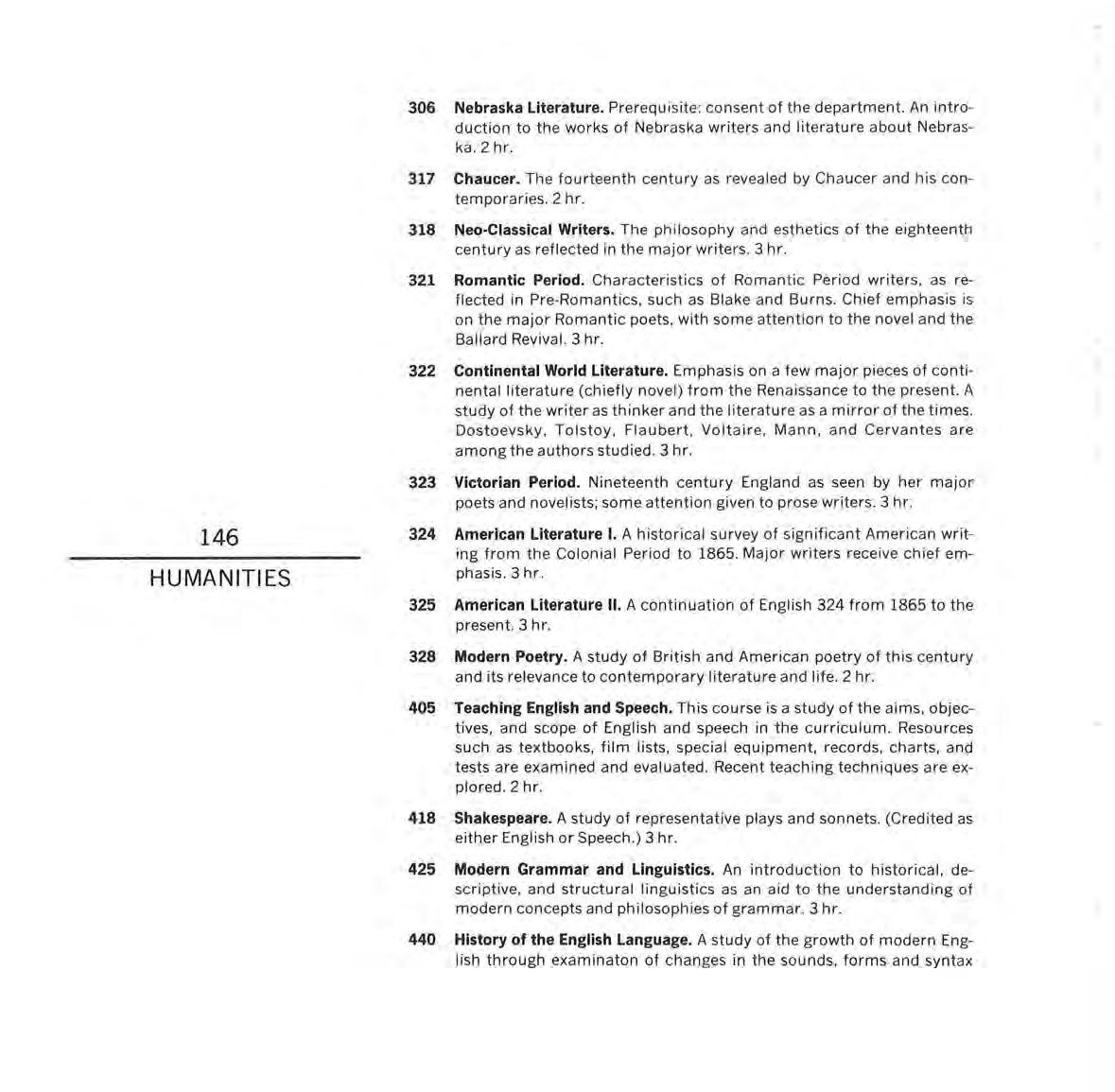
418 Shakespeare. A study of repr esentati v e plays and sonnets (Credited as eit her English or Speech.) 3 hr.
425 Modern Grammar and Linguistics. An introduction to hi storica l , descriptive, and structural linguistics as an aid to the und erstand ing of modern concepts and philosophies of gram m ar 3 hr.
440 History of the English Language. A study of the growth of modern English through exam inaton of c han ges in the sounds, form s and syntax
that have occurred in the language and the development of vocabulary. 2 hr.
441 Pre-Shakespearean Drama. The development of drama and theatre through classica l and native channels to their culmination in Elizabethan drama (Credited as either English or Speech.) 3 hr.
442 Post-Shakespearean Drama. Focus is on the major drama tists since Shakespeare. (Credited as either English or Speech.) 3 hr.
450 Directed Studies in English. Open to juniors and seniors with an over-all G.P.A of 7 in the field of English Must be in excess of the minimum (36) hours required for field of specialization. Designed to enab le gifted students to investigate independently an area of interest particularly when the area is not covered by one of the formal courses.
226 Photography I. Two hours classwork and two hours of l aboratory per week. Theory and practice in the basic fundamentals of photography including composition, exposure, lighting, developing, contact printing, and enlarging. The third hour credit gained by additional assignments. Each student must have a camera. 2-3 hr
234 Beginning Journalism. Prerequisite: ability to type. The fundamental principles of gathering and writing news; practice in reporting campus news; work on The Pedagogian, College newspaper 3 hr.
235 Newspaper Editing. Prerequisite: Journ. 234. Credit not to exceed a total of four hours. An intensive course in journalistic desk work that inc lu des copy preparation , headline writing, page l ayout; extensive work on The Pedagogian desk. 2 hr.
237 Graphic Arts. Six hours labor atory. Study and practice in basic processes of printing and a lli ed industries, including work in letterpress , si lkscreen printing, bookbinding, rubberstamp making , and gold l eaf stamping. 3 hr.
325 Photography II. Lens, testing, infra-red photography, high speed photography, portraiture , use of negative and positive co lor films , color printing, and oi l coloring of prints. 2-3 hours.
329 Advertising. A study of advertisements and media from three viewpoints: management- marketing, co mmunications-creativity, and consumer-citizen. 2 hr.
400 Internship in Journalism. On the job practice with one of the area newspaper offices. Students will have work experience with the various phases of journalistic work. Written and oral reports of these experi-
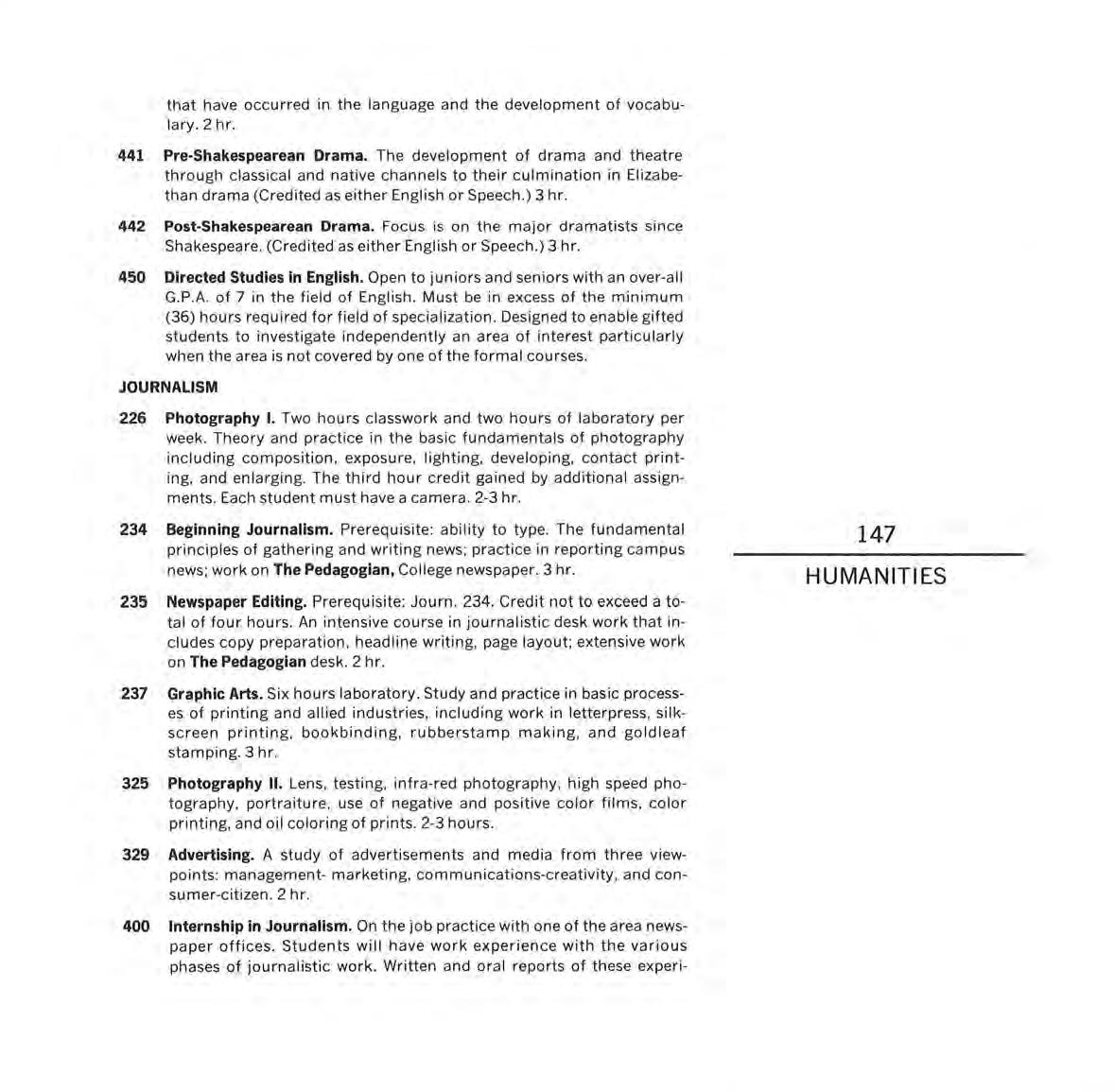
ences are to be presented by the student to the Beginning and Advanced Journalism classes. (Credit not to exceed two hours in any one semester ) 2-4 hr.
401 Journalism Practicum. Credit not to ex ceed one credit hour each semester. Prerequisites : student should have completed the required c ourses for a Journalism major (Eng. 234, 235 , 435) before taking Journalism Pra c ticum. Practicum students will be involv ed in the production of the college newspaper and yearbook , a nd will assist incoming journalism majors adjust to their journalistic responsibilities. 1-6 hr.
425 Advanced News Photography. Prerequis ites: Journ. 234, Journ. 226, Journ 325. Advanced principles of news photography. Course work includes taking , developing, printing , and preparing photographs for publication. Emphasis is on recognition of th e dramati c photograph and its preparation for publication 2 hr
435 Advanced Journalism. Prerequisite : Jo urn . 234. Advanced principles of reporting , with emphasis on feature writing and depth r eporting ; continued work on College newspaper, The Pedagogian. 3 hr.
100 Introduction to Media and Library. This course shall furnish an introduction to the utilization of the library equipment and services. 1 hr.
216 Selection of Library Materials. Survey of aids , principles , and standards in sele c tion of books for a school libr a ry , culminating in a basi c c ollection either elementary or secondary. 3 hr.
300 Reference. Principles and problems in organizing reference sources and materials , with special emphasis on the nature , preservation , availability, and reference use of primary and secondary sources. 3 hr.
315 Selection and Preparation of Non - Book Materials. The course will c over the selection , preparation , evalu ation , organization, and utilization of non-print materials. 3 hr.
317 Library Reading Guidance. Principles and practices in reading characteristics of appropriate books for children of average or exceptional ability , individual and group guidance, development of reading interests. 3 hr .

100 Introduction to Mass Communications. The nature, function, and responsibilities of communications agen c ies, including newspapers , radio
and television , film, and advert ising; the services that the mass medi a perform for society and the role of the media in censorship, persu asion, and propaganda. 2 hr .
261 Elements of Television. Instruction in the basic functions of equipment in the te le vision studio. 3 hr.
275 Film Criticism. Prerequi s ite: Eng. 202 or Permis s ion of In structor. An examination of the several points of view from which film may be criticized with emphasis on authorship and techniques of the filmmaker. 3 hr.
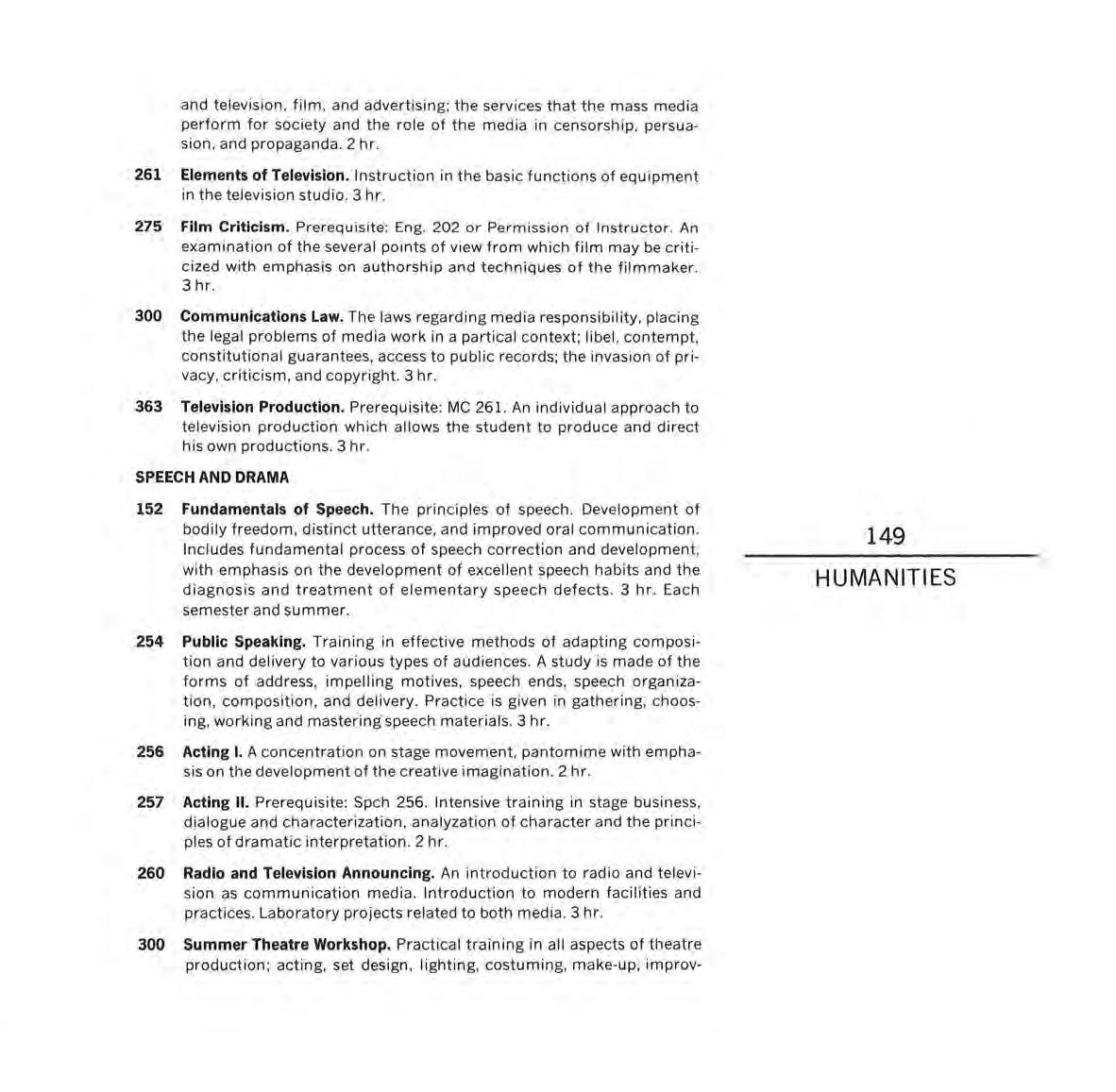
300 Communications Law. The laws regarding media responsibility, placing the legal problems of media work in a partical context; libel , contempt, co nstitutional guarantees, access to public records ; the invasion of privacy, criticism, and copyright. 3 hr
363 Television Production. Prerequisite: MC 261. An individual approach to television production which allows the student to produce and dire c t his own productions. 3 hr.
152 Fundamentals of Speech. The principles of speech. Development of bod il y freedom , distinct utterance , and imp roved oral communication. Includes fundamental process of speech correction and development, with emphasis on the development of exce ll ent speech habits and the diagnosis and treatment of elementary speech defects. 3 hr. Each semester and summer
254 Public Speaking . Training in effective methods of adapting composition and delivery to various types of audiences. A study is made of the forms of address, impelling motives, speech ends, speech organ ization, composition, and delivery. Pr ac tice is given in gathering, choosing, working and mastering'speech materials. 3 hr.
256 Acting I. A concentration on stage movement. pantomime wit h emphasis on the development of the creative imagination . 2 hr.
257 Acting II. Prerequisite: Speh 256. Intensive training in stage business , dia l ogue and c h aracterization, analyzation of character and the principles of dram atic in terpretation. 2 hr
260 Radio and Television Announcing. An introduction to radio and television as communication media. Introduction to modern facilities and practices. Laboratory projects related to both media 3 hr.
300 Summer Theatre Workshop. Practical training in a ll aspects of theatre production; acting, set design , li ghting, costuming, make-up , improv-
isation, music , and dancing Public performance every weekend Offered both sessions, no prerequisites , may be taken either or both sessions for a total of six hours cred it. Three hours credit per session.
325 History of Communication. Prerequisite: Speh 152. An historical ana lys is of the interrel at ionships between the dominant trends , theories, and appl ications of rhetoric , communicat ion , and democracy. 3 hr
326 Communication in the Technological Age. Prerequisite: Speh 325. An ana lysis of contemporary philosophical and theoretical concepts of commu nication and their relationship to the eve ryd ay practices of the mass media. 3 hr.
350 Contest Speech. 1 hr. Course designed to prepare students to coach speech contestants, judge contestants, and manage contests.
353 Speech Correction and Development. Prerequi s ites: Spec Educ. 200 A su rvey course emp h asizing the unique educational problems and techniques rel at in g to c hildren with sight , sound and speech deficiencies. The focus is on identification and supporting remedia ti on. 3 hrs.
355 Stage Craft. A course for the director of dramatic s in sc h oo l s and communit i es. It answers the fundament a l questions pertaining to play selection , casti n g, directing , steps in rehearsal, scenery, li ghting, costume , make-up , and business organization. 3 hr.
357 Interpretative Reading. Designed to emphasize meaningful oral reading of worthwhile literature in gro up and solo situations. Th e course will include c lo se, crit ic a l analysis of the practice se le ct i ons , as well as st udy and practice of the basic techniques involved in delivery. 2 hr
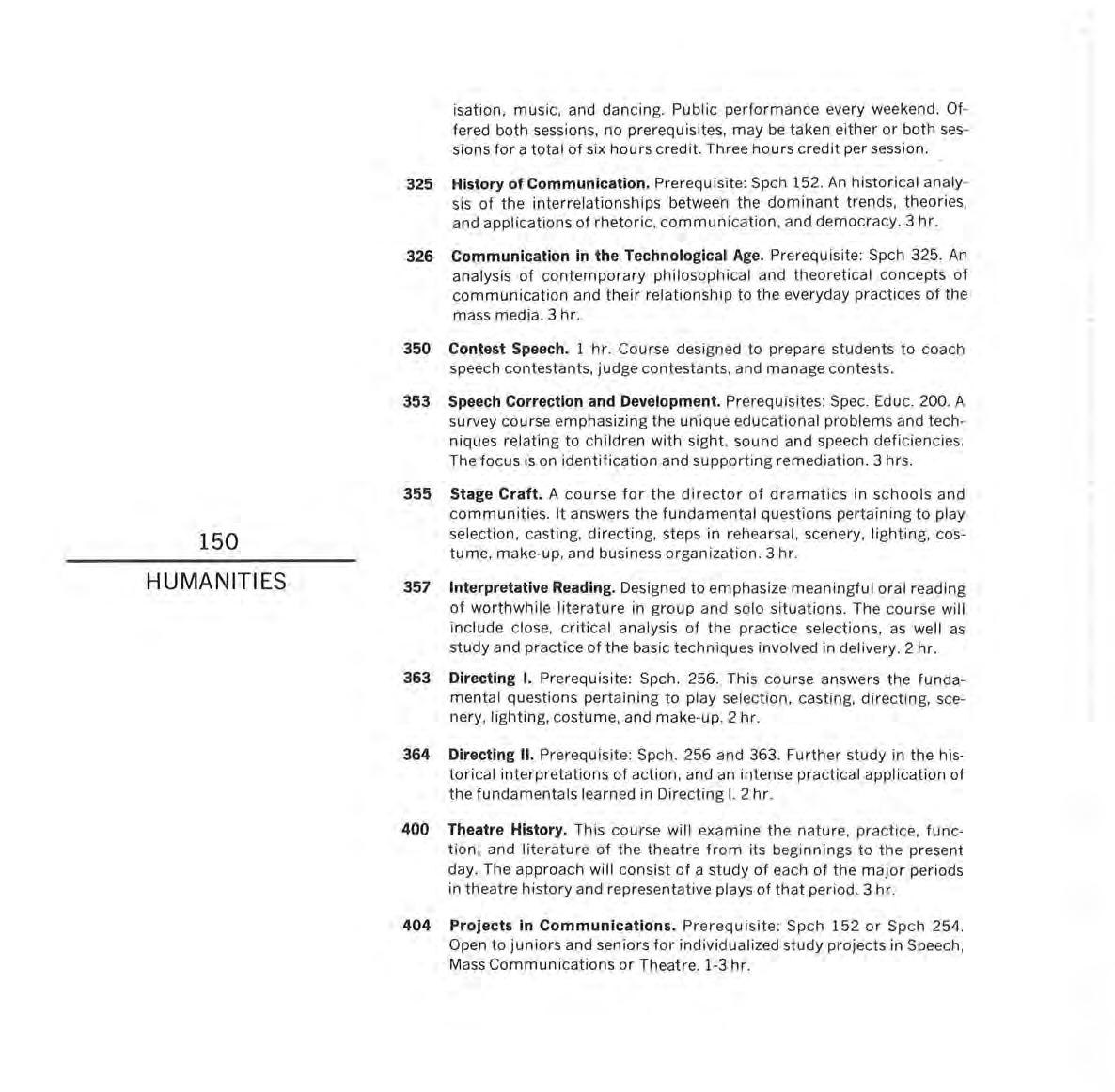
363 Directing I. Prerequisite: Speh. 256 . This course answers the fundamental questions pertainin g to play selection, casting, directing, scenery, li ght in g , costume, and make-up. 2 hr.
364 Directing II. Prerequisite: Speh. 256 and 363 Further study in the historical interpretations of action, and an intense practical application of the fundamentals learned in Directing I. 2 hr
400 Theatre History. This course will examine the nature , practice , function, and literature of the theatre from its beginnings to the present day The approach will consist of a study of each of the major periods in theatre history and repres entative plays of that period. 3 hr.
404 Projects in Communications. Prerequisite: Speh 152 or Speh 254. Open to juniors and seniors for individualized study projects in Speech, Mass Communications or Theatre . 1-3 hr.
220 Principles of Economics. Elementary concepts with emphasis on money, banking, savings, insurance, production , distribution, taxation, value, price, capita l , and l abor. 3 hr .
221 Principles of Economics. Prerequisite: Economics 220. Consideration of wages , int erest. rent and profits; personal distribution of income; consumption; monopolies; agriculture; government taxation and expenditures; internationa l trade; and comparative economic systems. 3 hr.
222 Contemporary Economic Problems . Prerequisites: Economi cs 220 and 221. Analysis of major econom i c prob l ems relating to wage and income distribution, money and credit. business cyc l es, dome stic and international trade and tariffs. 3 hr.
333 Economic History of United States. U.S. economic history from colonial times to the present. 3 hr.
350 Public Finance. Prerequisites: Econ. 220 and 221. A critica l ana ly s i s of the capita li stic economic systems followed by a survey and critica l analysis of socia li sm and communism. 3 hr.
375 Labor and Industrial Relations. Econ 220 and 221. Labor, management and government as they are interrelated involving collective bargaining, l abor laws, and wage theories. 3 hr.
380 Environmental Economics. Prerequisites: Econ. 220-221. An economic ana lysis of the environmental crisis and possib l e solutions. The ro le of the market system a nd its failure to compensate for the suffering generated by a highly advanced society. 3 hr.
470G Special Problems in Economics. Prerequisites: Econ . 220 and 221. Designed to provide an opportunity for a student to do advanced independent study in economics based upon his individual needs and interests. 1-4 hr.
101 Principles of Physical Geography. An introd uctory study of the relationships of man and environment. with emphasis placed upon climatic regions of the world. Two hours lecture, two-hour laboratory. 3 hr.
103 Cultural Geography. The study of the cu ltur al elements of the landscape, with emphasis on the origin of man, migration, settlement. and the economics of man. 3 hr.

206 Geography of Nebraska and The Great Plains. Prerequisite: Geog . 101. A correlation of the physical and historical base of the state's present agriculture, manufacturing, and service industries. 3 hr.
208 World Regional Geography. Prerequisites: Geog. 101 a nd 103 A study of the major regions of the world, with particular attention to how man has utilized the earth's resources from area to area. This co ur se is particularly designed for the teacher who cannot enroll in a complete geography program. Lecture and l ab. 3 hr.
300 Geography of Asia. Prerequisite: Geog. 101. A regional study of the major countries of Asia , with emphasis upon relief, climate, resources , government, and industrial development. 3 hr.
305 Economic Geography. Prerequisites: Geo g. 101 and 103 . An analysis of wor ld land resources, agricu ltur a l products, forest and marine resources, basic mining industri es, manufacturing , trade patterns , an d transportation routes. 3 hr.
310 Geography of Africa. Prerequisite: Geog. 101. A geographical a n a lysis of the continent. Emphasis is placed upon recent spirit of nationalism and the economic and physical base of selected nations. 3 hr.
311 Urban Geography. Study of the origin, distribution, internal structure and functions of urban deve l opments, with emphasis on location features of econom ics and c ultur al phenomena . 3 hr.
312 Geography of Anglo-America . Prerequisit e: Geog. 101 or senior standing . A study of the United States and Canada by natural regions. In each case an evaluation of the physical and economic base will be made in the light of present economic development. 3 hr.
313 Geography of South America. Prerequisite: Geog. 101. The geographic regions of South America analyzed in their natural, political and economic settings . The economic relations between South America and the Unit ed States. 3 hr
326 Conservation of Natural Resources. An evaluation of soil, water, mineral, forestry , fish, air, and recreation resources in order to develop an appreciation of their import ance and the ser iousne ss of the problem. 3 hr.
403G Special Problems and Techniques in Geography. Designed to provide an opportunity for students to experiment with and learn new techniques in geography instruction based upon the individu al needs and interest of each student. For teacher edu ca tion candidates. 2 hr
404G History and Philosophy of Geography. Prerequisites: Geog 101 and 103. A study of the basic philosophies of geography includin g the
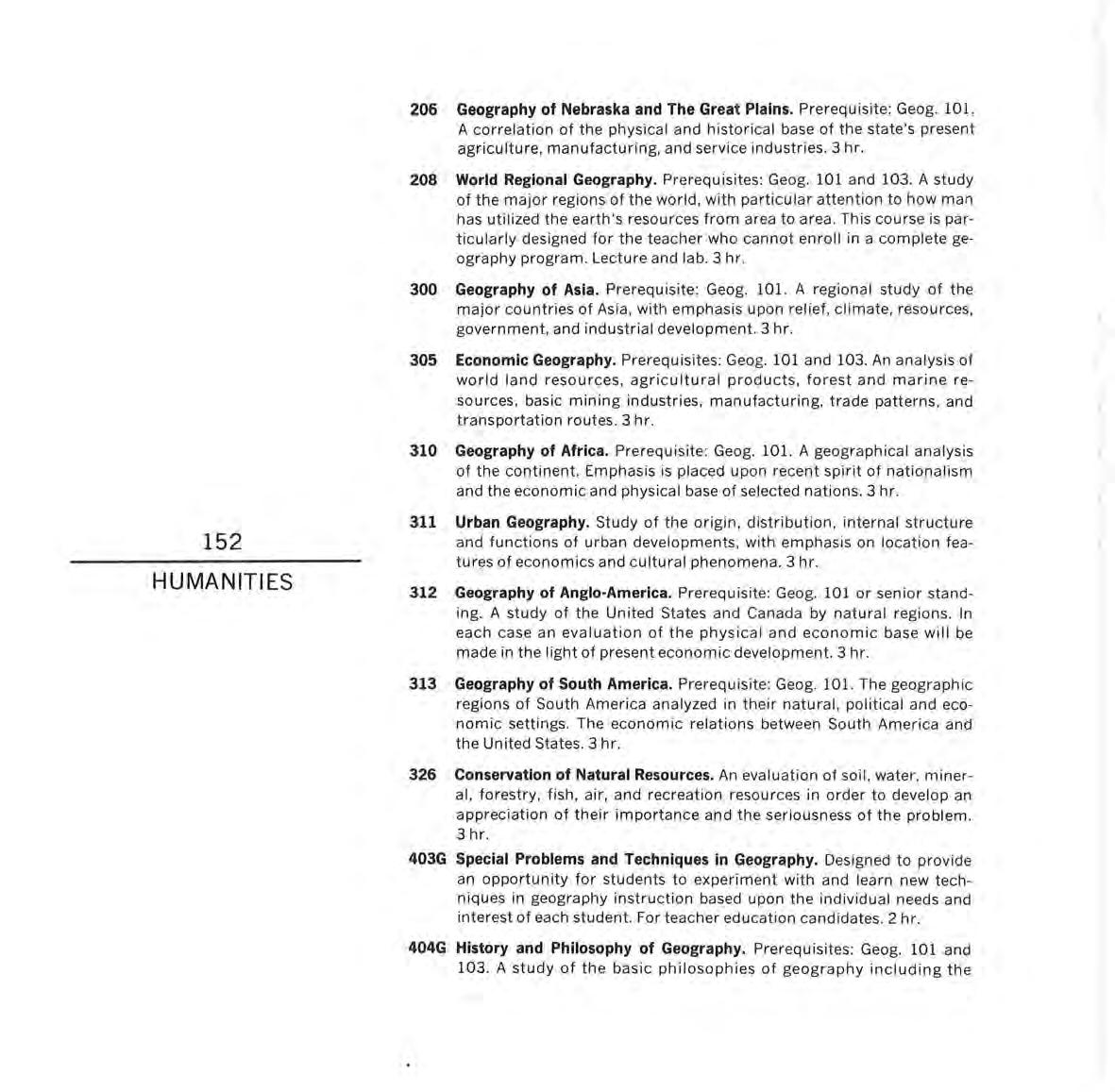
study of the history of geographic thought from ancient to modern times. 2 hr
411G Field Geography. Prerequisite: Geog. 101. An intensive course of training in the geographic field methods and in the direct app l ication of geographic principles to important problems in se lected districts. Two hours lecture, laboratory by arrangement. 2 hr.
470 · Independent Study-in Geography. Prerequisite: junior or senior standing , with adeq u ate preparation in the field and the instructor's permission. Individual instruction in the techniques of geographic research , with either extensive readings and reports or a term paper required. Highly recommended for students contemplating graduate work in geography. 1 to 3 hr.
494 Current Topics in Geography. A geographic study of current topics genera lly involving such subjects as pollution , space geography, agricultural geography, geography of transportation, geography of primary production, and rocks and minerals. 3 hr.
495 Regional Topics in Geography. A study of world areas by physical division, with emphasis on the interrelationship between cu ltur a l and physical features of each region Course topics se l ected from the following regions: Middle East, Southeast Asia , U .S. S. R. , Asia, Middle America, South America , Australia , and the Islands, Eastern Europe and Western Europe. 3 hr.
499G Political Geography. Prerequisites : Geog. 101 and 102. Geography as a factor in the differentiation of political phenomena in various parts of the wor ld The modern state in re l ation to its environment and the interrelationship of nations as a result of their geographica l strengths and weaknesses. 3 hr .
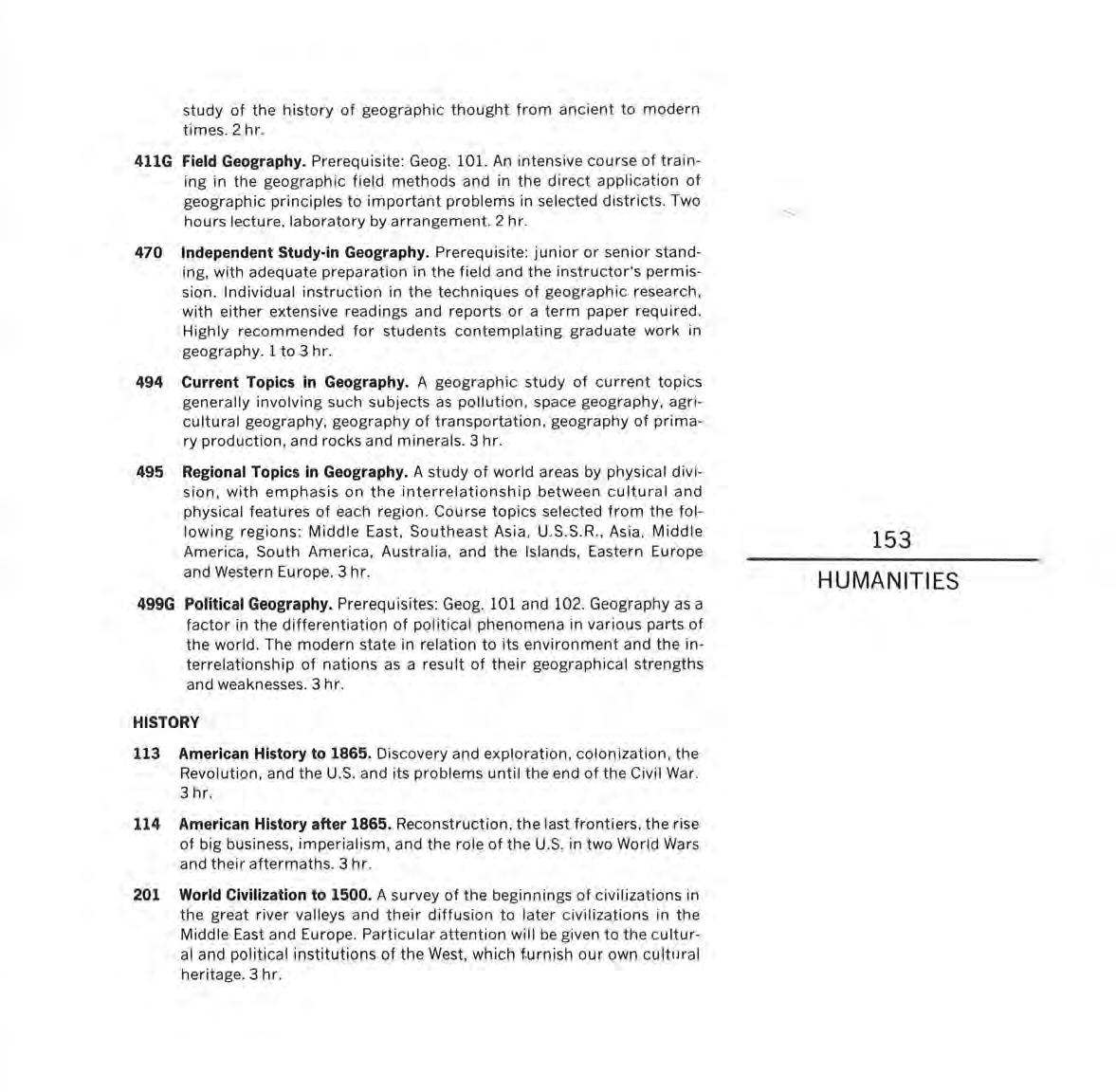
113 American History to 1865. Discovery and exploration , colonizat i on, the Revolution, and the U.S. and its problems until the end of the Civil War. 3 hr.
114 American History after 1865. Reconstruction , the last frontiers, the rise of big business, imperialism, and the ro l e of the U.S. in two World Wars and their aftermaths. 3 hr .
201 World Civilization to 1500. A survey of the beginnings of civilizations in the great river valleys and their diffusion to later c ivilizations in the Middle East and Europe. Particular attention will be given to the cultura l and political institutions of the West, which f.urnish our own cu ltlJr a l heritage. 3 hr.
202 World Civilization afterl500. The rise and dec l ine of European predominance will be analyzed , with emphasis upon the major social, politica l, and economic ideologies and institutions that evolved . 3 hr.
301 Colonial America. Colonial rivalry between the Spanish , French . English, and Dutch in North America ; the Revolution, and U.S history to 1823 3 hr.
302 U.S. in the Nineteenth Century. The U.S. from 1823 through Manifest Destiny and the Civil War down to the War with Spain 3 hr.
303 U.S. in the Twentieth Century. The U.S. in modern times, with emphasis upon the ch a nging social and economic theories of the period, and the internal forces that influenced its development 3 hr.
329 History of Nebraska. A survey of the political, economic , social, and constitutional development of Nebraska from prehistoric times to the present. 2-3 hr.
333 Latin America. The evolution of the states of modern Latin America following their independence, their pol it ical and economic development and their international relations. 3 hr.
343 English History from 1688. A survey of the social, po1itical, and economic development of England since the Gl orious Revo lu tion Covers the social and religious impact on the development of the English Parli amentary system, the effects of the Indu strial Revolution upon the British Empire, and the prospects of the modern welfare state on contemporary England. 2 hr.
344 Social and Cultural Europe 1500-1815. A historical description and analysis of European society and culture from the Renaissance to the Congress of Vienna. Particul a r attention will be given to correlate the fine arts and literature to the rise of national states , absolutism , and religious deve l opments. 3 hr.
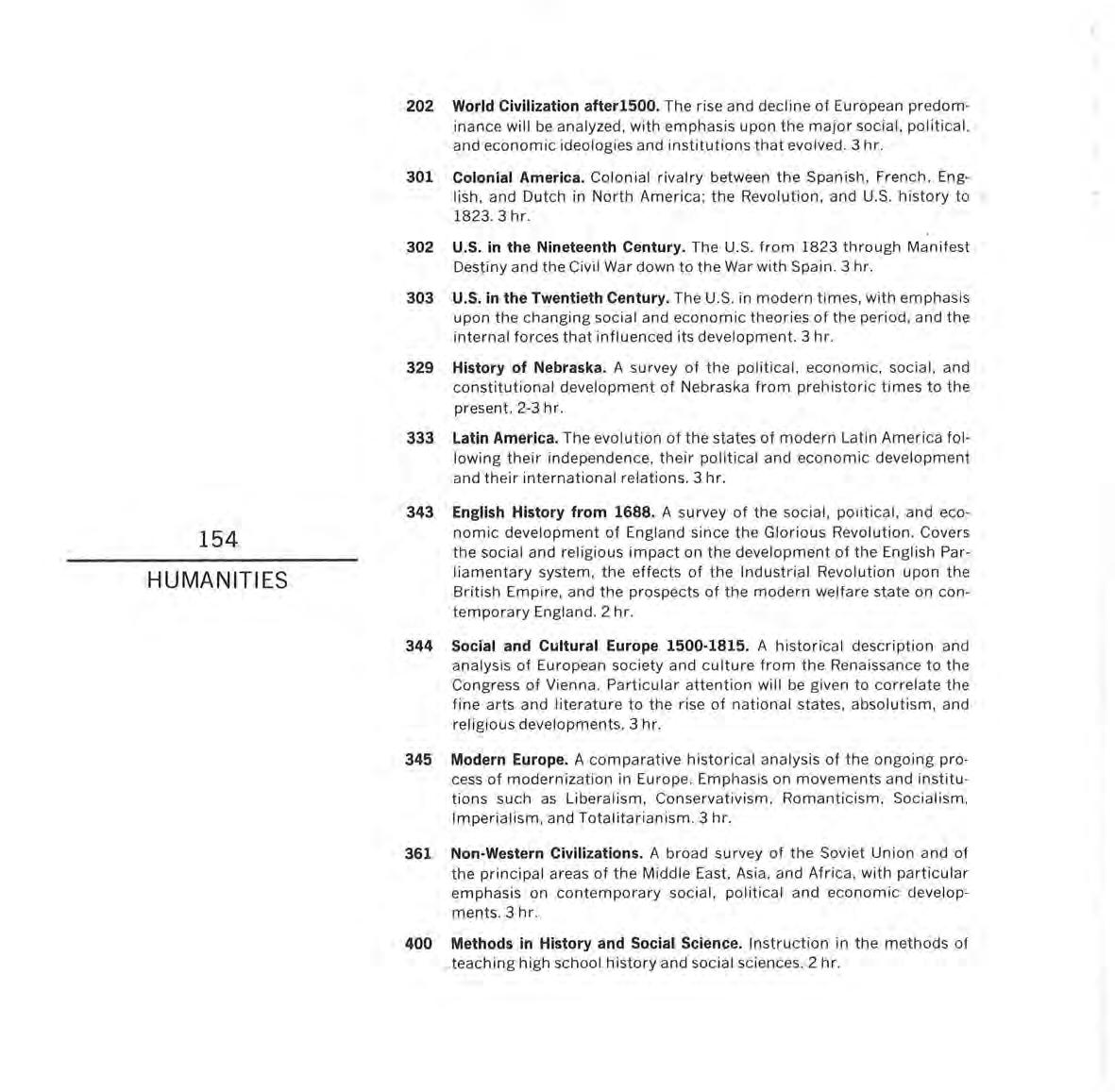
345 Modern Europe. A comparative historical analysis of the ongoing process of modernization in Europe. Emphasis on movements and institutions such as Liberalism, Conservativism , Romanticism, Socialism, Imperialism , and Totalitarianism. 3 hr.
361 Non-Western Civilizations. A broad survey of the Soviet Union and of the principal areas of the Middle East , Asia , and Africa, with particular emphasis on contemporary socia l , political and economic developments. 3 hr .
400 Methods in History and Social Science. In struction in the methods of teaching high school history and social sciences. 2 hr.
411G American Frontier. The importance of the frontier in American history from colonia l times to the 20th Century. 3 hr.
426G American Constitutional Law . Prerequisite: Pol. Sci 201 or 202 or instructor's permission. A study of the historical and political context of the cases. Traces constitutiona l doctrine through major decisions. Emphasis on constitutional growth that relates closely to the fundamental structure of the American government and socia l order. 3 hr.
455 Twentieth Century Russia. An analysis of the social and cultura l , political, and economic evolution of Russia under the Tsars through the Bolshevik Revolution, and the formation of the Soviet Union to the present. 3 hr.
467 The Far East. Concerned with political traditions and historical evolutions of the member states of this area, the impact of the West and its profound influences on politica l order, and the issues that come to the fore in today's revolutionary and fluid situation.3 hr
470 Independent Study in History. Prerequisite: junior or senior standing, with adequate preparation in the field and in structor's permission. Individual instruction in the techniques of historical research, with either extensive readings and reports or a term paper required. Recommended for students contemplating graduate work in history. 1 to 3 hr

201 Introduction to Philosophy. An introduction to philosophy through selected writing from some of the outstanding philosophers , classica l and current. Lectures and class discussions on such topics as ethics, philosophy of history , philosophy of religion, and metaphysics. 3 hr.
300 Social Ethics. A study of morals and principles for judging human action and responsibility. 3 hr.
301 Philosophy and History of World Religions. Traces the historical origins and philosophies of the world's major religious and their developments. 3 hr.
201 American National Government. The government of the United States, its origins , philosophy, aims and powers. 3 hr.
202 American State and Local Government. The nature and extent of government of the state and local l evels and its contributions to the political life of the nation. 3 hr.
301 Comparative Government. A comparison and analysis of political systems and institutions of the major countries. 3 hr.
426G American Constitutional Law. Prerequisite: Pol. Sci. 201 or 202 or instructor ' s permission. A study of the historical and political context of the cases. Trace constitutional doctrine through major decisions. Emphasis on constitutional growth that relate c l osely to the fundamental structure of the American government and socia l order 3 hr.
467 The Far East. Concerned with political traditions and historical evolutions of the member states of this area, the impact of the West and its profound influences on political order, and the issues that come to the fore in today ' s revolutionary and fluid situation. 3 hr.
470 Research Topics in Political Science. Prerequisites: junior or senior standing, with adequate preparation in political science and history, and instructor's permission. Individual research into a chosen aspect of government or political theory, with either extensive readings and reports or a term paper required. 1 to 3 hr On demand.
280 Introduction to Social Work. An introduction to the profession of socia l work with emphasis on the history, philosophy, methods, and processes of social work. 3 hr.
310 Social Services. Prerequisite: Soc Wk 280. The study of the public and 156 private social services agencies; emphasis on specialized social welfare agencies and services. 3 hr.
375 Casework. Prerequisite: Soc Wk 280. The art, theory, and practice of the dynamics of casework with emphasis on current socia l work techniques used in meeting group and individual needs. 2 hr.

390 Group Work. Prerequisite: Soc Wk 280. The theory and practice of the dynamics of group work , with emphasis on techniques used in meeting group and individual needs. 2 hr.
430 Field Work Practicum. Prerequisite: 10 hours Soc Wk and permission. Supervised experience in socia l work . 3 hr.
100 Social Science. An integrated, interdisciplinary survey course in the socia l sciences designed to cover current topics from different social science perspectives. The course wi l l be team-taught by the history and social science instructors. 3 hr.
201 Principles of Sociology. Culture and its relations to specific social problems. The social institutions of American life in relation to population changes, ethnic groups and major problems of social po l icy. The social consequences of social contro l in the metropolitan world. 3 hr.
250 Community Organization. Prerequisite: Soc. 201. Major differentiating characteristics, with special emphasis on the urban community, basic patterns of social and ecological organization, and factors contributing to community integration and disorganization. 3 hr
260 Rural Sociology. Prerequisite: Soc 201. An examination of rural societies, rural background and characteristics,; an analysis of rural gro ups, institutions and changes and problems of rural-urban relations. 3 hr.
300 Contemporary Social Problems. A seminar in which a student selects a specific contemporary social issue for research and analysis. Research reports are presented to and discussed by the members of the seminar. 3 hr.
305 Social Psychology. Prerequisite: Soc. 201. Analysis of processes involved in the interaction between person and group, including the dynamics of group influence on personal behavior and the impact of personal variables on the functioning of primary and secondary groups in contemporary society. 3 hr.
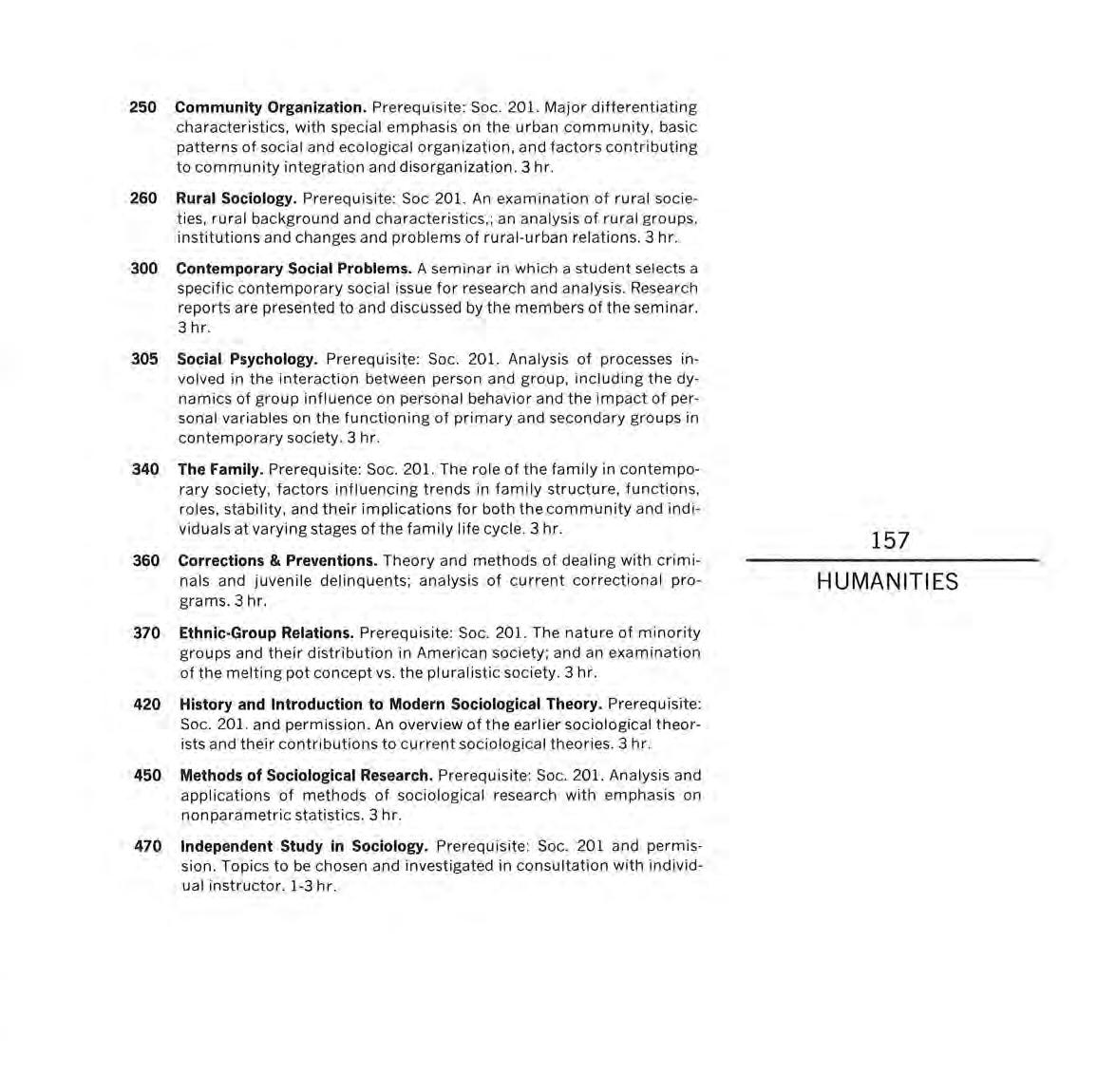
340 The Family. Prerequisite: Soc. 201. The role of the family in contemporary society , factors influencing trends in family structure, functions, roles , stability, and their implications for both the community and individuals at varying stages of the family life cycle. 3 hr.
360 Corrections & Preventions. Theory and methods of dealing with criminals and juvenile delinquents; analysis of current correctional prog rams 3 hr.
370 Ethnic-Group Relations. Prerequisite: Soc. 201. The nature of minority groups and their distribution in American society; and an examination of the melting pot concept vs. the pluralistic society. 3 hr.
420 History and Introduction to Modern Sociological Theory. Prerequisite : Soc. 201. and permission. An overview of the earlier sociological theorists and their contributions to current sociological theories. 3 hr.
450 Methods of Sociological Research. Prerequisite: Soc. 201. Analysis and applications of methods of socio logical research with emphasis on nonparametric statistics. 3 hr.
470 Independent Study in Sociology. Prerequisite: Soc. 201 and permission. Topics to be chosen and investigated in consultation with individual instructor. 1-3 hr
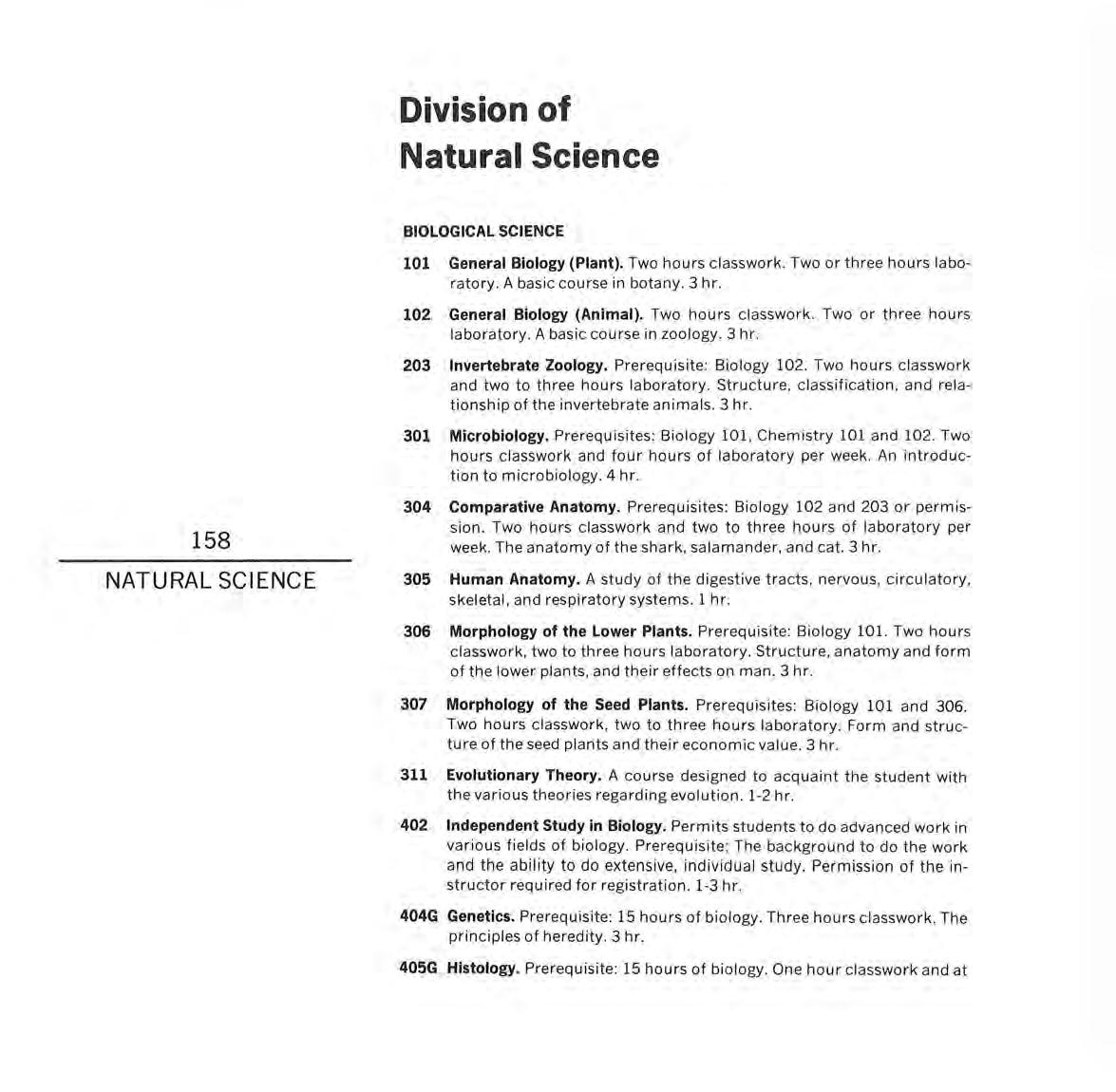
101 General Biology (Plant). Two hours classwork. Two or three hours laboratory. A basic course in botany. 3 hr.
102 General Biology (Animal). Two hours classwork . Two or three hours laboratory. A basic course in zoology. 3 hr.
203 Invertebrate Zoology. Prerequisite: Biology 102 . Two hours classwork and two to three hours laboratory. Structure, classification, and relationship of the invertebrate animals . 3 hr.
301 Microbiology. Prerequisites: Biology 101, Chemistry 101 and 102. Two hours classwork and four hours of laboratory per week. An introduction to microbiology. 4 hr.
304 Comparative Anatomy. Prerequisites: Biology 102 and 203 or permission. Two hours classwork and two to three hours of laboratory per week. The anatomy of the shark, salamander , and cat. 3 hr.
305 Human Anatomy. A study of the digestive tracts, nervous , circulatory, skeletal, and respiratory systems. 1 hr.
306 Morphology of the Lower Plants. Prerequisite : Biology 101. Two hours classwork, two to three hours laboratory. Structure, anatomy and form of the lower plants , and their effects on man. 3 hr.
307 Morphology of the Seed Plants. Prerequisites: Biology 101 and 306. Two hours classwork , two to three hours laboratory . Form and structure of the seed plants and their economic value. 3 hr.
311 Evolutionary Theory. A course designed to acquaint the student with the various theories regarding evolution. 1-2 hr.
402 Independent Study in Biology. Permits students to do advanced work in various fields of biology. Prerequisite : The -background to do the work and the ability to do extensive , individual study. Permission of the instructor required for registration . 1-3 hr.
404G Genetics. Prerequisite: 15 hours of biology. Three hours classwork. The principles of heredity. 3 hr.
405G Histology. Prerequisite: 15 hours of biology. One hour classwork and at
least four hours of laboratory per week. A detailed study of the microscopic anatomy of mammalian organs. 3 hr.
406G Embryology. Prerequisite: 15 hours of selected biology courses. Two hours classwork and three or more hours of laboratory. Embryology as exemplified by the frog, the chick, the pig, and man. 3 hr.
407 Human Physiology. Prerequisite: At least two courses in animal biology. A detailed study of functions of human organs. 3 hr.
408G Modern Biology. Three hours classwork and demonstrations Prerequisite: 15 semester hours of biology. 3 hr.
417G Ecology. Three hours classwork. A study of organisms in relation to their environments. 3 hr.
101 General Chemistry. Three hours classwork and two hours laboratory. The fundamentals of chemistry. Non-metals and their compounds. For those who have not had high school ch'emistry. 4 hr.
102 General Chemistry. Prerequisite: Chemistry 101. Three hours classwork, two hours l aboratory. Application of the fundamentals of chemistry, metals, and their compounds, and an introduction to organic and analytical chemistry. 4 hr.
205 Principles of Qualitative Analysis. Prerequisite: Chemistry 102. Two hours c l asswork, six hours laboratory Principles of qualitative analysis and their application in the l aboratory. 4 hr.
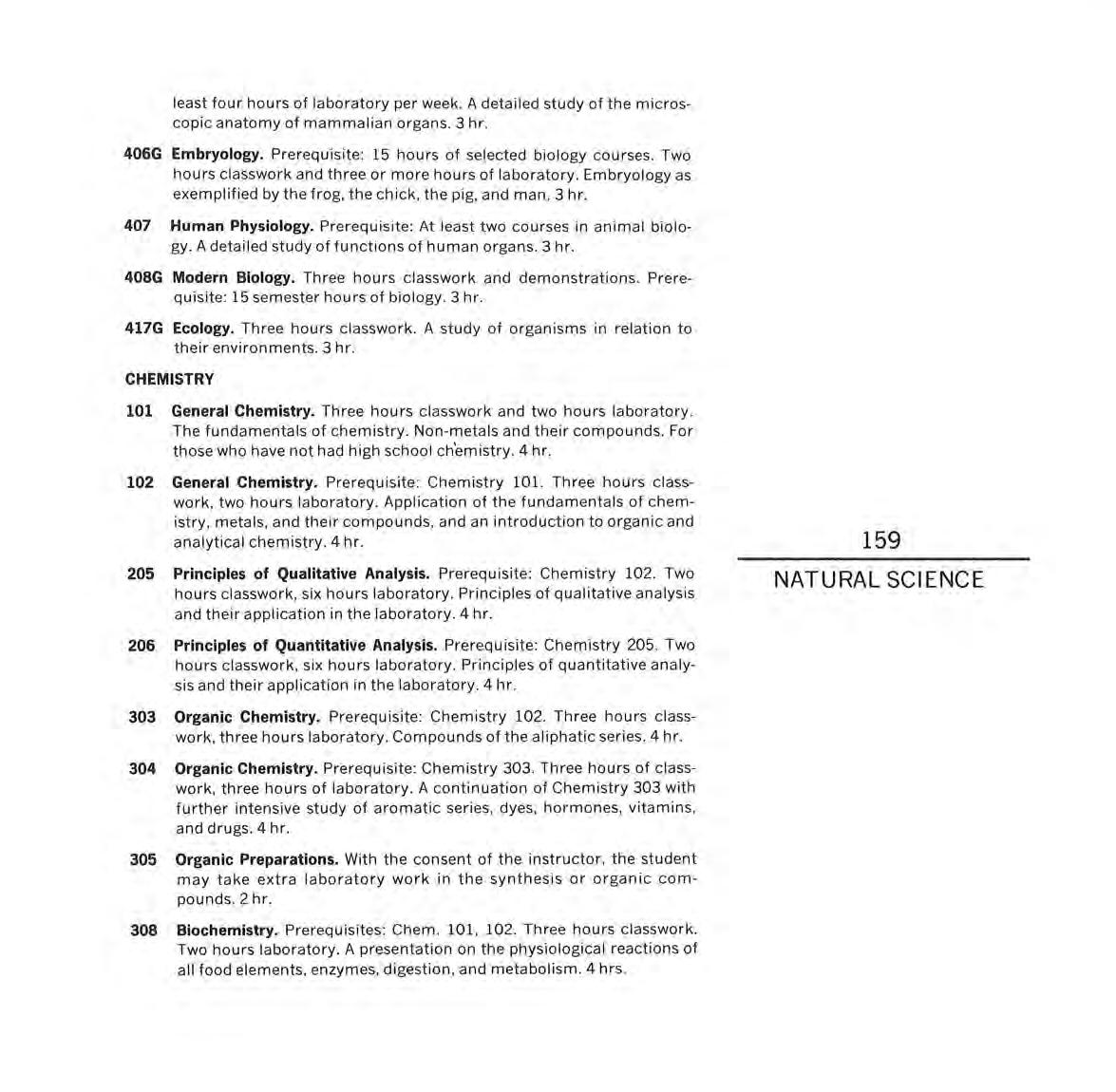
206 Principles of Quantitative Analysis. Prerequisite: Chemistry 205. Two hours classwork, six hours l aboratory. Principles of quantitative ana l ysis and their app li cation in the laboratory. 4 hr
303 Organic Chemistry. Prerequisite: Chemistry 102 Three hours classwork, three hours laboratory. Compounds of the aliphatic series. 4 hr.
304 Organic Chemistry. Prerequisite: Chemistry 303. Three hours of classwork, three hours of laboratory. A continuation of Chemistry 303 with further intensive study of aromatic series, dyes, hormones, vitamins , and drugs. 4 hr.
305 Organic Preparations. With the consent of the instructor, the student may take extra l aboratory work in the synthesis or organic compounds 2 hr.
308 Biochemistry. Prerequisites : Chem 101, 102. Three hours classwork. Two hours laboratory A presentation on the physiologica l reactions of a ll food elements, enzymes, digestion, and metabolism. 4 hrs.
310 History and Literature of Chemistry. Prerequisite: 13 hours of approved chemistry. The work to be done under g uidance of the instructor through a series of conferences and reports. 1-4 hr.
312 Physical Chemistry. Prerequisites: Physics 201 and 202. Chemistry 102 and 206. Physical laws of chemistry and their ap plication in the laboratory. Three hours c lasswork. 3 hr.
401 Independent Study in Chemistry. Prerequisites : Chemistry 101 , 102, 205, 206, 303 and 304. A l aboratory course in which the student, with the guidance of the advisor, selects and conducts a research project cu lmin ating in a prepared paper. 1-4 hr.
100 Physics. A study of optics, light and sound , and the mechanics of simple machines. Designed for biology, medical techno l ogy , and pre-nursing. 3 hr.
201 Biological Science. Two hours classwork and two to three hours of laboratory per week. An integrated course cove ring the various phases of natural science. 3 hr.
202 Physical Science. Two hours of classwork and two or three hours of laboratory per week. An integrated course covering the various phases of physical science. 3 hr.
205 The Principles of Biological Science. An integrated course specifica lly designed for the non-science student, covering the various phases of man 's biotic world , by a variety of learning exper iences in demonstrations , experimentation and visual aids Does not apply o n the major or support in biology. 3 hr
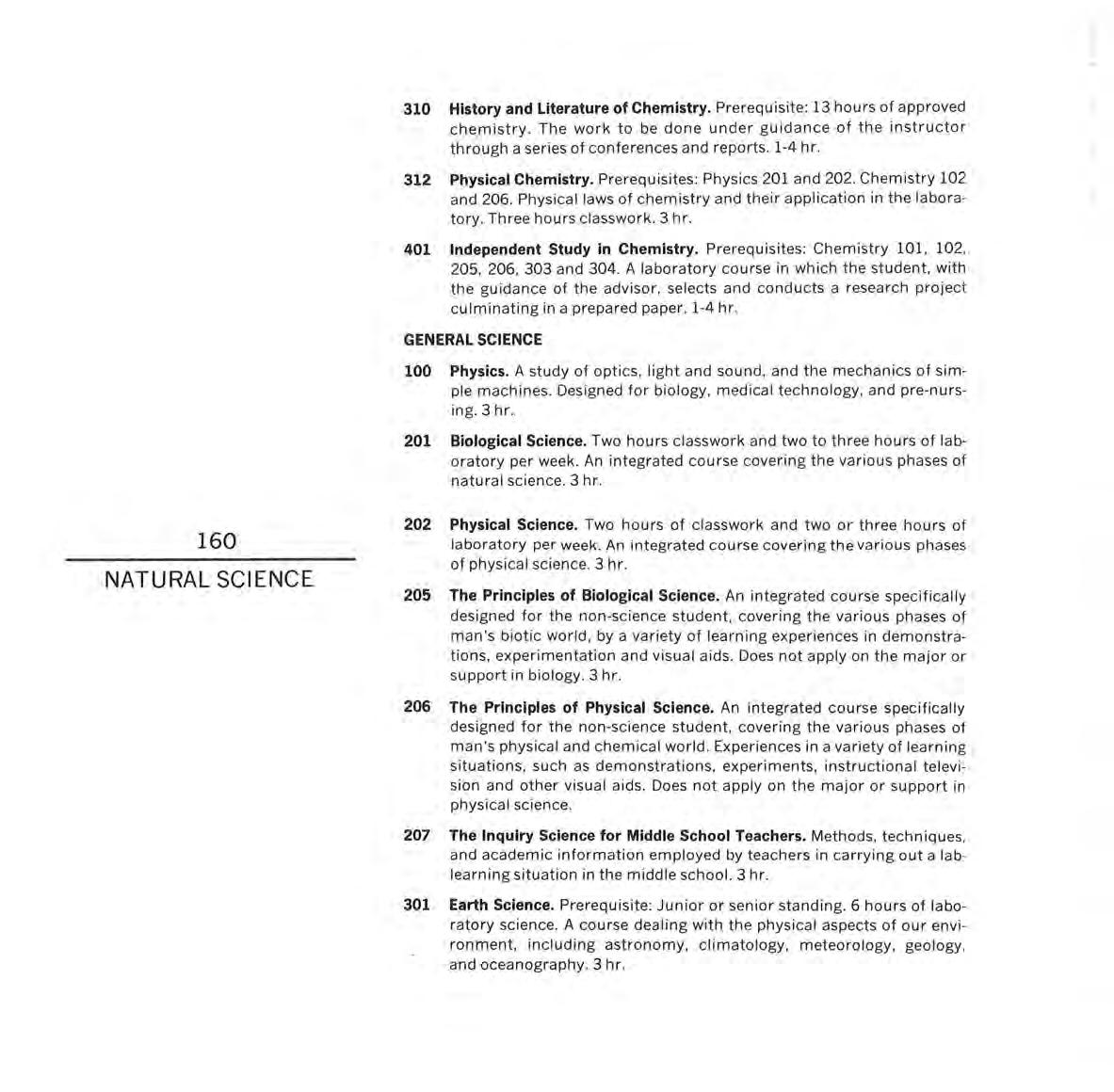
206 The Principles of Physical Science. An integrated course specifically designed for the non-science student, covering the various phases of man 's physical and chemical wor ld Experiences in a variety of learning situations, such as demonstrations, experiments, instructional television and other visua l aids. Does not app l y on the major or support in physical science.
207 The Inquiry Science for Middle School Teachers. Methods, techniques, and academic information employed by teachers in carrying out a l abl earning situation in the midd l e school. 3 hr.
301 Earth Science. Prerequisite: Junior or senior standing. 6 hours of l aboratory science. A course dealing with the physical aspects of our environment , including astronomy, climatology, meteorology , geology, and oceanography. 3 hr.
430G Environmental Science. A workshop designed to provide an understanding of the ecological problems confronting modern man and proposed techniques for their solution. 3 hr.
476 Methods of Teaching Science and Mathematics. Objectives , content and methods of teaching science and mathematics in the high school. 2 hr.
499G Aerospace Science. A workshop designed to provide an understanding of aerospace developments which are vital to our social , economic and political environment. 3 hr.
201 Physical Geology. An introduction to the theories of the earth's origin, the study of the earth's structure and materials with special emphasis on rocks , minerals, and landforms. Three hours lecture , two hours laboratory. 4 hr.
202 Rock and Minerals. An introductory course to the study of the physical properties of rocks and minerals; stressing field work at mineral and rock localities in S.E. Nebraska. 1-3 hr.
203 Introduction to Fossils. An introductory course to methods of interpreting the fossil record ; fossils as evidence of the history of life; evolution of form structure, mainly in the study of invertebrate species; through actual field work at fossil localities in S.E. Nebraska 1-3 hr.
301 Historical Geology. Geological history of the earth and the evolution of its animal and plant inhabitants. Will include work at fossil localities in S.E. Nebraska, utilizing stratigraphic methods. Three lecture periods, one two-hour lab. 4 hr.
304 Meteorology and Climatology. The physical factors influencing the climate with practical work in interpreting meteorological records and forecasting. Two hours lecture, two hours laboratory. 3 hr.
314 Reading in Geology. Prerequisite, 12 hours of geology. Work is done under the guidance of the instructor through a series of written reports and conferences. 1-3 hr.
315 Physiography of the United States. Prerequisites: Geog. 101 and 103. A regional study of landform provinces, with special emphasis on the relationship between landforms , climate, soils, vegetation, and mineral resources. Three hours lecture , two hours laboratory. 4 hr.
10 Elementary Descriptive Statistics. Organization and representation of
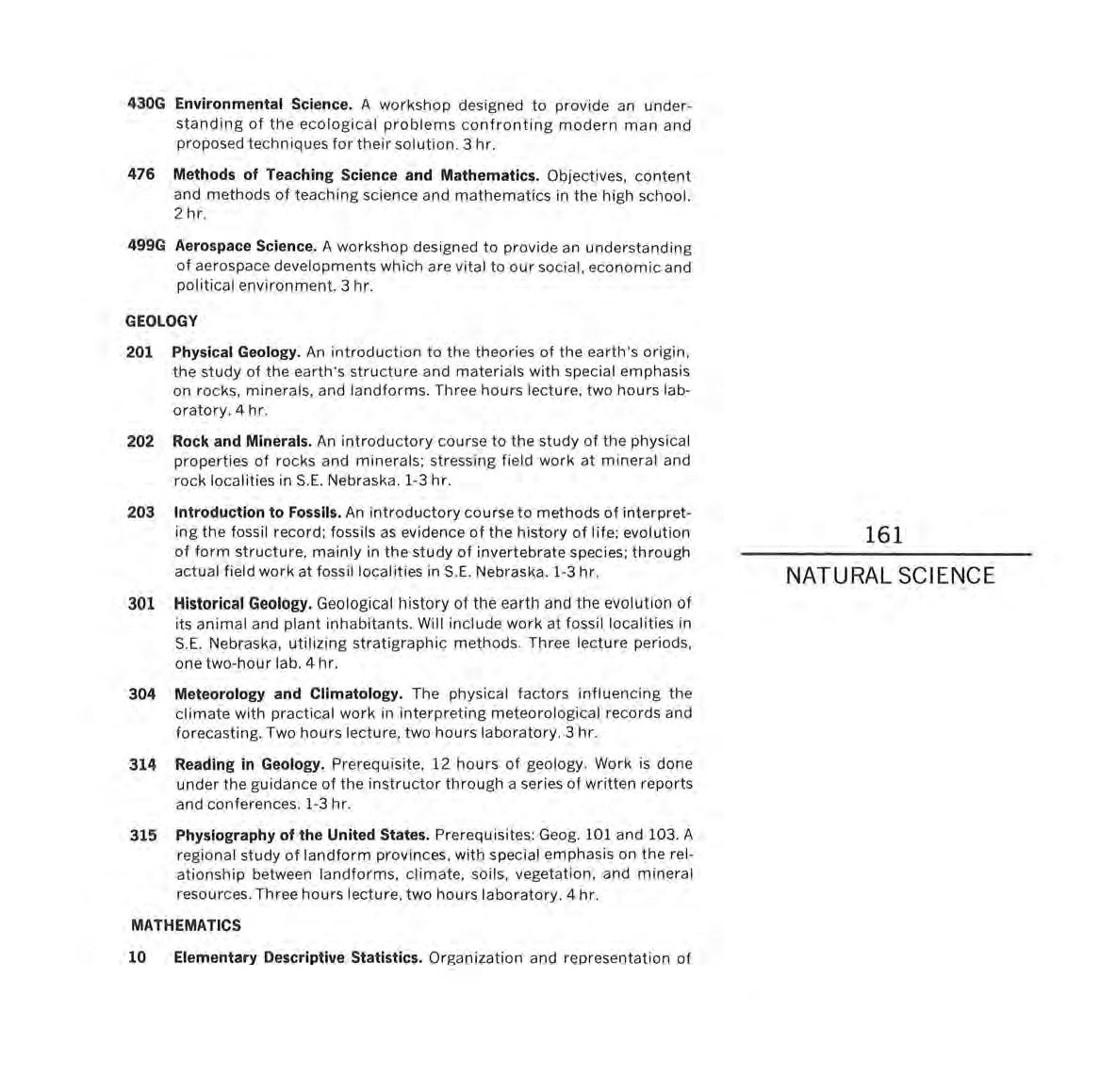
data. Normal distribution, measures of centra l tendency , and variation. Prerequisite : Non-mathematics major or minor. 1 hr
20 Probability. Permutations, combinations, probability , odds, and games of chance. Prerequ i site: Non-mathematics major or minor 1 hr.
30 Logic and Sets. Statements truth tables, connectives, symbolic proofs , and relationship of lo gic and sets. Prerequi s ite: Non - mathematics major or minor. 1 hr
40 Geometry. Prerequisite: Non-mathematics major or minor . The study of geometric concepts from an intuitive ap proa c h 1 hr
50 Practical Trigonometry. Prerequisite : Non-mathemat ics ma j or or minor Right triangle trigonometry , law of sines, l aw of cosines, and applied prob l ems. 1 hr.
60 Surveying. Prerequ is ite: Math 50 or equiva l ent Fundamenta l theory and practice, use bl transit, U S Public Land Surveys, and fie l d office work Wi l l be counted toward a math m a jor or minor. 1 hr.
70 Slide Rule and Logarithms. This course gives the student skill in the use of the sl ide rule and logarithms. Recommended for science majors. Can be used on a math major or minor. 1 hr.
80 Mathematics Appreciation. Prerequisite: Non-mathematics major or minor . A course of mathematic<1I reasoning, sequences , functions, and graphs. 1 hr.
85 Metric System. A study of the deve l opment, advantages, and use of the metr ic system 1 hr
100 Business Mathematics. A review of the four fundamental operations of arithmetic applied to whole numbers, fractions , and decimals; app l ications of percentage; computing interest and discounting notes: consumer credit; cash a n d trade discount: comp uting markup, retai l and commission; marking goods; the arithmetic of payrolls. 3 hr.
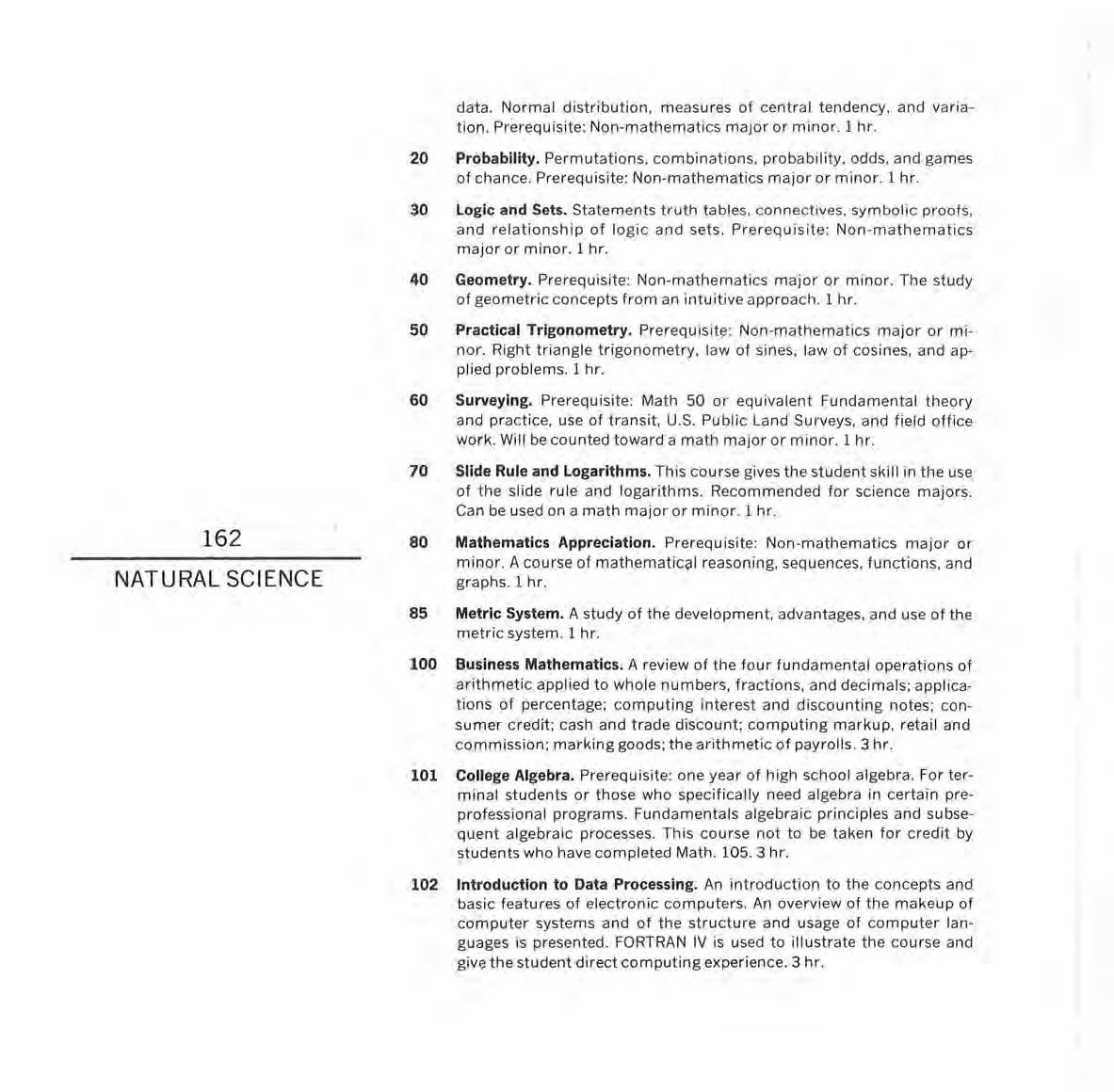
101 College Algebra. Prerequisite : one year of high school a lgebra. For terminal students or those who specifical ly need algebra in certain preprofessional programs Fundamenta l s algebraic principles and subsequent a l gebraic processes. This course not to be taken for credit by students who have completed Math 105 3 hr.
102 Introduction to Data Processing. An introduction to the concepts and basic features of e lectronic computers. An overview of the makeup of computer systems and of the structure and usage of computer languages is presented FORTRAN IV is used to i l lustrate the course and give the student direct computing experience. 3 hr.
Precalculus Mathematics. A course intended for the student who plans to pursue a co ll ege program requiring a substantial amount of training in mathematics. The content of this course includes an introduction to symbolic logic and set theory of applications , a study of the number system , elementary theory of groups and fields, an introduction to the function concert, and study of algebraic functions. 5 hr.
106 Precalculus Mathematics. Prerequisite: Math. 105. Content includes the study of trigonometric, exponential and lo garithm i c functions, and introduction to analytic geometry, and some calculus. 5 hr.
200 Basic Concepts of Mathematics. An introduction to the various number bases and the development of concepts fundamental to each. Other topics included are: el ementary set theory, a l gebra, geometry, and problems re l ated to the field of business; does not apply on the mathematics, major. 3 hr.
204 FORTRAN Programming. Prerequisite: Math 102 or consent of instructor. The FORTRAN IV Language and its application to problem so lving is discussed in detail. The student's work includes ana ly zing a problem and developing a program relative to his field of interest. 3 hr. Second semester.
300 Algebraic and Geometrical Concepts. Prerequisite: Math 200 or permission. A course dealing with a lgebraic and geometrical concepts . Specific topics include l ogic, sets , positive and negative numbers , equat i ons and in equalities Geometric phases include measurements, space , plane, lin e and properties of such c lo sed curves as the triangle, rectangle, and circ le , as well as other figures with their properties developed intuitively; does not app ly on the mathematics major. 3 hr.
304 Modern Geometry . Prerequisite: 10 hours of mathematics. A course designed primarily to prepare mathematics teachers for dealing with a modern high schoo l mathematics program. A point set approach to geometry 3 hr.
309 Calculus with Analytic Geometry. Prerequisites: Math. 105 and 106 or equivalent. The course includes the study of analytic geometry, functions, limits , continuity , velocity, differentiation, inverse of differentiation, second derivatives, maxima and minima, as well as other related topics. 5 hr
310 Calculus with Analytic Geometry. Prerequisite: Math. 309 or equivalent. Topics include trigonometric functions, antiderivatives , the definite integral, three-dimensional figures, translation and rotation, exponential functions, hyperbolic functions, integration, polar coordinates, and related topics. 5 hr.
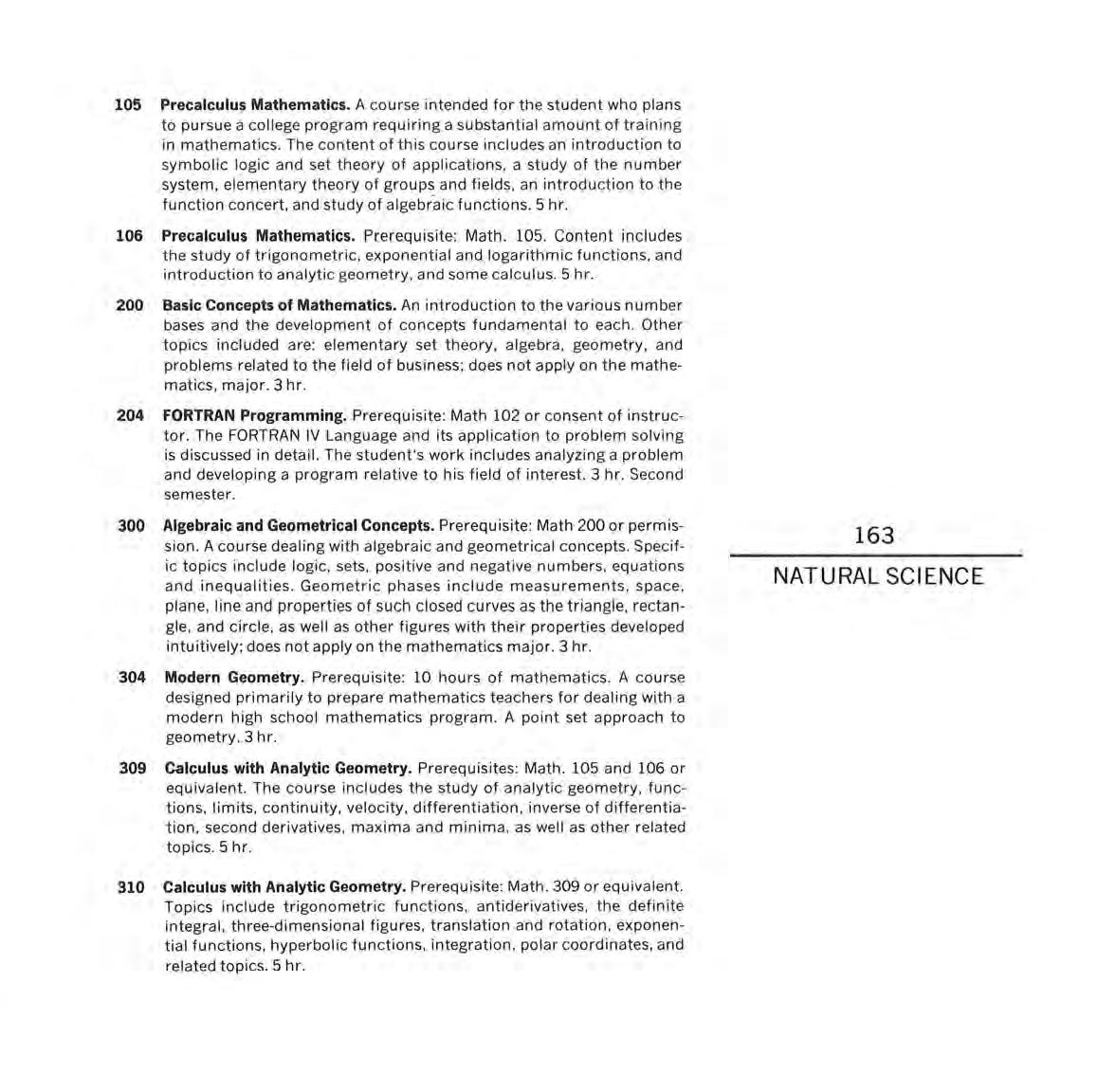
Independent Study in Mathematics. Prerequisite: 15 hours in mathematics. By permission only. Specia l assignments , projects and reading to be arranged 1-3 hr.
Calculus Ill. Prerequisites: Math. 309 and 310 or equivalent. Designed to give the student a review of calculus and applying it to complex problems in mathematics. 3 hr.
Statistics. A study of the methods of summarizing and interpreting data , elementary probability , and its relation to distributions The meanings , importance, and applications of the normal and binomical distributions. The methods of random sampling , testing of hypotheses , ana l ysis of paired data , and interpretation of standardized test scores . 3 hr.
Modern Algebra. Prerequisites: Math 105, 106, 309 and 310 or equivalent. A study of various algebraic systems arising in modern mathematical computations Content includes a study of sets , mappings and operations , relations, development of real numbers system s, integral domains and fields, polynomial domains , and complex number field 3 hr.

Modern Algebra. Continuation of Math. 406 A study of groups, vector spaces , linear transformations and matrices , l inear equations and determinants, linear a l gebras , rings and Boolean algebras. 3 hr.
416 Differential Equations. Formation of differential equations, equations of high order, linear equation with constant and variable co-efficients, partial differentiation, application of geometry, mechanics , and physics. Student must have proficiency in calcu lu s. 3 hr .
417G Introduction to Real Analysis . Prerequisite: Math. 310. Topics inc luded are number , l imits , convergence, continuity differentiability, the Riemann integral, sequences, series, and special functions of the Real Calculus . 3 hr.
418G Linear Algebra. The theory of linear transformations in vector spaces , the representation of linear sp a ces in matrices , linear functionals , and the app l ication of these concepts. 3 hr.
419G Topology. A modern treatment of topology with emphasis on fundamental concepts and principal results of homology theory, topological spaces, linear graphs, set theory, metric interpretation , as well as other related topics. 3 hr.
201 General Physics. Prerequisite: Mathematics 105. Three hours c l asswork , two hours l aboratory, Mechanics , sound, and heat. 4 hr.
202 General Physics. Prerequisite: Physics 201 or permission. Three hours c lasswork, two hours laboratory. Light, e lectricity, and magnetism 4 hr .
302 Analytical Mechanics. Prerequisites : Physics 202 and Math 310. The development of the principles of mechanics by the use of calculus and vector analysis. 3 hr.
304 Elements of Optics. Prerequisite: Physics 202. Three hours classwork, two hours laboratory. Geometrical optics, physical optics, quantum optics, optical instruments , and polarization 4 hr
306 Astronomy. A basic course dealing with a study of the heavenly bodies, the solar system, and the universe. Telescopic observation is a part of this course. 3 hr .
307 Introduction to Modern Physics. Prerequisites : Physics 202 and Chemistry 101. Three hours classwork, two hours laboratory. Atomic and nuclear relativity, Bohr atom theory, quantum theory, X-rays, nuclear instruments, radioactivity, nuclear reactions , and elementary particles. 4 hr
310 History and Literature of Physics. Work to be done under the guidance of the instructor through a series of reports and conferences. 1-2 hr. Each semester and summer.
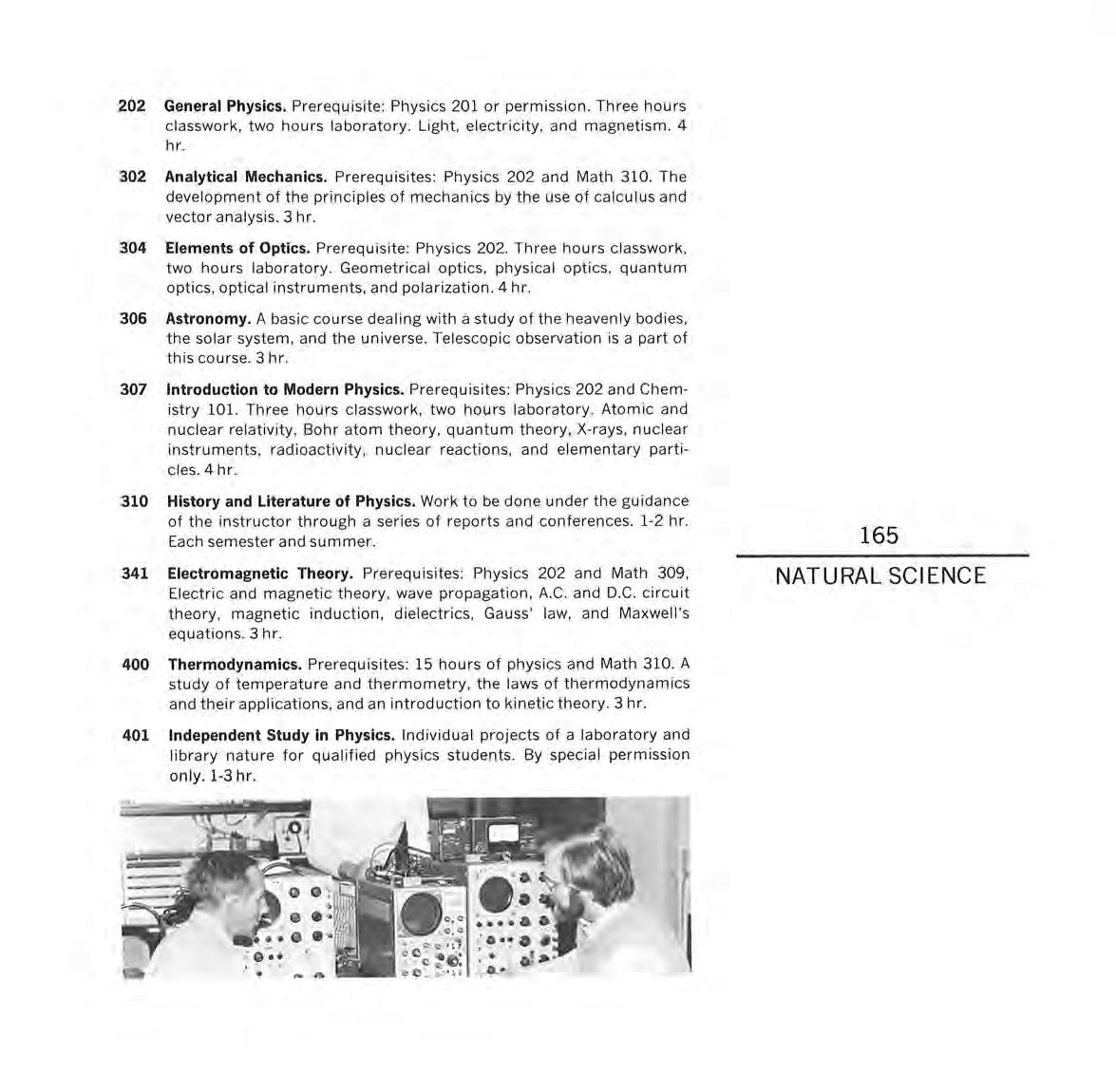
341 Electromagnetic Theory. Prerequisites : Physics 202 and Math 309 , Electric and magnetic theory, wave propagation, A.C. and 0.C. circuit theory, magnetic induction , diele c trics , Gauss' law , and Maxwell's equations. 3 hr.
400 Thermodynamics. Prerequisites: 15 hours of physics and Math 310. A study of temperature and thermometry, the laws of thermodynamics and their applications, and an introduction to kinetic theory. 3 hr.
401 Independent Study in Physics. Individual projects of a laboratory and library nature for qualified physics students. By special permission only. 1-3 hr
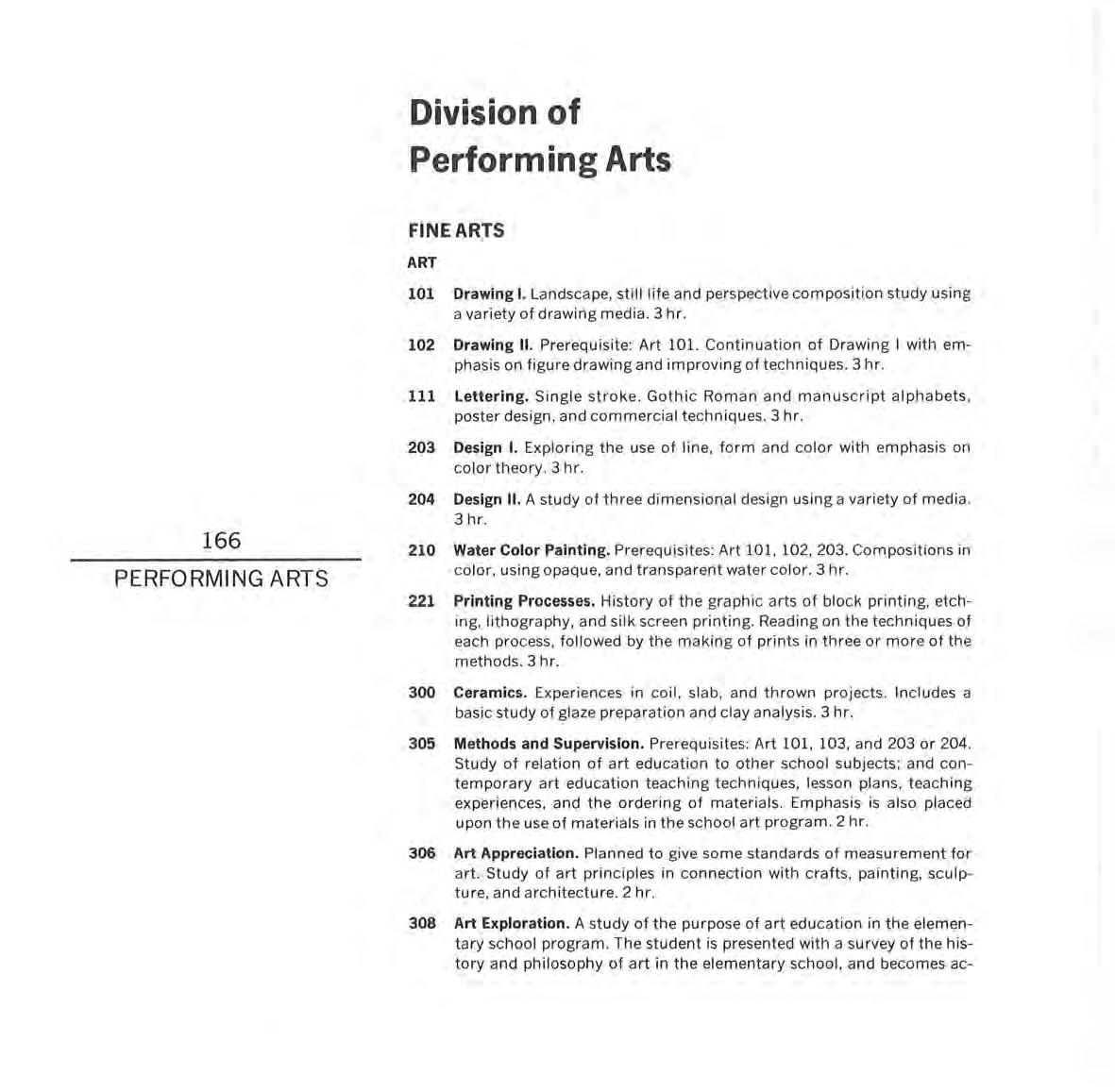
FINE ARTS
ART
101 Drawing I. Landscape, still life and perspective compos ition study u sing a variety of drawing media. 3 hr
102 Drawing II. Prerequisite: Art 101. Continuation of Drawing I with emphasis on figure drawing and improvin g of techniques. 3 hr.
111 Lettering. Single stroke. Gothic Roman a n d manuscript alphabets, poster design, and comme r c ial techniques. 3 hr.
203 Design I. Exploring the use of line , form and co lor with emphasis on co lor theory. 3 hr.
204 Design II. A study of three dimensional design using a variety of media. 3 hr.
210 Water Color Painting. Prerequisites: Art 101 , 102 , 203. Compositions in co lor, using opaque , and transparent water co lor. 3 hr.
221 Printing Processes. History of the graphic arts of block printing, etching, lithography, and silk screen printing. Reading on the techn ique s of eac h process, followed by the making of prints in three or more of the methods. 3 hr.
300 Ceramics. Experiences in coil, slab, and thrown projects. In cl ud es a basic st udy of glaze preparation and clay ana ly sis. 3 hr.
305 Methods and Supervision. Prerequisites: Art 101, 103, and 203 or 204. Study of relation of art education to other school subjects; and contemporary art education teaching techniques, lesson plans, teaching experiences, and the ordering of materials. Emphasis is also placed upon the use of material s in the schoo l art program. 2 hr.
306 Art Appreciation. Planned to give so me standards of measurement for art. Study of art principles in con ne ct ion with crafts, painting, sculpture , and arc hitect ur e. 2 hr
308 Art Exploration. A st udy of the purpose of art ed ucation in the el eme ntary school program The student is presented with a survey of the history and philosophy of art in the elementary school, a nd becomes ac-
tively involved in art activities designed for the elementary school classroom.
310 Scu lpture. Prerequisites: Art 203 and 300. Experiences in three dimensional form using a variety of materials such as clay, wood, and stone. 3 hr.
311 Painting I. Prerequisites: Art 101, 203. A study of technique s and media used in painting. Studio activities are developed from student research in at least three styles of painting. Media emphasized are acrylic and/or oil. 3 hr.
312 Painting II. Prerequisites: Art 101, 203, and 311. Painting still life , figure, and landscape compositions, using several different oil techniques. 3 hr
317 Art History I. A study of painting, sculpture, and architecture from ancient times to the Renaissance. 3 hr.
318 Art History II. A study of art in the West since the Renaissance. 3 hr.
400 Studio Activities. Prerequisite : Consent of instructor. Suggested for advanced art students wanting to gain additional competence in a particular area. The student may choose to do additional work in his area of interest. 1-6 hr.
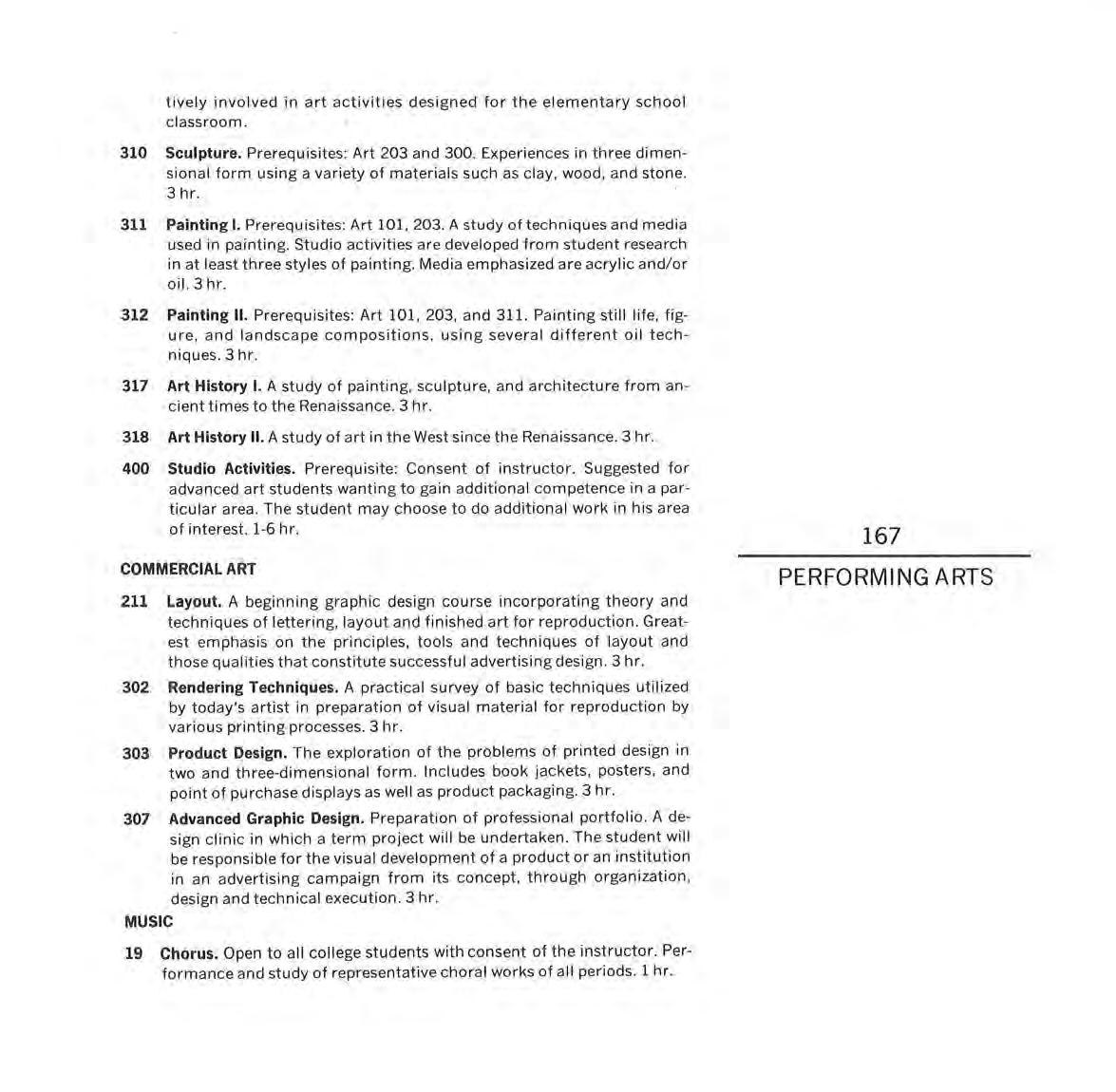
211 Layout. A beginning graphic design course in co rporating theory and techniques of lettering , layout and finished art for reprodu ct ion Greatest emphasis on the principles, tools and techniques of layout and those qualities that constitute successful advertising design. 3 hr.
302 Rendering Techniques. A practical survey of basic technique s utilized by today 's artist in preparation of visual material for reproduction by various printing processes. 3 hr.
303 Product Design. The exploration of the problems of printed design in two and three-dimensional form. Includes book jackets , posters, and point of purchase displays as well as product packaging. 3 hr.
307 Advanced Graphic Design. Preparation of professional portfolio. A design clinic in which a term project will be undertaken. The student will be responsible for the visual development of a product or an institution in an advertising campaign from its concept, through organization, design and technical execution. 3 hr.
19 Chorus. Open to all college students with consent of the instructor Performance and study of representative choral works of all periods. 1 hr
21A Band. (Fall Semester) This organization is primarily a mar chi n g band. It functions at Pep Ra l lies, Parades, and Football Games during the fa ll semester. The General Studies P.E. Activity Requirement can be fulfilled by part icipati ng in Mus. 21A. 4 hours attendance. 1 hr c r ed it.
21B Band. This organization is primarily a Concert Band. Durin g the se mester concerts are presented both on and off ca mpus . 3 hours atte ndance 1 hr . c redit.
28 Choral Ensemble. A select membership for th e study and performance of choral works for small gro ups . 1 hr.
29 Instrumental Ensembles. (Brass Choir) A se l ec t member ship for the study and performanc e of brass compositions for small ensemble . 1 hr . (Woodwind Choir) A select membership for the study and performance of woodwind compositions for small ensemble. 1 hr. (Stage a nd Pep Band) This organization function s prim ari ly as a pep band and for the perform a nce and the study of popular mu s ic. 1 hr.
100 Fundamentals and Elementary Music Materials. The rudim ents of music, includin g letter and syllab l e nam es o f not es, time values of notes and rests , time, and key signatures, chromatics, i nterva l s, chords, keyboard experience, and the writing of original me l odies . Study of c hildren's musi ca l literature and of their tonal and rhythmic problems. 3 hr.
101 Theory. An integrated course which inc l udes sca les , intervals , h a rmonic progressions , modality , modulation , seve nth c hord s, figured bass, ear training , a nd sight singing . 5 hr .
102 Theory. Pr e requisite : Theory 101. I rregular resolutions, diminished sevenths, seco ndary dominants , ninth, eleventh a nd thirteenth c hords, a ltered chords, chromatic h ar mony , and c r eative work. 5 hr
103 Wind Instrument Techniques. A study of woodwind and brass instruments with ac tual p l aying experience. 2 hr . (May be repeated) .
109 Class Guitar. Open to all students Basic chords, me l odies, note reading , and sty l es. Advanced material for experienced performers. 2 hr
120 Class and Applied Piano, Voice, Woodwind, Brass, String, Percussion, and Organ . Instrument st udy on the fre shm an level 1 hr (May be repeated).
203 Wind Instrument Techniques. A study of woodwind and brass instruments with act u al p l aying experie nce. 2 hr (May be repeated).
204 Elementary Vocal Techniques. St udy of modern teaching techniques for children's music l iterature. 2 hr .
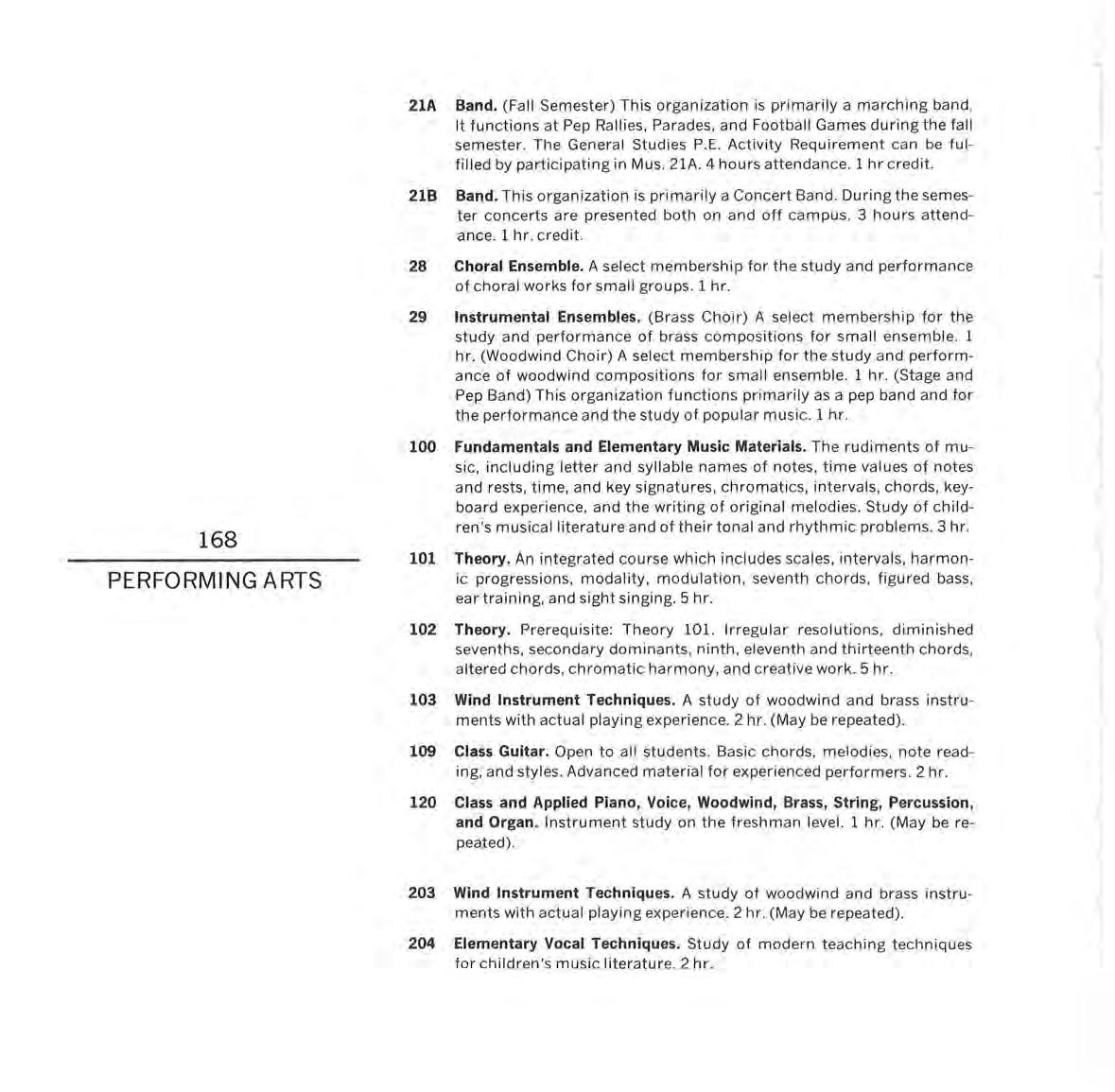
206 Secondary Vocal Techniques. Study of voca l materials as presented in the secondary schoo l s 2 hr
208 Class Strings. Basic study of the violin, viola, violoncello, and string bass . 2 hr. Alternate years.
209 String Ensemble. Performance of string l iterature for ensembles. 1 hr.
220 Piano, Voice, Woodwind, Brass, String, Percussion, and Organ. Instrument study on the sophomore l evel. 1 hr. (May be repeated).
303 Wind Instrument Techniques. A study of woodwind and brass instrun:ients with actual playing experience. 2 hr (May be repeated).
305 Percussion Instruments. A study of brass and percussion instruments with actual playing experience. 2 hr
307 Form, Composition, and Counterpoint. Prerequisites: Theory 101, 102. Analytica l study of the different forms and sty l es in music and their application, inc l uding two and three part eighteenth century style, descant and invention . 2 hr.
308 Keyboard, Vocal, or Instrumental Pedagogy. Practica l experience in teaching app l ied music to the individua l for piano, voice or instruments. 1 hr. (May be repeated).
309 Introduction to Music Therapy. An orientation course presenting a survey of effective therapeutic uses of the elements of music. 3 hr.
311 Music Appreciation and History of Music. Various forms and sty l es of music, ranging from folk song to opera, oratorio and symphony, analyzed and discussed through the use of records . 2 hr.
313 Music for Recreation. Practical guide for the planning and execution of music programs -for community recreation, camping, correctiona l and clinical institutions, senior citizens, industry, and the armed services. 2 hr.
320 Piano, Voice, Woodwind, Brass, String, Percussion, and Organ . Instrument study on the junior level. 1 hr. (May be repeated).
400 Vocal or Instrumental Practicum. Practical experience in teaching the small and large vocal and instrumental ensemble. 1 hr (May be repeated).
403 Wind Instrument Techniques. A study of woodwind and brass instruments with actual p l aying experience. 2 hr. (May be repeated)
404 Instrumental and Choral Conducting. Knowledge of baton techniques, reading and interpretation of instrumenta l scores, choral problems of
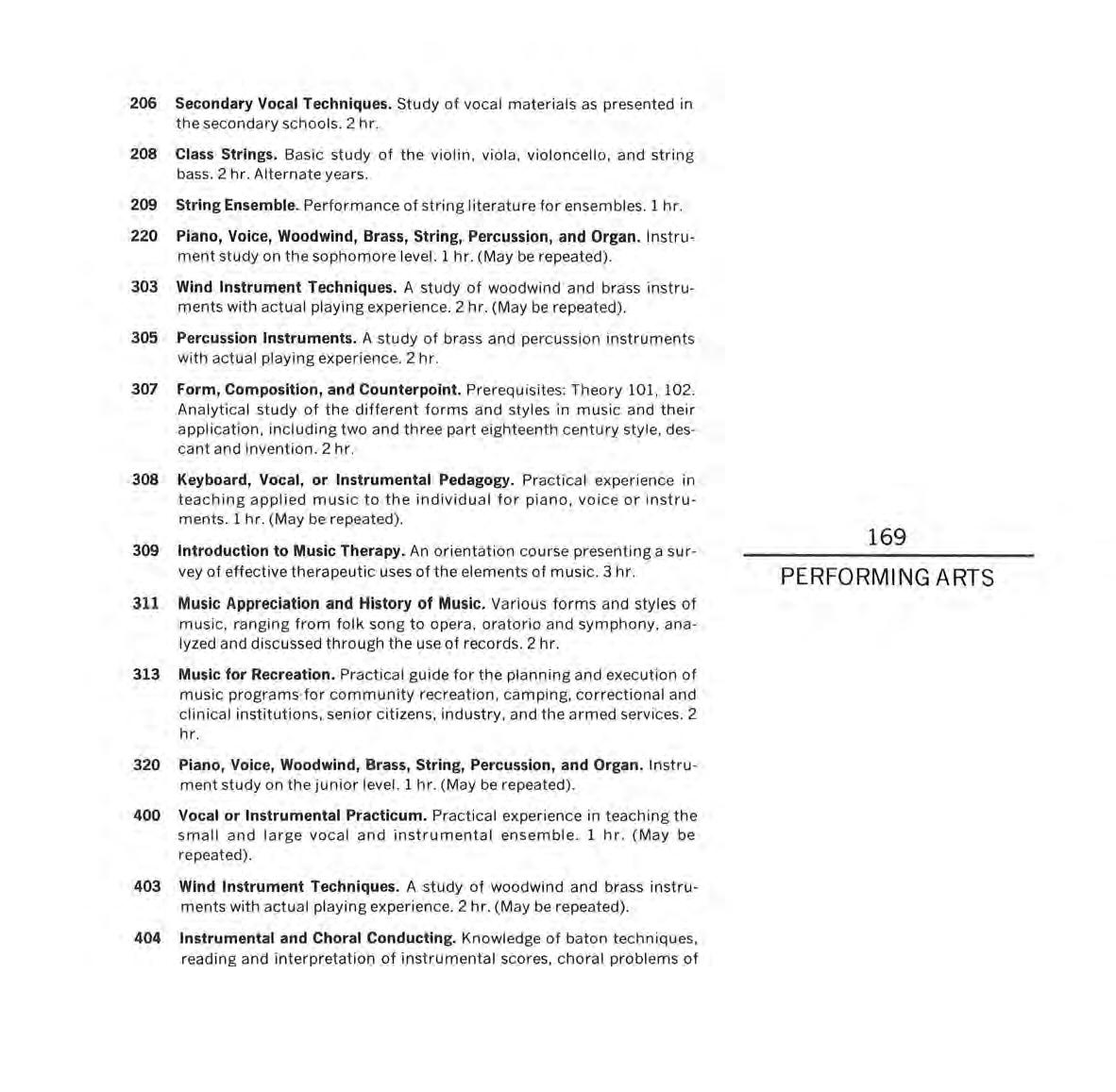
intonation , tone quality and balance, and knowledge of the periods of music as they relate to c hor al music. 2 hr.
406 History of Music. The development of music from antiqu it y to the present , with sty listic ana lysis of music examples. 3 hr.
408 Instrumentation. Practical scoring for band and orchestra. Required of candidates for the A.B. in Education degree in Music. 2 hr.
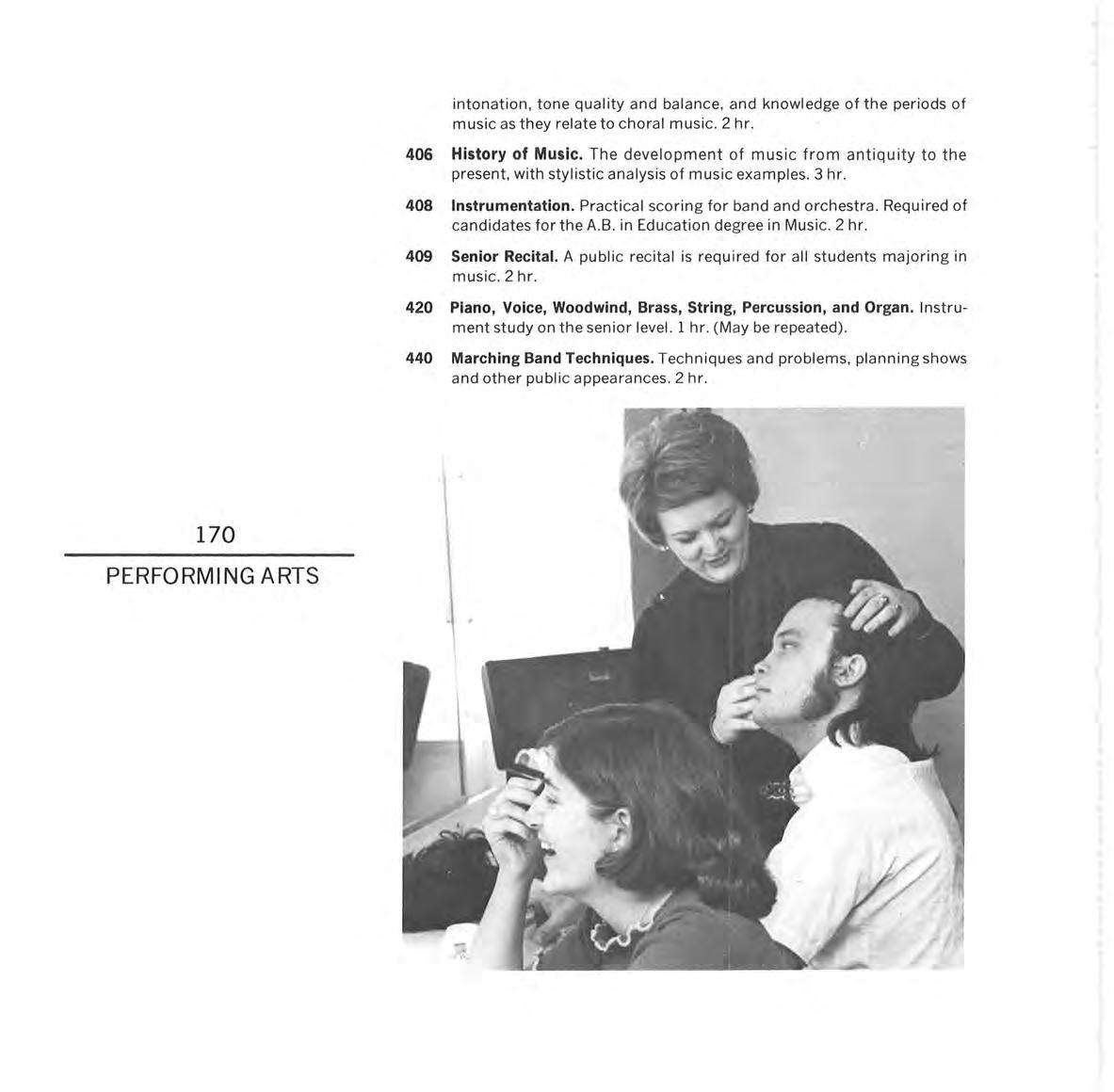
409 Senior Recital. A public recital is required for a ll students majoring in music. 2 hr.
420 Piano, Voice, Woodwind, Brass, String, Percussion, and Organ. In strument study on the senior l evel . 1 hr . (May be repeated) .
440 Marching Band Techniques. Techniques and problems, planning shows and other public appearances. 2 hr.
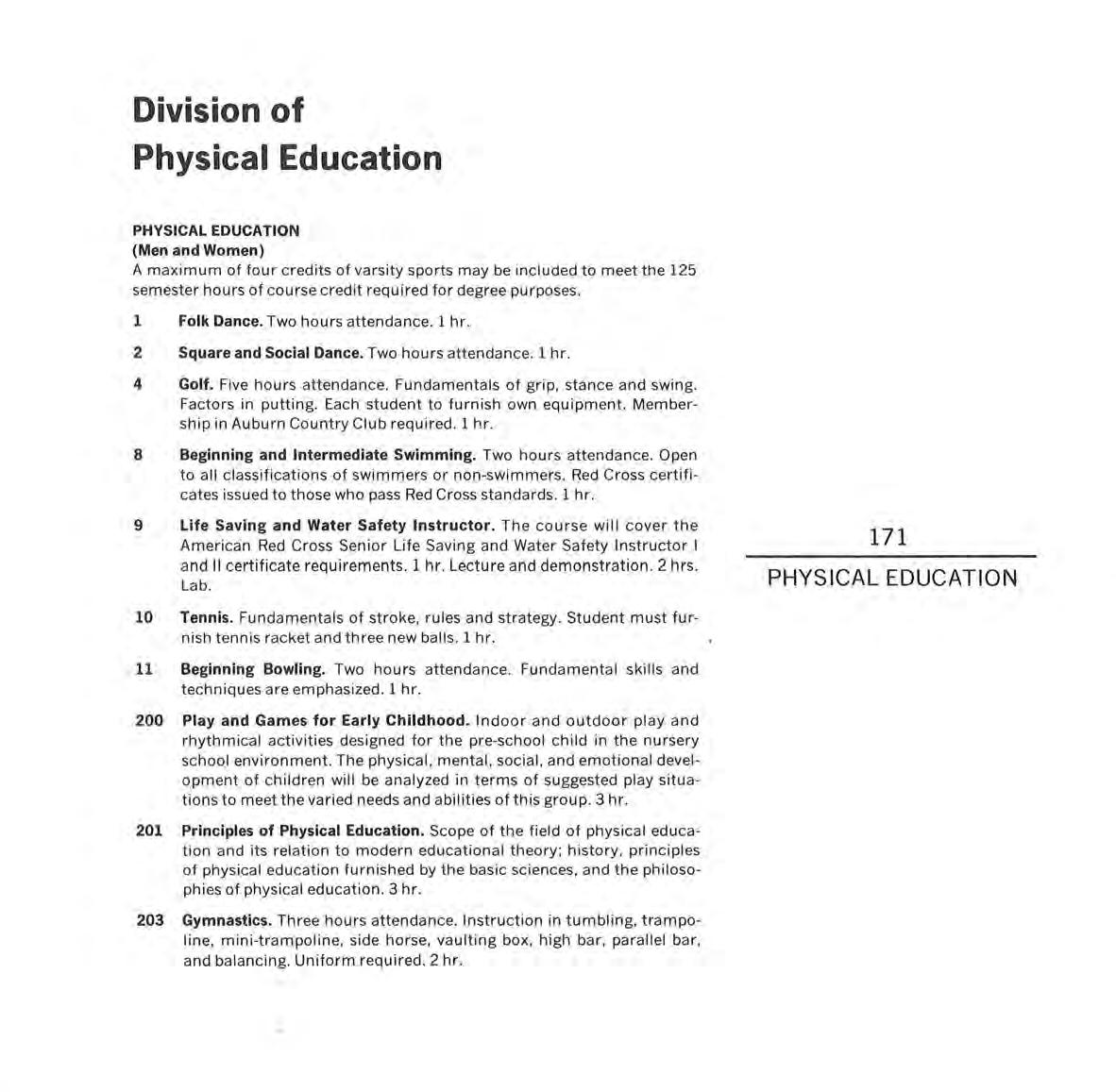
A maximum of four credits of varsity sports may be included to meet the 125 semester hours of course credit required for degree purposes.
1 Folk Dance. Two hours attendance. 1 hr.
2 Square and Social Dance. Two hours attendance. 1 hr.
4 Golf. Five hours attendance. Fund a mentals of grip, stance and swing. Factors in putting. Each student to furnish own equipment. Membership in Auburn Country Club required . 1 hr.
8 Beginning and Intermediate Swimming. Two hours attendance. Open to all classifications of swimmers or non-swimmers. Red Cross certificates issued to those who pass Red Cross standards. 1 hr .
9 Life Saving and Water Safety Instructor. The course will cover the American Red Cross Senior Life Saving and Water Safety Instructor I and II certificate requirements. 1 hr. Lecture and demonstration 2 hrs Lab.
10 Tennis. Fundamentals of stroke, rules and strategy. Student must furnish tennis racket and three new balls. 1 hr.
11 Beginning Bowling. Two hours attendance. Fundamental skills and techniques are emphasized. 1 hr
200 Play and Games for Early Childhood. Indoor and outdoor play and rhythmical activities designed for the pre-school child in the nursery school environment. The physical ,- mental, social, and emotional development of children will be analyzed in terms of suggested play situations to meet the varied needs and abilities of this group. 3 hr.
201 Principles of Physical Education. Scope of the field of physical education and its relation to modern educational theory ; history, principles of physical education furnished by the basic sciences, and the philosophies of physical education. 3 hr.
203 Gymnastics. Three hours at tendance Instruction in tumbling, trampoline, mini-trampoline, side horse , vaulting box, high bar, parallel bar , and balancing. Uniform required. 2 hr
205 Health . A study of the function and care of the human body in health and disease, and the harmful effects of stimulants and narcotics. 3 hr.
215 First Aid. American Red Cross First Aid course and Medical Self Help course. 3 hr.
309 Organization and Administration of Programs in Physical Education and Recreation. Consideration of general principles of administrative techniques and responsibilities and related to fields of Physical Education and Recreation. 2 hr.
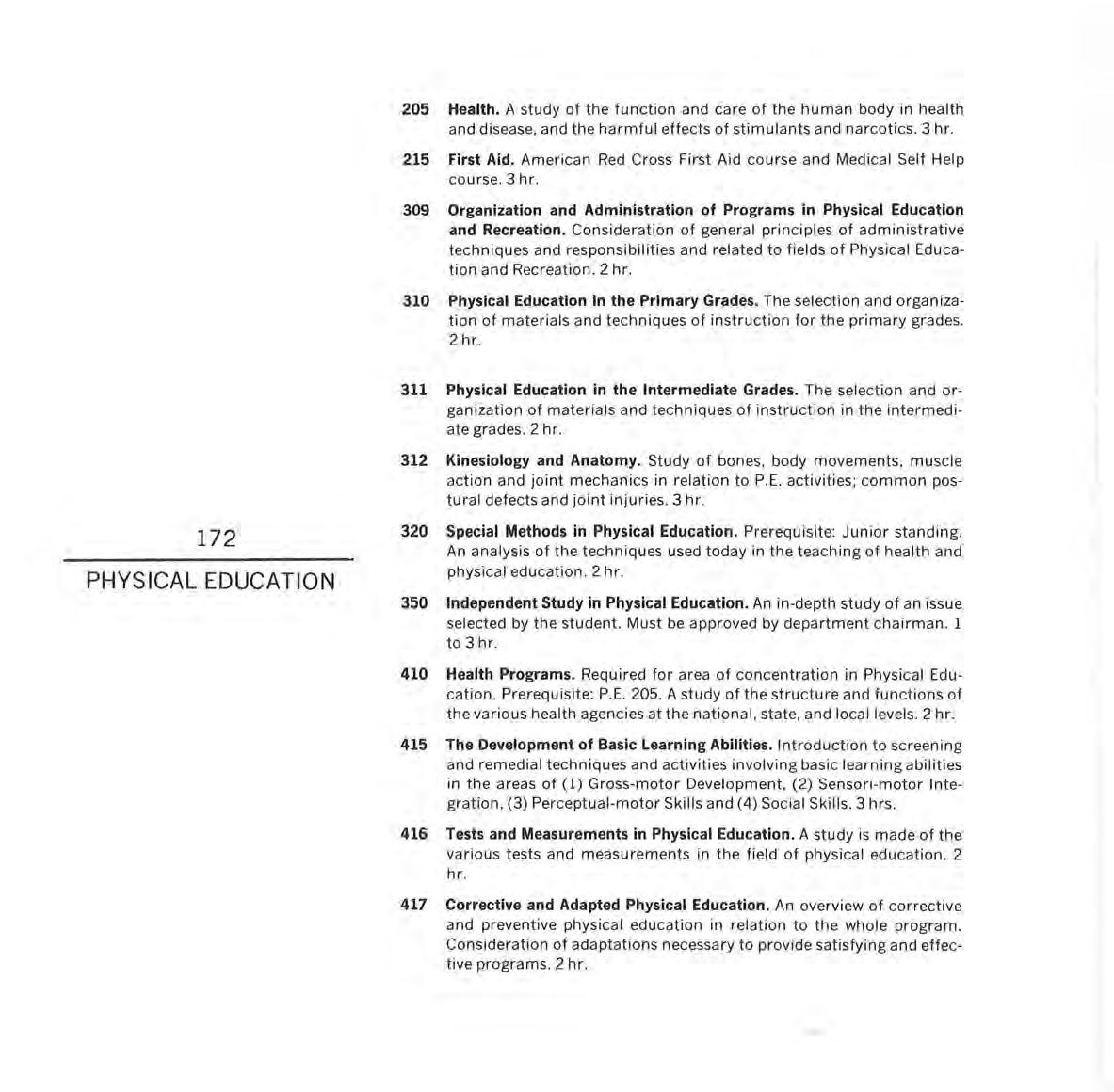
310 Physical Education in the Primary Grades. The se l ection and organization of materials and techniques of instruction for the primary grades 2 hr.
311 Physical Education in the Intermediate Grades. The selection and organization of materials and techniques of instruction in the intermediate grades. 2 hr.
312 Kinesiology and Anatomy. Study of bones, body movements , muscle action and joint mechanics in relation to P.E. activities; common postural defects and joint injuries. 3 hr.
320 Special Methods in Physical Education. Prerequisite: Junior standing. An ana ly sis of the techniques used today in the teaching of health and physical education 2 hr.
350 Independent Study in Physical Education. An in-depth study of an issue selected by the student. Must be approved by department chairman. 1 to 3 hr.
410 Health Programs. Required for area of concentration in Physical Educat i on . Prerequisite: P.E. 205. A study of the structure and functions of the various health agencies at the national, state, and lo cal levels. 2 hr.
415 The Development of Basic Learning Abilities. Introduction to screening and remedial techniques and activit i es involving basic l earning ab il it i es in the areas of (1) Gross-motor Development , (2) Sensori-motor Integration, (3) Perceptual-motor Skills and (4) Social Ski ll s. 3 hrs.
416 Tests and Measurements in Physical Education. A study is made of the var i ous tests and measurements in the field of physical education. 2 hr.
417 Corrective and Adapted Physical Education. An overview of corrective and preventive physica l education in relation to the whole program. Consideration of adaptations necessary to provide satisfying and effective programs. 2 hr.
425 Current Problems in Physical Education. Discussion and reporting of current issues in the area of physical education. 1 hr .
90 Varsity Sports. Requires successful participation in a varsity sport. (Four hours maximum allowed to count for degree credit ) 1 hr.
101 Physical Education for Men. Two hours attendance required. Uniform required Activities: archery, badminton , and wrestling 1 hr.
102 Physical Education .for Men. Two hours attendance required . Uniform required Activities : tumbling, weight training and golf 1 hr.
207a Theory of Football . Two hours attendance. 3 hr.
207b Theory of Basketball. Two hours class attendance. 3 hr.
207c Theory of Track. Two hours class attendance. 3 hr
207d Theory of Baseball. Two hours class attendance 3 hr
207e Theory of Wrestling . Two hours class attendance . 3 hrs .
216 Minor Sports I. Three hours attendance required . A study of the history , strategy , and techniques involved in archery , badminton, and wrestling 2 hr.
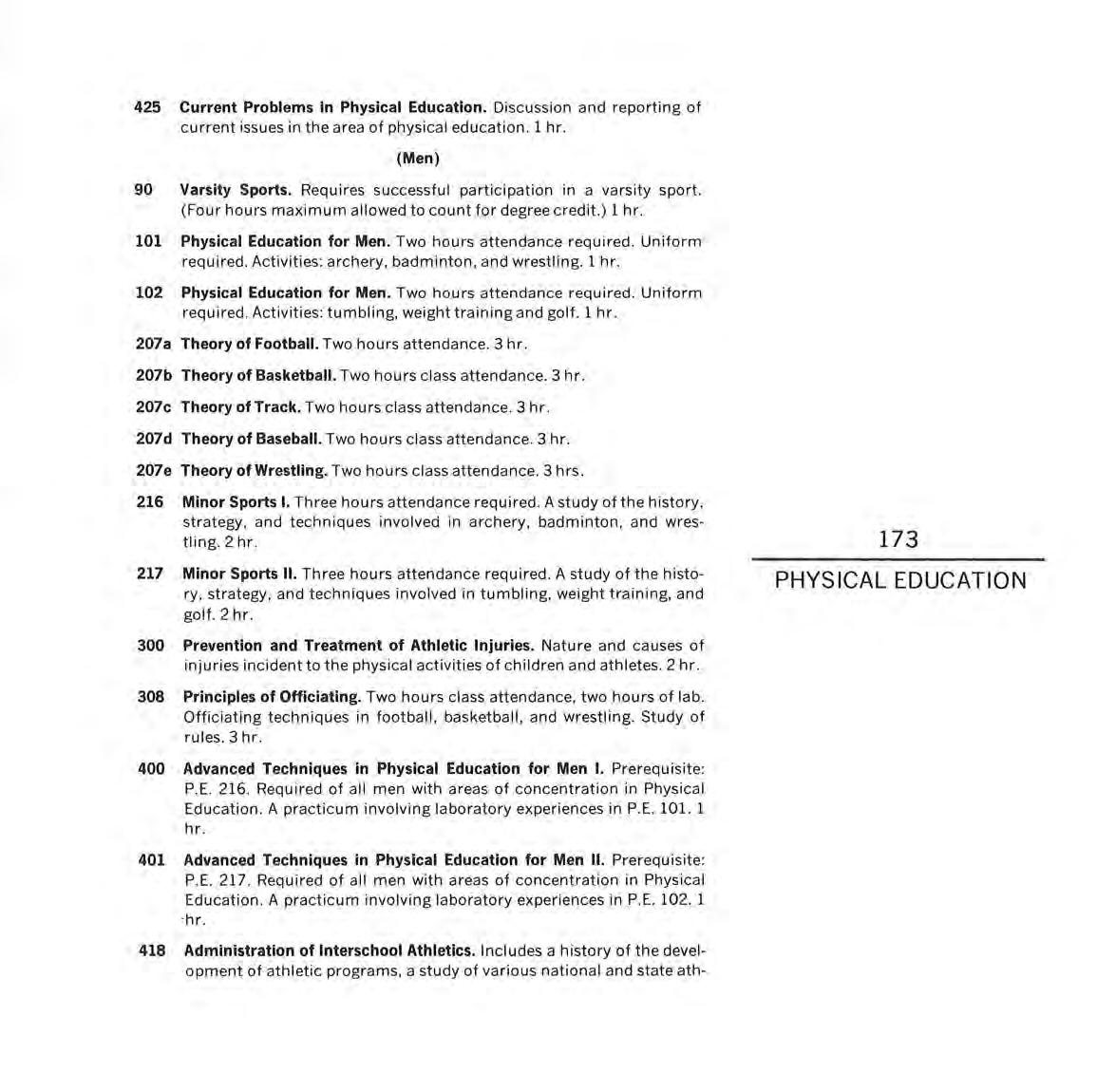
217 Minor Sports II Three hours attendance required A study of the history , strategy, and techniques involved in tumbling , weight training , and golf 2 hr
300 Prevention and Treatment of Athletic Injuries. Nature and causes of injuries incident to the physical activities of children and athletes. 2 hr.
308 Principles of Officiating. Two hours class attendance , two hours of lab Officiating techniques in football , basketball, and wrestling Study of rules. 3 hr.
400 Advanced Techniques in Physical Education for Men I. Prerequisite:
P.E. 216. Required of all men with areas of concentration in Physical Education A practicum involving laboratory experiences in P E 101. 1 hr.
401 Advanced Techniques in Physical Education for Men II . Prerequisite:
P.E. 217. Required of all men with areas of concentration in Physical Education A practicum involving laboratory experiences in P E 102 1 ·hr.
418 Administration of lnterschool Athletics. Includes a history of the development of athletic programs , a study of various national and state ath -
letic organizations, the role of athletics in education, and the responsibilities of the athletic director. 2 hr.
3 Modern Dance. Fundamental rhythmic techniques and their application in creative dance. 1 hr.
5 Body Mechanics. Tumbling, apparatus, trampoline and posture. Emphasis on efficient use of body in all movements. 1 hr.
103 Physical Education for Women I. Two hours attendance required. Activities: badminton, archery, and gymnastics 1 hr.
104 Physical Education for Women II. Two hours attendance required. Activities: basketball , volleyball, and golf. 1 hr.
218 Basic Skills for Women I. Three hours of attendance required. A study of the history, strategy and techniques involved in badminton, archery, and gymnastics. 2 hr.
219 Basic Skills for Women II. Three hours of attendance required. A study of the history, strategy and techniques involved in basketball, volleyball , and golf. 2 hr.
402 Advanced Techniques in Physical Education for Women I. Prerequisite: P.E. 218. Required of all women with majors in Physical Education. A practicum involving laboratory experiences in P.E 103. 1 hr.
403 Advanced Techniques in Physical Education for Women II. Prerequisite: P E. 219. Required of a ll women with majors in Physical Education A practicum involving laboratory experiences in P.E. 104 1 hr

220 Recreation Leadership. History, theory, and philosophy of recreation. Practical Techniques of leadership for low organization activities. 3 hr
308 Recreational Swimming. A course designed to provide students with a background of activities and games , which could be utilized in recreational programs. 1 hr
319 Programs in Recreation. A principles course to encompass industrial, social, youth organizations and community recreation 3 hr.
322 Outdoor Recreation and Camping. This course investigates all aspects of outdoor recreation. Camping theory and experience in a camping situation are a part of this course. 3 hr.
405 Seminar. Special assignments made by the instructor relative to new areas in recreation. 1 hr.
406 Recreation Research. Prerequisite P.E 405. Investigation of legal , financial, personnel, public relations, political, and philosophical problems of management of federal, state, and local government agencies in the field of recreation. 1-3 hr.
460 Recreation Internship. Prerequisites: all required Rec. courses. A practical application of the principles of recreation. The internship will be offered during the summer. Students will be placed in public or industrial recreation programs to work with leaders, directors, and supervisors in the field 6-8 hr
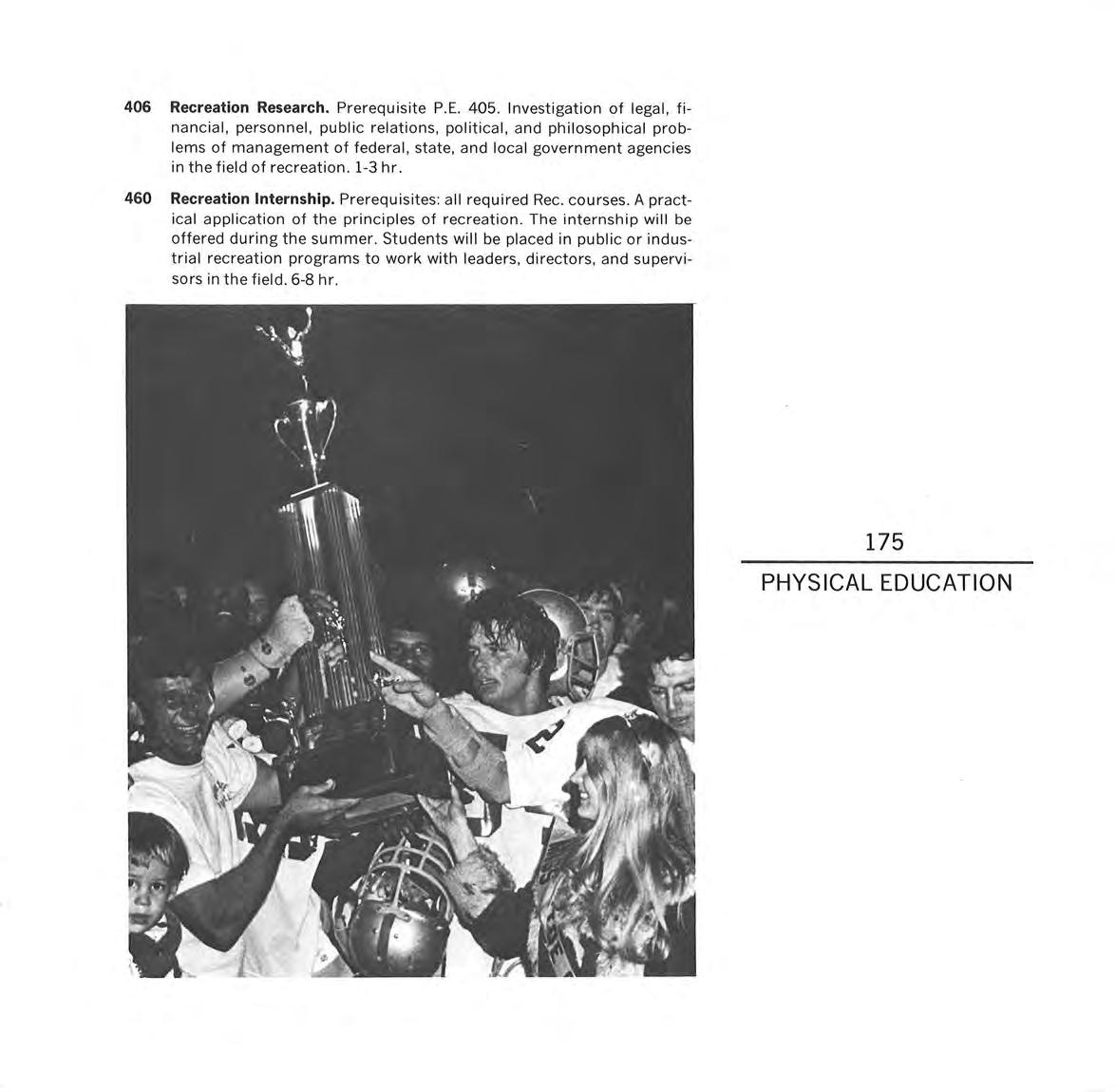
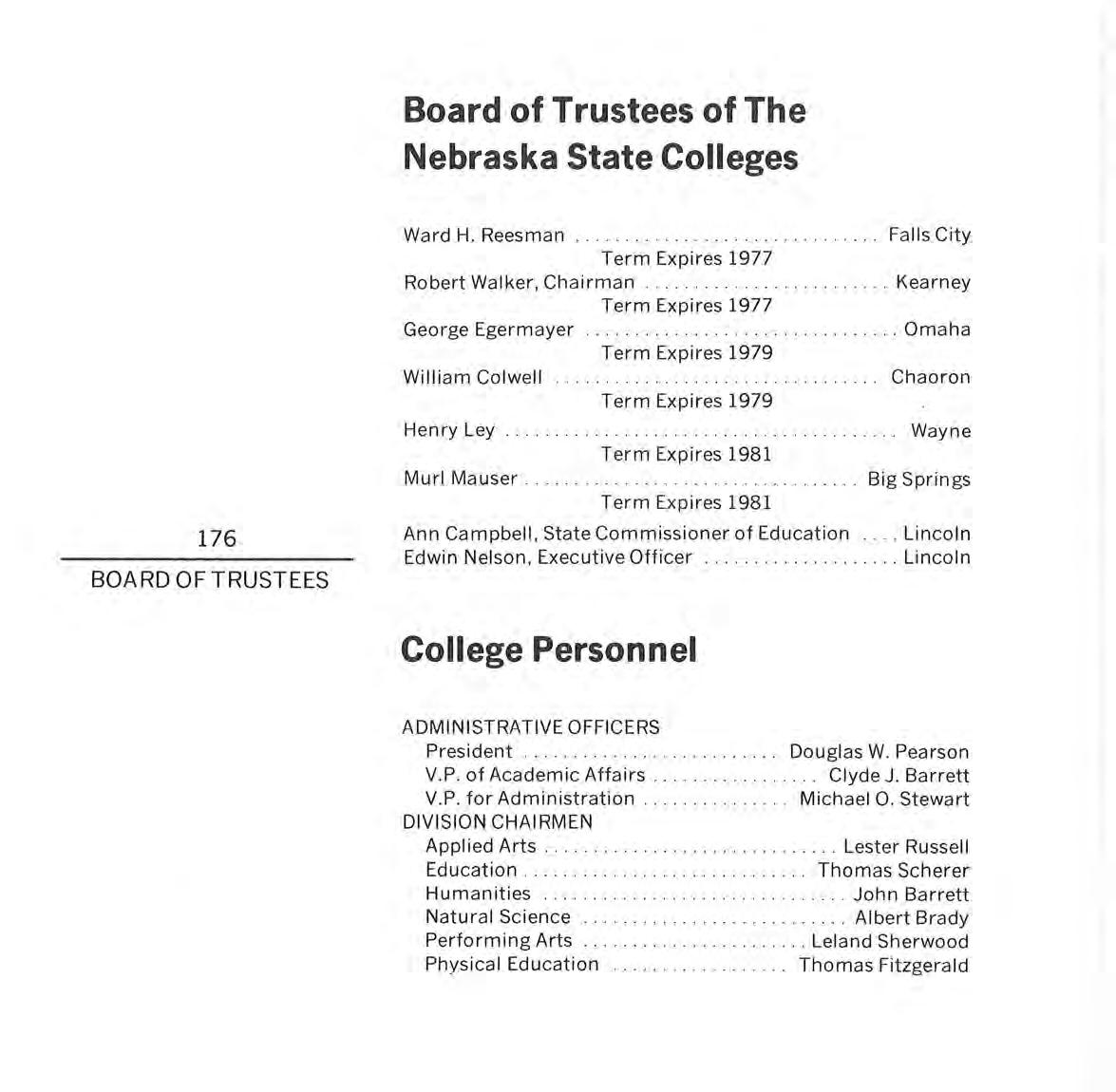
Ward H Reesman
Term Expires 1977
Robert Walker, Chairman
Term Expires 1977
Falls City
Kearney
George Egermayer
William Colwell
Henry Ley
Muri Mauser .. . . . .
Term Expires 1979
Term Expires 1979
Term Expires 1981
Term Ex pires 1981
Omaha Chaoron Wayne Big Springs
Ann Campbell, State Commissioner of Education Lincoln
Edwin Nelson, Executive Officer . . . . Lincoln
ADMINISTRATIVE OFFICERS
President .............. . .. . ... . .. .
V. P. of Academic Affairs
V.P. for Administration .... .. .. . ... . .
DIVISION CHAIRMEN
Applied Arts
Education
Humanities
Natural Science
Performing Arts
Physical Education
Douglas W. Pearson
Clyde J . Barrett
Michael 0. Stewart
Lester Russell
Thomas Scherer
.
...
John Barrett
Albert Brady
Leland Sherwood
..
Thomas Fitzgerald
Registr a r Kelly J Liewer
Direc t or of Admissions . . . . . . . Gary L. Hoemann
Director of Financial Aid and Placement
Donald G. Miller
Admissions Counselor . ....... . ....... . Leann e Garwood
Business Offi c e Manager . . . . . . . . . . . . . . Kenneth T . Gress
Director of Special Service . . . .. Everett Browning
Director of Athletics
Director of Health Services
Thomas Fitzgerald
Virginia Miller
Director of Instructional Media Center .... Paul Kruse
Director of Summer School Program . . Clyde J. Ba rrett
Sup't. of Buildings & Grounds ........ .. George Wendel
Director of Pl a nning & Development John Jacobsen
Librarian . . . . . . . . . . . .. . . Faye M. Brandt
Assistant Librarian
Sharon Mccaslin
Reference Librarian . . . . . . . . . . . Barbara Lewellen
Director of Data Processing
Stanley Mccaslin
Director of Student Teaching . . . . . . . . . . . Evan Van Zant
Director of Student Life
Director of Housing & Student Activities
Guy L . Rosenberg
John Letts
Director of Tutorial Studies . . . . ... Thomas Scherer
Director of lntramurals & Recreation
Manager of Bookstore . . . . . . . . . . .
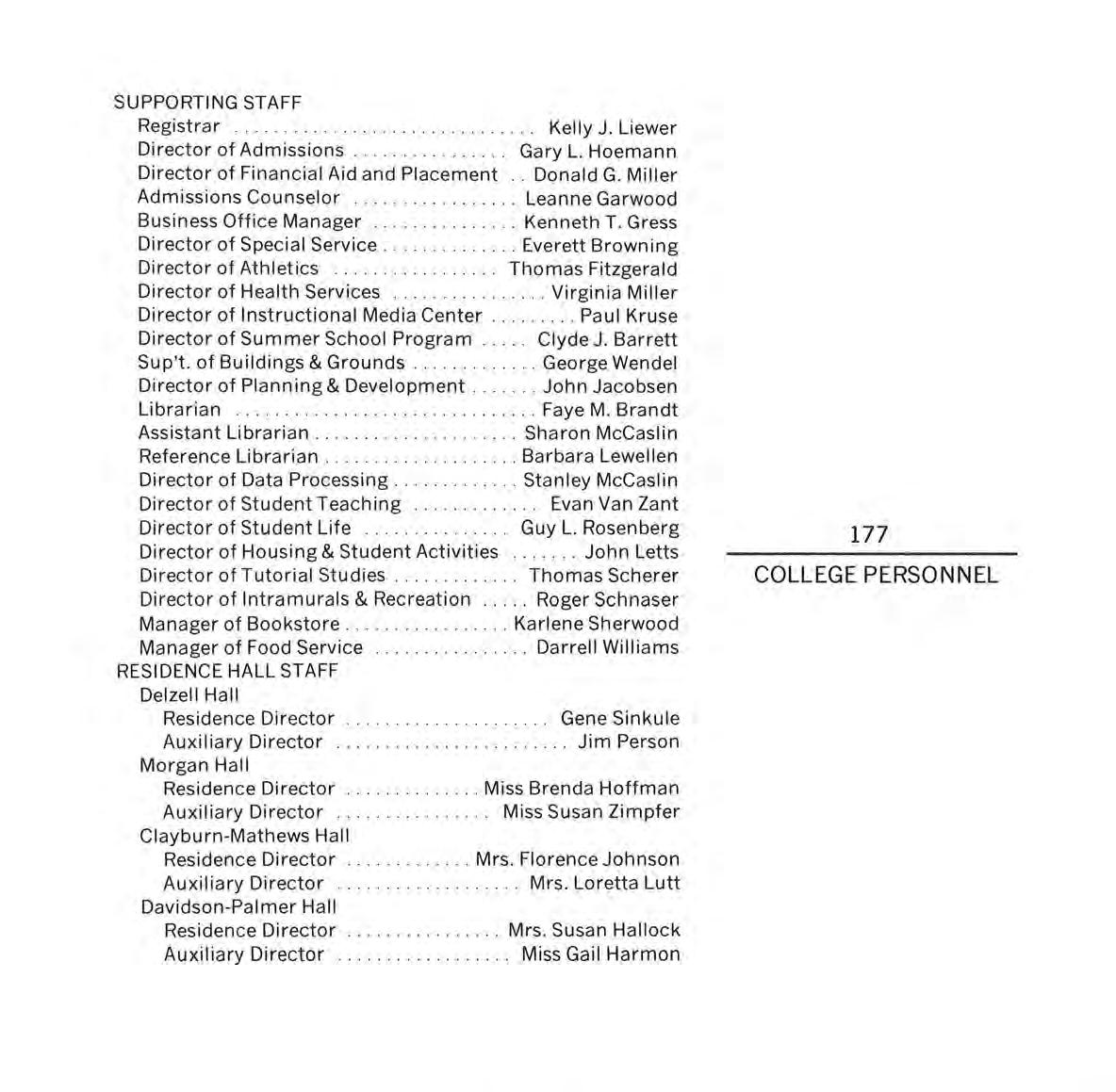
Roger Schnaser
Karlene Sherwood
Manager of Food Service . . . ... . .. . . Darrell Williams
RESIDENCE HALL STAFF
Delzell Ha ll
Residence Director Gene Sinkule
Auxiliary Director . . ... ... . . . ... . .. . . . .... Jim Person
Morgan Hall
Residence Director .... .. . . . . .... Miss Brenda Hoffman
Auxiliary Director Miss Susan Zimpfer
Clayburn-Mathews Hall
Residence Director
Auxili ar y Director
Davidson - Palmer Hall
Mrs Florence Johnson Mrs. Loretta Lutt
Auxiliary Director Mrs. Susan Hallock ...... . .. . . .... . .. Miss Gail Harmon
Residence Director
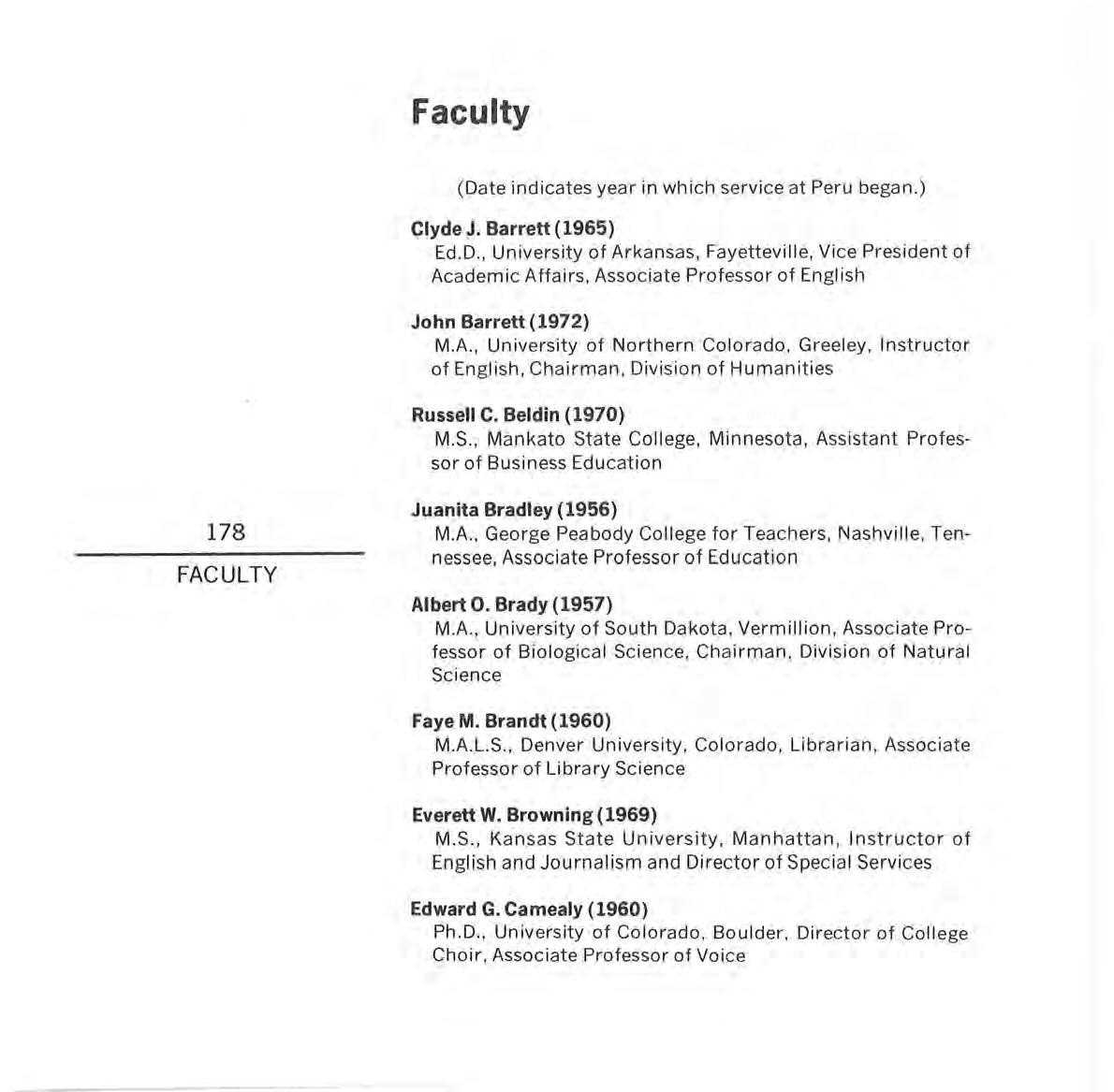
(Date indicates year in which service at Peru began.)
Clyde J. Barrett (1965)
Ed.D., University of Arkansas, Fayetteville, Vice President of Academic Affairs, Associate Professor of English
John Barrett (1972)
M.A., University of Northern Colorado, Greeley, Instructor of English, Chairman, Division of Humanities
Russell C. Beldin (1970)
M.S ., Mankato State College, Minnesota , Assistant Professor of Business Education
Juanita Bradley (1956)
M.A., George Peabody College for Teachers, Nashville, Tennessee, Associate Professor of Education
Albert 0. Brady (1957)
M.A., University of South Dakota , Vermillion, Associate Professor of Biological Science, Chairman, Division of Natural Science
Faye M. Brandt (1960)
M.A.L.S ., Denver University, Colorado, Librarian, Associate Professor of Library Science
Everett W. Browning (1969)
M.S ., Kansas State University, Manhattan, Instructor of English and Journalism and Director of Special Services
Edward G. Ca mealy (1960)
Ph.D ., University of Colorado, Boulder, Director of College
Choir, Associate Professor of Voice
Edward Clark ( 1974)
M .A. , University of Iowa, Iowa City. Instructor of Drama and Mass Communications
Alan Cram (1974)
M.S. , Chadron State College, Nebraska. Instructor of Industrial Arts
Michael Currier (1973)
M.S., University of Nebraska at Omaha, Nebraska, Assistant Professor of Elementary Education
Martin Dwine (1973)
B.S. Midwestern State College at Dennison, Iowa . In structor of Physical Education
David Edris (1974)
D.M .A., University of Missouri, Kansas City. Assistant Professor in Music
Arlene Fell (1974)
M S., Kearney State College, Nebraska. Instru ctor of Home
Economics
Sue Fitzgerald
B.S ., Kansas State University, Manhattan. News Bureau
Thomas J. Fitzgerald ( 1967)
Ed . D., University of Nebraska, Lincoln. Chairman, Division of Physical Education, Assistant Professor of Physical Education, and Head Baseball Coach
Leanne Garwood (1974)
B.A ., Kearney State College, Nebraska. Admissions Counselor
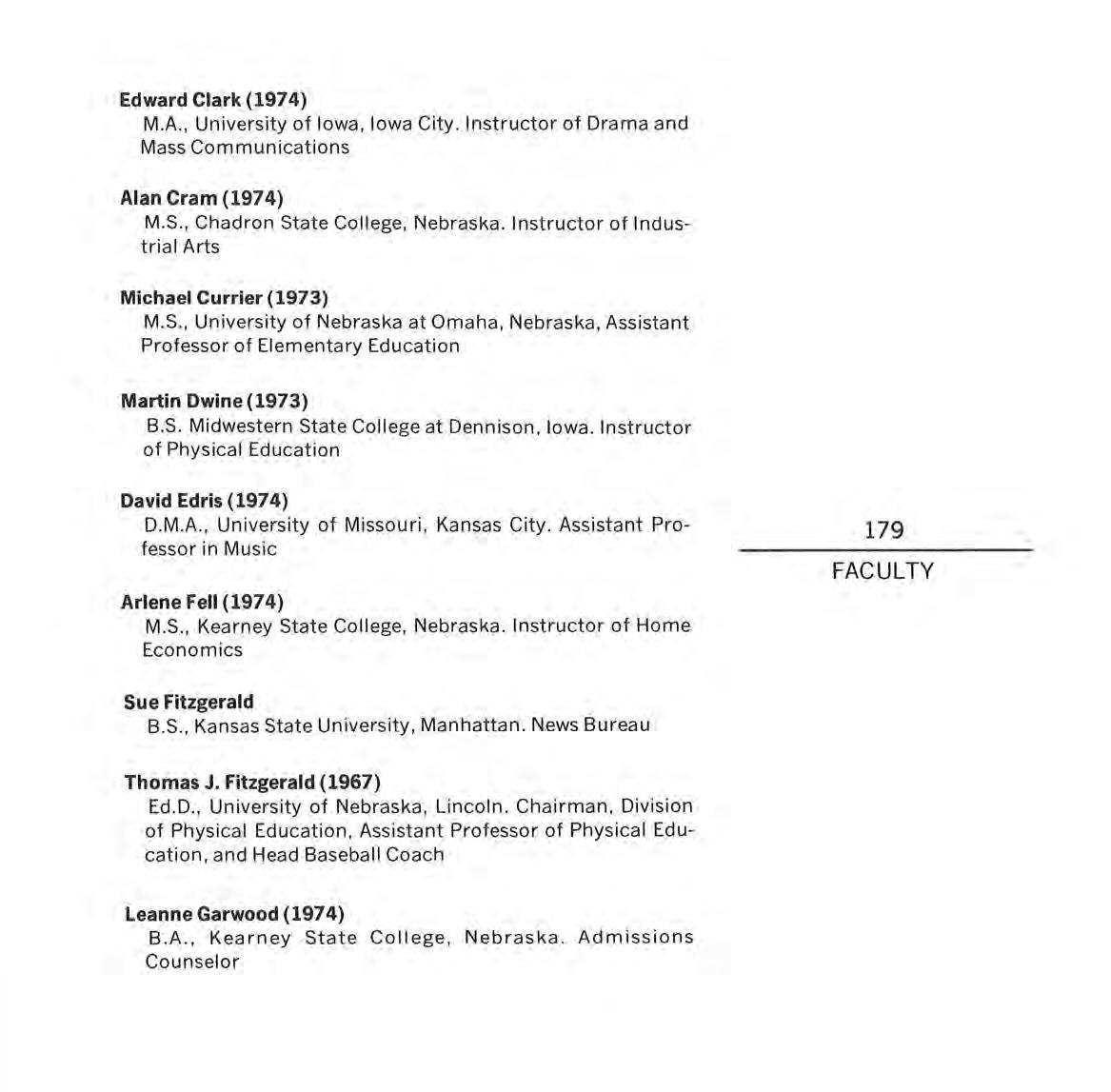
Kenneth T. Gress (1969)
B.A. , Peru State College, Nebraska , Business Office Manager
Richard Gulizia (1974)
M .S., University of Nebraska at Omaha, Nebraska, Assistant Professor of Education
John Hahn (1968)
M.A., University of Minnesota , Minneapolis, Assistant Professor of Political Science
Fredrick Hamann (1973)
M.S., Fort Hays Kansas State College , Hays, Assistant Professor of Science
Jack Hamilton (1972)
M.S., Kansas State College , Pittsburg, Instructor, Vocational Business Education
Wreathea Hicks (1968)
M A. , Emporia Kansas State College , Emporia, Instructor of English
Gary Hoemann (1972)
B.S., Peru State College, Nebraska , Director of Admissions
John Jacobsen ( 197 4)
M A., Bemidji State College, Minnesota, Director of Planning and Development
D. V. Jarvis (1948)
M.E ., Colorado State University , Fort Collins , Associate Professor of Industrial Arts
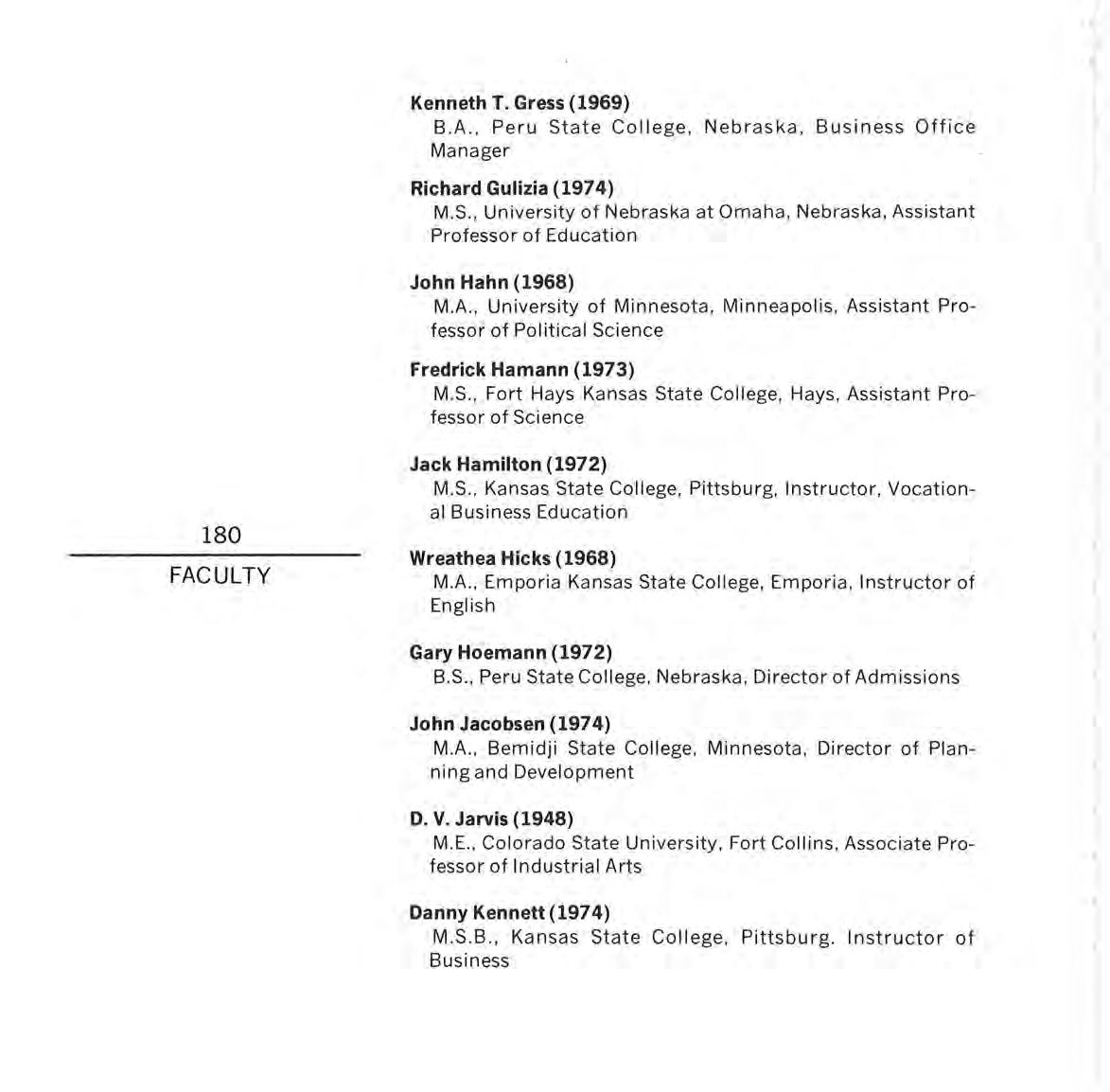
Danny Kennett (1974)
M .S.B., Kansas State College, Pittsburg. Instructor of Business
Paul Kruse (1969)
M.S., Emporia Kansas State College, Emporia, Reference Librarian, Director of Instru ctiona l Media Center, Assistant Professor of Library Science
William D. Landis (1972)
Ed.D., University of Nebraska, Lincoln, Associate Professor of Education
John D. Letts (1973)
B.A., Chadron State College, Nebraska, Director of Housing and Student Activities
Robert Lewellen (1972)
M.S., Northwest Missouri State University, Maryville, Instructor, Business Administration
Kelly Liewer (1968)
Ed.D., University of Nebraska, Lincoln, Registrar
DarylC.Long(1967)
Ph.D. , University of Nebraska, Lincoln, Assistant Professor of Science and Mathematics
Sharon Mccaslin (1971)
M.L., Emporia Kansas State College, Emporia, Assistant Librarian
Stanley Mccaslin (1971)
M.S., California Institute of Technology, Pasadena, Instructor of Data Processing
Lyle C. McKercher (1959)
M.S., University of Iow a, Iowa City, Associate Professor of Mathematics
Mary Jo Mier (1973)
M.S., Northwestern Missouri State University, Missouri, Instructor of Physical Education
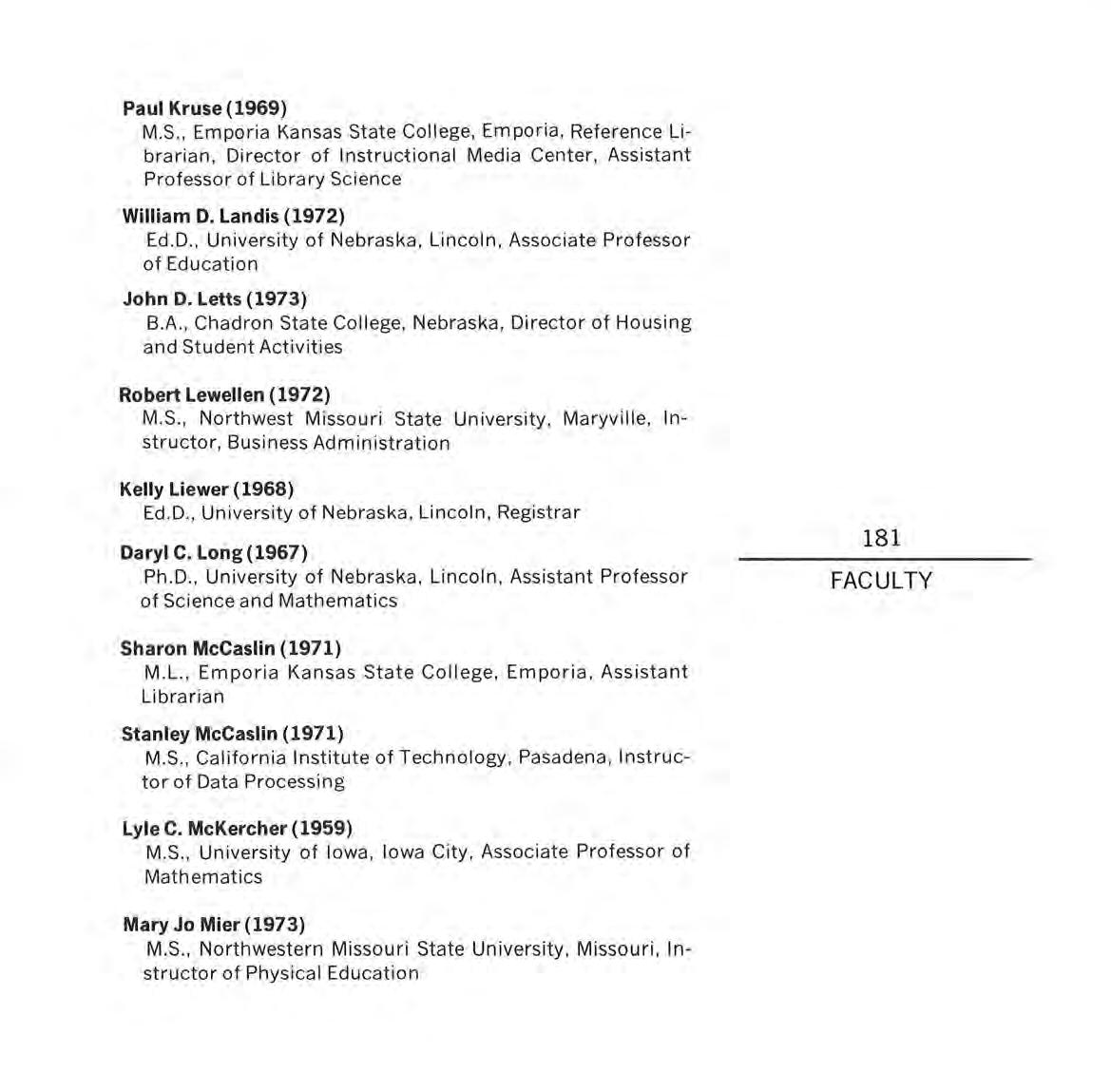
Donald Miller (1969)
M.S., Kansas State University, Manhattan, Director of Financial Aid, Instructor of Educational Psychology
Virginia Miller (1970)
B .S., Peru State College, Nebraska, College Nurse
John T. Pardeck (1974)
M.A., Central Missouri State University, Warrenburg . Instructor of Social Work
Douglas W. Pearson (1973)
Ph . D., Higher Education Administration. George Peabody College, Nashville, Tennessee, President
Ervin R. Pitts ( 1964)
Ed . D., University of Missouri, Columbia, Head Golf Coach, Professor of Health and Physical Education
Robert Riley (1974)
M.A . , University of Wyoming, Laramie, Assistant Professor of Physical Education, Head football and track coach

Guy L. Rosenberg (1966)
Ph.D. , University of Iowa, Iowa City , Director of Student Personnel Services, Associate Professor of Psychology
Lester Russell (1956)
Ed.D., University of Nebraska, Lincoln, Professor of Industrial Arts, Chairman, Division of Applied Arts
Thomas Scherer ( 1969)
Ph . D., University of Wyoming, Laramie , Assistant Professor of Education, Chairman , Division of Education
Roger5chnaser(1974)
M.A , University of Northern Colorado, Greeley, Instructor of Physical Education and Administration Assistant , Director of Intramural Athletics
George Schottenhamel (1957)
Ph.D., University of Illinois, Urbana, Professor of History and Social Sciences
Leland H. Sherwood (1963)
Ed.D., Indiana University, Bloomington, Associate Professor of Art, Chairman, Division of Performing Arts
Michael 0. Stewart (1974)
Ph.D., Kansas State University, Manhattan, Vice -Pres ident for Administration
Evan Van Zant (1961)
M A., University of Nebraska, Lincoln, Associate Professor of Education
Scott J. Williams (1966)
M.A., Arizona State University, Tempe, Assistant Professor of Geography
Gilbert E. Wilson (1957)
D.M.A., University of Missouri, Kansas City, Director of Band and Orchestra, Associate Professor of Instrumental Music
Mary Ruth Wilson
M.A., Peru State College, Nebraska, Assistant Professor of Eng li sh and Speech
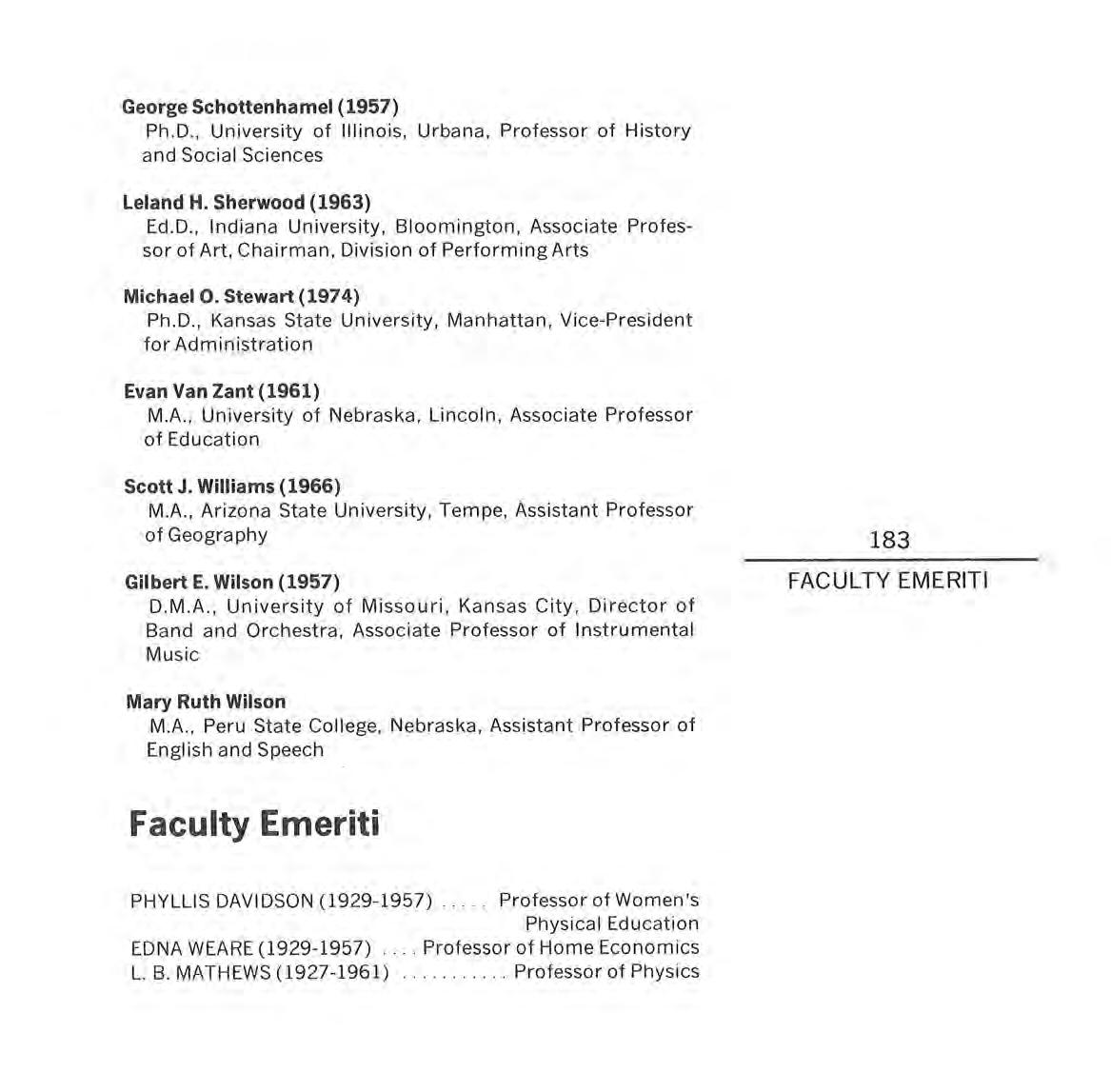
PHYLLIS DAVIDSON (1929-1957) .. . ..
EDNA WEARE (1929-1957) ....
L.B. MATHEWS (1927-1961)
Professor of Women's Physical Education
Professor of Home Economics
Professor of Physics
VICTOR H. JINDRA (1923-1961) . . . . .. . Professor of Music

GEORGE RATH (1946-1961) Professor of Foreign Languages
RUTHS . BROWN (1943-1961) Professor of Education
MARY CLARKE (1951-1964) . Professor of Education
ALFRED G. WHEELER (1938-1965) ... Professor of Health and Physical Education
HAROLD 0 . BORASS (1951-1966) . Professor of Education Psychology
ROBERT D. MOORE (1937-1970) Professor of English and Speech
ALMA ASHLEY (1949-1970) Professor of Elementary Education
FRIEDA D. ROWOLDT (1952-1970) Professor of Business Education
HANFORD MILLER (1947 - 1971) Professor of Chemistry
HAROLD JOHNSON (1951-1972) . Professor of Education
SILAS SUMMERS (1960-1972) Professor of English
JOHN C. CHRIST (1947-1973) Professor of Biology
LUCY HOVEY (1967-1973) .... Professor of Home Economics
The Council is the representative of the professional staff of the College and is concerned with the general welfare of the professional staff and the students. It establishes and revises all policies related to the internal affairs of the college.
The Commission carries on a continuous study of the instructional program and recommends policy to the College Affairs Council. It is concerned with interschool and interdepartmental coordination and relationships . The various instructional programs are evaluated in terms of accrediting standards and guidelines of national academic associations. It evaluates the work and responsibility of its various committees.
The Committee reports regularly to the Academic Affairs Commission and recommends policy to the Commission . It serves in a liaison capacity between the Library and the faculty-student bodies. It advises in regard to the administration of the policies and regulations related to the Library, and makes suggestions regarding the services, the budget, purchases, allocation of funds, accreditation standards, and over-all needs
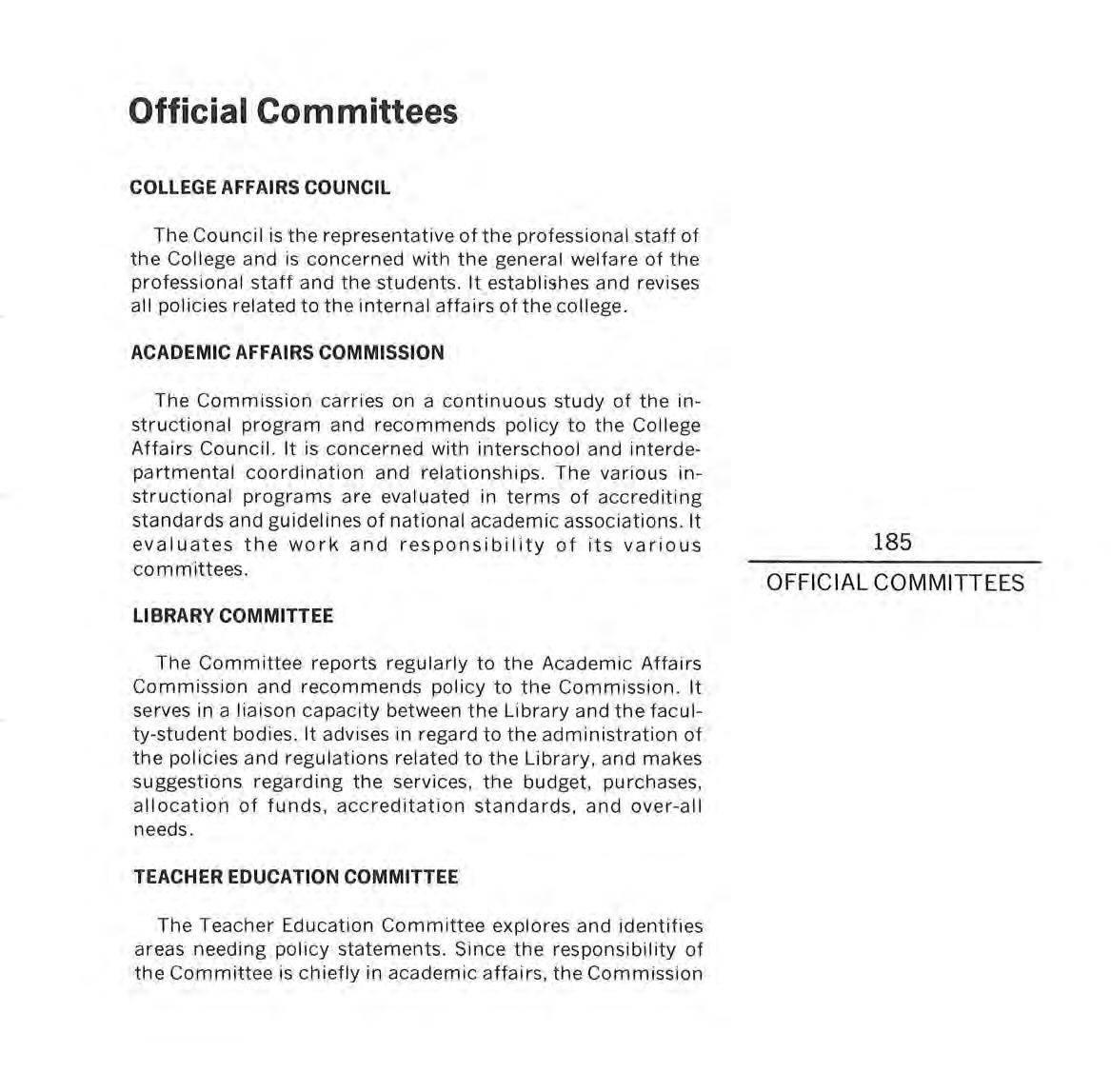
The Teacher Education Committee explores and identifies areas needing policy statements. Since the responsibility of the Committee is chiefly in academic affairs, the Commission
on Academic Affairs is advised of all recommendations that will be made to the College Affairs Council . It formulates these policies and recommends them to the College Affairs Council. The Committee is authorized to delegate some of its responsibilities, such as Admission to Teacher Education, to a subcommittee.

The Committee advises the Director of Admissions on first time admissions as these may deviate from established policy, or may be irregular in any manner. It has the authority to act on all applications for readmission. The Committee administers policies regarding scholastic probation and/or suspension. It recommends policy to the Academic Affairs Commission.
The Commission recommends policy to the College Affairs Council. It interprets the philosophy and policy to students, faculty , parents, and the public. It provides for the centralized administration and coordination of all student personnel functions. The Commission serves as an appeal or hearing body on decisions related to non-academic matters of the student. The Commission shall advise the Director of Financial Aid , as he requests, in the administration of Financial Aids and award scholarships which are available.
The Committee shall act independently of the Student Center Board, and is answerable only to the President of the College and the Board of Trustees It is the responsibility of this Committee to provide for college, social, cultural, and recreational programs using money derived from the Student Program fees.
The membership of the committee representing the Facul-
ty Association consists of the Executive Committee of the Association. The chairman of the Executive Council is the chairman of this committee The Committee concerns itself with both academic and personnel matters of the faculty and reports to either the Academic Affairs Commission or the College Affairs Council. The Faculty Association has the responsibility of assisting with the orientation of new faculty members , and assisting in the evaluation of objectives , policies, and with the professional growth and development of faculty members.
The Student Teaching Program
1974-1975
Auburn ... . . .... . Albert C. Austin, Superintendent
Principal : Marvin H. Gerdes
Beatrice. . . ......... . . Robert Cothren , Superintendent
Assistant Superintendent: W. A. Schlichting
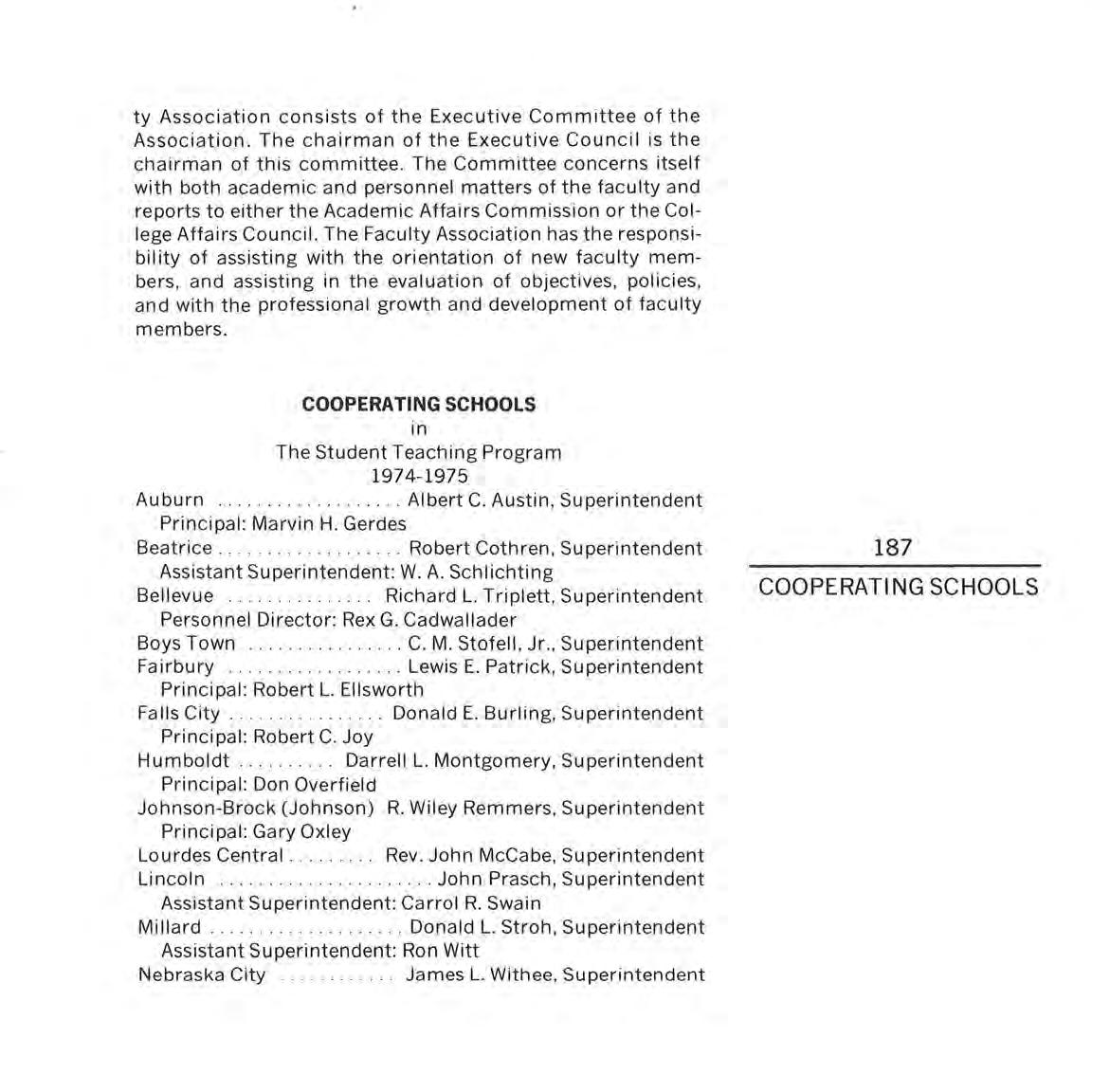
Bellevue . Richard L. Triplett, Superintendent
Personnel Director : Rex G. Cadwallader
Boys Town .. . ... . .. . ... . . . C. M . Stofell , Jr., Superintendent
Fairbury ........ Lewis E. Patrick, Superintendent
Principal : Robert L. Ellsworth
Falls City Donald E. Burling, Superintendent
Principal: Robert C Joy
Humboldt Darrell L. Montgomery , Superintendent
Principal: Don Overfield
Johnson - Brock (Johnson) R. Wiley Remmers, Superintendent
Principal : Gary Oxley
Lourdes Central Rev. John McCabe, Superintendent
Lincoln ... . .... : . .. .. ..... John Prasch, Superintendent
Assistant Superintendent: Carrol R. Swain
Millard . . . . . . . . . . . ..... . Donald L. Stroh, Superintendent
Assistant Superintendent: Ron Witt
Nebraska City James L. Withee, Superintendent
187
Principal: Carl W. Fielder
Omaha Owen A. Knutzen, Superintendent
Administrative Assistant: Monty Allgood
Papillion Paul D. Basler, Superintendent
Principal: Keith G. Pollard
Pawnee City James Robison , Superintendent
Principal: Max Martin
Plattsmouth Fred J Kaufman , Superintendent
Principal : John J. Beck , Jr .
Ralston Brice Stallard, Superintendent
Southeast Nebraska (Stella) Allan Lavigne, Superintendent
Principal: William Tempelmeyer
Springfield (Platteview) . Oscar Mussman , Superintendent
Principal: Louis V. Dambrosia
Syracuse-Dunbar-Avoca (Syracuse) Donald W Craig ,
Principal : John Rhodus Superintendent
Tecumseh Richard A Brommer , Superintendent
Principal: John Reimer
Westside (Omaha) H. Vaughn Phelps , Superintendent
Assistant Superintendent : Robert M . Adams
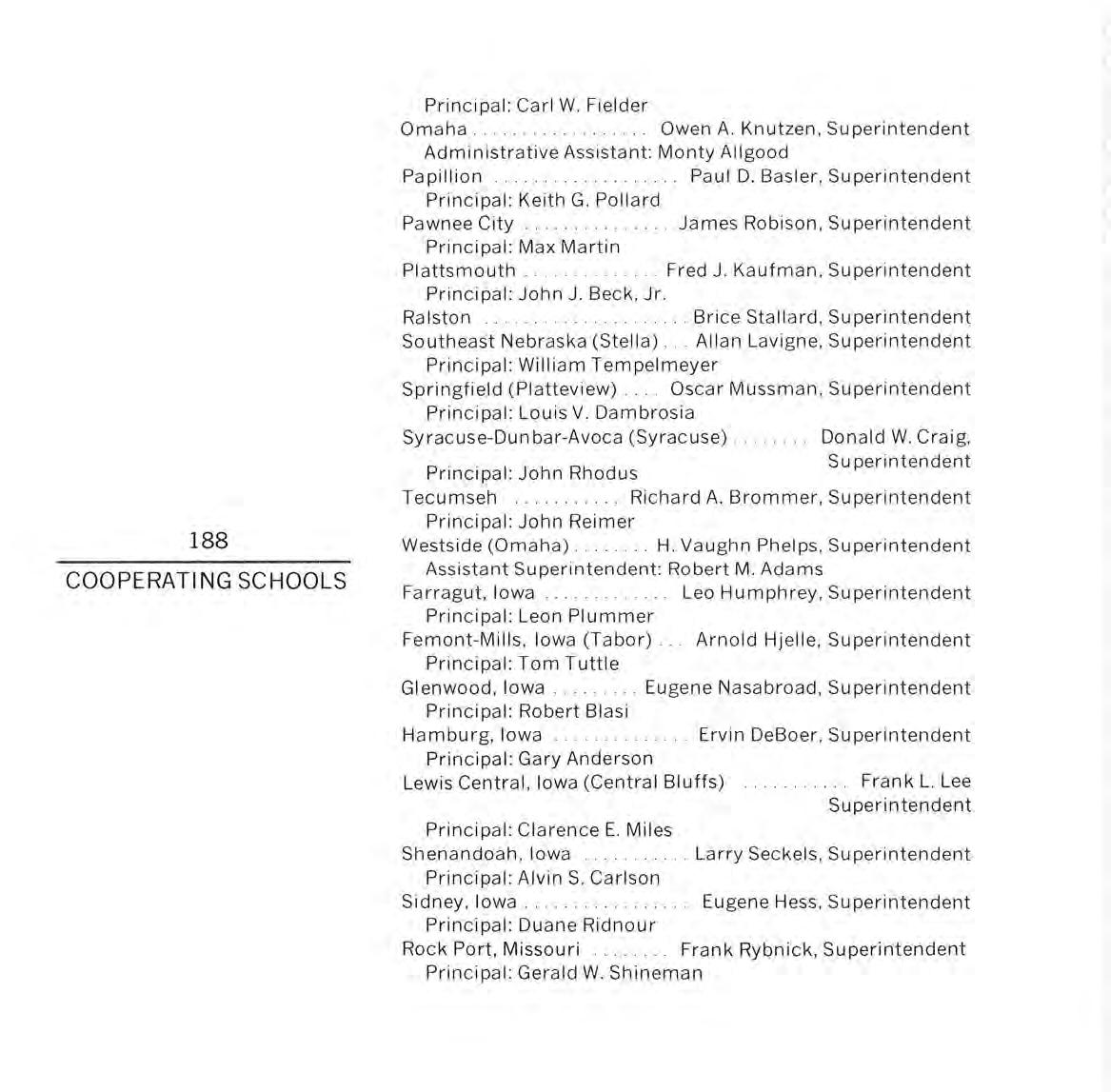
Farragut, Iowa Leo Humphrey , Superintendent
Principal: Leon Plummer
Femont-Mills , Iowa (Tabor)
Principal: Tom Tuttle
Arnold Hjelle , Superintendent
Glenwood , Iowa Eugene Nasabroad , Superintendent
Principal: Robert Blasi
Hamburg, Iowa
Principal : Gary Anderson Ervin DeBoer , Superintendent
Lewis Central , Iowa (Central Bluffs) Frank L. Lee Superintendent
Principal : Clarence E. Miles
Shenandoah, Iowa . Larry Seckels , Superintendent
Principal : Alvin S. Carlson
Sidney, Iowa . . Eugene Hess, Superintendent
Principal : Duane Ridnour
Rock Port , Missouri Frank Rybnick , Superintendent
Principal: Gerald W. Shineman
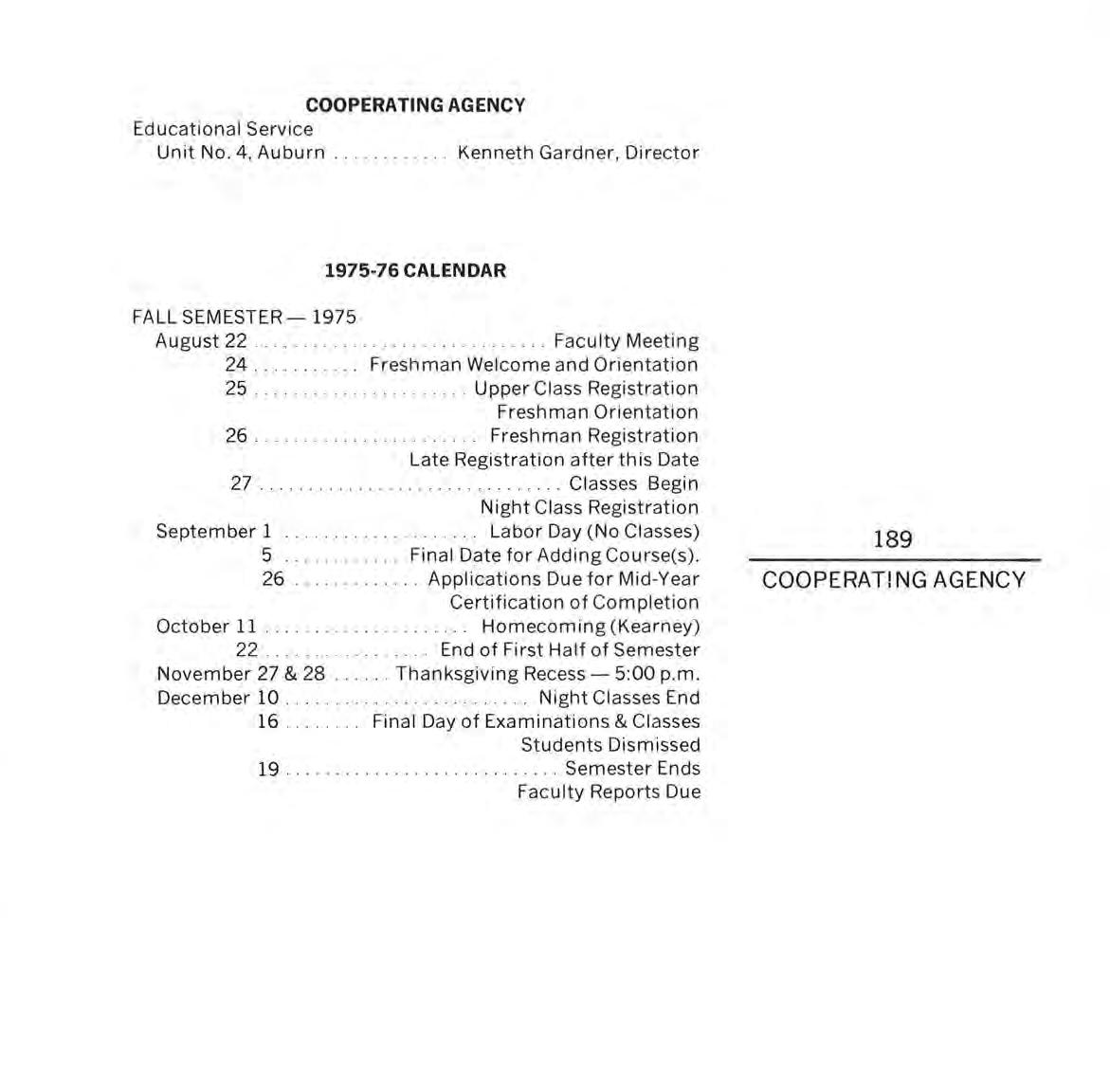
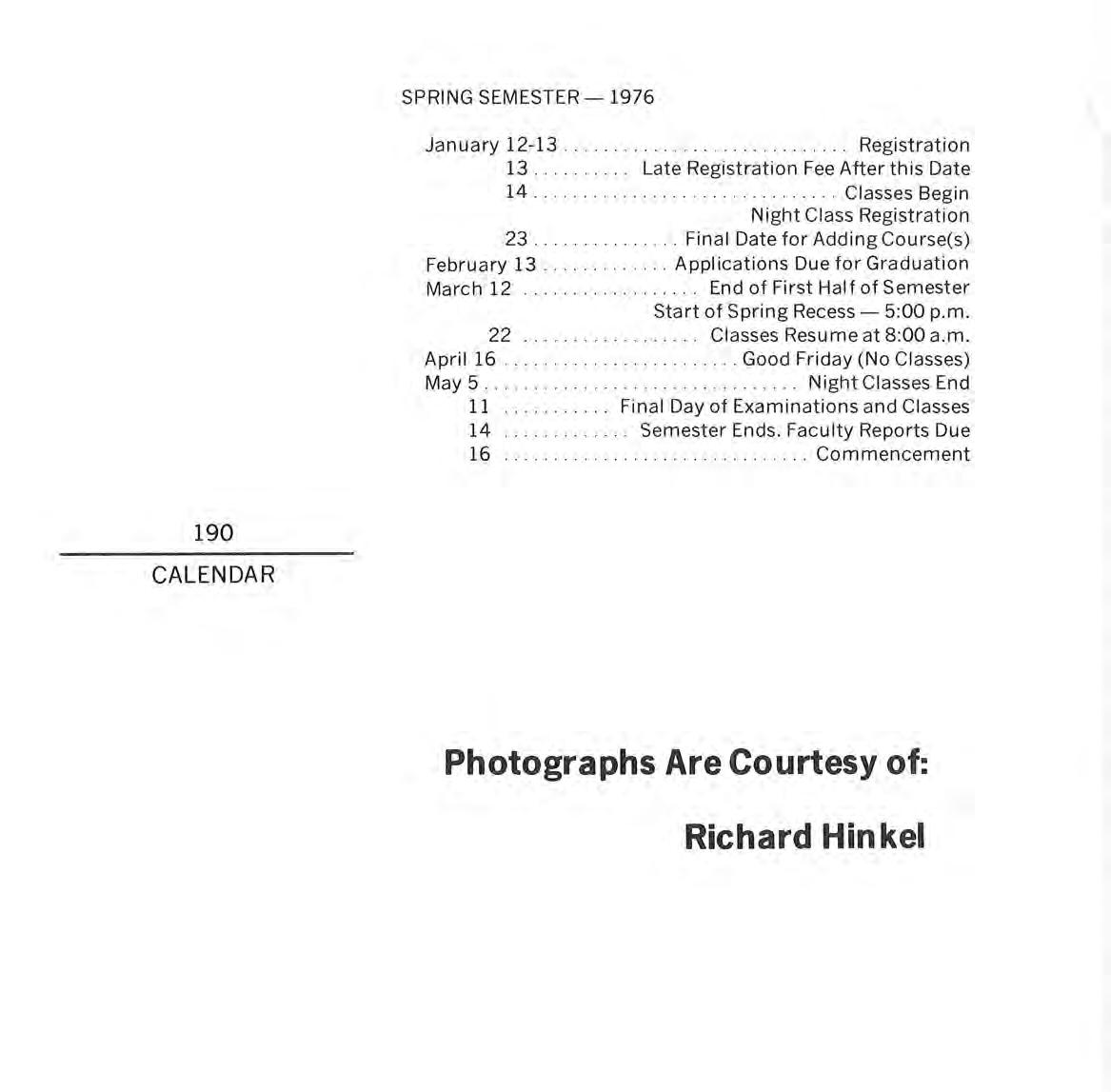
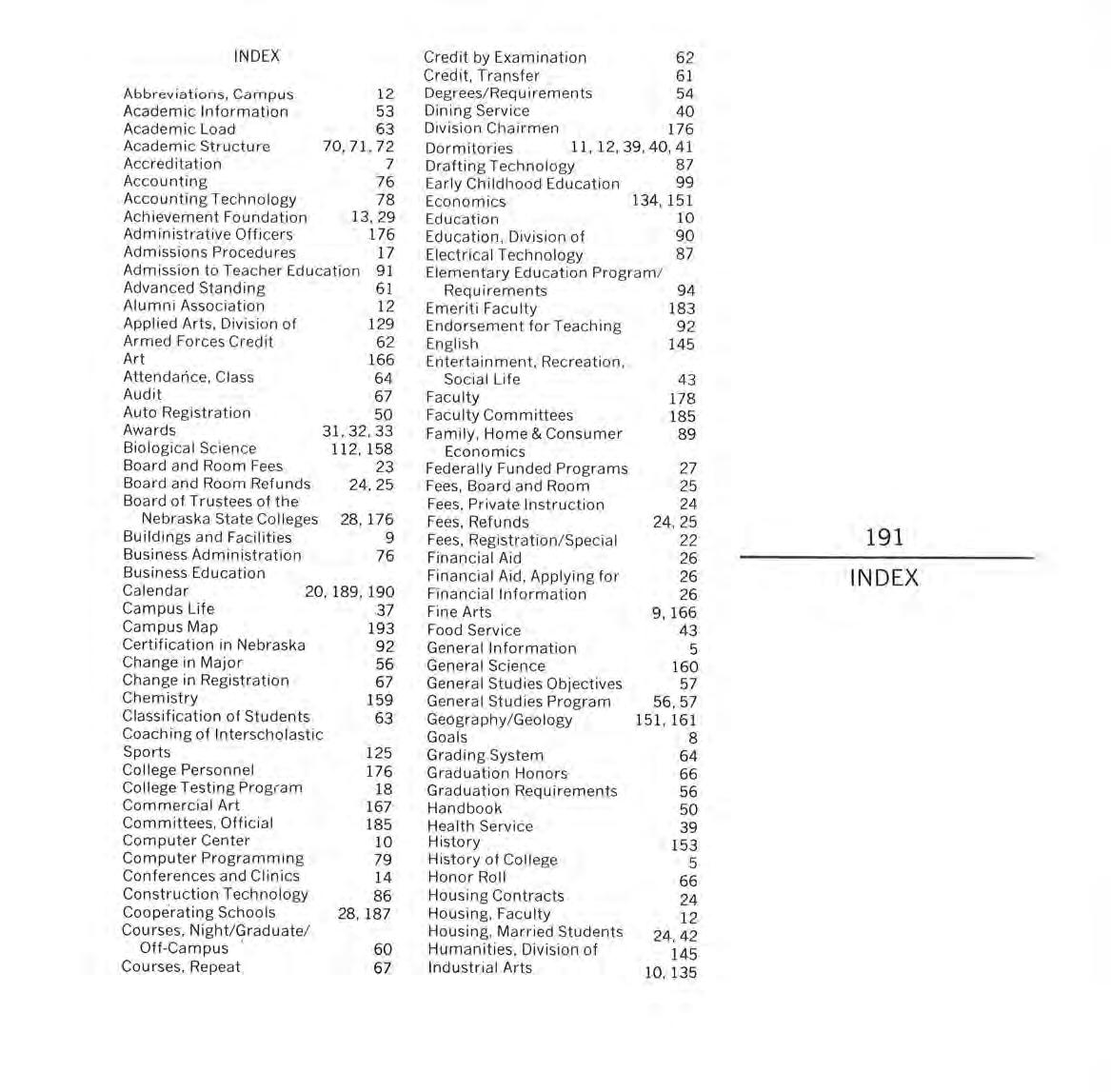
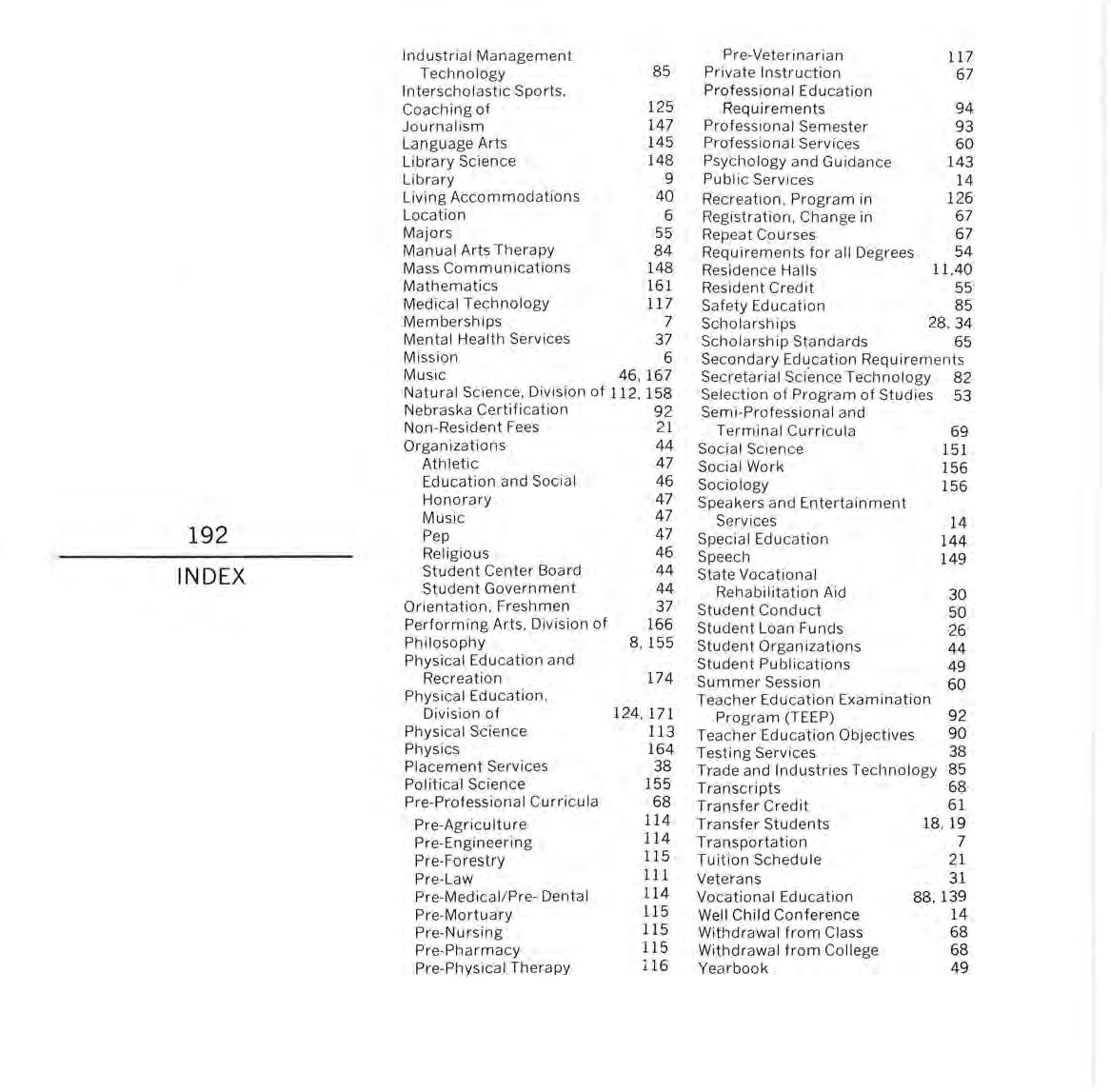
Peru State College
Peru, Nebraska 68421
Serving State a nd Na tion Sin ce 1867
INDEX OF BUILDINGS
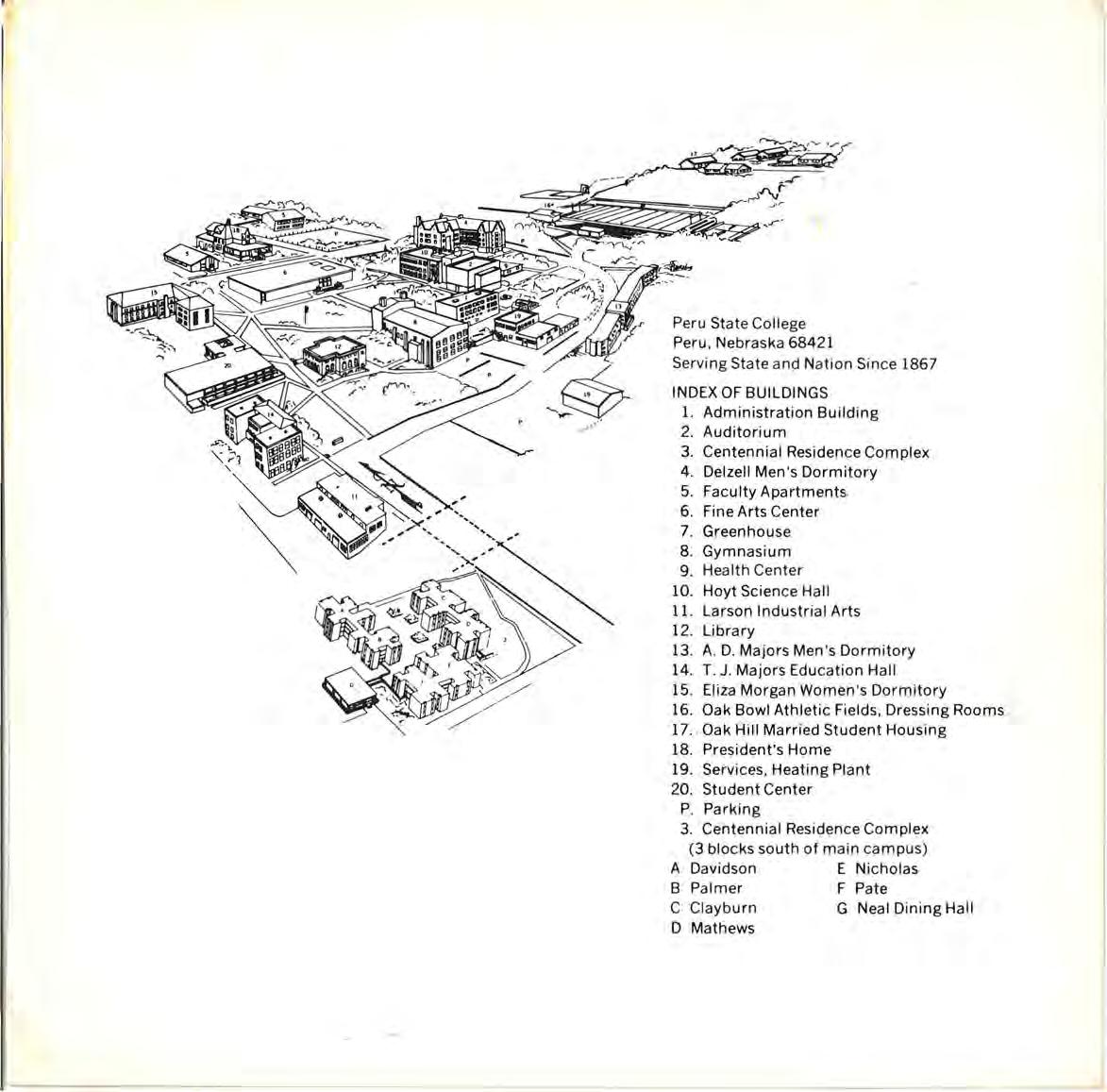
1. Administration Building
2. Auditorium
3 Centennial Residence Complex
4. Delzell Men 's Dormitory
5. Faculty Apartments
6 . Fine Arts Center
7. Greenhouse
8 Gymnasium
9 . Health Center
10. Hoyt Science Hall
11. Larson Industrial Arts
12 . Library
13. A. D. Majors Men's Dormitory
14 T. J . Majors Education Hall
15 . Eliza Morgan Women's Dormitory
16. Oak Bowl Athletic Fields, Dressing Rooms
17 Oak Hill Married Student Housing
18. President's Home
19 . Services , Heating Plant
20. Student Center
P. Parking
3. Centennial Residence Complex
(3 blocks south of main campus)
A Davidson E Nicholas
B Palmer F Pate
C Clayburn G Neal Dining Hall
D Mathews
